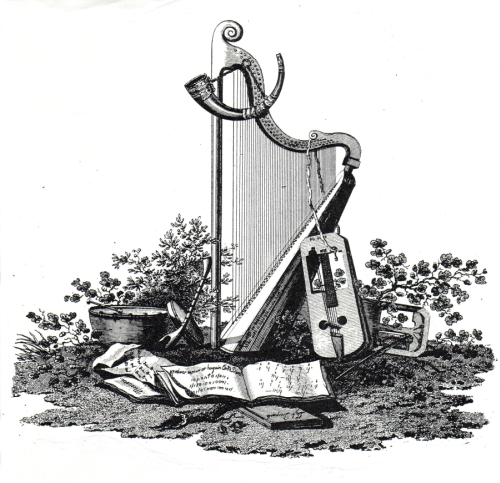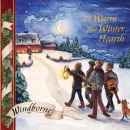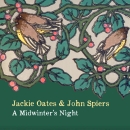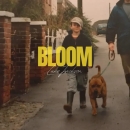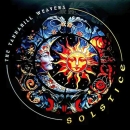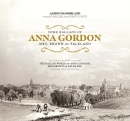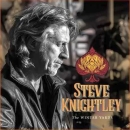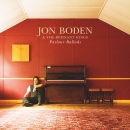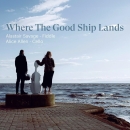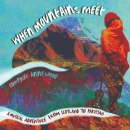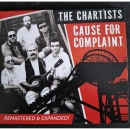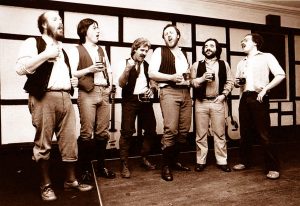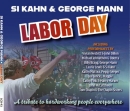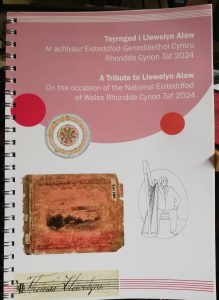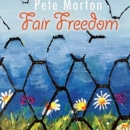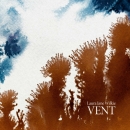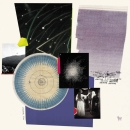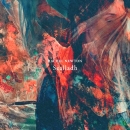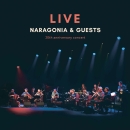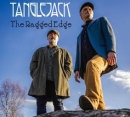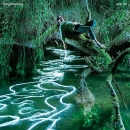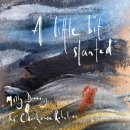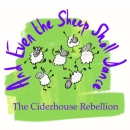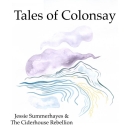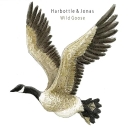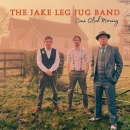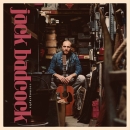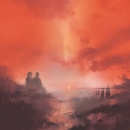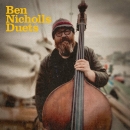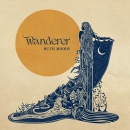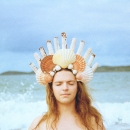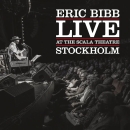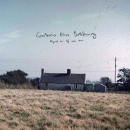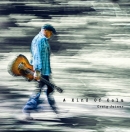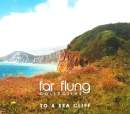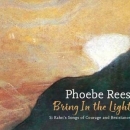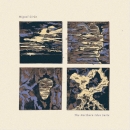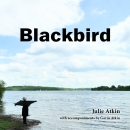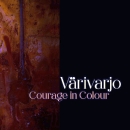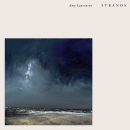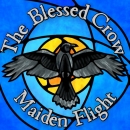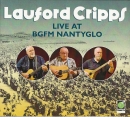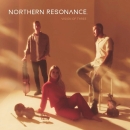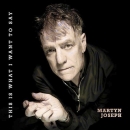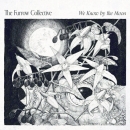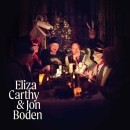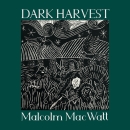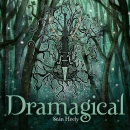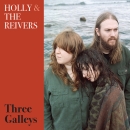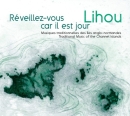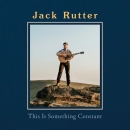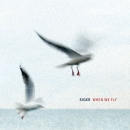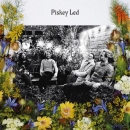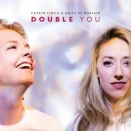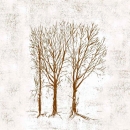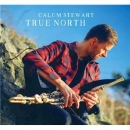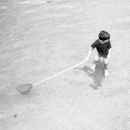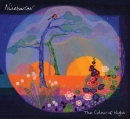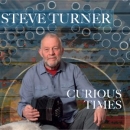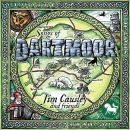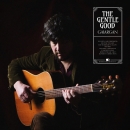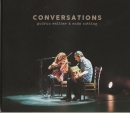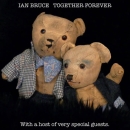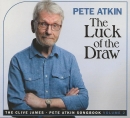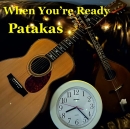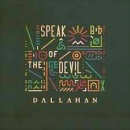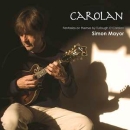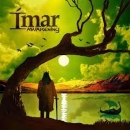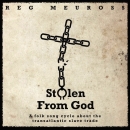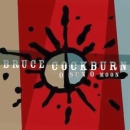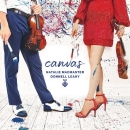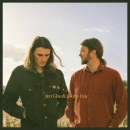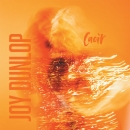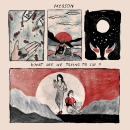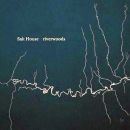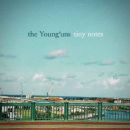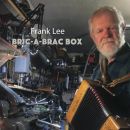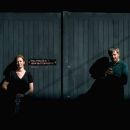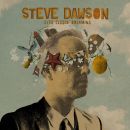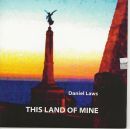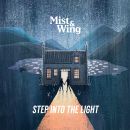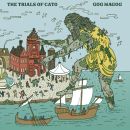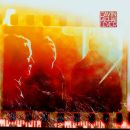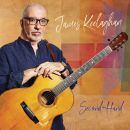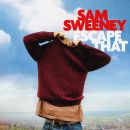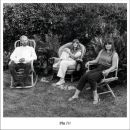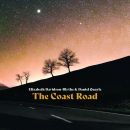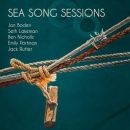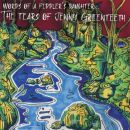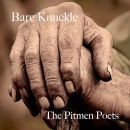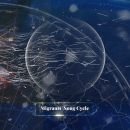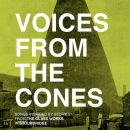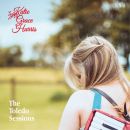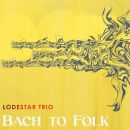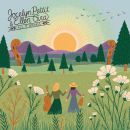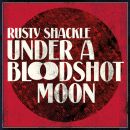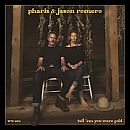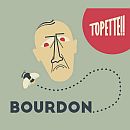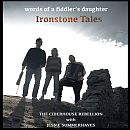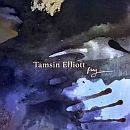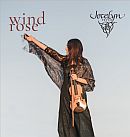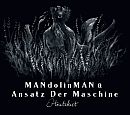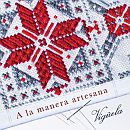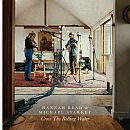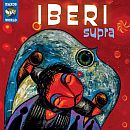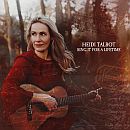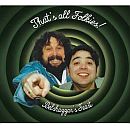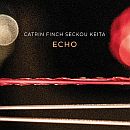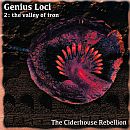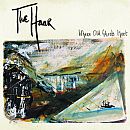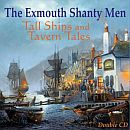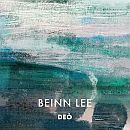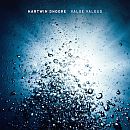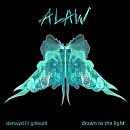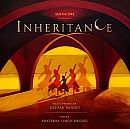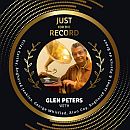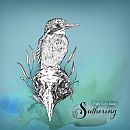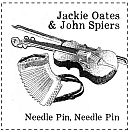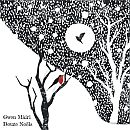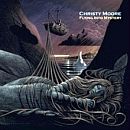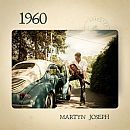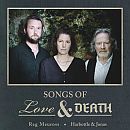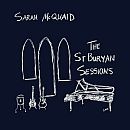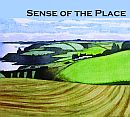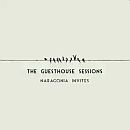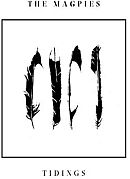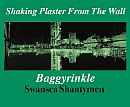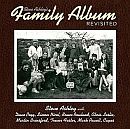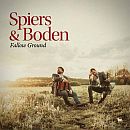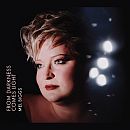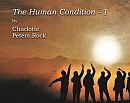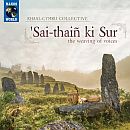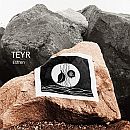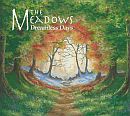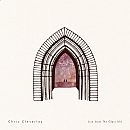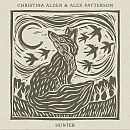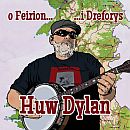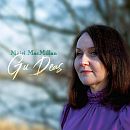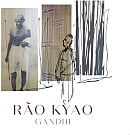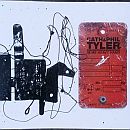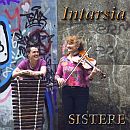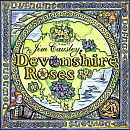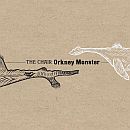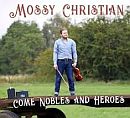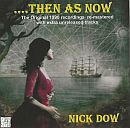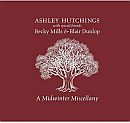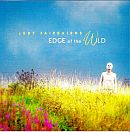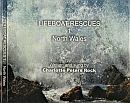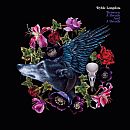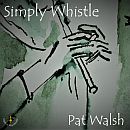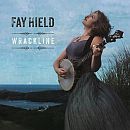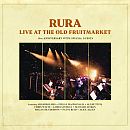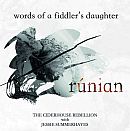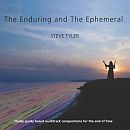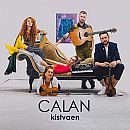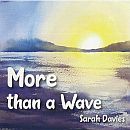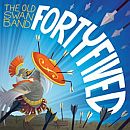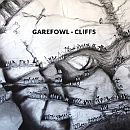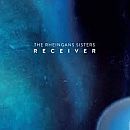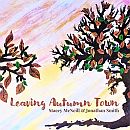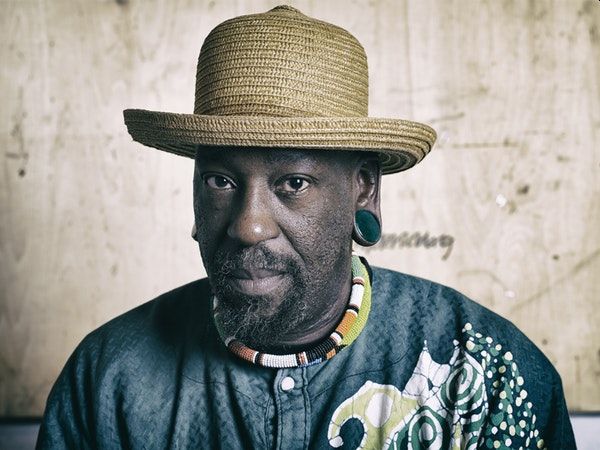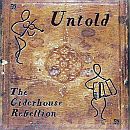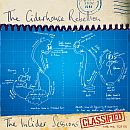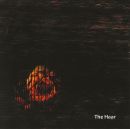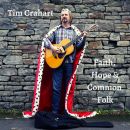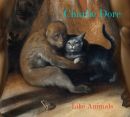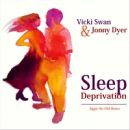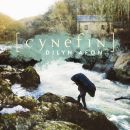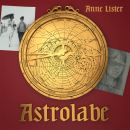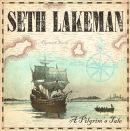Expand the Table of Contents to find the review you want
Contents
- MICK’S QUICKS
- WINDBORNE
- JACKIE OATES & JOHN SPIERS
- ALICE ALLEN
- LUKE JACKSON
- BOXSETUK
- SECKOU KEITA
- ERIC BIBB
- THE TANNAHILL WEAVERS
- ALISON MCMORLAND with JO ALLEN and KIRSTY POTTS
- MICK’S QUICKS
- STEVE KNIGHTLEY
- JON BODEN & THE REMNANT KINGS
- MICK’S QUICKS
- ALASTAIR SAVAGE & ALICE ALLEN
- ANNE WOOD
- THE CHARTISTS
- MICK’S QUICKS
- SI KAHN & GEORGE MANN
- TEYRNGED I LLEWELYN ALAW / A TRIBUTE TO LLEWELYN ALAW
- PETE MORTON
- MICK’S QUICKS
- LAURA JANE WILKIE
- M G BOULTER
- RACHEL NEWTON
- NARAGONIA & GUESTS
- MICK’S QUICKS
- TANGLEJACK
- SAM LEE
- MOLLY DONNERY & THE CIDERHOUSE REBELLION
- THE CIDERHOUSE REBELLION
- JESSIE SUMMERHAYES & THE CIDERHOUSE REBELLION
- HARBOTTLE & JONAS
- THE JAKE LEG JUG BAND
- SPILAR
- JACK BADCOCK
- MICK’S QUICKS
- UFQ
- BEN NICHOLLS
- LAUREN COLLIER
- MICK’S QUICKS
- RUTH MOODY
- MALIN LEWIS
- ERIC BIBB
- MICK’S QUICKS
- COWBOIS RHOS BOTWNNOG
- CRAIG JOINER
- FAR FLUNG COLLECTIVE
- PHOEBE REES
- MIGUEL GIRÃO
- JULIE ATKIN
- VÄRIVARJO
- POLENTA
- AMY LAURENSON
- THE BLESSÈD CROW
- RANT
- LAUFORD CRIPPS
- NORTHERN RESONANCE
- MICK’S QUICKS
- MARTYN JOSEPH
- THE FURROW COLLECTIVE
- MICK’S QUICKS
- ELIZA CARTHY & JON BODEN
- MALCOLM MACWATT
- SEÁN HEELY
- HOLLY & THE REIVERS
- LIHOU
- JACK RUTTER
- SIGER
- PISKEY LED
- MICK’S QUICKS
- CATRIN FINCH & AOIFE NÍ BRIAIN
- MICK’S QUICKS
- FILKIN’S DRIFT
- CALUM STEWART
- WAYWARD JANE
- ANDRIES BOONE
- ANGHARAD JENKINS & PATRICK RIMES
- NINEBARROW
- MICK’S QUICKS
- STEVE TURNER
- JIM CAUSLEY & FRIENDS
- THE GENTLE GOOD
- GUDRUN WALTHER & ANDY CUTTING
- IAN BRUCE
- MICK’S QUICKS
- PETE ATKIN
- PATAKAS
- DALLAHAN
- DÀIMH
- SIMON MAYER
- MICK’S QUICKS
- ÍMAR
- MICK’S QUICKS
- REG MEUROSS
- BRUCE COCKBURN
- MICK’S QUICKS
- NATALIE MACMASTER & DONNELL LEAHY
- JIM GHEDI & TOBY HAY
- JOY DUNLOP
- RURA
- SNAARMAARWAAR
- MICK’S QUICKS
- MEGSON
- SALT HOUSE
- THE YOUNG ‘UNS
- TAPESTRI
- MICK’S QUICKS
- FRANK LEE
- WILL POUND & JENN BUTTERWORTH
- STEVE DAWSON
- DANIEL LAWS
- MICK’S QUICKS
- MIST & WING
- HUSHMAN
- MICK’S QUICKS
- LADY MAISERY
- THE TRIALS OF CATO
- GAVIN FAIRHALL LEVER
- JAMES KEELAGHAN
- SAM SWEENEY
- PLU
- MICK’S QUICKS
- ALISTAIR SAVAGE
- CHLOE MATHARU
- ELIZABETH DAVIDSON-BLYTHE & DANIEL QUAYLE
- VRï
- JON BODEN, SETH LAKEMAN, BEN NICHOLLS, EMILY PORTMAN, JACK RUTTER
- WORDS OF A FIDDLER’S DAUGHTER
- THE PITMEN POETS
- LAMBREGO
- VARIOUS ARTISTS
- MICK’S QUICKS
- KATIE GRACE HARRIS
- LODESTAR TRIO
- JOCELYN PETTIT & ELLEN GIRA
- RUSTY SHACKLE
- PHARIS & JASON ROMERO
- TOPETTE!!
- WORDS OF A FIDDLER’S DAUGHTER
- TAMSIN ELLIOTT
- MICK’S QUICKS
- JOCELYN PETTIT
- MANDOLINMAN & ANSATZ DER MASCHINE
- THE JAKE LEG JUG BAND
- VIGṸELA
- HANNAH READ & MICHAEL STARKEY
- IBERI
- HEIDI TALBOT
- MICK’S QUICKS
- BELSHAZZAR’S FEAST
- CATRIN FINCH & SECKOU KEITA
- THE CIDERHOUSE REBELLION
- BEN & DOM
- THE HAAR
- THE EXMOUTH SHANTY MEN
- MICK’S QUICKS
- BEINN LEE
- HARTWIN DHOORE TRIO
- ALAW
- DEEPAK PANDIT, PRATIBHA SINGH BAGHEL
- GLEN PETERS
- SUTHERING
- JACKIE OATES & JOHN SPIERS
- GWEN MÀIRI
- CHRISTY MOORE
- MARTYN JOSEPH
- MICK’S QUICKS
- REG MEUROSS, HARBOTTLE & JONAS
- DEUX SANS FRONTIÈRES
- DAMIAN CLARKE
- SARAH MCQUAID
- JASON ROUSE
- VARIOUS ARTISTS
- NARAGONIA
- THE MAGPIES
- BAGGYRINKLE
- STEVE ASHLEY
- SPIERS & BODEN
- CHRIS NEWMAN
- OMAR SOSA & SECKOU KEITA
- MEL BIGGS
- CHARLOTTE PETERS ROCK
- KHASI-CYMRU COLLECTIVE
- TEYR
- THE MEADOWS
- CHRIS CLEVERLEY
- MICK’S QUICKS
- CHRISTINA ALDEN & ALEX PATTERSON
- HUW DYLAN
- BETHAN NIA
- MÀIRI MACMILLAN
- RÃO KYAO
- TRANSGLOBAL UNDERGROUND
- CATH & PHIL TYLER
- HARBOTTLE & JONAS
- MICK’S QUICKS
- INTARSIA
- JIM CAUSLEY
- JENNY STURGEON
- VARIOUS ARTISTS
- THE CHAIR
- WӦR
- MOSSY CHRISTIAN
- NICK DOW
- RON JAPPY
- MICK’S QUICKS
- ASHLEY HUTCHINGS with BECKY MILLS & BLAIR DUNLOP
- JUDY FAIRBAIRNS
- CHARLOTTE PETERS ROCK
- DYBLE LONGDON
- PAT WALSH
- FAY HIELD
- RURA
- WORDS OF A FIDDLER’S DAUGHTER
- STEVE TYLER
- CALAN
- SARAH DAVIES
- THE OLD SWAN BAND
- GAREFOWL
- THE RHEINGANS SISTERS
- STACEY MCNEILL & JONATHAN SMITH
- REIMAGINE: BEYOND THE BORDER ONLINE
- THE CIDERHOUSE REBELLION
- JOY & ANDREW
- MAIMU JÖGEDA
- THE HAAR
- MICK’S QUICKS
- CHARLIE DORE
- VICKI SWAN & JONNY DYER
- ROAD NOT TAKEN
- CYNEFIN
- ANNE LISTER
- MICK’S QUICKS
- SETH LAKEMAN
DECEMBER 2024
MICK’S QUICKS
► Songwriters, singers and Paisley ‘buddies’ Evelyn Lawrie and Neil Thompson celebrate the rich and colourful population of their Renfrewshire home town in Silver Threads – Songs of Paisley (Independent release, STPEN10001) from its infamous connections to the witchcraft trials of the 17th century, its growth as a centre for thread-making and the well-known ‘Paisley pattern’, the stirring verses of Robert Tannahill and its reputation as a political hotbed. Writers Danny Kyle (‘Music of the Loom’) and Hugh MacDonald (‘Bonny Wee Well’) contribute the story of one of Scotland’s most important conurbations, mixing in Evelyn’s jazz influences and Neil’s more traditional folk-oriented background. FolkWales verdict: Thumbs up!
► Acoustic guitarist Martin Flett, based in the Isle of Lewis in the Scottish Outer Hebrides, had been a local government manager, a gym owner, a successful powerlifter and a lead commentator at the World and European powerlifting championships, but had never written a single song until the dreaded lockdown. Now he’s composed over a hundred songs and, at the age of 68, he’s recorded his 11-track debut album, When the Introverts Come Out (independent release, MF2024CD). Unfortunately, he’s not the best voice nor the best songwriter in the entire pack, he’s very influenced by the country ‘n’ western scene and the session sound is a bit lumpen; still, better luck next time. FolkWales verdict: Thumbs down
► Composer and acoustic guitarist Esbe draws hypnotic inspiration from nine imposing sights in her tenth album from her North London studio, Mountain Aires (New Cat Music, NC251), taking in the jagged Old Man of Storr in the Isle of Skye, Mounts Iwaki and Hotaka in Japan, the Spanish Sierra Nevada, Canada’s Ghost River Valley, Yosemite National Park in California and the Ethiopian Lasta Mountains. This CD is entirely instrumental and is being released on National Guitar Day, February 11, 2025; she weaves a delicate web that casts a peaceful yet vividly imaginative aura. FolkWales verdict: Thumbs up!
► Watch out for award-winning Polish folk singer Karolina Węgrzyn, an adept accordion, hammered and mountain dulcimer musician, who is stepping out in her absolutely stunning debut album Oy Vesna Krasna (translated, Oh You Beautiful Spring; independent release, no catalogue number), a joyful journey of folk songs collected from Poland, Macedonia, Ukraine and the Carpatho-Rusin district which relates to the distinct Slavic group of people from the Carpathian Mountains of Central Europe. She grew up in a family of traditional dancers and singers; many traditional Polish songs were passed on to her by her grandmother. Her authentic-sounding band is, surprisingly, Stephen Plummer (acoustic guitar, percussion), Mike Bethel (double bass), Dominic O’Sullivan (bassoon, whistles, clarinet) and Chris Roberts of Filkin’s Drift (acoustic guitar). FolkWales verdict: Thumbs up!
► County Donegal siblings The Freil Sisters is comprised of Anna (flute and tin whistles), Sheila (Uilleann pipes, flute, tin whistles) and Clare (fiddles, tin whistles), plus Cathal Ó Curráin (Bouzouki) and Marty Barry (guitar, bodhran). The sisters have performed at many festivals across Europe, America and Asia and their long-awaited third album, Northern Sky (independent release, no catalogue number) is a wonderful traditional 12-track mix of reels, jigs and songs, which Anna, Sheila and Claire sing in spot-on unison. It’s a mighty powerful and beautiful set, and the band apply it with fiery precision, energy and finesse; what a magnificent souvenir. FolkWales verdict: Thumbs up!
► Founded in 2015, Boss Morris is a very visual all-female progressive morris dancing side from Stroud in Gloucestershire; musicians Sam Sweeney and Miranda Rutter (fiddles and viola) and Rob Harbron (English concertina and harmonium) are three of England’s finest traditional instrumentalists, whose mesmerising playing mirrors the fresh and inventive style of the dancers – Lily Cheetham, Maddy McLeod, Josie Wickes and Alex Merry. This wonderfully eponymous album (Boss Morris, independently released on December 6, 2024, no catalogue number) is stuffed full of 17 traditional tunes, starting with ‘Filberts’, ‘Bonnets So Blue’ and ‘Trunkles’, and finishing with ‘The Blue-Eyed Stranger’, ‘Upton-on-Severn Stick Dance’, ‘The Rose – Maid of the Mill’, ‘Ladies’ Pleasure’, Princess Royal’ and ‘Wandering Tune – Orange in Bloom’. Exquisite! FolkWales verdict: Thumbs up!
WINDBORNE
To Warm the Winter Hearth
Wand’ring Feet Records, WFR006
***** FIVE STAR CHOICE! *****
Windborne are a quartet of simply amazing polyphonic singers from across the wide Atlantic in New England, USA – take a bow, Lauren Breunig, Jeremy Carter-Gordon, Lynn Rowan and Will Rowan. Their heart-stopping close-harmony voices jerk the audience from the edge of their seats and compel everybody to listen; the whole experience is really quite astonishing. Windborne have spent 20 years studying polyphonic music from all parts of the world, and they conduct regular workshops with choirs and other community groups; however, the one important fact that they are always steeped in the traditional canon is an incredibly big bonus indeed.
To Warm the Winter Hearth is a brilliant cameo showing the wonder of the Christmas and the New Year season; countless age-old customs and celebrations of Christ’s apocryphal birth link arms and shake hands together in a fabulous melting pot of joyous pagan tradition and religious spirituality. The spirit of Christmas nestles with the age-old custom of the Yule log, the evergreen holly and the ivy and the Lords of Misrule; long before the Holy Babe’s nativity, the Roman Empire observed the winter solstice which they called Saturnalia, used to get drunk, have orgies and gave each other presents. Constantine the Great ruled the Empire from 306AD to 337AD (Anno Domini, the Year of the Lord) and became the first emperor to be converted to Christianity in 312AD; he and many religious leaders metamorphosed Saturnalia and changed it to an early form of Christmas. In fact, the four Gospels of the Apostles do not mention that Christ was born on Christmas Day; scientific research pinpoints His birth as several years before 1AD and was probably in April or October – but never in December 25.
Windborne vividly captures the very special occasion where the praises of hymnody sit snugly with ancient pagan ceremonies. Lauren, Jeremy, Lynn and Will plunge right into the opening track, ‘Here We Come A-Wassailing’; their inspiring, really inventive harmony is absolutely jaw-dropping. ‘The Boar’s Head Carol’ is chock-full of grand Oxford University King’s College-style Latin, while they ring some brilliant changes in the American traditional ‘Come and I Will Sing You’, a swaggering tour de force learned from Lauren’s father, himself a touring musician with New England’s folk icons Nowell Sing We Clear; Lynn beats enthralling time with her dancing feet. The four singers shock and delight everyone with their breath-taking dizzy voices which stay needle-sharp and true to the first degree; they also really love and are firmly schooled in folk music, where they listen to the stirring Watersons’ voices singing the Cornish ‘Malpas Wassail’ and then take it up a glorious notch with their sheer rainbows of sound – how drop-dead gorgeous it is.
Added to the stunning unaccompanied vocals are a number of instruments, which are on display: jaw harps, banjo, drums, guitar and kanklés (a Lithuanian plucked string zither). Two guest musicians, Yann Falquet of the Quebecois trio Genticorum on accordion and fiddler Katie McNally, make welcome appearances as well. Windborne salute Scottish musician Ali Burns’ version of ‘The Holy Holly’ to make it deliciously pagan: “The holly bears a prickle as sharp as the thorn / And the sun rose on the solstice all on Yuletide morn…” Ancient religious folk songs, such as the beautiful ‘Cherry Tree Carol’, bear no relation to the Bible’s four testaments official authorised text. Windborne throw in Occitan and Lithuanian folksongs with fierce and gay abandon, and lovingly polish up ‘Time to Remember the Poor’ and ‘The Derby Ram’ by enhancing added lyrics – and two written songs that are forged in the folk scene, Zoe Mulford’s ‘Welcome In Another Year’ and Jennifer Cutting’s and Mick Ryan’s ‘The Turning Year’, just wraps the album up perfectly.
An additional feature is the utterly sumptuous full-colour illustrations by Matt Spencer and the track notes, which resemble a very informative and completely absorbing 44-page book. All 12 tracks are an eye-opening revelation; Windborne don’t record the Pembrokeshire wren-house ceremony ‘The King’, but they bid a fond farewell in the last page: “Joy, health, love and peace / Be all here in this place.” All that’s left is a sketch of a wren and the words: “And we bid you adieu / Great joy to the new!”
What a thoroughly outstanding album; as Jeremy explains: “As we have developed our own holiday traditions, we have felt particularly drawn to the music that connects us to friends, community and nature… it’s a collection of songs that represent some of the folklore and rituals that are meaningful to us. We are deeply grateful to the tradition-bearers who came before us; the countless known and unknown people who sang these songs in their homes and in pubs, down country lanes and in concert stages – they gave us the customs that we hold dear today.”
JACKIE OATES & JOHN SPIERS
A Midwinter’s Night
Needle Pin Records NP3
***** FIVE STAR CHOICE! *****
A Midwinter’s Night is an utterly heart-warming and entrancing album; it’s a joyous celebration of the festive season and the New Year, a festival of light to cheer us and help us through the colder dark days. Jackie and John went into the Woodworm Studios in the Oxfordshire village of Barford St Michael (first conceived 30 years ago by bass player Dave Pegg of Fairport Convention, now owned by house engineer Stuart Jones) and delivered their Christmas Show – and thereby hangs a story. They began working on Christmas material during the dismal and uncertain lockdown in December 2020 when everyone stayed firmly housebound, and realised that it would be the perfect opportunity to raise a little warmth by making a homemade TV programme-style concert, filmed in Jackie’s living room and in rural locations around Wallingford, Wootton and Headington Quarry. The first Christmas at Home online concert was born, and was such a success that a second concert, featuring new material, was produced in the following year. Once the covid restrictions were lifted, the duo took their Christmas Show the arts centres and folk clubs across the country – and the show has become something of an annual tradition.
All 13 gorgeous tracks are on display, from the English Cotswold tradition and the rich culture from Wales to tunes and songs from Sweden, Iceland, Brittany and Central France. Jackie and John have tried to create the lovely and ancient atmosphere of the West Gallery musicians, and they succeed enormously. First up is the Charles Wesley advent hymn ‘Lo! He Comes With Clouds Descending’, which is based on an earlier hymn by John Cinneck and associated with Welsh hymn writer Thomas Olivers. The duo expertly interpret the simple sound of melodeon and five-string viola, including a whole album’s worth of anglo-concertina, octave violin, claviola and recorders of many shapes and sizes – no mighty bulldozer church organs here! The coda melody is the grand ‘La Mourisque’, which Headington Quarry Morris Dancers use as the ‘Morris Off’.
Jackie and John have listened and learned from a wonderful array of tune and song carriers from England, Wales and overseas; ‘The Gloucestershire Wassail’ follows, and tacked on is a Christmas song from Sweden, ‘Julvisa från Alvdalen’, by the trio Triakel. ‘As I Lay on Yoolis Night’ is an 14th century medieval carol, and ‘Boules et Guirlandes’ was taken from the well-remembered Breton band and masters of the festou-noz, Skolvan – the respected Youenn le Bihan, Fañch Landreau, Yann-Fañch Perroches and Gilles le Bigot. An absolutely beautiful standout, ‘The Halsway Carol’, was conceived by hurdy-gurdy musician Nigel Eaton; another hurdy-gurdy player, Iain Frisk, penned the words. The jolly ‘Welcome Noble Winter’ is set to the Welsh children’s rhyme ‘Deryn y Bwn o’r Banna’ (The Bittern of Bannau Brycheiniog). Another Welsh tune, ‘Y Ceiliog Llwyd’, came from the sadly-missed Welsh-Breton-English quartet, Saith Rhyfeddod – Ceri Rhys Matthews, Julie Murphy, Jonathan Shoreland and Brigitte Kloareg – while John learned the second melody, ‘To Drive the Cold Winter Away’, from the magnificent Oxford quintet Magpie Lane.
Jackie and John have garnered a really splendid and thoroughly absorbing collection, and their Christmas show looks set to be the pinnacle of the festive season. Most Christmas-themed albums are in the habit of having a rapidly decreasing shelf life; everybody loses interest once The Great Day has past and gone. However, I intend to play A Midwinter’s Night time and time again – as The Guardian enthused: “A quiet triumph” – and so say all of us.
NOVEMBER 2024
ALICE ALLEN
Bass Culture – Live at Celtic Connections 2024
Ardgowan Records, AR05CD
***** FIVE STAR CHOICE! *****
Alice Allen is an acclaimed composer, musician and a brilliant star on the cello, with deep roots in classical and traditional Scottish music; with composer and fiddler Alistair Savage, she’s just released a perfectly wonderful double album called Where the Good Ship Lands, and hard on the heels of this project comes this stunning CD, recorded live in January 2024 at Glasgow’s prestigious Celtic Connections festival in the New Auditorium at the Royal Concert Hall. Bass Culture focuses on an instrument which is often overlooked in the traditional music scene; but nowadays, the thrilling combination of the fiddle and cello has made a significant and considerable dent. For instance, the spectacular Welsh chamber-folk trio VRï, the Scottish-Californian duo of Alasdair Fraser and Natalie Haas and the West Coast of Canada virtuoso Jocelyn Pettit and American East Coast high-flyer Ellen Gira are delighting and amazing world-wide audiences – but Alice is riding up there on her inspiring and uplifting work.
Alice has written a suite of nine breathtaking tracks for Celtic Connections and has assembled eight must-hear musicians, including Duncan Lyall on double bass, viola player Patsy Reid (who is working with Alice in their Strathspey Queens duo), violinists Seonaid Aitken and Kristan Harvey, pianist Rory Matheson, Scottish-Icelandic percussionist Signy Jakobsdottir, multi-instrumentalist Marit Fäit (born to Swedish parents and living in Norway) on Nordic mandola and lovely guitarist Anna Massie. A 13-strong team helped to make this album possible, including a quartet of Celtic Connections staff and Capercaillie founding member and artistic director Donald Shaw; GloWorm recording engineer Keir Long and Stuart Hamilton of Castlesound Studios, who did the mixing and mastering.
Bass Culture is entirely instrumental and features eight original works, three of which are expanded versions of tunes recorded by Alice’s folk trio Lyre. The music is influenced by Alice’s love of groove and stories of the everyday. Her influences are multi-layered; she leans on her ability to easily express emotion through music, transporting listeners on a magic carpet of quiet contemplation, anger, upset, grief and elation. At the same time, the album pays homage to the historical Scottish basslines of the 18th-century ‘Golden Age of Fiddle Music’, something Alice remains very passionate and ever inspired by –strong and stirring repertoires from the likes of Neil and Nathaniel Gow, William Marshall and that later iconoclastic genius, Scott Skinner.
Alice, from the Scott Skinner heartland of Banchory, is currently engaged in researching cello basslines and the instrument’s history in Scots music for her degree. She writes in her lavish full-colour CD booklet: “I am captivated by the long lost magic of cello basslines… The more I find out about these basslines, the more they just feel like home – something fundamentally Scottish in flavour, something designed with the functionality of dance at its core, something that elegantly allows the tune to shine.”
This is a truly fantastic and totally absorbing album; the band is ready and raring to bring the house down, and it’s thanks to Alice’s remarkable compositions. From the peaceful, slowly-developing string quartet opening track, ‘Intro and Stuart Ballantine’s’, the classically-themed eye-popper ‘Madeleine Rose’, the kick-ass proud jig ‘Bootlicker’ to the dizzy fiddle-led roller-coaster ‘Sam’s Chicken’ and swaggering finale ‘Strathbogie Toast’, Alice and the musicians grab the audience’s hearts and minds with joy, glee and just sheer unbridled mastery. Her commanding cello weaves a wild fling around the dancing fiddles, the probing piano and the deliciously complicated drumkit. The band swings, swoops and sizzles on their totally acoustic instruments – no electric guitars nor loud amplifiers here! But of all her outstanding tunes, it’s Rory’s serene solo piano in ‘Seallach Mor’ that really floats my boat; the musicians join him in what can be described as blissful heaven.
I’ve been listening to Alice’s cello and Bass Culture many, many times and I never tire of them; in fact, I keep discovering a hidden myriad of artful arrangements that she still chucks in with a knowing smile. What a fine album – and what a mighty diamond of a cello player.
LUKE JACKSON
Bloom
First Take Records, FTCD006
Singer-songwriter Luke Jackson keeps you guessing in his fifth and latest album, Bloom; he walks a very fine line between super-tight in-your-face hard rock and oh-so-beautiful solo acoustic guitar contemporanea. With every song, he hooks the audience into his world, weaving stories that resonate with authenticity and heart. The album reflects the diverse experiences and influences he has encountered in his life throughout his musical career, strengthening his reputation as one of the most compelling and enigmatic voices in the UK music scene.
This is a deeply personal collection of songs that highlight Luke’s lyrical prowess and his ability to connect with his fans. Never one to be pigeonholed, the album covers his increasingly eclectic range of memories, taking in composer, new-folk, alternative indie, Blues and Americana in equal measure. Luke says that Bloom is “a reflection of the last five years of my personal life; I’ve poured an awful lot into these songs, drawing from the highs and lows throughout my twenties, being a touring musician from the incredible people I’ve met along the way. It’s about growth, change and continuing to find beauty in the journey, even through the challenging times.”
Highlights include ‘Rubber & Magic’, featuring the compelling harmony of Amy Wadge; Luke’s soaring voice on the rocky ‘Curse the Day’; the gospel-like acapella ‘Trouble Now’; the rippling acoustic guitar of the lovely ‘Rainbow Valley’; ‘Hummingbirds of Kingston’, with its tasty jazz riff and his amazing vocals; and Edwina Hayes joins him on the final folk-flavoured track, ‘Beside You’, all solo acoustic guitar and really gorgeous sounds. The album registers a waymark for Luke, showcasing his maturity as a songwriter and his continued commitment to pushing the boundaries of his craft.
BOXSETUK
Tinderbox Heart
Independent release; no catalogue number
BoxSetUK are two old colleagues and members of the bad-boy folk band Pressgang, accordionist George Whitfield and singer and acoustic guitarist Tony Lyons; they have spent the past couple of years travelling the UK and Europe, successfully performing their songs to festival audiences. Before Pressgang retired, both George and Tony went their different ways. George settled in South Wales and immersed himself in the traditional music of the Welsh nation, while also starting a business restoring and repairing accordions – his instrument of choice. Both he and violinist Helen Adam formed the duo Fiddlebox and recorded three impressive albums; Tony, meanwhile, started The Lightyears and toured the UK, US and South Africa, as well as founding the Drum Club music education project and working as a session player and sync composer.
Initially coming together as a lockdown project in the summer of 2020, the plan for BoxSetUK at first was to play a one-off festival in Belgium before returning to their own projects. However, once the world returned to live music, it became a more permanent thing; appearances at folk and steampunk festivals across the UK were in the diary book, followed by this debut album. Recorded and produced by Nick Swannell at Studio 49 in the Pembrokeshire town of Narberth, Tony and George totally hook the festival fans with in-your-face brash music and whopping drum beats, peppered with well-known accordion-led dance tunes. The top-hatted pair whirl through Tony’s verging-on-pop material, from the opener ‘Robert Johnson’ and ‘Beautiful Flying’ to ‘Wolf Moon’, ‘South Georgia’ and their ferocious take on Rabbie Burns’ poem ‘Devil’s Away’.
The final track is George and Tony’s impression of Alfred Lord Tennyson’s famous work ‘Crossing the Bar’; they certainly know how to please and ignite the jigging, dancing crowd. The spirit of Pressgang lives on!
SECKOU KEITA
Homeland (Chapter 1)
Hudson Records, HUD053CD
https://hudsonrecords.co.uk/product/seckou-keita—homeland
After his sold-out tours and smash-hit albums with the brilliant Cardiff harpist Catrin Finch, kora star, composer and griot Seckou Keita is moving on to form an adventurous project that signals a return to his West African roots. Born in Senegal but based in the UK for the past 25 years, he is now lead musician of his Homeland band; in the band’s striking debut album, Homeland (Chapter 1), he questions just where is his home. In Songlines magazine, he says: “During Covid, when we were all stuck at home and couldn’t go out… is my home in Nottingham, or Senegal? Is home a space, or a landscape? Is it where you grew up, or work, or live now? I’m not a writer, and music is my only way to answer something like this.”
The kora was developed in West Africa in the 13th century and is fashioned from a gourd, cut in half and covered with cow skin to make a resonator with a long hardwood neck. It has 21 strings, each of which plays a different note and is supported by a double free-standing bridge. The kora goes back a long time in history, but Seckou continues to defy categories with a stunning body of work that skillfully fuses traditional music and rhythms with pop sounds, embracing afro-pop, urban, hip-hop and the spoken word – it’s a sheer rainbow of cultures and sounds. This very tasty 12-track collection was recorded and mixed across four countries: Senegal, the UK, Belgium and Germany. The album is a mixture of four languages: Mandinka, Wolof, English and French, from an array of extraordinary guests and collaborators.
From now on, Homeland (Chapter 1) seethes, bubbles and totally surprises. The opening track, ‘Bienvenue’, fires off with the entrancing melodies of the kora and the voice and preserver of Mandinka Culture, Abdoulaye Sidibé, followed on by ‘Home Sweet Home’, recorded at 3am in the morning by the chorus vocals of Senegalese rap duo Daara J. Family. ‘Chaque Jour’ features the lovely Bah Kouyate, and ‘Reflections’ is the spoken words of black British performance poet Zena Edwards, born in Hackney, London and exploring her African roots. ‘Deportation Blues’ is the sombre work of British writer Hannah Lowe, born in Ilford, known for her 2013 ‘Chick’ collection of poetry and for her painstaking research on the ship Empire Windrush and Caribbean migration; Seckou accompanies the shimmering kora while she describes the evil, shocking policy perpetrated by the last government.
Seckou’s venerable instrument continues to shine above the drums, keyboards, guitars and basses to create a thrilling and utterly wonderful sensation, and the last words are his: “At the heart of Homeland is storytelling, an essential part of the griot tradition, which has been shaped over centuries and is an integral part of my life and my culture. Above all else, we are the preservers of stories and history.”
OCTOBER 2024
ERIC BIBB
In The Real World
Repute Records SPCD/LP1487
Legendary blues troubadour Eric Bibb’s glittering career spans an amazing five decades, and his musical life is just overflowing with an impressive catalogue over 40 albums, three Grammy nominations, a multitude of Blues Foundation awards and countless more accolades. On the successful cusp of his Live at the Scala Theatre release, his latest offering In the Real World is just wonderful. Armed with only his acoustic guitar, banjo guitar, nylon-string guitar and his heart-warming and magnetically soulful voice, he recorded this album in rock star Peter Gabriel’s iconic Real World Studios. Eric’s long-time collaborator, co-songwriter and musical director Glen Scott produces, arranges and mixes the 15 tracks, as well as performing on drums, banjo, mandolin, bass and a host of instruments for good measure, rounding up with his backing vocals. Robbie McIntosh plays an absolute dream on electric, acoustic and slide guitars, and a glittering line-up of exquisite musicians and vocalists join Eric in an appetising must-hear set. Katie May, whom Eric describes as “a terrific engineer’’, works her very special wonders, and the whole album smacks strongly of a good-time atmosphere and thoroughly entertaining and uplifting sounds.
Eric is a vibrant blues storyteller whose recording output is multiplying to industrial proportions – and it’s all the more remarkable that he’s just 73 years of age. Born on August 16, 1951 as an African American, his youth was spent totally immersed in the New York Greenwich Village folk scene of the 1960s. Famous names like Bob Dylan, Joan Baez and Pete Seeger were visitors to his home, and he was deeply drawn to Odetta, Ritchie Havens and Taj Mahal, mixing up these influences into a style uniquely his very own. His father was the late Leon Bibb, an activist, actor and folk singer who marched at Selma with Dr Martin Luther King.
In The Real World sparks off with ‘Take The Stage’; his rich-chocolate vocals are crystal-clear and his acoustic guitar sounding oh-so prominent and confident. A lot of trendy producers have been guilty of swamping the artist’s voice, but Eric’s bell-like vocals come shining through. ‘Walk Steady On’ and ‘Everybody’s Got a Right’ follow, and Eric rings the changes; violinists David Davison and David Angell, viola player Monisa Angell and cellist Carole Rabinowitz accompany him in ‘Best I Can’. Every song keeps you guessing, which is the beauty of it; ‘Make a Change’ has Robbie on slide guitar, ‘This River (Chains & Free)’ is just heaven, while the prowling ‘Stealin’ Home’ includes Jerome Browne on harmonica, backed by those four-voice harmonies. Fiddler Esbjörn Hazelius stands out on ‘If There’s Any Rute’, and Robbie has a field day on the bleak song ‘Neshoba County’.
Eric writes ‘Dear Mavis’ by himself and records it solo with his acoustic guitar; in complete contrast, the musicians pile in for the raucous ‘Roll On Buddy’. Glen accompanies him on mandolin on ‘Judgment Day’, and Eric sincerely doffs his hat in gratitude in the singable ‘The Real World’. Lily James is featured in the final bonus track, ‘Victory Voices’, and she and Eric soar together in song; it’s a glorious finisher. It goes without saying that he really is the cream of the Blues crop – and boy, can he play guitar…
THE TANNAHILL WEAVERS
Solstice
Hedera Records HRCD124
Congratulations to the Tannahill Weavers, who have celebrated an incredible 56 years flying the proud saltire for Scotland. The band came together following a 1968 session in Paisley in the Scottish Lowlands; they plumped for the name, which described the town’s historic weaving industry and local poet laureate Robert Tannahill, and they have been storming on and being stout stalwarts of the Scottish scene ever since. In fact, the prestigious Glasgow festival Celtic Connections called them: “Seminal trailblazers; the Tannahill Weavers now also rank as national treasures.” Many musicians have played in the quartet, including the praiseworthy songwriter Dougie Maclean and the excellent fiddler and ex-Easy Club member John Martin, who retired in 2019 after spending 30 glorious years touring and gigging. The only founding members are banjoist Roy Gullane and flautist and singer Phil Smillie, who also plays whistles and bodhrán; the ‘new boys’ – if they can be called that – are Highland bagpiper Iain MacGillivray, a fluent Gaelic speaker who plays fiddle, whistles and vocalises, and fiddler and bouzouki player Malcolm Bushby.
It’s nearly the back-end of October and the Festive Season is in likely danger of rushing up like some manic express train, and Roy, Phil, Iain and Malcolm are already releasing Solstice – which, unlike their other albums, is mostly instrumental. They pile on the goodwill on the opening track, the ‘S Ann an Ìle Set’, which roars into the French dance tune ‘Branle de ‘l’Official’ by a 16th-century composer writing under the pen name of Jehan Tabourot, and the words have been added to become the carol ‘Ding Dong Merrily On High’. They jig-swing into Samuel Wesley’s 17th-century arrangement for the fortepiano, which sounds very much like ‘God Rest You Merry Gentlemen’, and just explodes into wonderful Puírt a Beul singing from lovely-voiced guest Annia MacGillivray, a rising super talent of Scottish traditional music and sister to Iain, while the band joins together in vocal harmony. Annia and Iain’s father was Duncan MacGillivray, the Battlefield Band’s first piper, and Iain has played with the Tannahill Weavers going on for three years.
The band possess a unique quality of cherry-picking some well-known chestnuts and moulding them into their own particular genre – the following track, ‘Winter Wonderland’, proves the very good point. Felix Bernhardt wrote the tune to accompany lyrics by Richard Bernhard Smith, which he wrote while being treated for tuberculosis in a sanatorium in Pennsylvania; the song became one of the greatest hits of 1934. In complete contrast, Iain wrote the melody in the middle, and he calls it ‘Tinsel to Tayport’. The Tannies breeze through the ‘Winter Solstice Set’ and the Tchaikovsky-inspired ’The Nutcracker March’; in ‘Tranquility’, they salute the music of composer Gustav Holst, which was put to a poem by Christina Rosetti in 1872, called ‘In The Bleak Midwinter’. They turn ‘The Holly and the Ivy’ on its head into a gay jig, and Phil smartly composes the second part of the tune. The last melody is loosely based on ‘Hark the Herald Angels Sing’ by Felix Mendelsson, although they have changed the timing and adapted it to fit on the Highland bagpipes – it works well!
In ‘Annia’s Song’, Annia graces her wonderful voice with ‘O Cha Bhi Nollaig’, which describes a terrible storm when the waves were so high that the ferry was unable to dock; the islanders had to watch in despair as it sailed away with all their Christmas goods on board. In contrast, Friedmann Stickle was a Shetland fiddler in the late 18th and early 19th century, and apparently he was nick-named ‘Stumpie’ because he walked with a limp. He composed ‘Christmas Day ida Mornin’ while tramping on the road to his croft, and the band tribute his lovely melody perfectly.
‘New Year’s Waltz’ was written by master fiddler Gordon Gunn; the tune snippet was composed by Phil and is called ‘An Cliseam’, the highest mountain on the Isle of Harris. The first tune in ‘Celtic Yuletide’, which accompanies the carol ‘Silent Night’, was written Franz Xaver Gruber in 1818; the second is a traditional Scottish melody ‘Bunessan’, made famous by Cat Stevens as the tune he used for ‘Morning Has Broken’. The Tannies bow out with the jig-time ‘Auld Lang Syne’, and following that is Phil’s bright composition – as they said, it’s a nice way to finish the album and welcome in the brand new year.
ALISON MCMORLAND with JO ALLEN and KIRSTY POTTS
Some Ballads of Anna Gordon, Mrs Brown of Falkland (double CD)
Independent release, AGB01
***** FIVE STAR CHOICE! *****
Alison McMorland is a truly great teacher and ambassador of Scottish traditional song; in fact, on the release of her debut recording all those years ago in 1976, the respected Scottish poet, songwriter and folk song collector Hamish Henderson described her as “one of the principal modern interpreters of an ancestral ballad singing tradition, breathing new life into ancient memorials by uniting traditional fidelity with versatile and resourceful artistry.” How absolutely true.
This double album is a major event for ballad scholarship, classic versions of twelve story songs from one of the earliest and most famous Scottish sources, with notes and commentary by leading singers and scholars. The repertoire of Anna Gordon, living in the county of Fife, collected in the closing years of the eighteenth century, has long been a standard reference point for folklorists, but never before has it actually been heard.
Commissioned to accompany Ruth Perry’s landmark new biography The Ballad World of Anna Gordon, Mrs Brown of Falkland – published by the Oxford University Press – these performances by Alison as project coordinator and artistic director, have unlocked a wonderful new soundscape into these ancient tales. Two traditional singers are on the album: Jo Miller is a fiddler, ethnomusicologist and community musician based in Stirling, working in many educational developments including founding the traditional music course at the Royal Conservatoire of Scotland; and Alison’s daughter Kirsty Potts, who has sung on five albums with Alison and her partner Geordie McIntyre and recorded a solo album herself.
Alison has made the twelve ballads stupendously magical. She weaves her hypnotic tales, the transfixed audience hanging on her every word; in the opening track, ‘Thomas Rymer and the Queen of Elfland’, Mrs Brown wrote in her notes: “The tradition concerning this ballad is, that Thomas Rymer when young, was carried away by the Queen of Elfland or fairyland, who retain’d him in her service for seven years, during which period he is supposed to acquired all the wisdom which afterwards made him so famous.” The first track lasts six and a quarter minutes; Jo Miller rings the changes on the supernatural ballad ‘Kempion’, and Alison returns with the heart-warming story of ‘Lady Elspat’. The 17-minute account of ‘The Cruel Sister’ has seeded many corresponding songs, from the traditional Appalachian to the Irish chorus belter; ‘Clerk Colven’ ignores warnings by his wife and meets the malevolent maiden; and ‘Young Beckie’ travels in France, falls in love with the French king’s daughter and is imprisoned. The ballad lasts just shy of 14 minutes.
The bloody eight-minute ‘Lambkin’ was described by the late Edward J. Cowan as “perhaps the most horrific ballad in the entire cannon”, and the female in ‘King Henry’ is bizarre in the extreme. The lady is left alone in ‘Brown Adam’, while her husband goes off to hunt venison; the false knight is attempting to bribe her for sexual favours. Alastair Roberts’ guitar and Alison perform breath-taking and beautiful wonders on ‘The Gay Goss Hawk’ which lasts twelve minutes; and the final gripping tale is of ‘Lady Maisry’, who is courted by many Scottish noblemen. She firmly rejects these overtures in favour of an English lord, to whom she is secretly betrothed and whose child she is carrying. Maisry’s brother finds out and tells his sister to end the relationship; she refuses, though her fate is death by burning. She finally dies in the fire while giving birth; the ballad lasts over nine minutes.
There’s a welcome booklet, which helpfully guides the listener through the ballads; and Kirsteen McCue, University of Glasgow’s professor of Scottish Literature and Song Culture, writes: “The singing by MacMorland, Miller and Potts is fresh and clear, with the words and story taking precedence. The sensitive choices of tunes and performances, including instruments that Anna Gordon would have used herself, gives these ballads a real sense of authenticity, bringing out the dramatic, sometimes theatrical, qualities of our national ballads.”
MICK’S QUICKS
► Born out of a New Voices commission for the Glasgow Celtic Connections festival, the three-act Folkmosis (self released, BAM104) is singer-songwriter Beth Malcolm’s spoken-word and written-song autobiographical account of a young Scottish female artist finding her place in the creative and musical world. She takes the audience on a journey from the traditional music and the Scots tongue she was brought up with to an eclectic mix of modern, neo-soul and jazz influences that soundtracked her teenage years, and her album shows how land, language and music can knit together over time. There’s a host of instruments, including piano, fiddle, clarsach, accordion, bodhrán and strings, while Dalahan musicians Andrew Waite and Jack Badcock support her in a very heart-warming story. FolkWales verdict: Thumbs up!
► Portuguese world music singer and songwriter Carmen Souza was born in Lisbon in 1981 to Cape Verdean parents, a sailor and his wife; she has been to the Cape Verde archipelago on only a few occasions, but she grew up speaking creole, eating Cape Verdean cuisine and performing in Cape Verdean traditional culture as well as contemporary jazz. Her latest album is Port’Inglês (Galileo GMC108), in which Carmen traces the colonial ties between her islands and the UK and lends her wonderful, assured voice, accompanied by piano and percussion; eight tracks of sheer delight. FolkWales verdict: Thumbs up!
► Carmarthenshire sibling folk trio The Meadows have released a new single, entitled ‘Where Will it Lead?’, showcasing the sisters’ forthcoming album. Eldest sister Fantasia writes the haunting tune, which knits together layers of vocal harmonies, whistle, piano and featuring their brother and former band member Harvey on violin and Ryan Aston on drums. FolkWales verdict: Thumbs up!
► Scottish-Indian singer songwriter and harpist Chloe Matharu used to perform in Pembrokeshire and a single Llantrisant Folk Club showcase, but she moved to the West Coast of Scotland a good few years ago. Many of her songs draw on her time as a navigational officer in the Merchant Navy, inspired by the natural world as experienced at sea. Her second independently released Bandcamp and compact disc, Sailors and Rolling Stones, is five tracks, from the traditional ‘The Silkie of Sule Skerry’ (which lasts just shy of seven minutes) to the five-and-half-minute ‘Sailing’s a Weary Life’ and the over-ten-minute blockbuster ‘Into the Earth’. Chloe’s startling soprano and gorgeous harmonies, the echoey celtic harp and the insistent-but-dreamy drum-like electronic soundscape, created by Glasgow-based Tomekeeper Productions, all combine to make a blissful, spacey sound; the only caveat is that all her lyrics are a little bit indistinguishable. FolkWales verdict: Thumbs up!
► The six-strong Edinburgh-based bluegrass band Sociograss consist of fiddlers Ben Errington and Alex Riach, mandolinist Mark Hand, guitarist Tim Leslie, banjoist James Wright and double bassist James Hall; they have just released their impressive debut digital album, Made It All Up (Bandcamp), eight tracks highlighting bluegrass, old-time, early country and American roots, with a large dollop of self-composed inspirational music from the opening ‘Mousetrap Rag’ through ‘Henderson Street Breakdown’ and the finishing instrumental ‘Squirrely Riders’, which lasts just shy of nine minutes. All the musicians contribute to vocal harmony heaven – yee-hah! FolkWales verdict: Thumbs up!
► International Belgian guitarist Florian De Schepper, alias ‘Flo’, comes from the city of Ghent and has been really active in the folk scene; he’s been involved in several bands, has won prizes and has been nominated for numerous awards. In 2022, he chose to travel to ten islands in Southern Europe and across the Atlantic with just a backpack and an acoustic guitar, playing his own very different eclectic compositions in his unique style and combining folk with classical, jazz and various world music genres. Islas (Trad Records, TRAD034) is a ten-track album in which he names each island, including ‘Hydra’, ‘Guadeloupe’, ‘Gran Canaria’, ‘Cyprus’ and ‘Sicilia’; it’s dreamily atmospheric and very absorbing. FolkWales verdict: Thumbs up!
STEVE KNIGHTLEY
The Winter Yards
Independently released, HMC054
After an incredible 30 years of hectic wall-to-wall touring, six Royal Albert Hall sell-outs and three BBC Radio 2 Folk Awards, this Show of Hands frontman and arguably one of the nation’s finest songwriters releases his first solo album in 17 years – and Steve Knightley doesn’t let the grass grow under his feet. He has already taking on himself a major 32-date autumn tour promoting The Winter Yards, starting with the full-house Acapela Studio gig in the village of Pentyrch, north of Cardiff, Theatr Mwldan in Cardigan, all over England and his first-ever solo shows in Scotland, Ireland and the Isle of Man.
Now, with his long-standing partnership with multi-instrumentalist Phil Beer parked in the sidings for an indefinite rest, Steve is taking stock on his musical life: “I’ve spent much of my career weaving the West Country and English landscapes into my music, seeking to capture the essence of rural life and the stories that define it – but with Show of Hands now on sabbatical, I’ve found myself at a crossroads. It’s a moment to pause, reflect and consider new directions.”
After 17 years, Steve has relished this golden chance to prove himself; and this album is a shining outright winner. Mark Tucker has produced, mixed and mastered the 12 tracks and plays bass, percussion and keyboards; Steve plays guitar, tenor guitar, mandocello, bass and cuatro, and session musicians include Phil Beer on fiddle, Spanish guitar and vocals, dobro and harmonica wizard Phillip Henry (Edgelarks), Madrid-based Track Dogs, Jonny Kalsi on dhol drum and tabla, long-time collaborator Matt Clifford on keyboards, Cornish sister duo True Foxes and Dartmoor folk choir The Lost Sound.
Steve is well-known and celebrated for no-holds-barred edgy songwriting, which walks a fine line between folk ethics and the contemporary commercial scene. The opening track ‘Transactions’ starts off with a bang, and the song looks into three-pronged issues of our time; immigration, confusing gender problems and the terrible story of the Post Office scandal, which keeps on resurfacing and will not go away. ‘The Ride (The Winter Yards)’ focusses on a family-run country fair who had to close in the 2020 lockdown, suffering catastrophic losses which spelled the inevitable end; Phil Beer and Track Dogs exert a warm Spanish influence over the love song ‘Maria (Recuerdos)’; ‘If You Come Back’ centres on the charming but untrustworthy rat who wheedles his way into her heart, and the contemplative ‘I Tried’ was born one rain-soaked night in Bath, looking down from a Holiday Inn hotel window.
The haunting Acapela harmony song ‘Requiem’, enhanced by the beautiful voices of The Lost Sound and expertly arranged by conductor Sandra Smith, was originally written for Show of Hands’ Great War Centenary album; and the menacingly bitter ‘I’ll Never Forgive You’ has the true story of rallying round and supporting a friend who finally decided to leave the man who had cast a dark cloud over her life for 15 years. But when they were reunited, she attacked and turned on those who had stood by her side. Meanwhile, a chance collaboration with Scottish songwriter Ross Wilson (Blue Rose Code) led to ‘Remember This Kiss’, and and Steve conceived ‘The Mermaid (The Wedding Song)’ for a yet-to-be-released film featuring a country wedding scene. In complete contrast, ‘Exile’ remains as sadly immediate as it was when he wrote it 30 years ago; his anguished voice soars in the words: “There’s no going home” – and millions of innocent Palestinians and Lebanese will echo the Middle East horrific nightmare, helplessly caught up in a war which they have never made themselves.
‘Red Handed’ is a dark description of someone so obsessively infatuated that they’re on the brink of losing they’re sanity; and the final track is ‘A Song For Wickham’, commissioned for Wickham Parish Council, in praise of the Hampshire village which lies beside the River Meon. Steve wrote it as a tribute, and says in the liner notes: “The voices you hear belong to the spirited audience of the Forest Folk Club in North Boarhunt, whose enthusiasm and warmth made the recording of this song truly special.” It’s a final and very suitable, singable flourish; there’s no doubt that Steve’s songs will grow and grow and last for a very long time.
JON BODEN & THE REMNANT KINGS
Parlour Ballads
Hudson Records HUD052CD
https://hudsonrecords.co.uk/product/jon-boden-parlour-ballads
***** FIVE STAR CHOICE! *****
What is Parlour Music? In the days of my callow youth when I was just discovering this new and exciting thing called traditional folk, I used to ignore any material which had a writer’s name on it – especially Charles Dibdin, who I mistakenly regarded as composing pseudo opera-folk. How totally wrong I was – but I was not alone. Jon Boden says that Parlour Music is a genre that has been much derided over the centuries. Its heyday was the Victorian era when many middle-class houses possessed pianos and many middle-class sons and daughters could sight-read piano scores to a reasonably high level, musical literacy being highly prized: “Many parlour songs are cloying, nationalistic, pompous and irritating to modern ears, but nestling among the dross there are many shining gems to be found. The early folk song collectors despised all these songs as fakery, usurping the place of the naturally occurring folk songs of the rural working class.”
Parlour Ballads was conceived after the two-year lockdown, when Jon had time enough to really research the material; he armed himself with his beloved upright but tantalisingly slightly-out-of-tune piano, plus occasional fiddle, guitar and 11 songs by nineteenth-century songsmiths. His excellent musicians, The Remnant Kings, comprise Rob Harbron on concertina, harmonium and banjo, Sally Hawkins on fiddle, oboe and cor anglais, M. G. Boulter deputising on pedal steel, lap steel, dobro and guitar, Sam Sweeney on fiddle and percussion and Ben Nicholls on double bass and bass guitar. Paul Sartin, who very unexpectedly passed away in his early fifties, was very influential in his arrangements, and listeners can sense his artful presence; the band seem to soar and float away, peppered by their inspiring and intelligent flourishes. Thrilling choir-like voices add to the full complement, and Matt Boulter has supplied some gorgeous country music sounds, proudly standing up head and shoulders in front of the Nashville scene, and Jon totally fires the songs with his impassioned, cracked rendering.
The only exceptions are the opening ‘On One April Morning’; collectors found that two rural Somerset and Devon singers sang the same song in 1908, with the conclusion being that many parlour ballads entered the oral tradition. However, Jon startles a goodly number by singing the 1959 song ‘Oggie Man’, written by Cyril Tawney, who joined the Navy at 16. His song laments the Cornish pasty seller, vending his welcome tasty bites after the ship docked. Plymouth Docks was heavily bombed in the second World War, and the upshot was that the motorised fast-food vans multiplied; the oggie man was put out of business and vanished.
Jon and The Remnant Kings never let up on the surprises; ‘Bonny Bunch of Roses’ was composed by the broadside writer George Brown and focusses on Napoleon Francois Joseph Charles Bonaparte, son of the emperor Napoleon I and Empress Marie Louise, who lived his short life in exile in Vienna and died of tuberculosis, aged 21. Jon’s piano and the boom box keep up this insistent, hypnotic beat, and it all adds up to a stunning work of art – and Matt’s pedal steel seals the song with a flourish. The poem ‘Clock o’ Clay’ was written by the ‘peasant poet’ and fiddler John Clare around 1820, and the words and melody of ‘Merry Mountain Child’ came from J. Tate and choirmaster Joe Perkin in 1849; Jon says that it’s a popular song in Yorkshire’s Holme Valley, and he learned it from Holmfirth dry-stone waller and respected singer Will Noble.
By complete contrast, ‘Mortal Cares’ came up when theatre director Ben Naylor asked Jon to write a song for his production of The Rover by Restoration playwright Aphra Behn; what transpires is a slinky, jazzy number with sultry, exotic rhythms that inexorably draws me in. ‘Old Brown’s Daughter’ was written by music hall songsmith G. W. Hunt in 1878; it found its way to Norfolk singer Walter Pardon, who sang it to fellow Norfolk singer Peter Bellamy, who gave it to fellow Norfolk singer Damien Barber in the 1980s, who sang it to Jon; that’s the magic of tradition…
Rudyard Kipling wrote the sombre shiverer ‘Danny Deever’ in 1890, and Peter Bellamy composed the famous melody; the stark piano, concertina, fiddle, double bass and pedal steel vividly describe a no-holds-barred military hanging, and producer Andy Bell brilliantly creates the uncertain panic and fear by using mysterious echo-tones. The folk club familiar pot-boiler ‘Rose of Allendale’ was written by London music publisher Charles Jeffries and set to music by the prolific Sydney Nelson in 1836, and Jon’s piano and the band sparks alive the sentimental old song.
The final track was put through the Folk Process mangle; Charles Dibdin (remember him?) wrote ‘The Jolly Young Waterman’ for his ballad opera in 1774, and it emerged through the years as Thames barge skipper, journalist and folksinger Bob Roberts kept it going by singing ‘London Waterman’. It’s a fine song, and Jon and The Remnant Kings lovingly polish and restore it as the upright piano notes slowly die away. Parlour Ballads is a wonderful work of beauty, and that is really saying something.
SEPTEMBER 2024
MICK’S QUICKS
► Finnish fiddler Lassi Logrén is well-known for performing with the legendary world music band Värttinä; however, he has been playing the ancient bowed lyre, the Jouhikko, since he was 12. The Sibelius Academy has released his solo debut album, Jouhikko (Siba Records, LP and digital), a 16-track delight which he has composed and arranged. He displays three different sizes with 10 different tunings, made by master luthier Rauno Nieminen, and the hypnotic sound takes listeners on a unique magic carpet ride. Lassi sports the versatility of this instrument, which has a proud history going back to the middle ages. Marches, desolate airs and gay polkas are expertly handled, from the opening tune ‘Ages Ago’ to the hymn-like final ‘Jag Hör Harpan’. Here is a musician who can make the Jouhikko really sparkle and dance. FolkWales verdict: Thumbs up!
► Diagnosed with complex PTSD in 2023, Scottish and Moray-based singer-songwriter Oran embarked on a journey of healing and self-exploration, leading her to follow her heart into making music. Her album Rebellious Rebirth (Independent release, ORANRR2024CD) walks a very fine line between folk and compulsive rock beats, with her impressive voice creating striking double-tracked harmonies and her intriguing harp and keyboards weaving dreamlike melodies. Watch her, for she’s bound to have an impact. FolkWales verdict: Thumbs up!
► Blues musician, slide guitar master and impressive songwriter Martin Harley displays his wonderful Weissenborn instrument plus acoustic, electric, lap steel, resonator and bass in his latest album, Morning Sun (Del Mundo Records, DM010). Nigel Stonier produces and adds guitars, keyboards, ukulele, dulcimer and backing vocals, and a bevy of musicians pile in on upright bass, percussion, pedal steel, piano and harmonica. Ten sizzling tracks are there, including ‘Wolves’, ‘Chop Your Own Wood’, ‘Best is Yet to Come’ and ‘Kites’; this guy has been captivating audiences around the globe for three decades. FolkWales verdict: Thumbs up!
► Americana singer and spellbindingly diverse songwriter Mean Mary releases her toe-tapping banjo-driven musical masterpiece of raw energy and storytelling called Woman Creature – Portrait of a Woman, Part 2 (Woodrock Records, WDRK-4306); her brother, Frank James, lends his 12-string guitar and vocalises on many tracks, and Mary’s mother, author Jean James, co-writes with her on six out of ten really infectious songs and tunes. Mainly recorded at Mary’s home studio, this album showcases her exceptional gifts as a multi-instrumentalist, ably performing five and six-string banjos, acoustic and electric guitars, violin and castinets. Stand-out favourites are ‘Revenge’, blood-curdling howls on the title track, a riveting 20-verse spine-chilling ballad called ‘Murder Creek’ and the jaw-dropping jigs on ‘Frozen Strings’. This is her 19th release, and it’s her absolutely shining best yet. FolkWales verdict: Thumbs up!
► Songwriter Donald Beaman was at the epicentre of the New York City scene in the early to mid 2000s, prior to his return to Oakland, California; he released four albums as a member of The Double and four more solo. His latest collection, Fog On Mirror Glass (Royal Oakie Records) shows that he’s not the best singer and songsmith in the galaxy, not by a long chalk. FolkWales verdict: Thumbs down
► Watch out for the stunning Irish female unaccompanied quartet Landless; Lily Power, Meabh Meir, Ruth Clinton and Sinead Lynch formed in 2013 in Dublin to perform unaccompanied traditional and newer folk songs in spellbinding four-part harmony. Their 10-track album Lúireach (Glitterbeat Records) is full of dark power, from the opening ‘The Newry Highwayman’ and ‘Blackwaterside’ to ‘My Lagan Love’, ‘The Wounded Hussar’ and the Slovakian closer ‘Ej Husári’. Accompaniment is absolutely minimal, from the repetitive piano to the harmonium’s soft drone. ‘Lúireach Bhríde’, remembering the Irish goddess Brigid, was first recorded in 2018 as part of an RTÉ commission to celebrate the lives of Irish women, and the lyrics were written by poet Annemarie Ní Churreáin. FolkWales verdict: Thumbs up!
ALASTAIR SAVAGE & ALICE ALLEN
When The Good Ship Lands (Double CD)
Woodland Records, SAV007CD
***** FIVE STAR CHOICE! *****
There’s definitely something about the absolute thrill of the combined sound of the vibrant tones of the fiddle and the heartwarming low notes of the ‘cello; outstanding highlights including Scotland’s Alasdair Fraser and Californian player Natalie Haas, the West Coast of Canada’s Jocelyn Pettit and American Ellen Gira (who is currently based in Glasgow) and our very own Welsh chamber-folk trio VRï have delighted and amazed audiences – while the very welcome news is Ayrshire-born master musician and composer Alastair Savage and acclaimed cellist Alice Allen have just released this really impressive double album, and it’s a stunning and beautiful cracker.
Where The Good Ship Lands is Alastair’s seventh album, but his first with Alice. This double collection represents the duo’s work together over the past seven years and includes music from their vast range of traditional-based melodies alongside Alastair’s newer compositions, many of which were written during the long period of covid lockdown from 2020 onwards.
Alastair’s fiddle and Alice’s ‘cello have a wonderful habit of magically creating their own special style, which can be absolutely jaw-dropping. Two celebrated jigs open the first disc, and the album’s early tracks focus on the 18th century golden age of the fiddle, with melodies used by Robert Burns and other classics by Neil Gow, his son Nathaniel and William Marshall. As the story of mass migration to the New World develops, Alastair and Alice explore tunes from Ireland and America; the duo are fascinated by Kentucky-born bluegrass musician and singer Bill Munroe and his life, so the lovely melody ‘Angeline the Baker’ is tacked on after Alastair’s wistful ‘Lend You My Tears’, a dedication to everyone who lost loved ones during the pandemic. The last tune is Alastair’s ‘Railroad’, inspired by a network of secret routes and safe houses established in the United States and used by enslaved African Americans to escape into free states and from there to Canada; Alice’s powerful interpretation has made it a wonderful showstopper.
The second disc shows Alastair as blossoming into his very inventive own, plus the duo’s reverent doff of their caps to the well-known Scottish dancing master, fiddler and composer James Scott Skinner of Banchory, Aberdeenshire. ‘The Laird of Drumblair’ was William McHardy, one of Skinner’s benefactors, and the duo absolutely attack his strathspey and joyous, dancing reel before triumphantly tackling the gargantuan task of Skinner’s five-tune romp. Alastair composed the first title track about his coastal home town and sea port, Ardrossan, and the cargo ships that sailed over to Ireland and the world. Especially in the early part of the last century, families made the journey too, to the west of Scotland and across the Atlantic to America; sailing across the Atlantic was a sad and natural part of Scotland’s history.
Alastair wrote ‘Distillery March’ and ‘Brewery Reel’ after his parents in law and the Arran Distillery which they visited during their 40th wedding anniversary, and his dear friends who were married at the West Brewery in Glasgow; ‘When the Sun Shines Over Brodick’ is another of his compositions, inspired by the radiant island town. To conclude, Alastair and Alice are two excellent musicians who have easily overcome their classical and traditional worlds with agility and a considerable amount of panache. When The Good Ship Lands is an absolutely beautiful double album, and I heartily recommend it.
ANNE WOOD
When Mountains Meet
Independent release, AWCD2024
www.birnamcd.com/birnam-pr/when-mountains-meet
***** FIVE STAR CHOICE! *****
Renowned violinist Anne Wood was born of a single Scottish mother and a Pakistani father whom she had never met. She grew up as an only child in Scourie, a remote Sutherland coastal village; She trained at the Royal Academy of Music, where she gained a masters degree in Ethnomusicology, and she is now an Ullapool-based professional musician and composer specialising in classical and popular fiddle styles. She also teaches and leads the Highland Chamber Orchestra.
She was in her early twenties when she finally located her father in Pakistan, who had no idea that she existed. She visited Karachi and experienced generous hospitality and cultural riches; she also found that being a musician and an illegitimate woman accorded her little status in Pakistani social circles.
When Mountains Meet is the stunning collection of her autobiographical theatre tour, which was a successful sell-out; indeed, she was recently the lead artist in the show at last year’s Celtic Connections festival in Glasgow. Anne, who also plays with The Raincoats, Massive Attack, Michael Marra and Deacon Blue, conceived the album as a conversation between Scottish and South-Asian music; it follows her first journey from the Highlands to the Himalayas, with a dazzling combination of alap, raag, reel and strathspey and the mouth music from Scots, Gaelic and Hindustani musical cultures.
Anne has gathered together a dozen Asian and Scottish musicians for her show: Ankna Arockiam and Niloo-far Khan on vocals, Lahore-based Rakae Jamil on sitar and vocals, Mary Macmaster on Camac electroharp and vocals, Sodhi on tabla and vocals and Rick Wilson on percussion and vocals. When Mountains Meet is a 16-track delight; the musicians pile in for the slinky opener, ‘Giljit Going’, with tabla, percussion, harp and fiddle all grooving together; sitar and fiddle combine gracefully in ‘Pibroch Alap’ and tabla, percussion and fiddle joyously dance together in the gay reel ‘Karachi Scot’. There’s a strong whiff of Gaelic Puirt à beul singing in ‘Eddrachilllis Horo’, with tabla, sitar and harp going great guns; ‘Schist’ is a Scottish-Asian fantasy with a lone female voice naming different types of rock that formed the peaks of Scotland and Pakistan. The show is quite stunning in its sheer originality; indeed, Anne collaborated with Rakae in the whole production.
Anne must be lauded for triumphantly forging two different cultures which are thousands of miles apart; Mary, too, in her wonderful career which has found her playing with Patsy Seddon in the harp duo Sileas, with Kathryn Tickell, with The Poozies, with Sting and other respected musicians. Ankna, Rakae, Niloo, Sodhi and Rick also deserve a doff of the cap for so skilfully blending in the South-Asian and Scottish musical genres. The final parting track is the desolate and oh-so beautiful ‘O Mo Dhuthaich’ – what a finisher, and it quite suitably brings When Mountains Meet to a satisfying conclusion.
THE CHARTISTS
Cause for Complaint – Remastered and Expanded
Steam Pie Records SPCD1021S
An old scratched album and a battered cassette tape stuck in the back of a drawer have opened a stunning new window on the Welsh nation’s greatest struggle of all – thanks to AI, or Artificial Intelligence. Forty years ago this year, the Miners’ Strike cut a swathe through the fabric of life in Wales, and a year-long battle against pit closures was vividly documented by South Wales folk-rock band The Chartists and their second album, Cause for Complaint. The album sold out; but The Chartists disbanded, and songs that spoke of the working-class struggle against the vicious arrogance of the Thatcher government fell silent. Until, at the end of 2021, a miracle happened – courtesy of Lord of the Rings film director Peter Jackson.
Jackson helped to pioneer a way to use AI to bring rough old Beatles recordings back to crystal-clear life – teaching AI computers to recognise voices as distinct from instruments and to isolate frustrating scratches and blips. Watching developments were the two remaining performing members of The Chartists, songwriter Wynford Jones and multi-instrumentalist Geoff Cripps, and their original producer Tony Williams.
“We met up at Tony’s studio,” says Geoff. “All we had to go on was a very well-played old copy of Cause for Complaint, way past its best, and a fragile cassette tape of five songs we’d played at a session for the BBC Radio 2 Folk Show.” Wynford adds: “When the session was broadcast, I placed my cassette recorder next to my transistor radio. You can imagine the quality, but we had seen Peter Jackson’s work – so we asked Tony if he could do the impossible.” Tony, constantly fascinated with the newest technology, takes up the story: “It was a mountain to climb – but as I ran through program after program of AI, separating voice from instrument, music from noise, it was like digging a diamond out of the earth and rubbing away the mud to reveal a jewel.”
Even South Wales’ (and Penarth’s) leading songwriter, the inestimable Martyn Joseph, loves Cause for Complaint: “I was just 14 years old when the miners went on strike in 1974, but I can remember with clarity eating by a candle-lit kitchen table and my mother explaining to me why we had to endure power cuts. At the time I didn’t understand it all, but I know that my youthful sympathies were with these men and women as they struggled for a fair wage and a better day. I can’t recall a moment in my lifetime when we needed the siren call of protest through the arts more than now. We need the spirit of these songs, not only to protest, but to remind yourselves who we truly are and that we do not stand alone.”
The original Chartists came together in 1979 when Islwyn MP Neil Kinnock, who organised a series of political rallies marking the commemoration of the 140th anniversary of the Chartist march on Newport and the inevitable massacre, asked Islwyn Folk Club if they could create events to contribute to those rallies. Indeed, they could and did. Folk Club members formed themselves around Wynford’s songwriting talents and created their own Chartists song programme;
The 1979 Radio Times featured an article and a black-and-white photo showing the earlier group performing upstairs in the club room, based at the Ynysddu Hotel, with customary pint glasses in hand; from left is Geoff, Russell Jones (a fine guitarist from Nelson who played with Thin Wallet with Wynford, Laurence Eddy and Geoff, but left The Chartists after the first few gigs), Wynford, Geri Thomas, the late Remo Lusardi and Laurence. The songs were broadcast on BBC Radio Wales, BBC Radio Cymru and the BBC Radio 2 Folk Show – however, the record industry wouldn’t bite. After a number of rejections, they decided that the only way they could release it on record was to do it themselves. Thanks to Remo, Steam Pie Records was born in 1982 and the debut album The Chartists was its first release.
The follow-up album, Cause for Complaint, featured Wynford (lead vocals, electric and acoustic guitars, bass, mandolin), Geri (lead vocals, harmonica, whistle, bodhràn), Lawrence (lead vocals, guitar, bass, keyboards) and Geoff (keyboards, guitar, mandola, vocals). Guest musicians were the stunning fiddler Brian McNeill of The Battlefield Band, drummer Nick Lewis, cornetist Julian Harris and flautist Nigel Hodge. Brian remembers: “The bond between The Battlefield Band and The Chartists was based on many things – fantastic Welsh hospitality, a mutual appreciation of the crack – the singing sessions at Islwyn Folk Festival have simply never been bettered – and a shared sense of values. When I was paid the huge compliment of being invited to take part in this ground-breaking recording, that deepened immeasurably. I was a songwriter by then, still dealing mostly with my own background – and then I heard two lines on this album: “Some men died on the picket line for home and family / Some men scabbed on the union for a brand new Ford Capri.” Resolved, unsentimental and utterly effective, that couplet is still one of my benchmarks I left that session, determined to be just as direct and courageous in my writing as The Chartists.”
Dr John Geraint filmed The Chartists in his BBC Wales documentary about the newsworthy arrival of the National Eisteddfod to Newport in 1988, and recorded the band performing ‘The Charter’ (one of the five bonus tracks) in front of the now-destroyed Chartists mural in the city centre. He says: “1984 was a frustrating time to be a BBC documentary maker. With miners striking for the future of their industry, Thatcher had turned Britain into something approaching a police state. But, constrained by rules about ‘impartiality’, there seemed to be no way to broadcast the truth. Then the N.U.M. helped organise a community march for jobs through the Gwent Valleys, in the footsteps of the 1839 Chartists. I saw the possibility of combining footage of thousands of marchers, with a soundtrack provided by… The Chartists. Their wonderful concept album telling the whole story of 1839 allowed me to sidestep the broadcasting regs, and yet made clear what the message was.
“The 1987 album – which seems so very relevant today – is a testament to what happened in the bitter aftermath of the Dispute. There’s the lyrical beauty of the instrumental ‘Er Cof Am’ and the angry cry of ‘1984’. And what I hear in this collection is a unified, coherent musical statement. Central to it all, of course, is the title track, with the reminder that one Gwent valley once boasted 15 pits and ‘the last one closed this Easter time’; and its plea to us all to remember our history and to stand up and fight. This is music of significance, music which has stood the test of time.”
Nowadays, Wynford and Geoff still perform the stirring, angry songs of yesteryear. Wynford still writes and takes on the vocals; both he and Geri co-wrote the title track and ‘1984’, and Geri’s gruff, strong voice led both songs. Sadly, Geri is very ill and is no longer able to sing in public; Geoff has ensured that he has a copy of the CD. Laurence was a member of The Chartists and contributed greatly in the band’s days; he played with Wynford and Geoff, but decided to call it a day and stopped performing. To conclude: AI, and the brilliant efforts of Tony, has miraculously resurrected Cause for Complaint and the five bonus tracks; the CD is due to be released in September 6. Through all those years, The Chartists will march again.
AUGUST 2024
MICK’S QUICKS
► Newcastle-based Rob Heron & The Tea Pad Orchestra have been gleefully trampling over genre boundaries for over a decade now, chucking folk, rockabilly, blues, country and swing into their musical gumbo, but always sounding mostly just like themselves. Their sixth album, Feet First (Tea Pad Recordings/Sleazy Records TPCD009) involves prolific songwriter Rob and his four musicians – with baritone saxophonist Doc Puky, Axel Praefeke and Jason Starday as special guests – igniting 12 sizzling tracks in just two days in Berlin, including Arnold Lasseur’s ‘Happy Hour’. The Folk Police may bristle and complain, but I like it a helluva lot. FolkWales verdict: Thumbs up!
► Here’s a very unusual one: Scottish singer-songwriter and sound recordist Jenny Sturgeon creates songs which are bound together by common threads of folklore, nature and the connection people have with the wild. In the summer of 2023 she set off on a 864km walk through Scotland, from Kirk Yetholm, near the border with England, to Cape Wrath Lighthouse, at the far north west of the mainland; she recorded a 33-track sound diary, a digital project named paths.made.walking (Hudson Records), which charts the sound of osprey chicks begging for food and the afternoon call of short-eared owls to mountain bikers speeding downhill along the Southern Upland Way and heavy downpours on the tent canvas. Each track is named for the what3words location where it was recorded; what3words have divided the world into three-metre squares, which are identified by a unique combination of three words, making it easy to share and find exact locations. Try it – it works! FolkWales verdict: Thumbs up!
► Singer-songwriter Talise is based in Toronto, Canada, and her six-track EP Western Pine (independently released, no catalogue number) is full of heart and beauty; her delightful banjo playing and disarmingly soulful voice are deeply rooted in storytelling and folklore that just inhabits a song and leaves the listener utterly transfixed. Favourite highlights are ‘Faustman’s Grove’, ‘The Cuckoo’ and ‘Pretty Little Ghost’. FolkWales verdict: Thumbs up!
► The five world-class musicians ZRI are based in Vienna, Austria, and the name of the group stands for Zum Roten Igel – in translation, To the Red Hedgehog, the 19th century Viennese tavern where Brahms and Schubert would go to drink, smoke and make merry. They also heard gypsies playing there, and some of this music found its way into their writing. ZRI play uniquely re-imagined versions, re-scored for a folk ensemble of its time; the personnel are accordionist Jon Banks, clarinettist Ben Harlan, violinist Max Baillie, cellist Matthew Sharp and Iris Pissaride (who plays the santouri, a Greek hammered dulcimer). Café Danube (Naxos World, NXW76168-2) is an amazing 15-track album, highlighting the vivid influences merging European and traditional Eastern cultures – it’s absolutely breathtaking. FolkWales verdict: Thumbs up!
SI KAHN & GEORGE MANN
Labor Day
Strictly Country Records SCR-93
www.sikahn.com, www.georgemann.org
Fifty years ago in America, shortly after Labor Day in 1974, Si Kahn and a small group of young musicians gathered in a local DJ’s living room in the old Appalachian mining town of Wise, Virginia. Two days later, buoyed by friendship and a four-track Teac reel-to-reel tape recorder, they sent his first folk album New Wood off to the pressing plant. The impact was immediate and profound: “Si Kahn is the first artist since Woody Guthrie to swoop down on a body of traditional material, transform it utterly and send it home with a shine on”, Ariel Swartley wrote in the Boston Pheonix. “Subtlety, originality and sheer conceptual elegance”, legendary music critic Robert Christgau praised in the Village Voice; and from writer, historian, actor and broadcaster Studs Terkel: “Si Kahn fuses life with song.”
Si celebrated his 80th birthday in April 23, 2024. He’s the only artist in the history of Folk Music International to have received both their specially-created Triple Crown Award and their Spirit of Folk Award. Labor Day came about as he was trying to decide what kind of album to mark his very special birthday and the 50th anniversary of New Wood. He says: “I finally decided that it should reflect not only my 50 years as a performing and recording musician but my 60 years as a civil rights, union and community organiser.”
George Mann, Si’s friend and fellow member of the American Federation of Musicians Local 1000, wanted to produce an album that would honour him and his songs, and would also give the Labor Movement a collection of new songs about workers, unions and the struggle for a better world. However, he says: “Fortunately or unfortunately, Si has hundreds of unrecorded songs and over a hundred artists have recorded them. It wasn’t easy whittling it down to 21 songs.”
But whittle down they did. In Labor Day, both Si and George spark a selection of Si’s work, from the rousing opener ‘Back When Times Were Hard’ to the closing and proud ‘You Are the ‘U’ in Union’ and ‘People Like You’. A number of other artists willingly contribute Si’s songwriting and rallying cries: Vivian Nesbitt and John Dillon sing ‘Jail Can’t Hold My Body Down’, and Billy Bragg hollers out ‘We’re The Ones’ to a lone harsh electric guitar; Michael Johnathon and Odetta record ‘Gone Gonna Rise Again’, Kathy Mattea performs the well-loved ‘Laurence Jones’ and the lovely Peggy Seeger polishes off the popular ‘Aragon Mill’. The folk music duo Magpie interpret ‘Spinning Mills of Home’, while Cathy Fink and Marcy Marxer have a load of fun on ‘Truck Driving Woman’. The estimated John McCutcheon has a field day on ‘Go to Work on Monday’, and Tom Chapin and The Chapin Sisters wave imaginary flags in ‘Hold Our Ground Forever’. No doubt about it: Si’s prolific collection has truly inspired and fired the ambitions of the workforce throughout this American land.
Si also holds the rare crown of many artists tributing his songs – including Oswestry-born musician, songwriter and teacher Phoebe Rees, who was the first to give him an 80th birthday present with her album Bring In The Light: Si Kahn’s Songs of Courage and Resistance. May his amazing work and his many fiery verses live for evermore.
JULY2024
TEYRNGED I LLEWELYN ALAW / A TRIBUTE TO LLEWELYN ALAW
An appreciation by Mick Tems
The gigantic National Eisteddfod kicks off in the centre of Ynysangharad Park, Pontypridd, in Saturday, August 3 and will end on Saturday, August 10 – and a magnificent ring-pull 82-page book, containing the celebrated 19th-century harper, composer and collector Llewelyn Alaw’s 60-plus folk tunes and a fascinating history of the Trecynon Unitarian chapel where he worshipped and was buried in its graveyard, has been published and will go on sale at the Maes for the amazing price of £15.
Thomas Dafydd Llewelyn, who took the bardic name Llewelyn Alaw, was responsible for more than 60-odd jigs, hornpipes, waltzes, airs and marches; many folk musicians will be certain to buy the book, which clearly shows strong links between the chapel and the current Eisteddfod, which is now based in the heart of the host county borough council, Rhondda Cynon Taf.
The triple harper Robin Huw Bowen first highlighted Llewelyn Alaw’s work, and the Welsh duo Calennig recorded a smattering of his polkas, reels and a cartwheeling 112-bar hornpipe named ‘Y Bregeth’ (The Sermon). However, the fascinating history of the development in South Wales of a fledgling nonconformist society provided a mighty anchor with the Eisteddfod we know today.
The first congregation was established in the 18th century by the Old Dissenters, nonconformists who pursued radical causes such as the abolition of the slave trade, electoral reform, Chartism, workers’ rights, trade unionism, the provision of education and womens’ emancipation. The first chapel was constructed in a field on belonging to Gadlys Uchaf farm, to the north near Aberdare; afterwards, they built the mother church, Hen Dŷ Cwrdd (The Old Meeting House) in what is now Trecynon and had a uniquely rich relationship with the origin of the Gorsedd of Bards and the development of the modern Eisteddfod.
Llewelyn Alaw was already a staunch worshipper in Hen Dŷ Cwrdd and was buried in its graveyard. In earlier years, the famous folk forger Edward Williams (Iolo Morganwg) was a regular visitor; Tomos Glyn Cothi (jailed for two years at Carmarthen for allegedly singing a song in support of the French Revolution) and John Jones, a leading Chartist, were its ministers from 1811-1833 and 1833-1862 respectively. Another significant minister was Edward Evan, who was really close to Iolo Morganwg; Iolo used his religious and literary good name to invent and create the supposedly ancient Druidic continuity of the Gorsedd of Bards, which grew out of the Eisteddfod. In fact, Iolo created the modern Eisteddfod out of his own imagination.
The book, named Teyrnged i Llewelyn Alaw / A Tribute to Llewelyn Alaw, is written in Welsh and English and is published by Addoldai Cymru, the Welsh chapels trust which has saved and restored 11 redundant religious buildings. Led by manager Christine Moore, the trust was granted £249,000 by the National Lottery Heritage Fund for the restoration of Hen Tŷ Cwrdd, who had lain empty for 15 years and had deteriorated significantly; the successful application was titled ‘An Eisteddfod Tradition’.
The tribute to Llewelyn Alaw contains many full-colour illustrations – but the national archives could provide only one photograph of the harper, which is emblazoned on the book. Many tunes and melodies are in there, starting from the gay jigs ‘Ffarwel Mari’ and ‘The Wheat Sheaf’, the waltzes ‘Abercynffig’, ‘Llwyn Onn’ and ‘Trefforest Waltz’, the hornpipes ‘Pibddawns Bob Buckles’ and ‘Smith Hornpipe’, to ‘Aberdar Polkas’, ‘Glan Meddewdod Mwyn’ (translated as ‘Good Humoured and Fairly Tipsy’) and the James James composition ‘Glan Rhondda’, which became the National Anthem of Wales.
A dozen contributors are responsible for bringing out this book; Christine Moore was the instigator, and the editors are Rob Bradshaw and Jeff Jones. Rob, who successfully decoded Llewelyn Alaw’s manuscripts, has a life-long interest in folk music and is a Llantrisant Folk Club committee member. He started Llantwit Major Tune Club with Steph Kempley, and they have been running it successfully for 12 years. Jeff has been a musician for various Welsh dance groups for the past 40 years and currently plays the melodeon for Penybont Dancers and Cardiff-based Cobblers Awl Dancers. He runs the Cefn Cribwr Tune Club and has been researching the Llewelyn Alaw manuscripts since 2015. David Leslie Davies, who wrote and researched the tribute, has been active with the Cynon Valley History Society as author, editor and chairman for many years; freelance artist and maker Anne Gibbs conducted workshops with the pupils of Ysgol Gyfun Rhydywaun about Hen Dŷ Cwrdd and its links with the Eisteddfod, and award-winning artist Lowri Davies provided the line drawings and water colour sketches for the book. In addition, Llantrisant and Cefn Cribwr Tune Clubs participated in the Llewelyn Alaw workshops.
Teyrnged i Llewelyn Alaw / A Tribute to Llewelyn Alaw, is on sale for £15 at the Addoldai Cymru stall in the Eisteddfod; when the Eisteddfod finishes, you can buy the book for an extra charge of £3.50 (postage and packing.) The address is: Addoldai Cymru, Salem Chapel, Picton Street, Nantyffyllon, Maesteg CF34 0HH.
PETE MORTON
Fair Freedom
Self released, no catalogue number
No doubt about it – guitarist Pete Morton grabs you by the lugholes and commands you to listen. He’s absolutely spellbinding and magically magnetic; apart from that, he’s got a truckful of charisma, a bulging sack of composed songs and catchy choruses which stubbornly implant in the audience’s brains, and a powerful, persuasive voice to boot. I saw him live in the flesh at Llantrisant Folk Club and I was rather hooked; and at the end of the evening, he gave me his brand-new album to see what I thought.
Pete is a showman, referring to himself as “an old-time troubadour” – a name borrowed from the French language, who in turn coined it from the Occitan lands. In those ancient days, a troubadour or a wandering minstrel was classed in the pecking order as equal to a knight, and that epithet seems certain to capture him well. Pete has surrounded himself with a bevy of well-known musicians, including Matt Quinn on mandolin and vocals, Sarah Matthews on fiddle, viola and vocals and George Sansome (of Granny’s Attic) on guitar; the final fine-up comprises Justin Twigg on bass, Mark Woolley on percussion and low whistle and Paul Yarrow on keyboards. In addition, Paul has recorded, mixed and mastered the ten tracks at the Maude Music studio in Leek, Staffordshire; but when all fuss has died down, Pete strikes out on his own and soundly delivers many an appealing upbeat song.
Fair Freedom is a really impressive album, exploding with the opening celebratory chorus belter ‘Rivers of the Isle’; Pete, accompanied by the singing kids of St Mary’s Catholic Academy Leek Choir, names more than a hundred of Britain’s streams, tributaries and water courses. I think that I counted a total of 11 Welsh rivers, including the Dee, Dyfi, Wye, the Teifi and the Taf, and there’s much more English and Scottish life-giving waterways to come: “The rivers outlive us, we come and we go / The rivers outlive us, the rivers just flow…” (Unfortunately, the outgoing government’s 14-year residency consisted of uncaring greed, laissez-faire attitudes and incompetent chaos, which engendered so much pollution; if you drank from the Thames or even fell into it, you would become dangerously ill or perhaps die.)
The second song, ‘You’re the One I Care About the Most’, has the audience guessing about which rhyming words are appropriate: ‘Ghost’, ‘Roast’, ‘Toast’ is all right! Pete rings the changes in the third pretty jazz-like love number, ‘The Genuine You’, and invokes the knack of a songwriter’s poetry. However, I’m not sure about the meaning of ‘Sharing the Land’ and the genocide of the Palestinians; at the time of writing, Israeli planes have killed more than 90 innocent Gaza residents in a supposedly ‘safe’ zone in their determination to get a key Hamas leader. Does he condemn Netanyahu’s policies or praise them?
‘Birdsong and Green’ is a clever sing-it-again advert about an imaginary Natural World enterprise that is a fresh alternative and answer to all the greedy mega-corporations: “Come and do your shopping at Birdsong and Green! / Everything is priceless at Birdsong and Green! / No ID required at Birdsong and Green! / They’re open every hour at Birdsong and Green!” It’s clear that Pete wears his heart on his ultra-green sleeve; ‘The Lives We Lead’ is a dark song filled with hope, while ‘Newton’s Parakeet’ is a warning about many species that have become extinct, but the human race had better watch out: “With all life in its flow / You need us, don’t you know / Go back long ago / Before you shot the Buffalo.” ‘The Ghost of a Sailor’ is an artful eight-minute rap about the potted history of the British populace, interspersing with traditional songs and one by Sidney Carter. The final love song, ‘Forevermore’, is pretty perfect: “Let’s find a place beyond the hill / Built by love and made of will / Though through the mist we wandered still / On the road to Forevermore.”
Pete has will be celebrating his 60th birthday in July; he has travelled many miles to sing his wonderful songs, and over his 40-year career he has recorded more than a score of albums. According to the sadly-missed fRoots Magazine, font of all knowledge, he “is amongst the best that the British roots music scene has produced in living memory” – and so say all of us. Morton is unique.
JUNE 2024
MICK’S QUICKS
► Fiddler Eilidh Steel and multi-instrumentalist and singer-songwriter Mark Neal are coming to Llantrisant Folk Club on August 28 this year. Mark has played in a number of Scottish traditional music bands, but this Helensburgh-based physics and musical acoustics graduate decided to go it alone on his solo debut album, Cool Waters (Eh Records EHCD08). All ten songs were written, produced, recorded and mixed by himself, including all instruments and vocals; the set varies between ear-catching and very melodic acoustic food-for-thought and straight electric rock. Definitely an artist to watch… FolkWales verdict: Thumbs up!
► Revered singer/songwriter Linda Thompson’s latest project, the aptly-named Proxy Music (Storysound Records) features artists handpicked by Linda and her son, album co-producer Teddy Thompson, to sing her tunes by ‘proxy.’ Linda, who Rolling Stone magazine hailed as having “one of rock and roll’s finest voices,” has limited singing capabilities now due to a rare vocal condition, spasmodic dysphonia. Proxy Music brilliantly showcases her impressive songwriting skills through sparkling performances from Rufus Wainwright, Martha Wainwright, Eliza Carthy, The Proclaimers, The Unthanks, John Grant, Dori Freeman, Ren Havieu and many of talented family members, including her children Teddy and Kami and her ex-husband Richard Thompson. FolkWales verdict: Thumbs up!
► Old-time string trio Sweet Joe Pye were originally founded in Den Haag, the Netherlands, but now are based in the French capital of Paris and Morganstown, West Virginia; the personnel is lovely singer and songwriter Annick Odom (fiddle, guitar), Henri Colombat (guitar, mandolin) and Lucas Henri (banjo, guitar, bass). Their EP Rise Early (independent release, no catalogue number) comprises ‘Blote Voeten & Blue Crab’, Annick’s Dutch song and Henri’s extremely hummable tune; the beautiful ‘Moonwalk’, about a student of Annick’s who was killed in a drive-by shooting; and the pretty ‘Rise Early & Sweet Joe Pye’, satisfying pieces that nail down Appalachian down-home music just perfectly. FolkWales verdict: Thumbs up!
► Irish tenor banjo virtuoso Elaine Reilly comes from County Longford and is much sought after as a performer and tutor; her debut album Epiphany – Irish Traditional Music on the Tenor Banjo (Bandcamp or 17 Euro compact disc) contains 14 uplifting and inspiring reels, jigs, hornpipes barndances and a set dance, from the opening ‘Leddy from Cavan / Tim Fitzpatricks’ through ‘The Kiss Behind the Door / Bonnie Annie’ to the closing set ‘The Bunch of Keys / Hughie’s Cap’. She is ably accompanied by pianist Brian McGrath, bouzouki player Brian Mooney and accordionist/melodeonist Daithí Gormley for a completely joyous set; the whole thing was recorded, mixed and mastered by Tommy Doherty of Currinara Studios in Foxford, County Mayo. FolkWales verdict: Thumbs up!
LAURA JANE WILKIE
Vent
Hudson Records HUD049CD
This is a truly beautiful album. Laura Jane Wilkie hails from the royal burgh and parish of Tain in the county of Ross, Scottish Highlands; she possesses a striking fiddle style which has its roots in the Highland fiddle traditions but is influenced by a vast range of music from all genres. Vent is centred on women’s waulking songs, or work songs; not being a Gaelic speaker, Laura studied these to adapt them for the fiddle, immersing herself in the Scottish archives as well as having them passed on from friend, tradition bearer and one-woman ceilidh, Rona Lightfoot. Indeed, Laura was inspired by Rona’s late mother, the wonderful Maggie MacDonald: “She encouraged everyone to engage and take joy, meaning and a sense of ‘belonging’ from the Gaelic traditions, particularly as I got older and started becoming involved with teaching traditional music,” she says. “She was wonderfully generous and kind. I had so much fun working with her, as did so many throughout her life.”
Laura’s album includes the respected Ian Carr on guitars and harmonium, Sarah Hayes on keyboards, flutes and vocals, Joe Rattray on bass, Rachel Sermanni on vocals, Hannah Read on electric guitar and Alice Allen on cello; Laura and Sarah produced the whole of the nine tracks, which was recorded by Stuart Hamilton at Castlesound Studios in Pencaitland, East Lothian, and mixed by Andy Bell at Hudson Studios, Sheffield.
Vent is entirely instrumental; Ian and Laura trade and juggle beautiful and delightful vignettes, and all the musicians contribute their inestimable talents – a kiss of piano, a soupςon of keyboards, a hint of vocal samples from Pippa Blundell, Hannah Findlay, Gillian Fleetwood, Rona Lightfoot and Imogen MacLeod. The songs possess their hypnotic, proud Gaelic language, and Laura names her composed title tracks plucked from the Gaelic tradition: ‘I Am Sad in the Braes of the Glen’, ‘Lift Up My Love’, ‘I’m Not Alone’ and ‘Mermaid’. In ‘A Man Ran Off’, both guitar and fiddle float and dance with each other, very reminiscent of classical styles, until the climax comes and all the instruments pile in so sweetly and strongly together; in ‘Albatross’, mysterious and otherworldly voices draws the listener to the waulking tradition; and in ‘The Sailor Has Good Chat’, Laura reverently doffs her cap to the rich Highland culture.
The final track is ‘Try’, which Laura says is “not a Gaidhlig song at all – a tune that I wrote to vent my worries, fears and frustrations about with outdated attitudes and damaging patriarchal ideas about ‘strength’ and ‘dignity’, particularly surrounding ill-health.” It’s a gorgeous fiddle melody, with her producing sparkling showers of notes and Ian expertly empathising on guitar; what a tremendous flourish to finish the album.
I’ve been playing Vent time and time again, and I never will tire of it – what a glittering gem.
M G BOULTER
Days of Shaking
Hudson Records HUD050CD
This is just a lovely set. M G Boulter is a musician and poet living on the Thames coast in Essex, in the city of Southend-on-Sea; the opening title song in his fourth album hints strongly at the paranormal and revelatory warnings of the future: “It hovered above my house, I was maybe twelve, there were triangles of red and green…maybe it was a trick of the night, unknown movement in the atmosphere; maybe it was a hope for something bigger than ourselves.” Then the chorus: “These are the days of shaking / where pillars will fall to the ocean / we’ll lie in the long grass in the garden / in speak in dead tongues we are blind to ourselves.” Or the second verse: “Eyes open in a tragedy, bow your head boy for the comet is coming.”
In fact, M G has been around the block for quite a bit. He played in many bands in Southend’s burgeoning pub rock scene, where local hopefuls who made it big included Procol Harum, Dr Feelgood, The Kursaal Flyers and Eddie and the Hotrods. He was lead singer and guitarist with the country rock band The Lucky Strikes, who Q Magazine once likened to “The Waterboys on trucker pills”. The Lucky Strikes made five albums, and M G formed a close working relationship with New York native and songwriter Simone Felice, touring the UK and the US. M G recorded his debut album, The Water or the Wave, in 2013; he worked on long term projects with Scottish folk artists Blue Rose Code and Samantha Whates, as well as BBC Folk Award winner Emily Portman as part of her Coracle Band. In 2016 he was one of eight artists picked to join the Estuary Songwriting Project, which sought to create a show’s worth of material inspired by the Thames Estuary; and in that year he released his second solo offering, With Wolves the Lamb Will Lie, produced by Andy Bell. The success of the album led him to sign with Hudson Records, and the EP Blood Moon, the themed project Clifftown and the EP A Shadow Falls Over New Brighton swiftly followed. Now M G is a regular member of Jon Boden’s Remnant Kings, and he has worked with Shetland artist Jenny Sturgeon.
Days of Shaking is just exquisite; M G adds guitars, pedal and lap steel guitar and percussion, and his dreamy, calm high-tenor voice is enhanced by delicate chamber-folk sounds. The musicians are cellist and percussionist Harriet Bradshaw, M G’s collaborators Lucy Farrell (vocals, saw and percussion) and Neil McSweeney (guitars, bass and vocals), Tom Lentall (piano) and Helen Bell (violin, viola). Jenny Sturgeon and M G co-wrote ‘Talk to Me of Water’, and she applies harmony vocals and keyboards on this song. His lyrics and thoughts reveal themselves into freeform, tumbling verses. The second track is titled ‘Quiet’: “I’m an early dawn riser / burnt sugar in my veins / orange streetlights fizzing / Silvia, goddess of the grove / through orchards devils creep / in this light I can see them coming.”
M G nails his colours to the mast and bares his soul; in ‘Silver Birches’, he sings: “I don’t watch the news, I sleep sometimes / at night I go out walking / when all the houses are quiet.” In the final track, ‘Blonde Pine’, he muses on death, funerals and the grim reaper: “We carry our grandparents’ names / and stutter though a darkness / my neighbour used to water / her garden azaleas / then she passed and now / no-one cares to remember.” And the great question: “Will these memories die when I am gone? / Skulls with perfect teeth will chatter to no-one.” All the time, he draws the listener in with his hypnotic, otherworldly philosophy and sincere beliefs.
Days of Shaking was recorded, mixed and produced by Andy between March and November, 2023, in the Red Kite Studio in the village of Llanwrda, Carmarthenshire, in Hudson Studios, Sheffield and in Jenny’s home on the Shetland Isles. As I said: what a lovely set.
RACHEL NEWTON
Sealladh
Hudson Records HUD048CD
Sealladh, pronounced shall-ugh, is a Gaelic noun which is translated as sight, spectacle or view; other meanings are the compass of vision and the extent to which one can see, a vision, dream or supernatural sight. This lovely new album from singer, harper and composer Rachel Newton – member of The Furrow Collective, The Shee and The Emily Portman Trio – began as a commission for the National Galleries of Scotland, celebrating over 80 years of live music programming at their gallery in The Mound, Edinburgh. The commission also coincided with the opening of the new Scottish Galleries, home to the vast collection of artworks by Scottish painters, which inspired Rachel’s music. Each of the 13 tracks is based on a particular painting and draws on the mythology, language, history, culture and landscapes that originally set the scene for these artworks. A deluxe full-colour booklet, featuring all of the paintings, accompanies Rachel’s album – and as well as the compact disc, it’s available in purple or black vinyl.
Sealladh contains sound recordings from Grant Anderson, Alice Allen’s cello plus Rachel’s voice, harp, piano and synth, with expert production from Hudson Records wizard Andy Bell; the main artist was Gaelic speaker William McTaggart, born in Kintyre in 1835, whose Scottish seascapes formed many of the works on Rachel’s album. Her compositions, such as ‘Machrihanish Bay’ and ‘Quiet Sunset, Machrihanish’ are further developed by her journeys to the places in Kintyre, where McTaggart painted some his most famous works. Grant joined Rachel on these visits and recorded the sound of waves, birdsong and the harp singing in the wind to catch the serenity of McTaggart’s brushstrokes.
Another major influence for the album was Phoebe Anna Traquair; she was born in Dublin in 1852 and moved to Edinburgh, while she became one of the first women artists to achieve mainstream recognition in Scotland. Fired by the four tapestries which make up The Progress of the Soul – which outline the soul’s journey from birth through the trials of life to ultimate salvation – Rachel conjures stark and stunning music on Traquair’s bold, arresting images of ‘Entrance’, ‘Despair’, ‘Stress’ and ‘Victory’ into improvisational harp pieces which bind Sealladh together.
The third artist featured on the album is John Duncan, born in Dundee in 1866 and one of the leading lights of the Celtic Revival; Rachel has delved into Celtic mythology and merged traditional Gaelic songs with newly-made vignettes of new music. She transports the listeners to places near and far with her serene and dreamy musicality; the name of the painting and the work is ‘Angus Og, God of Love and Courtesy, Putting a Spell of Summer Calm on the Sea’ – which surely must be a record for the longest title that ever there was.
Thanks to the National Galleries of Scotland, we can view the paintings and revel in Rachel’s visionary originality – and to Andy’s Hudson Records for bringing the project together.
NARAGONIA & GUESTS
Live – 20th Anniversary Concert
Trad Records TRAD033
***** FIVE STAR CHOICE! *****
Naragonia are the inspirational and daring Belgian diatonic accordionists Pascale Rubens and Toon Van Mierlo; they have played together since 2003, putting down nine beautiful albums in their wake. Their twentieth anniversary could not pass without a big celebration, and it became an unforgettable feast. The dazzling concert was at the lovely Shouwburg Leuven theatre in December 16, 2023, where 13 musician friends celebrated in fabulous music, playing late into the night – including the inestimable Andy Cutting, French hurdy-gurdy maestro Gilles Chabenat and Maarten Decombel, guitarist/mandolinist member of sizzling combinations including MandolinMan, Snaarmaarwaar and the Naragonia Quartet. Family members included Veronique Rubens on the piano, Charlotte Van Mierlo on vocals and Mathijs Van Mierlo on trumpet; the theatre was sold out in less than a week and was filled to the brim with fans from all over Europe. What a party!
As well as the diatonic accordions, Pascale plays elegant violin and vocalises, and Toon blows thrilling bagpipes and soprano saxophone. Both individually compose glittering gems of jaw-dropping music that blossom and grow from the beating heart of traditional culture – and Live just explodes with the opening ‘Naya / Castor’, a proud and joyous branle that Toon has written so exquisitely; all musicians – including Gilles, Andy, Maarten, Veronique, soprano saxophonist Philippe Laloy, double bassist Vincent Noiret and percussionists Jo Zanders and Simon Leleux – absolutely jell and swing together as if their lives depended on it. What a marvelous tight band, and what a stunning experience.
Swooping and diving diatonic accordions dominate Pascale’s works ‘Mira’ and ‘Calimero’, and Charlotte adds vocals in ‘Is het Nog Ver’ (Is it Still Far). One of my happiest and most memorable weekends was Calennig being invited to the Gooik international folk festival, west of Brussels, and Toon salutes and doffs his virtual cap with his composition ‘Gooik’; and Gilles fires up his hurdy-gurdy with Toon’s red-hot melody ‘Hellebore / Too Late to Sleep’. Guy Swinnen joins Pascale in her serene song ‘We Map the Stars’, from a lyric by Reineke Van Hooreweghe; it’s just like a wonderful acoustic orchestra with its magical swelling sounds, ebbing and flowing like waves on a sandy beach – and Toon has the last flourish with his entrancing and hypnotic dance tune ‘Gij Met Mij’ (You with Me), the uproarious applause echoing loud and long.
This album captures the joyous and incredibly charged atmosphere of the celebration brilliantly. Hearty congratulations to Pascale and Toon; may you conjure heart-stopping and beautiful music for ever and always.
MICK’S QUICKS
► Stunning fiddler and Irish singer Sinéad McKenna comes from the village of Augher in Co. Tyrone and was born to a family steeped in Irish traditional music. Her limited edition album, Faoi Lán Ceoil (self-released, no catalogue number) soundly points to her North Monaghan roots and draws its inspiration from her two grand-uncles, Tommy Peoples and Ed Davey; twelve jaw-dropping tracks sizzle and bubble their raw and joyous way, from the opening ‘McIllhattons Retreat / House of Hamill / Music in the Glen’, through the pretty song ‘Fuigfidh Mise an Baile Seo’ to the final belter ‘The Bunch of Green Rushes / Declan Folan’s’. This is solid gold stuff which I’ve had the greatest pleasure to listen to and savour. FolkWales verdict: Thumbs up!
► A very long EP or a very short CD? Exciting fiddle virtuoso and composer Neil Ewart combines with Ali MacQuarrie’s intricate guitar work, bass lines and beats in the amazing Inverness duo Church Street Shuffle; in the seven-track album, The Five Day Weekend (CCS001, independent release), they join forces with seasoned recording engineer and producer Barry Reid, resulting in a meticulously crafted sound that delights audiences both live and on CD. Neil demonstrates superbly the rich heritage of Scotland’s west coast, mixed with infectious grooves – I like it a helluva lot. FolkWales verdict: Thumbs up!
► Harpist and composer Tasha Smith Godinez hails from San Diego, California and releases her new album A New Day (Ennanga Records, ENN20004); she’s joined by master musicians Domenico Hueso on viola and bass, percussionist Christopher Garcia and jazzy soaring vocals from Leonard Patton for 50 minutes of soulful melodies and heady creative sounds. Nine of her latest of her latest spacey compositions are included, from the opening ‘Passion Flower’ and ‘When the Word Began His Work’ to ‘Lament (for a world right-side up)’; well, it’s sort of folk, Jim, but not as we know it… FolkWales verdict: Thumbs up!
► Singer-songwriter and impressive guitarist Jon Budworth was born in Leigh, Greater Manchester, but he moved over the border and became an honorary Yorkshireman. His album, In Sight of Home (Flying Folkie Recording Company, FF002CD) deals with the HMY Iolaire disaster; an overcrowded Admiralty yacht sank in exceptionally bad weather conditions at the entrance to Stornoway harbour on January 1, 1919 with the loss of 201 Lewis men out of the 283 on board, costing the Isle of Lewis almost the whole of its young male population. The talented Edwina Hayes harmonises with Jon; Unfortunately, his voice is completely masked by his guitar, drums and echoey pop-production, and his words and meaning are totally lost. FolkWales verdict: Thumbs down
TANGLEJACK
The Ragged Edge
Self-released album
No catalogue number
Tanglejack are acoustic guitarists and contemporary songwriters John-Paul Davies and Duncan Leigh, who are based in the Swansea Valley – Pontardawe and Glanaman, to be precise. Both are in their mid-forties now, but they met up as teenagers, playing in the Gwaun-Cae-Gurwen brass band with the miners who worked in the now-closed Abernant Colliery. The Ragged Edge is their debut album, which is taken from the title song; Tim Hamill, recording engineer and owner of Sonic One Studios in the village of Llangennech, Carmarthenshire, produced the 11 self-composed tracks.
John-Paul and Duncan’s fresh and gritty attitude is extremely appealing. The opening track consists of proud and bold a capella harmonies in the song ‘In the Light of the Setting Sun’, with dire warnings about climate change; slide guitar cuts through the hummable melody. The valleys and the whole of Wales has been battered and bruised by 14 years of the Westminster Government’s arrogant, uncaring and downright shameful austerity, and Tanglejack unleash their eloquent venom on the third track, ‘You’ve Never Had It So Good’: “Do as we say, not as we do;” or: “You’ve never had it so good, just don’t be sick or ill…” The only thing that starts rocketing in this brave new world is wild parties in Number 10, price hikes and the proliferation of food banks and greedy millionaires.
Above all, it’s Tanglejack’s voices – and messages – which ring loud and clear. ‘The Garden of Your Heart’ is pleasingly poppy, ‘Wild Roses’ and ‘Brockwell’ are absolutely gorgeous and ‘Draw Another Breath’ is a rallying cry for the valleys soul and spirit. The dizzy final track, ‘(This Is Not) The End’, marks the maturing in their writing; John-Paul’s and Duncan’s guitars help considerably, creating urgency and zing. This is a really promising first album; I’ll look forward to the next one.
MAY 2024
SAM LEE
Songdreaming
Cooking Vinyl COOKCD915
The worldwide traditional folk movement, far from being a static and dying breed which antiquarians would rather preserve in formaldehyde and dump it in a glass cage, is remarkably and proudly alive and kicking – so says Sam Lee, folk pioneer, song finder and shaper whose plaudits include the Radio 2 Folk Awards, Songlines Magazine’s Artist of the Year award and shortlisting for the Mercury Prize. His fourth album is a continuation of Sam’s work with producer Bernard Butler, who works with pop artists like Suede and Duffy; it’s a dazzling world of instrumentation including the core players, long-term collaborator and pianist James Keay, the producer himself on electric guitar, double bassist Misha Mullov-Abado, percussionist Josh Green and Joseph O’Keefe on violin. The Arabic Qanun, Scottish smallpipes, the Swedish Nyckelharpa, French horn and trombone also crop up in the deep, dark well of pulsing organic energy; and Trans Voices, the London-based transgender quintet, contribute Songdreaming by singing on four tracks.
Sam is well known as a prominent climate activist and a complete nature lover; he’s a founding member of Music Declares Emergency and has been closely involved with Brian Eno’s Earthpercent charity. Indeed, the album states that a percentage of proceeds will be donated to Earthpercent. Sam completely rewrites and turns around all nine traditional songs, starting with the opening ‘Bushes and Briars’; what is supposed to be a familiar and well-loved folk chestnut has a dazzling fusion for its endpiece, an unnerving maelstrom with Bernard’s searing electric guitar biting deep and building up to a wall of sound. It’s extremely beautiful and quite unsettling, and Sam somersaults the lyric: “Sometimes I’m uneasy / And troubled in my mind / Sometimes I think we’ve gone too far / To turn it round in time / Sometimes I’m plagued / By all I should and must / And what we’ll leave behind.”
‘Meeting is a Pleasant Place’ is an old Devon Gypsy folk song, but Sam enhances it by his retouching; and he learned the third track, the 1745 lament ‘McCrimmon’, from his teacher and Scottish traveller Stanley Robertson, who described it as one of his “thoosand calorie ballads”. The respected Gypsy singer May Bradley was born in Chepstow in the ancient county of Gwent, and she settled in Herefordshire; Sam adapted her apocryphal and mysterious song ‘Leaves of Life’, deleting seven virgins and replacing seven children. ‘Green Mossy Banks’ is almost a new song; he learned ‘Black Dog and Sheep Crook’ from Dorsetshire Romany Gypsy Queen Caroline Hughes and ‘Sweet Girl McRee’ from Irish traveller Nan Connors. Incidentally, ‘Sweet Girl McCree’ and ‘McCrimmon’ featured in the 2023 film The Unlikely Pilgrimage of Harold Fry, starring Jim Broadbent and Penelope Wilton.
Above all, it’s the ancient songs that shine through, and Sam polishes up the verses and the startling arrangements. Songdreaming marks a further stamp of Sam as a revolutionary artist at the height of his creative powers.
MOLLY DONNERY & THE CIDERHOUSE REBELLION
A Little Bit Slanted
Under The Eaves UTE009
THE CIDERHOUSE REBELLION
And Even the Sheep Shall Dance
Under The Eaves UTE010
JESSIE SUMMERHAYES & THE CIDERHOUSE REBELLION
Tales of Colonsay (double CD)
Under The Eaves UTE011
www.theciderhouserebellion.com/
Outstanding fiddler Adam Summerhayes and mesmerising accordionist Murray Grainger are very well known and completely respected for their jaw-dropping folk-improv collaborations and their considerable recording output; and the postman has just delivered a startling tryptych of The Ciderhouse Rebellion’s collaborations with entrancing Irish singer Molly Donnery, a double album with Adam’s daughter, Jessie Summerhayes, and a nine-track set, created extemporaneously without any thought of planning, just genuine spontaneity.
Why The Ciderhouse Rebellion? The story goes that Adam and Murray baulked at all the trendy full-on craft ale products which are being thrust to the thirsty public, and decided to simply drink cider instead. All three albums are very different; they give free rein to Molly’s and Jessie’s talents, but it’s the same delicious free-and-easy attitude and fresh inspiration that filters throughout and casts a bright sunshiny spell on the listening crowd.
With A Little Bit Slanted, it’s Molly’s gorgeous voice entwined with Adam’s shivering pyrotechnics and Murray’s accordion mastery; all three are musicians with Anglo-Irish quartet The Haar, who are quickly gaining recognition and an admiring reputation. The band was founded in 2019 when Adam and Murray found themselves totally transfixed by this red-haired girl’s singing in a traditional session at Craiceann Bodhrán Festival in Inis Oírr, the most easterly of the Irish Aran Islands; and Molly quickly agreed to join the ranks. The Haar recorded a promising 2022 debut album, When Old Ghosts Meet; and sure enough, Molly comes up shining brilliantly on the latest offering while Adam and Murray rise to the occasion. The result is breathtaking and ambitious. From the wonderful and wild tones of the opening track ‘My Buachaillín Donn / My Brown-haired Boy’, the soulful fiddle and accordion heralding ‘Where the Mulcair River Flows’, through the exhilarating shower of notes in ‘The Cabin With Roses Round the Door’ to the closing finale ‘The Town of Ballybay’, this is a really lovely album.
For the first time, Adam and Murray employ a stomp box in And Even The Sheep Shall Dance, which Adam confesses is an entirely made-up biblical quote: “As the apocalypse comes and the end times are upon us, cider should be drunk and even the sheep shall dance.” Recorded in 24 hours in the Rosedale Studio in the North Yorkshire Moors National Park, it’s their tongue-in-cheek answer to the current state of the world – the post-covid aftermath, global political turmoil, austerity, Putin, climate change. Murray elucidates: “We’re confirming for ourselves in that there’s a choice in how we respond to the doom and gloom around us.” The stomp box changed The Ciderhouse Rebellion’s method of performing and added a new, integral energy: “It’s essentially pogo-folk music, but somehow we transformed our malaise into something worth dancing to.”
And Even The Sheep Shall Dance includes virtual tsunamis of devastatingly beautiful playing, matched only by the silliness of the titles. The first track is called ‘As We Party Oblivious’, with accordion spelling out the morse code; suddenly the fiddle bursts upon the scene with a glittering array of notes. Adam and Murray possess what must be termed as an uncanny solid-gold sixth sense when it comes to each track being forged-in-the-moment; Adam rightly earns his nickname as “the Paganini of the violin”, and he magically summons up a plethora of a bright onslaught of heady arpeggios and semi-quavers; Murray is always there, and his empathetic accompaniment is seamless and watertight.
The Ciderhouse Rebellion roll through many tunes, the names of which are ‘And We Shall Float Like Sheep’, ‘Until the Rabbit Warriors Dance’, ‘And the Last Pineapple Goes’ and ‘White Islands Sink’. ‘To Storm the Cucumber Castle’ can only be described as simply jaw-dropping, with Adam firing off a blazing volley of sounds and Murray stoking up the intense heat; it’s a mighty diamond of a collection.
Adam and Murray have been inspired by the landscapes of their surroundings in the past, and the double album Tales of Colonsay is their fourth collaboration with Adam’s daughter, Jessie. She’s an award-winning and spoken-word artist, and the album is 11 poems she wrote for her father’s birthday; Jessie has visited Colonsay many times before, but this one was a 10-day journey drawn from the remote Inner Hebridean island, tracking her movements from Oban on the Argyll and Bute mainland, across the sea and then along the pristine Atlantic shoreline of Colonsay. There’s an intense reciprocity between the trio, even though they recorded the album in three separate rooms, with Jessie reciting her verses in one room and Adam and Murray weaving together to create an intricate and stunning piece of work. When it’s all said and done, it’s Jessie’s written pieces that take command with the two musicians intuitively and expertly extemporising; the tracks consist of fascinating snippets of ‘Arrival on a Grey Day’, ‘At Kiloran: Mists to Sun’, Uragaig Set’, ‘Red Stripes and Razor Clams’, ‘Dreams in the Islands of Green’ and ‘Gannet Point’. The eleventh track is ’Hangman’s Rock’, a 26-minute tour de force which takes up all of Disc Two, with Adam’s dramatic fiddle and Murray’s hypnotic accordion highlighting Jessie’s burning words like a blazing beacon. Tales of Colonsay will be released as a double CD on June 7, along with a book featuring Jessie’s poems and illustrations.
I never ever get tired of The Ciderhouse Rebellion’s free-flowing and fiercely-creative music; may Adam and Murray’s unfailing enthusiasm, masterful musicianship and exhilarating professionalism shine on for a very long time.
HARBOTTLE & JONAS
Wild Goose
Brook View Records BVR004
Devon duo David Harbottle and Freya Jonas recorded this pretty eight-track album in their home in South Brent, Dartmoor, with Cornwall-based producer Josh Best-Shaw (who also produced their acclaimed offering, The Beacon.) Harbottle & Jonas enjoy writing and recording at home: “There is no time pressure and we can tend to our daughter Rosalie and our dog Murphy with ease… Working in a studio can sometimes feel a bit mechanical with the repeated takes, but Josh allows space to pause, listen and reflect.”
Wild Goose, their fifth album, feature full-band arrangements of mystical, spiritual and supernatural material; indeed, the producer has given David and Freya free rein to transform the songs into proto-pop commercial product, with beautiful shimmering closely-intertwined harmonies to boot. Freya uses harmonium, piano and concertina, and David juggles with acoustic and electric guitars, cittern, synth, banjo, bass and glockenspiel. The session musicians are trumpeter Andy Tyner, fiddler and vocalist Richard Trethewey, drummer Jamie Gould and oboeist and singer Jenny Jonas.
Unfortunately, David and Freya’s vocals are masked by this right-on sound, and the meaning is unclear and lost. First up, Freya’s strong voice finds words of encouragement in ‘Carry On You Fishermen’, while the second track praises the Norse god of mischief, ‘Loki’. The album title song is a vivid portrait of a skein of geese, and ‘As I Walk into the Day’ is one of David and Freya’s best. ‘I Am the Captain of My Soul’ starts off with close a capella vocals and eases into cool drumbeats, and the final song, ‘Where Do You Stand?’, is a complete closer. It looks as if Wild Goose has taken off…
THE JAKE LEG JUG BAND
Some Glad Morning
Green Bullet Records GB2401
Hallelujah – Duncan Wilcox, Liam Ward and Warren James have quit the demon drink and have finally seen the light! Why The Jake Leg Jug Band? One of the foremost purveyors of vintage American roots music took their name from this home-distilled Caribbean hooch, locally nick-named Jake; whenever an imbiber swayed drunkenly, fellow drinkers outlined what was the matter with him: “He’s got Jake Leg.” The band was born in the crazy Prohibition era when speakeasies and illegal alcohol mushroomed and criminal gangs flourished – and now they have released twelve gospel shouters, strident hymns and popular and obscure spirituals, all packaged up with a shining throng of jazz, folk and blues singers and musicians to cheer them on to glory.
All three Jake Leggers harmonise and vocalise hotly and passionately, as if their souls depended on it; frontman Duncan pounds double bass and mandolin, harmonica wizard Liam also juggles with jug, saw, comb and paper and jaw harp (and he’s an ex-member of Swansea-based trio The Rumblestrutters, which sadly broke up when he moved to Stroud) while Warren is extremely adept on guitar and banjo. Incidentally, Warren possesses what can be described as manic and shrill Lonnie Donegan lungs! The muso congregation summon up some uplifting jazz, and the personnel comprises Paul Shotton (saxophone and clarinet), Gabriel Garrick (trumpet), Mike Owen (saxophone), Ciaran Algar (violin), Toby Wilson (dobro) and Cohen Wilcox (washboard on two tracks). One ex-member of The Jake Leg Jug Band, Bryony Rose, makes a welcome appearance as one half of a belting female chorus; Helen Ward harmonises with her fine voice.
Some Glad Morning lights the blue touchpaper with the opening ‘Just a Closer Walk with Thee’ and explodes with ‘Ezekiel Saw the Wheel’, ‘Light from the Lighthouse’ and ‘I’ll Fly Away’; the mighty two-song finisher concludes with ‘Down By the Riverside’ and ‘The Old Rugged Cross’. If there is a God, you can bet that he’s smiling down on the band; and as an afterthought, I’ll take the collection!
APRIL 2024
SPILAR
Vandaag en Alle Dagen
Trad Records TRAD031
The remarkable Belgian quintet Spilar are made up of two magical voices of sister and brother Eva and Maarten Decombel, drummer and vocalist Louis Favre and Trad Records maestros Jeroen Geerinck and Ward Dhoore. Maarten also plays for the Belgian trio Snaarmaarwaar, Mandolinman, Naragonia Quartet, Tondo and a duo with Jim Boyes (singer with Coope, Boyes and Simpson, who emigrated to Belgium); Jeroen plays guitar and synths, and he’s the Trad Records producer and Snaarmaarwaar member; mandolinist and keyboardist Ward also plays for Snaarmaarwaar and the impressive triumvirate of brothers, Trio Dhoore.
Spilar got off to a flying start with their 2020 debut album release, Stormweere, which saw them nominated for the Flanders Folk Awards two years in a row. Their follow-up album translates as ‘Today and Every Day’; it’s a marvelous, appetising cooking-pot of 16th-century verses from the Antwerp Songbook, Bèla Fleck and Richard Thompson material, a nod and a wink to the Occitan singers of Lo Cor de la Plana and poetry from the late Kamiel Top. All nine tracks are inspiringly and delightfully fashioned to the greatest of heights – what’s more to the point, they proudly sing in the Flemish language, their instruments scored with an amazingly super-cool attitude.
The band pile in with the 1544 piece ‘Zoete Leif’ (Sweet Leif), and immediately the stunning arrangements start to flood through and absolutely jell. Next up, Kamiel Top was born in 1923 and died in 1945, and ‘Ijslandvaader’ is his arresting story of fishing off the cold seas of Iceland; and the third track is the sombre climate-change problem. ‘Wa Ga Je Cie Doen’ is Spilar’s interpretation of Bela Fleck’s ‘What’cha Gonna Do’ angry plea when future catches up and the waters cover the land. Eva and Maarten’s voices are complete harmonious heaven, and the quintet’s compelling sound rises head and shoulders above many contemporary commercial acts.
‘Acht Soldaten’ (Eight Soldiers) is Spilar’s tribute to the Marseilles-based singers Lo Cor de la Plana; Eva and Maarten voice some beautiful harmonies on ‘Verleifd & Verdwaald’ (Lost in Love), a translation of Richard Thompson’s highly memorable song ‘Waltzing’s For Dreamers’, and ‘Z.582’ recounts the tragic sinking of a Belgian fishing boat off the coast of Ramsgate, Kent. ‘Rug Naar ‘t Land’ (Back to the Land) is the late folk singer Wannes Van de Velde’s aserbic comments on nowadays, humanity still messes things up; and the the band sign off with ‘Duf Duf Duf’, a gleeful composition by Ghent singer Walter De Buck (1934-2014) and his wonderful but incident-rich trip to London. It doesn’t matter if you find Vlaamse too challenging; Spilar boast the absolute cream of Belgian musicians, who grab your ears and enquiring minds with intelligent, heads-on energy. I’ll give Vandaag en Alle Dagen a resounding thumbs up!
JACK BADCOCK
Cosmography
JKBC003CD
***** FIVE STAR CHOICE! *****
Dallahan frontman and founding member Jack Badcock is set to release his solo debut album on May 3, 2024, fulfilling a long-held ambition and putting his wonderful and arresting songwriting skills centre stage. Lead vocalist and guitarist with the acclaimed quartet – dubbed “the flying aces of Scottish folk” by BBC Radio’s Mark Radcliffe – he was born in Ireland’s County Kilkenny, raised in Yorkshire and now lives in Glasgow. A former finalist in the BBC Young Traditional Musician of the Year, Jack has toured around the world with the multi-award-winning band he originally started the band with banjoist, mandolinist and fiddler Ciaran Ryan. His songwriting has increasingly come to the fore, most recently when he penned songs for Dallahan’s 2023 album Speak of the Devil (which was awarded a five-star review in FolkWales Online Magazine).
Known for his standout soulful tenor voice and his enigmatic and thought-provoking writing, Jack is on the brink of bringing out this evocative and eloquent album, produced by Ewan Burton at Glasgow’s Gloworm Studios – and it’s real corker. On Cosmography, Ewan plays bass with Louis Abbot on drums and percussion, Conor Smith on pedal steel, Roo Geddes on violin, Ryan Murphy on uilleann pipes and Dallahan bandmate Andrew Waite on accordion. Apart from a bunch of pretty impressive voices, fine female songwriters provide backing and additional vocals and include Joy Dunlop, Siobhan Miller, Josie Duncan and Beth Malcolm.
Jack has fashioned 10 tracks of utterly rich melodic bliss with his soaring, crystal-clear vocals; first up is ‘Life In Three Dimensions’, an eight-minute tour-de-force in a trio of astonishing segments, ‘World of Worlds’, ‘Remind Me to Breathe’ and ‘All These Moments’. The next track slips into a lazy, cool tone with wonderful drums keeping time; ‘The English Samurai’ is based on an imagined letter written by 16th-century navigator William Adams, the first Englishman to reach Japan. Adams became recognised as one of the most influential foreigners at that time, a Western samurai known in Japan as Miura Anjin who advised on trade and naval matters. When the time came for him to leave, the shogun demanded that Adams stay; and despite having a wife and children back home, he made the most of his new life in Japan.
Jack is an incisive songwriter and a hypnotic storyteller also; however, ‘The Ghost of Leland Birch’ is another song based on a poem, and the poet is Micheal Creagh, Jack’s cousin. Jack explains that on a family trip to Ireland, Michael was introduced to a whole gang of relatives he didn’t know existed and taken to a clan gathering where everybody had to do ‘a turn’. Michael’s party piece was a ode to a local late poitín distiller called Leland Birch. Jack set the poem to his striking music, and he says: “It serves as an obituary to Lely in the small town of Rathdowney, County Laois, where many of my Irish family live.” ‘How You Raise a Child’ is Jack’s lyrical condemnation of the many young people around the world who do not choose the circumstances they were born into; a whole raft of voices join him in a powerful demand: “Make our world a home / Raise them as your own.”
Jack writes a whole albumful of incisive and catchy songs – and he often finishes his gigs with ‘Entropy’, a clever vision of humanity’s all-too-brief life compared with the aeons of a galaxy: “Every animal and flora / and every planet’s bright aurora / and all the life was lived on every world / was ever gonna be a fleeting blink of history / of which I’m glad I’ve laid my humble eyes upon.”
Jack’s album launch tour fills out the month of May in Scotland and England, but sadly not Wales. My suggestion that you buy and listen to Cosmography is only a small consolation – but come on, let’s do it!
MICK’S QUICKS
► Award-nominated Canadian indie folk quartet The Fugitives will be touring Britain from June 27 to July 15, but not Wales; if you’re travelling, you can see them in St Mary’s Church, Shrewsbury or Bristol Folk House. Songwriters Adrian Glynn and Brendan McLeod head the acoustic roots band, joined by banjo player Chris Suen and violinist Carly Frey (The Coal Porters). Their sixth album is called No Help Coming (Fallen Tree Records, FTRC0135); Adrian and Glynn wanted to write the title song about an environmental disaster, and catchy harmony songs pinpoint fraught friendships (‘Dead Money’), career changes (‘Wing and a Prayer’), coping mechanisms (‘Not Burning Out’) and romance (‘It Might Just Rain Like This For Days’). FolkWales verdict: Thumbs up!
► Wonderful British-Kurdish Alevi singer Olcay Bayir lives in her adopted home of London and gives voice to the people of Anatolia who, despite innumerable injustices, continue to preserve their language, culture and customs. Tu Gulî (You Are a Rose, Bendigedig EUCD2967) is 11 powerful Kurdish Alevi songs which honour her multicultural and multilinguistic background; she tributes the strong and devoted women of her Anatolian geography, including her own grandmothers and her mother. FolkWales verdict: Thumbs up!
► Outstanding instrumental duo Airboxes are from Ghent, Belgium and consist of Guus Herremans, who plays Castagnari diatonic accordion, piano and electric bass, and Bert Leemans (Saltarelle chromatic accordion, accordina and hybrid bandoneon). Confluence (Trad Records, TRAD032) is a gorgeous 11-track album, from the opener ‘Valentino’ to the final ‘Salle à Manger’, where they compose bright and beautiful tunes; it’s all fabulous nourishment for the mind. Guest musicians are Studio Trad maestros Jeroen Geerinck (guitar, flugelhorn) and Ward Dhoore (guitar); Ludo Stichelmeyer adds percussion. FolkWales verdict: Thumbs up!
► Beside Trawbreaga Bay in County Donegal, in an old schoolhouse with a suitcase full of borrowed recording gear, Irish singer-songwriter Oisin Leech (one-half of folk duo The Lost Brothers) strums gently on an acoustic guitar for his nine-track album Cold Sea (Outside Music/Tremone Records). Despite the help of musicians like Dónal Lunny, his compositions are so laid-back that they’re horizontal – totally yawn-inducing. FolkWales verdict: Thumbs down
► Texas singer-songwriter, acoustic guitarist and international troubadour Keegan McInroe has brought out his seventh album of covid-lockdown Americana, Dusty Passports and Empty Beds (self-released, no catalogue number); with gigs totally wiped out and no money coming in, the title-track song begins: “If hindsight is 2020, I hope to never look again.” Never mind; with a snorting barrelhouse band fronting hot guitarist Matt Tedder, Keegan lays down nine numbers and playfully tributes John Prine’s death: “He’s got his rock ’n’ roll band in heaven, and I’ve got you.” Yee-hah! FolkWales verdict: Thumbs up!
► American musicians Andy Cahan and Joseph Decosimo hail from North Carolina and have brought out a digital album, Rare Old Fiddle & Banjo Duets (Bandcamp, no catalogue number.) They have recorded a whopping 19 tracks including Appalachian reels, waltzes and schottisches, all for the bargain price of $12. Both play fiddle or banjo in different tracks, and most tunes feature Andy on fiddle and Joseph on banjo; they always spark energy and enthusiasm, from the opening ‘Snowbird’ through ‘Billy In The Lowground’, ‘Phyllis in the Ballroom’, ‘Little Black Dog Come A’Trottin’ Down the Road’ and ‘Po Black Sheep’ to the final ‘Great Big Taters in Sandyland’. Definitely two to watch. FolkWales verdict: Thumbs up!
UFQ
True Story
SAECD22
UFQ stands for Birmingham-based the Urban Folk Quartet, launched in 2009; the glittering line-up is comprised of spectacular fiddlers Joe Broughton (guitar, mandolin, bass) and Galician Paloma Trigás (vocals), amazing banjoist, guitarist and singer Dan Walsh and cajon and percussion wizard Tom Chapman (vocals). Their fourth album sparks incredible energy and fire from track to gorgeous track, and it’s arguably their best yet.
The opening song is the Peter Gabriel classic ‘Solsbury Hill’; solo banjo traces the melody, Dan’s soulful voice outlines the story and every member of UFQ piles in. Fairport Convention legend Dave Pegg performs wonders with the bass, and the whole mood of the album considerably shifts up a gear; Joe and Paloma’s nine-year-old daughter, Sabela Trigás Broughton, plays along with Dave and is already an accomplished fiddler.
On the second track, ‘One Day You’ll Be Right’ Joe composes what he calls a more laid-back happy jig, and suddenly the band jumps into a giddy reel entitled ‘The Clock’. The fierce lament ‘Coal Mining Man’ was written by Ricky Skaggs’ banjo player, Jim Mills; Dan sings for all he was worth, Chris and Kellie While voice stunning harmonies and brother Ben Broughton adds slide guitar. On a more poignant note, this set features the last performances on bass of Joe’s other brother, Sal Broughton, who passed away in December 2022, aged just 30.
‘Before Your Eyes’ is a beautiful Paloma instrumental, with solo fiddle coming to the fore; immediately after, the band segues into Dan’s ‘The Whiplash Reel’, with the angry banjo spitting red-hot lava and all UFQ having a crazy ball. Roger Wilson wrote ‘Indian Tea’, and Joe says that his verses are closely based on San Francisco-born Robert Frost’s most famous poem, ‘The Road Not Taken’; and Paloma’s fiddle and Dan’s banjo have a brilliant field day on the breathless ‘Turning Point’ set. Meanwhile, the band inspiringly turns around Elder Edmund Dumas’ hymn ‘Long Time Traveller’, with Chris While’s vocals and Dave Pegg’s bass giving it some dap. Joe’s ‘Circus Tunes’ is the last track of True Story, and the sizzling twin fiddles, the eye-popping percussion and the wondrous guitar and mandolin finally break out of their dizzy helter-skelter ride – what a magnificent and totally amazing album.
UFQ all possess this crowd-pulling attitude of superb, constantly surprising musicianship, joyous harmonies and never-ending full-on sheer power. Joe and Paloma’s jaw-dropping fiddles, Tom’s ridiculously good percussion and Dan’s burning banjo and guitar have left a scorching impression in the folk scene, and I’ll reverently raise a welcome glass to that.
BEN NICHOLLS
Duets
Hudson Records HUD042CD
Ben Nicholls is extremely hirsute around the facial regions and is widely acclaimed as a double bassist, singer, arranger and composer working with British folk traditions and beyond. When he’s not with his own band, the Kings of The South Seas, he’s in demand as a musician and collaborator recording with a glittering array of stellar talent, including Martin Carthy, Maddy Prior, Billy Bragg, Peggy Seeger and Jarvis Cocker. He’s played in an absolute plethora of albums – but for his solo debut offering, he wanted to turn things around and make the bass the focus. He asked several musical friends to play with him on a series of duets, and says: “It was a magical journey with everyone bringing something different to the record, all held together by the voice of my old upright bass.”
First up, here’s a sizzling song to make you sit bolt upright; slinky bass notes herald the unearthly voice of Nadine Shah in the traditional favourite ‘The Cuckoo’. Then, Tim Eriksen double-tracks the shape-notes in ‘Corydon’, and John Smith tributes the magnificent musician and songwriter Richard Thompson in the classic ‘Down Where The Drunkards Roll’. Chris Vaillard and Ben play the tinkly-sounding ‘Rolling Hornpipe’; Jon Boden polishes off an impressive job in the soaring ‘Polly Vaughan’ and the lovely vocals of Cara Dillon and Sam Lakeman’s reed-organ perform ‘I Wonder What’s Keeping My True Love Tonight’, with Ben accompanying them. Ben’s bowed bass and Patsy Reid’s sulky fiddle brilliantly hit off the blues tune ‘Tibby Fowler’, Kris Drever does ‘The Greenland Whale Fisheries’ in his own inimitable fashion, while Chaim Tannenbaum and his banjo interpret the dramatic ‘Munchhausen’. Martin Simpson’s amazing guitar and his individual voice light the blue touchpaper on the well-known ‘Flash Company’, and Sam Sweeney’s stupendous fiddle and Ben’s bass delicately dance around each other in ‘Northern Frisk’. Seth Lakeman injects venom in ‘The Fire’, Fay Hield tells a dark tale in ‘Bloody Gardener’, while Evan Jenkins’ cello and the bowed bass bring the proceedings to a perfect end with ‘Elfen Waltz’.
Duets is a fascinating and completely surprising album; Ben’s musicianship brings a completely satisfying and solidly anchoring depth to all his recording sessions far and wide.
LAUREN COLLIER
Uddevalla
CPRCD001
***** FIVE STAR CHOICE! *****
Lauren Collier is a young and very impressive Scottish fiddler and singer who comes from Irvine in North Ayrshire and now lives in Glasgow; her debut album, which is named after a coastal town in Sweden, is extremely beautiful and a breath of fresh air. Her band is composed of Calum Muir (guitars, synths), Paul Jennings (drums and percussion), Breabach member James Lindsay (bass, Moog) and the amazing Ross Ainslie (bansuri, whistles), who regularly plays for many musicians including Treacherous Orchestra, Salsa Celtica, Ali Hutton and Brighde Chaimbeul. Lauren takes her audience on a delightfully unconventional magic carpet ride around Europe and the world on a discovery wonder-tour, and her appetising menu is alluringly international in a distinctively super-cool and thoroughly defiant way.
Uddevalla opens with ‘Padangbal’, a Lauren composition which firmly raises the bar; it quietly steals up on you, with spacy synth, rippling acoustic guitar and luscious smoky fiddle that prowls and probes. Paul’s percussion solidly anchors the band as the gorgeous tune breaks out and magnificently swells in many a giddy and a totally fascinating rhythmic episode. The second track immediately follows after; her sweet soprano voice casts sunshine and shadow on the traditional Haitian song ‘Kouman Nou Ye’ while the band melts into a delicious and very hip French branle. On a different note, the Shetland fiddler Leonard Scollay co-wrote the lovely reel ‘Myrakle’ before he was tragically drowned in a fishing boat accident, and Ali Hutton penned the exhilarating ‘Psychopomps’ to make a perfect set; and Lauren soundly scores with a stunning version of the Indian traditional song ‘Talariya Magariya’, her assured vocals forming a complete likeness of the great Bollywood artists, Paul’s drums striking a vivid impression of bhangra sounds and Ainsley’s bansuri is absolutely bubbling over.
Her fiddle darts to Macedonia and Greece (‘Horo’) while she celebrates the estimated talents of the Norwegian traditional violinist and composer Gjermund Larsen (‘Reiseslått’); and Lauren, Calum and Paul have an absolute field day when they put their heads together and create the swaggering and thoroughly impudent ‘Rhesus Macaque’, with her mighty fiddle and the band soaring away with flights of fancy. In the two-set ‘Traktor’, Capercaillie musician and Celtic Connections director Donald Shaw pens the gay jig ‘Islands On The Edge’, while ‘Lompa Køyre Traktor’ is composed by Hardanger fiddler Olav Luksengård Mjelva (who comes from the town of Røros in the Sør-Trøndelag region of Norway and plays in the Norwegian-Swedish ensemble SVER, The Nordic Fiddlers Bloc and The Lodestar Trio).
The final ‘Uddevalla’ set is made up of two Swedish traditional tunes, ‘Marsch Från Nås’ and ‘Magdalenapolskan’, with Lauren’s elegant fiddle urging them on and Calum, Paul, James and Ross just soaring and swooping – what a perfect way to end the collection. I was utterly transfixed by the wonderful nine tracks; she firmly embraces the traditions of the world, while saluting and acknowledging the many inspiring musicians who help to keep global music very much alive. Needless to say that I just cannot wait for her follow-up album.
MARCH 2024
MICK’S QUICKS
► Once a veteran of the San Fransisco rock scene, Michigan native Bart Moore located to the Lancing area, eschewed his Les Paul for an acoustic guitar and made himself a presence in the local clubs. His third album, Wild Flora (Self-released, no catalogue number) is really something else; crazy, impudent singing and genius writing, a love for Ireland and nine tracks to make you laugh and shout with joy, from the opening ‘Molly Bloom’, ‘The Railyard Ghosts’, ‘God Is Just Plain Lazy’ and the beautiful closer ‘Mattie’s Song (She’s Walking On Time)’. His excellent band is to die for and Grant Flick executes some jaw-dropping violin – what an absolute corker. FolkWales verdict: Thumbs up!
► Singer-songwriter, frenetic fiddler and multi-instrumentalist Will Page collaborates with Show of Hands’ Steve Knightley in his debut solo album Still Standing (Union Music Label UML024); with Cormac Byrne (bodhran, percussion) and Jack Hosgood (bass guitar, piano, keyboards), he summons up a super-energetic maelstrom of sub-pop sounds that just sizzles and spits fire. Whether he’s cruising with the band or he’s completely alone with his acoustic guitar, these 10 tracks cry out to be heard. FolkWales verdict: Thumbs up!
► Smithsonian Folkways Recordings artist Charlie Parr comes from Duluth, Minnesota, writes songs and totes guitar and harmonica; his album, Little Sun, is an eight-track hotch-potch of mid-west snarling and growling Americana which really doesn’t come off on this side of the Pond. For example, audiences may adore his work in Colorado or Utah, but 10 to one says he might bomb in Cardiff or Carmarthen. FolkWales verdict: Thumbs down
► Shipshape and Bristol fashion! Jonathan ‘JD’ Darley, Andy Yates and Robbie Sattin met and bonded over sea shanties across a kitchen table in their native city a decade ago, and The Longest Johns have reimagined many of maritime folk’s classics while adding their own unique style of songwriting to the melting pot to keep the flame of the tradition alive. Their fifth album, Voyage, is brimming over with 14 salty tracks of frantic fiddle and banjo, crashing percussion and glorious harmony, from ‘The Llandoger’ and ‘Whisky Is the Life of Man’ to ‘Shawneetown’ and the closing ‘Paddy West’ – it’s all good fun. FolkWales verdict: Thumbs up!
RUTH MOODY
Wanderer
Blue Muse Records BMRCD/LP005
Maybe it’s her butterfly-fragile, otherworldly soprano voice or her inspired songwriting, but singer and award-winning musician Ruth Moody has worked amazing wonders with her third solo album. She was born in Australia but grew up on a goat farm near Winnipeg in the Canadian province of Manitoba; Ruth, who is founder member of the harmony trio The Wailin’ Jennys, co-produced Wanderer with Dan Knobler in Nashville, Tennessee. Exquisite artist Roberta Landreth designed the striking front cover of a boot which is transformed by a crescent moon, streams, plants and mysterious mountains, and the CD booklet is peppered with song lyrics and magical images. Perhaps it’s just as well; producer Dan masterfully and majestically creates a shimmering half-world where Ruth’s vocals are well mixed down and her words and meaning are lost and unclear. Still, she maintains a soothing, dreamy atmosphere; and the most upbeat piece in the set, ‘Seventeen’, is caressed with bitter-sweet memories of unrequited love and is utterly gorgeous.
Ruth plays guitar, plus banjo on two tracks, and the core musicians are Sam Howard (upright bass), Anthony da Costa (guitars), Jason Burger (percussion) and Kai Welch and Will Honaker (piano and keyboards). A dozen sessioners drop in to lend a hand, including Canadian roots music standout Joey Landreth, who duets with Ruth on ‘The Spell of the Lilac Bloom’, Russ Paul (pedal steel), Nat Smith (cello), producer Dan (acoustic guitar) and Ruth’s older brother Richard (violin, viola, mandolin).
Ruth spends her time between Vancouver Island and Nashville, where she’s busy night and day on the road with her band or The Wailin’ Jennys. Her windswept, desolate vocals and her song-sculpturing really set the seal on this 10-track album, from the elegant but alluringly complex opener ‘Already Free’, the sorry break-up of ‘Michigan’, the homage to her Winnipeg home in ‘North Calling’, finishing with the hopeful optimism of ‘Comin’ Round The Bend’. She’s made it into a work of immaculate beauty; it’s captivating, tempting and oh-so sweetly feminine. In short, I like it one hell of a lot.
MALIN LEWIS
Halocline
Hudson Records HUD051CD
Malin Lewis hits on a description as “a pioneering queer bagpiper, instrument maker and composer”, and requests that personal pronouns should be addressed as “they/them”. Malin certainly is a remarkable musician and an inspiring arranger; strongly influenced by the pipes’ captivating sounds from a young age, growing up in Moidart and Skye in North West Scotland and now living in Glasgow, Malin began creating the instruments, starting with simple experiments of drilling holes in sticks and inserting chanter reeds. Aged 15, Malin discovered the innovative Lindsay System Chanter, a two-octave 3D printed smallpipe. Enthralled by the instrument’s possibilities, Malin collaborated with its inventor Donald Lindsay to create the world’s first wooden version of the instrument.
Drawing its name from the halocline, a visible layer of water in northern latitudes formed between saltwater and freshwater, this jaw-dropping album symbolises Malin’s existence as a trans person in a space of inspiration and individuality. Malin says: “I got my first halocline whilst swimming in an estuary in the Isle of Skye. I didn’t know what it was at the time but the image has stayed with me ever since. Appearing like a hazy layer of cloud under the water, it floats between two worlds and provides an environment which is home to a unique microbial system. As a trans person, I live in a space in between; this beautiful space between a binary with its own colourful and unique culture.” The striking front picture shows Malin bedecked with many sea and razor-clam shells, designed by photographer and mask maker Danielle MacLeod in the Isle of Lewis.
Malin darts between smallpipes, border pipes, fiddle and low whistle; Halocline is entirely instrumental, and the superb musicians are Luc McNally (bouzouki, acoustic and electric guitars), Cammy Maxwell (double bass, synth), Maija Kauhanen (kantele, voice), Matthew Herd (saxophones), Stuart Brown (percussion). Michael Owers (brass) and Sally Simpson (additional fiddle). The opening track is ‘Hiraeth’, a Welsh or Gaelic translation for longing for a homeland, when the lone pipes plays a mournful, desolate air; almost instantaneously and band segues into ‘Trans’, and Malin works amazing wonders with the fingers. The lovely ‘Cycle Lane’ is Malin’s tribute to the magnificent lanes for cyclists when living in the Finnish capital of Helsinki; ‘Freshwater’ and ‘Saltwater’ describe the clear body of water and the murkier, denser water that sit above and below the halocline. ‘Luna’s’ is a lovable and slightly wonky rescue dog that Malin used to know, and ‘A Clearing’ is a tune that just emerged from times of feeling low. ‘Tune 51’ paints a picture of the awful pandemic and Malin’s notebook when writing a total of 50 tunes, and ‘The Old Inn’ is a wonderful pub in Carbost in the Isle of Skye, where Malin played many sessions. The ‘Elision’ set consists of two traditional Bulgarian Kokanitsas, lively tunes for dancing that Malin learned from James Ross; and the closing track is ‘You Are Not Alone’, a beautiful melody composed by Mark Talts, learned to Malin by Finlay MacDonald who learned it in Estonia. Malin says: “I love the way music travels the world when musicians share their work with one another; and I am very grateful to have had the opportunity to learn this tune.”
Malin leads the 11 tracks of Halocline in a very subtle but completely masterful attidude, and the very accomplished musicians support the young player all the way. Malin and Hudson label owner Andy Bell co-produced the album at GloWorm Studios in Glasgow; Hudson has earned the enviable reputation of recording brilliant quality from the artists, and Malin has become the latest member of that stellar company.
ERIC BIBB
Live at the Scala Theatre, Stockholm
Repute Records SPCD/LP1486
Legendary blues troubadour Eric Bibb’s latest album is indescribably wonderful! Born on August 16, 1951 as an African American, Eric’s youth was spent totally immersed in the New York Greenwich Village folk scene of the 1960s. Names like Bob Dylan, Joan Baez and Pete Seeger were visitors to his home, and he was deeply influenced by Odetta, Ritchie Havens and Taj Mahal. His father was the late Leon Bibb, an activist, actor and folk singer who marched at Selma with Dr Martin Luther King. Eric’s 50-year career spans three Grammy nominations, many Blues Foundation awards and countless more accolades, and his new offering was recorded and cherry-picked in 2023 at the Scala Theatre in the Swedish capital of Stockholm. The delighted audience treasured that magic night, and for those of us who couldn’t be there, this precious ten-track collection is one to savour and really enjoy.
A glittering line-up of stellar musicians is featured, including Eric’s long-time collaborator, musical director and producer Glen Scott on bass, keyboards, drums and backing vocals, Olle Linder on drums and acoustic bass, Johan Lindström on pedal steel and electric guitar, Christer Lyssarides on electric guitar and mandola, Esbjörn Hazelius on fiddle and cittern, Greger Andersson on harp, Lamine Cissokho on kora and vocals, special guest vocalists Sarah Dawn Finer, Rennie Mirro and Ulrika Bibb, as well as string arrangements by Erik Arvinder and David Davidson, performed by Hanna Helgegren and Sarah Cross on violins, Christopher Öhrman on viola and Josef Ahlin on cello. The immediate effect is one of completely satisfying and spellbinding orchestral music, with Eric’s honeyed but appealingly strong voice and his fluent acoustic guitar rising above the swelling sound.
First up is the traditional blues song ‘Goin’ Down The Road Feelin’ Bad’, and the Swedes just lap up Eric’s sound; his compositions ‘Silver Spoon’ and ‘Along The Way’ come next, appetising aperitifs to appreciate, and by the time that he goes into Lead Belly’s classic ‘Bring Me Little Water, Silvie’, the crowd is just about eating from the palm of Eric’s hand. He interprets Walter Vinson’s rousing ‘Things Is ‘Bout Comin’ My Way’, and his bitter account of the destruction of his family home, ‘Rosewood’, is really moving. He co-wrote ‘Whole World’s Got The Blues’, and the shimmering string quartet magically enhances his ‘River Blues’ – it’s quite spectacular. Eric completes his triumphant performance with a brace of well-known and well-loved traditional songs ‘500 Miles’ and ‘Mole In The Ground’, and the fans came away from the theatre completely sated.
Eric is well respected for performing around the globe and touring all the UK arts centres and venues; he’s appearing at the Rye International Jazz and Blues Festival, East Sussex, and the prestigious Shrewsbury Folk Festival which runs to the long weekend of August 23-26.
MICK’S QUICKS
► Machynlleth harper Cerys Hafana turns well-known English and Scottish folk songs on their venerable heads as she (in the her own words) mangles and mutates five tracks in the digital EP The Bitter (Bandcamp, no catalogue number); Iestyn Tyne voices Dafydd ap Gwilym’s ‘Caru Merch Fonheddig’ poetry and Elaine Turnbull blows horns and cornetti as Cerys transforms ‘The Bitter Withy’, ‘Child Owlet’, ‘The Wife of Usher’s Well’ and ‘Willy o’Winsbury’ into a hypnotic and mesmerising brew – however, ‘Lyke Wake Dirge’ is a bit scrappy and unprepared. FolkWales verdict: Thumbs up!
► The Cape Verde volcanic islands lie about 300 miles off the bulge of Africa; wonderful singer Nancy Vieira releases an exciting new album of stories, dreams and longings entitled Gente (Galileo GMC107), Portuguese for People. She recorded these 14 moving and oh-so-passionate songs in Cape Verdean Creole and Portuguese with accompanying acoustic guitars, accordion, bass and percussion in Lisbon, Portugal, the city of Nancy’s work and life now. FolkWales verdict: Thumbs up!
► The unmistakable expressively-voiced Portuguese fado singer who answers to the unusual name of LINA_ releases her impressive album featuring the lyrics of Portugal’s most celebrated poet Luís de Camões, Fado Camões (Galileo GMC106), with Justin Adams’ expert production. She delights the armchair audience with 12 stunning tracks tributing the poet’s verses, starting with the beautiful ‘Desamor’ and finishing with the uplifting ‘Pois Meus Olhos Nao Cansam de Chorar’. FolkWales verdict: Thumbs up!
► Composer, producer and enigmatic singer Esbe takes you on a starlit stroll around the back streets, alleyways and iconic bridges over the hundreds of canals of Venice, or as the 17th century Venetians christened the waterbound medieval city La Serenissima (New Cat Music NC241). Hypnotic and artfully clever, her ninth 12-track album mixes folk, classical and experimental sounds as she creates a vivid aural sketchbook, from the mysterious 1602 opener ‘Amarilli, Mia Bella’ to the final closer ‘La Serenissima Remembered’. FolkWales verdict: Thumbs up!
► At 67 years of age, retired railway driver, local councillor and songwriter Bill Dodds is a welcome floor-spot singer that should keep folk clubs warmly thriving in his Newcastle upon Tyne area. Unfortunately, his debut album (Closer, released independently, no catalogue number) clearly demonstrates Bill’s pedestrian performance, despite producer Dan Whitehouse adding accompaniment to enhance the atmosphere. Bill’s deadpan personality and voice masks his prolific compositions, which is a pity; still, better luck next time. FolkWales verdict: Thumbs down
COWBOIS RHOS BOTWNNOG
Mynd â’r Tŷ am Dro
Sbrigyn Ymborth SY037
Cowbois Rhos Botwnnog are one hell of a delightful enigma; three brothers, Iwan, Aled and Dafydd Hughes, grew up on the west of the Llŷn peninsula, where they experiment with alternative country, folk and heady rock with bewildering alacrity. They were formed in 2006 and released their first album in 2007; they recorded their follow-up 2010 offering Dyddiau Du, Dyddiau Gwyn (with producer David Wrench) to widespread acclaim and airplay. They released their third 2012 album, Draw Dros y Mynydd (again with David Wrench), and in 2023 the live album Yn Fyw! Galeri Caernarfon came out. They have just released their sixth album – in translation, Taking the House for a Walk – which includes nine tracks that honour the home in which they were born.
The album was recorded in Sain studios in Llandwrog, Llŷn; lead singer Iwan plays acoustic and electric guitars, mouth organ and keyboards, backing vocalist Aled does bass, electric guitar and keyboards while Dafydd is the drummer. A number of musicians enhance Mynd â’r Tŷ am Dro – Branwen Hâf Williams on vocals and piano, Llŷr Pari on electric guitar, Euron Jones on pedal steel guitar, Gethin Wyn Griffiths on organ and electric piano and Georgia Ruth Williams on vocals. The set is drenched with strolls down a sentimental path, full of memories – opening track ‘Clawdd Eithin’ is there, with standout banjo and pedal steel, and here is following album title song. Songscribe Iwan writes on love, such as ‘Defodau’ and ‘Magl’, and passionate voices ring out in beautiful harmony. The band keeps the audience guessing, with folk-like riffs somersaulted to full-on heads-down rock and guitars howling in feedback.
Two landmark tracks finish the album: A Iwan Llwyd poem, ‘Cyrraedd Glan’, and their respectful salute to Bob Delyn a’r Ebillion’s classic ‘Blodau Haearn Blodau Glo’. Cowbois Rhos Botwnnog are soaring mightily high on their mystery journey when they chuck the rigid labels out of the window – is it folk? Is it Americana? Is it rock? We will never know…
CRAIG JOINER
A Kind of Calm
Molano Music MM009
Although this wonderfully dexterous acoustic guitarist and prolific singer/songwriter has forged a career and won repute in the rock arena, folk music has always been his true muse and calling. Craig was a 15-year-old boy when he played his first gig at the Cellar Folk Club in Hemel Hempstead, Hertfordshire; but it was in 1987 that his band, Romeo’s Daughter, signed with Jive Records and released an album a year later. The self-titled album spawned a whirlwind tour of the USA and saw one of the hit singles shoot up the Billboard Hot 100 Singles Chart there. From there on, the band’s successful and infectious sound has attracted the highest calibre of established artists, with various covers making huge hits. Craig’s songs have also been recorded by singers as diverse as Bonnie Tyler and Steps and featured in major Hollywood movies. His compositions have been used on programmes including Friends, Cold Feet, European Golf and by Disney. Craig is also the co-writer of the theme tune for the long-running BBC-1 comedy panel TV show Would I Lie To You? – and as a session musician, he has played guitar for an impressive list of names, including Tom Jones.
He performs in intimate venues, such as arts centres and many folk clubs – and I really like his forthcoming 10-track album, which is released in May 26. Craig is a master storyteller, and his strong, passionate voice weaves hypnotic tales in his set. A Kind of Calm just explodes from the opening ‘The Wedding Day of Eliza May’ and the following traditional song ‘Mary and The Soldier’; his audience is hanging onto his yarn ‘Old Will’ – and ‘Fanny Adams’ unfolds the dreadful demise of that poor eight-year-old child, whose untimely death spurred the popular 19th-century phrase.
Putting aside his own material, he returns to folksong for the end of his album. Glaswegian and folk icon Harry Robertson, who died in 1995, retired to Australia and in 1971 he recorded his famous song ‘Ballina Whalers’ on his album Whale Chasing Men — Songs of Whaling In Ice And Sun. The original song was different, with Harry writing couplets of the verses which he then sang in shanty style; the legendary singer Nic Jones picked up on and altered Harry’s song, which he recorded from his 1980 Penguin Eggs album under the mistitle ‘The Humpback Whale’ – and Nic failed to credit Harry’s work. Craig chose to go for Nic’s interpretation, and ‘The Humpback Whale’ is a magnificently savage account of a hard and bloody life. Craig concludes his show with the beautiful chorus song ‘Row On’; this traditional lament was found by Gail Huntington in an 1864 New Bedford, Massachusetts journal, and the melody was composed by Tim Laycock. Craig is really in his element in this genre, and his intricate guitar puts a bright shine on his impressive repertoire. More, please!
FAR FLUNG COLLECTIVE
To a Sea Cliff
Far Flung Records FFC003
www.birnamcd.com/birnam-pr/sea-cliff
Far Flung Collective was formed in 2015 between the English Soundstorm Music Education Agency and the Scottish University of the Highlands and Islands and includes a quartet of folk troubadour Alex Roberts, traditional fiddler and composer Anna-Wendy Stevenson on fiddle and whistle, multi-instumentalist and jazzer Dan Somogyi and rising vocal star Mabel Duncan on guitar and fiddle. The project linked musicians in Southern England with peers based in the Gaelic Outer Hebrides and spawned a 2017 debut album called Far Flung Corners, followed up with Black Bay in 2020.
The third offering, To a Sea Cliff, was born in extraordinary circumstances following the international covid lockdown in 2020. Because of the ban on social gatherings, a short-burst creative residency was scrapped and the entire album was created online. Far Flung Collective used drums, samples and programming for the first time – partly, they say, out of necessity to enable in-time recording to be achieved across the digital ether. Rock, classical and jazz influences appear alongside folk.
The album comprises four sections: The South, Between The South and The North, The North and The Atlantic. The South has seven tracks in its homage to the Dorset coast: the opening ‘Durdle Door’, with a dreamy guitar-plucked riff and voices breaking out in quiet harmony; the Thomas Hardy poem ‘To a Sea Cliff’; Mabel whispers ‘The Edge of Nowhere’, ‘The Sea, The Sea’ describes the mighty Jurassic Coast and ponders how miniscule humans are; the weird dissonance of ‘Butterfly’; the grandeur of ‘The Sussex Weald’ and the synthetic strings of ‘The Cliffs of Dorset’. To be quite honest, the tracks sound very like 1970s psychedelia; try as I might, I can’t get images of Mabel in a Laura Ashley long flowing dress out of my mind.
Between The South And The North waves goodbye to a brace of compositions; Liam Sutherland composed ‘Waves’, inspired from his rugged coastline, and ‘Thagadh Flodh/The Lives of Three Wattles’ molds Gaelic singing and Southern English dialect. The North has a quartet of gay Highland jigs, airs and reels, but descends into the inevitable rock. The last part, The Atlantic, is a mind-blowing nine-and-a-half minute maelstrom of hypnotic dub, heady jazz, honking saxophones, synthetic pipes, fiddles and whistles. To a Sea Cliff is a bit of a curate’s egg; I‘ve listened to the album many times before deciding whether to like it or loathe it. Aw, shucks – it’s caught me in a good mood today, and I’ll have to give Far Flung Collective the grudging thumbs-up!
PHOEBE REES
Bring In The Light: Si Kahn’s Songs of Courage and Resistance
Strictly Country Records
Years ago, young Phoebe Rees came down to Llantrisant Folk Club and amazed and delighted everybody with her sparkling fiddle and song repertoire. She was born in the Debatable Lands, in the shadow of Old Oswestry, a 3,000-year-old settlement just five miles from the Welsh border in Shropshire, England; but Shropshire has a bulge, which included Oswestry. The market and railway town still clings to the Welsh culture – indeed, Croesoswallt is its Welsh name.
Phoebe is now 31 years old, and her life was strongly influenced by music. Her mother worked in a music store and she bought home clarinet, concertina, accordion, recorder and ocarina. Phoebe grew up listening to Schubert, Bob Dylan and traditional Bolivian dance music; she worked in a community arts project in São Paulo, Brazil, and as a volunteer director for a choir for poor children in Mumbai, India. Phoebe also drew inspiration from various Celtic, English and American folk traditions, living and playing music in the Scottish Highlands, studying classical viola in Edinburgh and a growing and passionate commitment to social justice. It was no surprise that legendary long-time organiser, American musician and brilliant songwriter Si Khan was so impressed by her recording of his ‘Mississippi Summer’ that he invited her to record her first full-length album to celebrate his 80th birthday and to carry his music forward long after he is gone.
Bring In The Light was recorded and mixed at Studio Doornenburg in The Netherlands and has 14 tracks of Si’s wonderful songs, boosted with Pheobe’s assured voice, her viola, fiddle and her piano; Janos Koolen accompanies her with banjo, guitar, accordion and bodhràn, Lucas Beukers is on acoustic bass and Sophie Hanna harmonises on vocals. From the opening ‘High On a Mountain With Ola Bella Reed’ and ‘In Afghanistan’, through ‘When the War Is Done’, ‘Peace Will Rise’ and ‘Molly In the Mill’ to the closing ‘Freedom Is a Constant Song’ and ‘People Like You’ – and last but not least, ‘Mississippi Summer’ – the whole album is a sheer delight.
Phoebe’s performing style is energetic, engaging and quietly charismatic. She’s a lovely person; in these troubled times, she helps to lift up that light, giving us all a reason to believe. In fact, the respected hammered dulcimer wizard and American folk singer John McCutcheon gives us the finest compliment: “Phoebe’s considerable musicianship, both as a vocalist and multi-instrumentalist, completely inhabits this project.” And that, folks, is really saying something.
MIGUEL GIRÃO
The Northern Isles Suite (EP)
MG001
Watch out for Miguel Girão, stunning Portuguese acoustic guitarist, tutor, member of Shetland quartet Tern and exhilarating accompanist to breathtaking piano player and Shetlander Amy Laurenson. Originally from the Midlands of Portugal and now based in Glasgow, Scotland, Miguel graduated on Classical Guitar at Lisbon’s Escola Superior de Música de Lisboa and is now studying Traditional Music at Glasgow’s Royal Conservatoire of Scotland. As a young boy, Miguel concentrated on classical guitar – but he was introduced to traditional music in his first year of high school, where he met a local fiddle player who sparked his interest in folk music. From now on, Miguel’s love for Scottish and Shetland music just grew and grew.
The Northern Isles Suite is comprised of four movements of traditional tunes from Orkney and Shetland, arranged for solo acoustic guitar by him. First up, Miguel develops the lovely melody ‘Da Day Dawn’, and just as the sun rises, he interprets the striking ‘Deerness Reel’ and lights the blue touchpaper with the percussive ‘Da Sholders Geo’. Miguel’s solo instrument is a sheer delight; he rings the changes with the third piece, ‘The Standing Stones of Stenness’, and the final part is ‘Da Trowie Burn’, a beautiful air attributed to Friedemann Stickle, the legendary Unst fiddler. The ‘trows’ are Shetland’s faeries or little folk: “Dey come oot in mass aboot da end of November and go back again aboot da fower an’ twentyith night, what dey ca’ Up-Helly-A’.”
This EP was recorded by Bob Whitney at RCS Studio and mixed and mastered by Scott Turnbull. Miguel has extended his sincere thanks to his Kickstarter Crowdfunding backers and the Martyn Bennett Memorial Trust for supporting the project.
JULIE ATKIN
Blackbird
Independent release; no catalogue number
www.gavinatkin.bandcamp.com/album/blackbird
Julie Atkin lives with her musician husband Gavin in the village of Marden, Kent; both she and Gavin have amassed 15 well-known and less well-travelled traditional songs, and the album is a welcome treasure trove and reference point for any eager enthusiasts who have embarked on the magical journey of folk discovery. Julie trained as a classical singer, and her bright and clear soprano voice sparks and energises ancient and venerable songs; like a curator restoring an old portrait, she polishes off the dust and grime and gives the melodies a new, proud shine. Gavin accompanies her on acoustic guitar and diatonic accordeon, and his minimal empathetic playing is just enough to let her songs grow and blossom. In short, it’s exquisite.
Julie and Gavin take you on a voyage of interesting facts and folk stories; the album booklet makes great reading. The opening song, the minor-key ‘The Banks of Inverary’, was collected by Henry and Robert Hammond from carter Robert Barratt of Puddletown in the county of Dorset in 1905, one of a number of songs that are usually found in Scotland. This intriguing problem can be explained as a result of a Scottish regiment being stationed in the South Coast during the Napoleonic era, as collector and singer Nick Dow notes. The original song was called ‘The Banks of Inverurie’, and Julie leads the story on to its final conclusion. In contrast, the following story-ballad ‘Georgie’ comes from Scotland and England, but Julie and Gavin plump for the particularly lovely melody that Joseph Taylor sang to composer Percy Grainger in 1906. Taylor could only remember one verse, so author and ethnomusicologist Bert Lloyd cobbled together the narrative from different sources for Patrick O’Shaughnessy’s book 21 Lincolnshire Folk Songs, published in 1968. In his children’s book The Magical City, Lloyd believed ‘Polly Vaughan’ to be a magical tale about a young woman who transformed into a swan or a deer at night, but was killed by her lover when he was out hunting. Her ghost then appears in court to stop him being executed, and Julie’s mesmeric storytelling transfixes one and all.
‘Lavender’s Green’ turned up among the Reverend Sabine Baring-Gould’s notoriously difficult to read notes, but Gavin made sense of the manuscript and fashioned it into a sweet little song; ‘The Waters of Tyne’ is included in the classic 1882 Northumbrian Minstrelsy; and Julie heard the enchanting singer Peta Webb performing the beautiful ‘If I Were a Blackbird’, which of course forms the title of her album. Both the Cork-born singer and banjo player Margaret Barry and the Shropshire troubadour Fred Jordan sang the ubiquitous ‘The Galway Shawl’, but surprisingly it was collected as early as 1936 by Sam Henry from Ulsterwoman Bridget Kealey of Dungiven, County Derry – and the macabre children’s song ‘Three Mice Went Into a Hole to Spin’ came from the 1912 book Little Songs of Long Ago. The track notes say: “If you enjoy cats biting the heads off mice, this is the song for you!”
A remarkable snippet: when Joseph Taylor sang ‘Once I Courted a Damsel’ for Grainger, he remembered only two verses and sang a couple of lines which did not belong. Gavin and Julie’s friend, the folk scholar Ruairidh Grieg, noticed the rogue lines were from ‘The Brookside’, a poem by Richard Monckton Milne, later Lord Houghton, which was published in 1829 – and Julie sings Milne’s ‘Brookside’ verses to Taylor’s beautiful tune, with grateful thanks to Ruairidh. Many years ago, Gavin bought a battered old paperback copy of Colm O’Cochlainn’s Irish Street Ballads, and ‘The Tanyard Side’ has been a firm favourite ever since; and Julie performs ‘Cold Blows The Wind’, Romany singer May Bradley’s version of ‘The Unquiet Grave’. (Here’s an extra fact, which I can chuck in – May was born in Monmouth and she was fluent in the Welsh language and Romany. She married a Smith from Denbighshire and settled in Ludlow, Shropshire.)
Ralph Vaughan Williams collected ‘The Old Garden Gate’ from a wood-cutter, named in his notes as Mr Broomfield in East Hornden, Essex; his surname was actually Broomfield and he lived in East Horndon. ‘The Winter’s Gone and Past’, one of the ‘Curragh of Kildare’ family of songs, is a composite version made up of three verses from Joseph Vincent of Wareham, Dorset, and one verse from Mrs Marina Russell of Upwey, a prolific singer and great-aunt to the much-missed Paul Sartin, who lived only 20 miles from Mr Vincent. This wonderful song, ‘As I Roved Out’, came from Paddy Tunney, who inherited it from his mother, Brigid Tunney, her brother Michael Gallagher and a great-aunt who was also named Brigid; and Julie concludes her set with the folk classic ‘The Turtle Dove’, collected by Ralph Vaughan Williams in 1907 from Mr Penfold, landlord of The Plough Inn at Rusper in West Sussex – what’s more, The Plough is still going on still.
Julie and Gavin have selected an important volume of songs which have lasted for years and which, hopefully, will carry on for ever – but it’s her assured and strong voice which has revived them and instilled a glittering freshness. As I said: it’s exquisite.
FEBRUARY 2024
VÄRIVARJO
Courage In Colour
Sleight of Hand Records SOHR2401CD
Värivargo is a Helsinki-based experimentalist duo consisting of wonderful accordionist and piano player Tommie Black-Roff, musician and composer from Cornwall and member of the trio TEYR who commutes between Britain and the Nordic countries, and guitarist and multi-instrumentalist Joni Vierre. Their Finnish name translates as ‘colour-shadow’, and they liken Värivarjo to a music laboratory, a testing ground in which they bridge the divide between folk and jazz genres through composing and improvisation. The two musicians reveal: “The outcome isn’t always known from the outset, but the journey is what counts.”
Tommie holds a diverse background in folk music, electronics, classical music and improvisation. From a young age, he was immersed in local Cornish folk, classical and church music. He completed a BA in ethnomusicology at the University of London and then worked for a number of years on the UK folk circuit with other bands, including TEYR; in 2017, he moved to the Nordic countries to pursue the Nordic Master in Folk Music program, travelling and studying between Sweden, Denmark, Finland and Norway. Now Tommie works both in the UK and the Nordics; recent solo work saw him premier Human Movement, a piece for accordion and gestural electronics which blended music and dance. Current duo projects include Ville & Tommie, which launched its debut album, Stuffed Pockets, in 2023, and Värivarjo, who have just released this new album. Tommie is a musical director with Cornish company Cousin Jack’s, and he’s still a musician of TEYR and the Helsinki Cèilidh Band; he also teaches and runs a yearly Crean Folk Camp for musicians in the far west of Cornwall.
For Courage In Colour, Joni and Tommie write individually, culminating in their collaboration on track number nine; titled ‘Värivarjo’, it’s a fluid acoustic guitar and sultry accordion piece which breaks out into pretty musical florets. For all the album, Joni and Tommie take listeners by the hand and lead them into a magical dreamscape which is oh-so satisfying. The opening track is Joni’s ‘Havaintoja Lasipallosta’, a lazy and summery minor-key riff between accordion and acoustic guitar, which reaches out and explores a plethora of ear-catching and mind-bending chords; next up is Joni’s ‘Sorina’, with male and female dissonant voices hypnotically echoing and Devina Boughton taking in trumpet. Now Tommie takes his turn and composes the elegant ‘Idling’; his piano and the electric guitar lead a merry dance. ‘Piispanrannan Valssi’ is Joni’s tune, and it’s made of beautiful accordion sounds and entrancing acoustic guitar.
Joni’s and Tommie’s writing works wonders in the most spectacular fishion; they generate a magical sixth sense where their freeform playing just draws the audience in. Tommie’s ‘Anker’ is a fierce, throbbing accordion extravaganza, and his ‘Bells and Blossom’ is a over-six-minutes dizzy accordion reel with the harsh guitar fuzztone soaring away. ‘Listen to the Valley’ is just accordion bliss; and Joni’s ‘Make Me an Ending’ wraps the album up completely, with the duo’s acoustic instruments in perfect sublime togetherness. Värivarjo’s unique invention just inspires and excites me; it’s a satisfying blend of two superb musicians and the meeting of minds – what an exquisite album.
POLENTA
Karkelo
POLCD003
Polenta is a wonderful young fiddle-and-guitar quartet from Kaustinen, Finland, the traditional home of the fiddle; the band consists of fiddler Aino Kinnunen, five-string fiddlers Veera Kuisma and Olli Sippola and guitarist Mikko Malmivaara, and their gorgeously complicated performance is just amazing, inspiring and utterly joyful. In the Finnish language, polenta also translates as ‘a stomp’, dancing and grooving to the music – and these fiddles create a fabulous, ringing sound which is also highly innovative but remaining true to Nordic tradition as well.
Their second album is just released, and it doesn’t disappoint in the lightest. Veera has composed the opening title tune, the marvellous ‘Karkelo’ – ‘Celebration’, in the Finnish language, and also the name for a Finnish quadrille – and all the foursome contribute and write nearly all the 10 tracks (except for the giddy ‘Ykköspolska’ (Polska Number One), by the Finnish fiddler Jonna Lankinen.) ‘Karkelo’ throws down the gauntlet and sets the pace, and next up is Mikko’s inventive and shimmering ‘Skål!’ (Cheers!); the tension builds up until the band roar their way to the next party. Olli writes ‘Sippolan Ollin Katrilli’ (Olli Sippola’s Quadrille) and he and Aino share the beautiful and delicate ‘Polska Polun Varrelta’ (Polska Along the Path), while Aino explore the lovely acoustic guitar-and-mandolin duet melody, titled ‘Ikkuna’ (Window). Olli, meanwhile, pens the mammoth ‘Ikiliikkuja’ (Perpetual Motion), all six minutes and 18 seconds of it, and Polenta open their throats and sing in full voice – what a glorious sound.
Aino, Veera, Mikko and Olli are already discovering and firmly latching onto their musical path; they are the feted guardians of this proud Nordic tradition, and they even take it further by experimenting and probing the very outreaches. Mikko’s flowing but choppy guitar adds extra spice to the must-hear echoing sound of the fiddles. The CD cover shows the blurred musicians, boys and girls, abandoning the instruments in a hypnotic and happy dance; what a fantastic album, and Polenta can be well pleased with that. Here’s to the third offering!
AMY LAURENSON
Strands
AEL001
***** FIVE STAR CHOICE! *****
Friends and companions, may I introduce you to Shetland Isles-born incredibly wonderful piano player Amy Laurenson, recently named BBC Radio Scotland Young Traditional Musician of the Year 2023 at the prestigious Celtic Connections festival. She studied both classical the traditional music at the Royal Conservatoire of Scotland and graduated with a first-class Honours degree in June 2022; now Amy is a Glasgow-based lecturer in piano and traditional music at RCS Juniors and has previously taught with Fèis Rois (the World Gaelic Week) and Shetland Arts’ Folk Frenzy. In short, she is a revelation.
Her debut album, Strands, is nine spellbinding tracks of utter joy. She tours with her band Tern, appearing at the likes of Shetland Folk Festival, Edinburgh TradFest and Cambridge Folk Festival, and it’s these three marvellous musicians who accompany her – must-hear Portuguese acoustic guitarist Miguel Girão, double-bassist Rhona MacDonald and bodhràn player Rea Sondergaard Larsen, whose fabulous percussion is a thing of wonder. The whole album was recorded by Tim Matthew at Mareel in Lerwick, the most northerly music, cinema and creative industries centre which is sited right on the edge of the North Sea on the historic Hay’s Dock quayside, beside the Shetland Museum and Archives.
Miguel goes out with Amy as a regular duo, and you can hear his introductory playing in the opening track, four traditional Shetland reels, ‘Tilly Pump’, ‘Ahint da Daeks o’ Voe’, Da Scallowa Lasses’ and ‘Donald Blue’. Right from the very start, her inspiring playing firmly hooks and mesmerises the delighted crowd; uniquely brilliant and highly compelling, Amy takes them on a magic carpet ride on an emotional journey. She darts between Shetland culture and her love of Scandinavian tradition; the follow-up is the beautiful ‘Bas-Pelles Eriks Brudpolska’, a fantastic three-two tune composed by the well-known fiddler Per Westberg, born in 1886 in Tosätter, East Sweden – and before it’s time for you to catch your breath, she’s off on a merry dance again with a brace of ‘Shetland Wedding Tunes’, developing and exploring the traditional ‘Papa Stour Bridal March’ and the gay ‘Du’s Bön Lang Awa an I’m Tocht Lang ta See Dee’.
The well-loved melody ‘Da Trowie Burn’ was composed by the late Unst fiddler Friedemann Stickler, and Amy demonstrates her considerable prowess and versatility; the three-tune set ‘Up Da Stroods’ has Amy, Miguel, Rhona and Rea absolutely flying, with Ian Lowthian’s artful ‘Shetland Fiddle Diva’ and the storming ‘Up Da Stroods Da Sailor Goes’ ending in the complete finisher. Amy trips off the piano keys triumphantly, her amazing chords carry a strong whiff of heady jazz, Rea delivers top-notch bodhràn and Miguel offers up some seemingly impossible but truly mind-expanding chords.
Amy pays tribute to tunesmiths from all over the world who have made music a colourful place, including Catriona MacDonald (‘Tune For A. Llen’), Jenna Reid (Four Filskettes On A Fiesta’) fiddler and composer Alasdair Fraser (‘Tommy’s Tarbukas’) and Colin Farrell (‘Trip to Miriam’s’). Above all, James Hill’s ‘Newcastle Hornpipe’ and Garden Johnston’s ‘’Da Boys o’ Da Lounge’ must surely be Amy’s and Miguel’s party piece – stunning, crazy piano-and-guitar masterful duets astightasthis, which must have everyone and their several dogs cheering and barking madly. What magnificent artistry!
Her respect and love for the late Shetland fiddler and composer Tom Anderson shows in Tom’s desolate ‘Lament For Lowrie Ida Lea’, where she conveys passionate and mighty grand piano chords; her schooling in classical music sparked with her fiery, burning love of Shetland tradition is totally unique; may she amaze the concert crowds for a very, very long time.
JANUARY 2024
THE BLESSÈD CROW
Maiden Flight
Independent release – no catalogue number
www.facebook.com/theblessedcrow
The Blessèd Crow is father and daughter Tim and Iona Crahart from Risca, South-East Wales; Maiden Flight is their new debut album, and Tim and Iona have recorded 10 tracks at Cwmcarn’s Snake Mountain Studios, engineered by Sam Andrews and Mason Bradley. Tim wrote all the songs, and it’s a heady mixture of storytelling, folklore and some he has made up along the way, a burning sense of injustice and finger-pointing barbs against the age-old uncaring establishment.
Ions plays bodhràn and percussion, and Tim plays guitar, bouzouki, reed organ and banjo; together, they create marvellous harmonies which will please and thrill the audience. ‘Newport Rising’ is a fierce commemorative opener and reminder of the November 1839 march on Newport, where 4,000 Chartists under the leadership of John Frost poured down Stow Hill but 21 were killed in front of The Westgate Hotel by the infantry. ‘The Beekeeper’ is a cracking chorus, and ‘The Hollow Yew’ and ‘The Mystery’ deserve their places as memorable songs.
Tim’s writing turn much sharper and political as Maiden Flight progresses; ‘Highway Robbery’ is directed to the Tory Government and incredibly-Richy Sunak, and ‘Heave Ho’ celebrates the statue of slave trader and Tory MP Edward Colston being unceremoniously rolled through the streets and dumped in Bristol Harbour. Tim describes the anguish of a First World War widow, who blames ‘The King and The Kaiser’ for her lover’s death; and ‘The Pwca’ is a Celtic sprite or goblin, created by Shakespeare as Puck in The Midsummer Night’s Dream. The album finishes with the chorus song ‘Walk With You’ – what a finale, and Tim and Iona can feel very satisfied with their efforts. Well done, both!
RANT
Spin
Make Believe Records MBR12CD
The sensational fiddling quartet RANT are scattered widely across all corners in Scotland; Bethany Reid was born in Shetland, Anna Massie and Lauren MacColl hails from the Highland peninsula of the Black Isle and Gillian Frame is on West Coast Isle of Arran. However, music studies drew them together in Glasgow in the early 2000s – and on their latest album, the foursome celebrate a decade of musical excellence by paying tribute to the bands and the inspiring players who have influenced them during their formative years.
Spin is a bold and exciting re-interpretation on every one of all 11 tracks, sounds which pricked up the ears and inquiring minds of Bethany, Anna, Lauren and Gillian. It’s a potted history of really respected musicians, both Scottish, English and from other countries across the globe; the album opens with the Capercaillie classic ‘Dr MacPhail’s Reel’, pizzicato strings heralding the tasty meat of the tune, and elegantly switches into the multi-string brainstormer ‘Hale-Bopp’, courtesy of the celebrated Finnish band JPP. ‘Boda’ is from the English-Finnish duo Karen Tweed and Timo Alakotila, while RANT rips into the amazing Solas tunes ‘The Big Reel of BallynaCally’. The chamber-folk quartet doffs several caps to Máirtín O’Connor and Natalie MacMaster (‘The Road West’ and ‘New York Jig’). Alasdair Fraser and Tony McManus’s ‘Roslin Castle/Miss Gordon of Gight’ by Alasdair Fraser and Tony McManus, chosen by Lauren, is breathtakingly beautiful; Michael McGoldrick’s ‘James Brown’s March’ breaks out into a dazzling shower of delicious notes while the Swedish band Väsen (‘Hasse A’s’) and the brilliant Irish fiddler Liz Carroll (‘The Dadda/Fly and Dodger’) are given a whole new revealing interpretation by the quartet.
The last and final flourish is the super-fast ‘Hangman’s Reel’; Aly Bain must have cracked a wide grin when he acknowledges the masterful musicianship and the spot-on accuracy of these fiddlers. Bethany, Anna, Lauren and Gillian have taken the sound to new, soaring heights – and a legion of musical movers and shakers will stoutly and lovingly applaud them for that.
LAUFORD CRIPPS
Live at GBFM Nantyglo
Steam Pie Records 1020S
Wynford Jones, Laurence Eddy and Geoff Cripps first met and started playing music together at the legendary Islwyn Folk Club, ensconced in the Sirhowy Valley mining village of Ynysddu, in the late 1970s. They were one-half of the folk-rock band The Chartists, drawn together at the request of local MP Neil Kinnock to help him commemorate the Chartists’ march on Newport in 1839. The live shows in 1979 finally translated into the first release of Geoff’s independent Steam Pie label in 1981, eponymously called The Chartists, and they recorded the follow-up album entitled Cause For Complaint.
Wynford, Laurence and Geoff performed as The Chartists until 1991, but didn’t reconnect until 2022 when they began concentrating on the songs composed by Wynford. The chance meeting with Daniel James at an open mic in Crickhowell last year led to his inviting them to perform on his folk programme on local community radio station GBfm, based in Banna Park in Nantyglo. It produced Lauford Cripps’ debut album and the first Steam Pie release in seven years, after Allan Yn Y Fan’s full-length offering Newid in 2016.
Daniel recorded Live at GBfm Nantyglo and he and Wynford produced the nine-track album. Lauford Cripps possesses what must be described as the complete South Wales string sound, with Wynford delivering gruff but passionate lead vocals and performing guitar and mandola, Laurence supplying guitar and harmony vocals and Geoff adding accompaniment on bass guitar, octave mandola, guitar and bouzouki. Wynford composed all six songs, except for Ewan MacColl’s ‘School Days Over’ and the traditional ‘Eerie Canal’; however, the greatest and worst disaster happened in 1913 in the mining village of Senghenydd, when a record 439 miners and one rescuer were killed at the Universal Colliery, near Caerphilly. Everyone lost loved ones and young sons; it left 542 children fatherless made widows of more than 200 women, and 90 boys and young men aged 20 or less were slaughtered, with the youngest being just 14 years old. But any accounts or ballads which told of the disaster disappeared or were just not there; so Wynford decided to write a song, ‘The Universal’, a tribute echoing through all those years.
However, just prior to releasing this album, Laurence decided to part company with Wynford and Geoff, but the record commemorates his contribution. Steam Pie Records says that Wynford and Geoff will carry on as a duo and songs of this album will feature strongly in their performances.
NORTHERN RESONANCE
Vision of Three
Trad Records TRAD029
***** FIVE STAR CHOICE! *****
Northern Resonance are an exciting and stunning Scandinavian string trio, based in Järvsö in Sweden; they release their second and latest album on January 19, and they are embarking on their first Australian tour. The personnel are highly skilled and accomplished musicians, rooted in traditional music; Anna Ekborg Hans-Ers performs with her principal instrument, the viola d’amore, Petrus Dillner on the beautiful and strikingly visual nyckelharpa and hardanger fiddler Jerker Hans-Ers. The band was created in the autumn of 2017, when Anna hit on the notion about forming an unlikely combination of viola d’amore, hardanger fiddler and nyckelharpa, which was a previously untested combination. She pitched the idea to Jerker and Petrus – and so the breath-taking and super-individual mesmeric sound of Northern Resonance was born.
This is an album to really savour and enjoy. Anna, Jerker and Petrus daringly compose all the 10 original tracks, from the opening gay chimes of ‘Fasterud’, through the lilting rhythms of ‘The Quarantine Waltz’ and the busy cascade of notes of ‘F*ck That Car’, concluding with the grand elegant closer ‘Nobody’s Marsch’. Just listen to the gorgeous ringing atmosphere of ‘Brittas Polska’ and marvel to the tumbling shower of bright tones; in ‘Route 83’, the nyckelharpa weaves, ducks and dives through a wonderland of melody.
Northern Resonance are very eloquently dancing on a high-wire between traditional folk music and brilliant innovation; they have forged what amounts to an utterly unique soundscape. I can thoroughly recommend Vision of Three. Anna, Petrus and Jerker have invented a new listening experience; they produce great life in all their tunes, and the trio know how to bring out that definable magic. My dream is that some enterprising agent will organise a Welsh, English and Scottish tour before too long.
MICK’S QUICKS
► Penetrating Scottish singer-songwriter Colin Macduff has created his second album concerning 12 songs of parting, lost loves and relationship break-ups called Separations (Independent release, CNM20231). As well as solo acoustic guitar, the crafted lyrics and fine melodies include three piano-based tracks co-written and arranged by Maria Quinn; it was produced by Blazing Fiddles’ Angus Lyon and features the fiddling of his bandmate Jenna Reid. FolkWales verdict: Thumbs up!
► From the family-run music pub on Clare Island, County Mayo, to Music City in Nashville, Tennessee, Irish strong-voiced singer and acoustic guitarist/banjo player Niall McCabe has developed his own individual style with some wonderful songwriting, partly led by Irish and Americana influences, in his impressive solo debut album Rituals (Graggy label, no natalogue number). From ‘Stonemason’ to ‘November Swell’, the stirring but delicate sound is really pleasing; the final song, ‘Valhalla’, draws greatly of the Mayo culture. FolkWales verdict: Thumbs up!
► Mesmerising and oh-so-fiery songwriter Alun Parry has made his triumphant return to the stage after five years away; his Bandcamp digital album, Speak Easy, Sing Hard (no catalogue number) is packed with 22 live tracks, performing with his band in front of a crowd at the Prohibition Studio in Arrad Street in his home city of Liverpool. It’s a ‘Best-Of’ list, including for starters ‘The Football Song’, the favourite ‘I Want Rosa To Stay’, the Spanish fascist era true story ‘The Train From Barcelona’, We Can Make The World Stop’ and finally the rousing ‘The Internationale’. Great, stand-up-and-be-counted stuff. FolkWales verdict: Thumbs up!
► Glasgow-based harpist and enchanting singer Gillian Fleetwood has independently released a wonderful cross-genre 13-track album called Together With Yourself At Sea Level (no catalogue number), in collaboration with Mercury Award nominee and multiple Scottish Album Of The Year nominated composer, songwriter and multi-instrumentalist C Duncan. Gillian plays a 210-year-old Erard Grecian harp, housed at the Hospitalfield House arts centre in Arbroath, and she blends chamber pop and Scottish traditional influences to magical and stunning effect. FolkWales verdict: Thumbs up!
► Americana singer/songwriter/acoustic guitarist Alice Di Micele has released 16 near-original albums since 1988, but this New Jersey-born turned Oregon resident has recorded her 17th offering, Interpretations Vol 1 (Alice Otter Music, AO117), which she tributes songsmiths including Neil Young, Kate Wolf, Reverend Gary Davis, Christine MacVie, The Grateful Dead and Sting. She serves up a heady mix of folk, jazz and blues that not inspires and entertains as well. FolkWales verdict: Thumbs up!
► South West England-based Luke Philbrick & The Solid Gone Invasion’s eponymous album (independently released, no catalogue number) storms through blues, jazz and folk genres with saxophone, clarinet, banjo, harp, violin and mandolin included, but these 12 tracks do not float my boat in the slightest little bit; Luke possesses a ear-pounding chain-saw of a voice and the more he shouts, the more his lyrics become unintelligible. Sorry, but no. FolkWales verdict: Thumbs down
MARTYN JOSEPH
This Is What I Want To Say
Pipe Records PRCD039
***** FIVE STAR CHOICE! *****
My admiration and complete respect for guitarist, singer and prolific songwriter Martyn Joseph knows no bounds. His musical career has spanned an incredible 40 years, and he conjures a unique and magical performance that is mind-blowingly unforgettable; whether he’s playing for a couple of hundred packed-out people in his home town in Penarth or thousands of delighted fans on a worldwide tour, Martyn always delivers the goods and comes up trumps without question. His impressive recording prospectus lists 27 studio albums, including his self-released debut offering I’m Only Beginning in 1983, 15 live collections and a plethora of EPs, compilations and collaborations. And to crown his achievements, he won the best artist category in the BBC Welsh Music Awards.
For all his eloquent, incisive and ear-bending melodious songcraft, his first release of the New Year stamps the seven-word label that firmly lays down the questions and answers, the injustices and the callous corporate scandals, the hopes and the fears that are churning and tumbling in his mind. This Is What I Want To Say is quietly introspective and is remarkedly different; Martyn selects a handful of accompanists and performs on his dazzlingly intricate acoustic guitar, pump organ, piano, bass, dobro and chimes. The first track – ‘Folding’, with cellist Liz Hanks enhancing the sound – he depicts the fragile relationship between the artist and the fickle public: “I’m folding like a kite that’s lost in the wind / I’m holding to the remnant of these sins / To a vast goodbye a small hello / I’m folding, folding slow.”
He professes his wonder and love for the mountains and coast in ‘Pacific Northwest’ and his absolute certainty that the musician is not alone: “We are the hope, we are the ones / And we stand in the light of a thousand suns.” Bassist Andrew ‘Wal’ Coughlan and pianist Nigel Hopkins accompany ‘Albert’s Place’, which describes the harsh, hopeless poverty of the 13-year reign of austerity and the comforting gestures of compassion; and the atmosphere relentlessly builds up in ‘Grateful’: “I’m grateful for the Thomas boy, his epic habitat / The song of Polly Garter and the dreams of Captain Cat.” In ‘Take Me To Love’, Martyn duets with German-American songwriter Antje Duvekot; and in ‘Waiting For The Rain’, hiraeth invokes the meaning of a sense of place and belonging, verses which imagine a new kind of home in Wales for those forced their home in Syria: “Let Cymraeg chime with Arabic to form a new dialect / May your children grow secured and sutured to the land.” ‘You’re Still Here’ is a tribute of love for those who constantly travel with the artist, and the final single-stanza song ‘Without You’ succinctly wraps up the meaning of true togetherness: “And the day won’t be right / Without you.”
There can be no doubt about it: with a sizable armful of albums which represent the best part of Martin’s breath-taking career, this seven-word title is likely to be the key to his thoughts, hopes and desires to shape and mould the world into a better and fairer place to live. I very much hope so, and I hope you will too – it’s an absolute corker of a gem.
DECEMBER 2023
THE FURROW COLLECTIVE
We Know By The Moon
Hudson Records HUD044CD
***** FIVE STAR CHOICE! *****
The Furrow Collective is an Scottish/English quartet, its four individually distinctive members drawn together by a shared love of traditional song and balladry of England, Scotland and beyond and an openly intuitive approach to collaboration. Made up of Rachel Newton, Lucy Farrell, Emily Portman and Alasdair Roberts, the Collective is celebrating ten anniversary years of working together with their fourth entrancing, simply beautiful album with a mysterious wintry lunar theme; they say: “The moon, the stars, darkness and night are threads woven through these songs – songs to be listened to after dark, by candlelight, firelight, or under the cold, steady light of our constant lunar companion.”
Long-time producer Andy Bell and Hudson Records were there right at the Collective’s formation; We Know By The Moon was released not on a Friday as normal, but on the November full moon – Tuesday, November 28. It’s an album of moonlit serenades and starlit balladry, and it showcases the band’s voices in crystal-clear four-part harmony singing at its rawest, accompanied with silvery and shivery harp, guitars, piano and viola. It’s shatteringly fragile and it’s absolutely gorgeous.
The Herefordshire collector Ella Mary Leather recorded Mr G. Vaughn of Dilwyn singing the May Day carol, ‘The Moon Shines Bright’, in March 1907; Lucy made up the additional B-part to augment the song, and she says: “Leather suggested that older variants of the carol celebrated May Day folklore rituals before being usurped by moralising verses about mortality and Christmas.” The album opens with a delicious harp-and-guitar starter, followed by standout spot-on harmonies; for the follow-up, Rachel found a 1953 recording made by Hamish Henderson of Aberdeenshire traveller Jeannie Robertson singing ‘The Moon Shined On My Bed Last Night’, in which Jeannie described it as “A real old song.” ‘Every Day But Three’ is a variant of ’Dearest Dear’ from southern Vermont, and Alasdair notes that ‘Apprenticed In London’ is taken from a 1977 live recording by American banjo player Derroll Adams. Rachel has known ‘’s Fhada Leam an Oidhche Gheamhraidh’ as a child; it was written by Murdo Macfarlane, Bard Mhealboist (The Melbost Bard), a poet, writer and campaigner for Scottish Gaelic who was born in 1901 and bought up in Melbost in the Isle of Lewis. He moved briefly to Canada, where he wrote the song describing his homesickness for Lewis. He returned to Scotland in 1932, where he spent the rest of his life in Lewis.
Alasdair learned ‘Are Ye Sleepin Maggie’ by the 18th-century Paisley poet Robert Tannahill from The Tannahill Weavers and the late Glaswegian singer Ray Fisher; Emily learned ‘Wild, Wild Berry’ from a Mike Yates 1989 recording by Ray Driscoll, who was born in Ireland, moved to London, was bombed out and settled in Shropshire. The Furrow Collective racks up the tension until the jarring electric guitar plays its harsh final coda; what a finish.
Scotland’s national poet Robert Burns dedicated ‘O Wert Thou in the Cauld Blast’ to family friend Jesse Lewar, who nursed him in his final illness, and Chris Coe sang the supernatural ballad ‘The Wife of Usher’s Well’ to Lucy. Alasdair and Lucy perform Franz Schubert’s ‘The Hurdy-Gurdy Man’ (Der Leiermann) in an Anglo-German macaronic delight, and the Collective learned the closing harmony song ‘Oh Watch The Stars’ from the American Seeger Sisters, originally from an African-American song.
May Farrell, Lucy’s mum, executes many spellbinding black-and-white illustrations to accompany the 11 songs, and they’re all in the CD sleeve. One of the most pleasing things about The Furrow Collective is that they research many rare old songs and inspirationally enhance and improve them with a fine, delicate edge; they form and shape the material with a individual, unique and completely personal sound. It is deliciously hypnotic and completely addictive; I’m drawn to play the songs again and again, and if you buy the album, I’ll bet you a pound to a penny that you will too.
MICK’S QUICKS
The record industry and commercial companies are now putting out so many single releases that the Reviews and Mick’s Quicks pages are simply drowned out in an absolute flood – so I’ve had to call a halt. In future, only albums and EPs will be published. On the other hand, please contact me if you would like your album to be publicised.
► They have chalked up more than two decades on the road, 25 album releases, two honorary doctorates, three BBC Folk Awards, no less than four Royal Albert Hall sell-outs and tours in 14 countries from America to Australia – now Show of Hands are calling a halt to touring. To make up for it, songwriter/guitarist Steve Knightley and wonderful multi-instrumentalist Phil Beer (with erstwhile accompanist Miranda Sykes on double bass) are releasing a double album, Show of Hands: Roots 2 (HMCD52), a whopping 31 ‘hits’ including ‘Haunt You’, Columbus (Didn’t Find America)’, ‘Country Life’, Devil’s Right Hand’ and Steve’s total demolishing of the Tory Party, ‘Arrogance, Ignorance and Greed’. Sit back and just imagine that you’re at a concert – although the out-and-out favourite ‘Cousin Jack’ is noticeably absent. But it doesn’t matter a flying fig; there are many more songs to keep us all really happy. FolkWales verdict: Thumbs up!
► The Guardian calls brilliant Scottish artist Karine Polwart “One of the finest singer-songwriters in Britain”; how very true. Her latest EP, Seek The Light (Hudson Records) contains four incisive tone-poems, her lovely voice painting a vivid picture as she describes natural wonders in her own land and sea; musicians Pippa Murphy and Dave Milligan help to enhance the atmosphere. French accordion ‘Ballon de Paris’, ‘Wind Blown’, ‘Night Bees’ and ‘Lightseekers’, the words of the last track inspiring the EP title. Speech and song combine to form a perfect marriage. FolkWales verdict: Thumbs up!
► The fourth and final release in the breathtaking Quarterdays series sees superb Scottish fiddle player and composer Gavin Marwick join forces with Firelight Trio friend and musician Phil Alexander on accordion and piano; Quarterdays: Martinmas (JYMQD004) is only six tracks, but it’s packed of reels, jigs, strathspeys and beautiful airs. Gavin and Phil celebrate St Martin of Tours, France, who was born in the fourth century in what is now part of Hungary; he served in the Roman army, ending up as Bishop of Tours. Fiddle, accordion and piano are rising to the heady pinnacle of sheer brilliance. FolkWales verdict: Thumbs up!
► Wonderful Scottish and English songwriters Jenny Sturgeon and Boo Hewerdine lose themselves and fly away in the 12 mysterious electronica dreamworld tracks that are the album Outliers (Hudson Records, HUD038CD); they share thoughts, lyrics and feelings that gently draw you into their own private subconsciousness. The only beat is the pulsing thrum in ‘Lines’; ‘The Longest Day’, ‘A Wish That Never Came True’, ‘Salvage’ and the weird finisher ‘Powercuts’ are highlights – likewise ‘Indigo’, based on an original 1974 recording by Alan Bruford of two Shetland sisters, Jean and Christine Morrison. Warning: Play this album twice, and you’ll be bound to be addicted. FolkWales verdict: Thumbs up!
► Global musician Jason Carter is excelling at the weird double-instrument known as the harp guitar; his album, Seeking the Divine (Naxos World, NXW76166-2) explores its compelling sound as he touches the bass strings as well as the high frets. Nine fascinating tracks, from ‘Fratres’ and ‘Guten Morgen Mein Engel’ to ‘The Colour of Silence’ and ‘Almost Home’, are highly listenable and likeable. FolkWales verdict: Thumbs up!
► Australian Lilliahna Rogers is a young singer-songwriter, poet and multi-instrumentalist who lives on the Sunshine Coast in Queensland, Australia; Her debut EP is called Mind Garden (independent label, no catalogue number), but her pretty but oh-so-samey songs don’t float my boat a lot. She falls into the trap of mouthing her lyrics, which are very unclear. FolkWales verdict: Thumbs down
ELIZA CARTHY & JON BODEN
Glad Christmas Comes
Hudson Records HUD045CD
With all the seasonal dross that gets churned out in the hope of grabbing a nice greedy profit, thank goodness for the merry elves of Hudson Records who have obviously turned their backs on the commercial tinselly stampede – which gets earlier and earlier this year, depending on the whims of the advertising industry). Eliza (who’s received an MBE and multiple awards) and Jon, lead singer and one of the principal arrangers of Bellowhead, celebrate what used to be the Old Christmas, with a little help of their friends; Glad Christmas Comes was recorded in Sheffield earlier this year, and it features no less than 16 songs including Waterson:Carthy luminaries Emily Portman and Tim van Eyken, Morris dancing from Ewan Wardrop, Jackie Oates Yorkshire’s own Backstage Brass, including cornet/trumpet players Rob Deakin and Sam Fisher, trumbonists Dean Jones and Christian Hines, euphonium player Toni Durrant and Rob Browne (tuba), the Dungworth Singers and the Handsworth Sword Dancers. The whole thing was exquisitely produced by long-time collaborator Andy Bell.
The album also features traditional Sheffield carols from Jon’s local pub in Dungworth, Sheffield: ‘Mount Zion’ (‘While Shepherds Watched’, sung to a totally different tune) and the traditional ‘The Holly and The Ivy’; ‘Winter Grace’, suggested to Eliza and Jon by Eliza’s mum Norma Waterson at the time when they rehearsed in the living room; a highly singable version of the Stanley Brothers’ ‘Beautiful Star’; an original setting of Shane MacGowan and the Pogues’ ‘Fairytale of New York’, complete with Morris dancing – and Jon makes sure that the song ‘I Want a Hippopotamus for Christmas’ gets a look-in. Oh, yes: Christmas in the Carthy and Boden households is a very serious business.
In ‘The Good Doctor’, Jon has cobbled together snippets of the ancient mummers’ plays; and Father Christmas, The King of Egypt, brave young George the prince of Britain, the fearsome dragon and the Quack Doctor come knocking at the door. Above all, John’s and Eliza’s passionate and magnificent voices come soaring and swooping in thrilling harmony, making the rafters roar; Jon discovered ‘Ashen Bowl’ after Heywood Summers’ beautiful 1888 collection The Besom Maker, and Eliza was commissioned to write ‘King Of The Birds’ about the New Year’s wren. Eliza has fallen particularly in love with the gorgeous carol ‘In The Bleak Midwinter’, written by Christina Rossetti and given this sublime setting by Gastav Holst in 1906. The traditional carols ‘I Saw Three Ships Come Sailing In’ and the eighteenth-century ‘Shepherds Arise’ (famously sung by The Copper Family of Rottingdean, East Sussex) are given the full treatment here – and the chorus to the 1800s traditional carol, ‘The Holly and The Ivy’ is altered when Jon and Eliza sing “The merrier gods”, substituting for the familiar “The merry organ” – what a nice gesture.
An interesting point: everybody knows the truncated ‘Jingle Bells’, but the whole song was actually written by James Pierpoint in 1822, which describes the disasters and pratfalls in venturing out in snowy weather. So sit back, warm to the crackling fire, pour yourselves good measures of wine and just enjoy the festive atmosphere, amply spurred on by Glad Christmas Comes. And a very merry Christmas to all
NOVEMBER 2023
MALCOLM MACWATT
Dark Harvest
Need To Know Music NTKBBV2024MM
Scottish musician and astounding songwriter Malcolm MacWatt is a mesmeric storyteller who throws a powerful searchlight on dark tales which the English state would prefer to keep covered up. He tells of the great diaspora, where Scots emigrated to America in search of a better life (for instance, ‘Out On The Western Plain’, ‘Buffalo Thunder’ and ‘She Told Me Not To Go’, about whalermen and North Sea oil workers facing dangerous occupations to earn a weekly wage); with the exception of piano, he plays almost all the instrumentation in the album, and he sounds his fiddle and picks his banjo in a transatlantic sense of a new direction.
The title track focuses on Gruinard Island off the Scottish West Coast, between Gairloch and Ullapool. In 1942, during the Second World War, a biological warfare test was carried out on the island by British military scientists from the Biology Department from Porton Down. An anthrax ‘bomb’ was detonated, and the whole island was contaminated in anthrax spores. It became too dangerous for life to evolve, and many dead animals were consumed in man-made fires. The island was only decontaminated in 1990 – and Malcolm unfolds the grim story with the final line: “You reap what you sow”.
In ’Strong Is The North Wind’, Malcolm rallies against the Establishment: “They gather against us / those with their own vested interests to keep us in chains / So rise like a rogue wave / Be free of the old feudal ways and be brave.” In ‘The Church and The Crown’, his barbed poetry is striking: “The Church and The Crown, The Church and The Crown / With sceptre and scripture they keep a man down.”
As the album title suggests, this is a sombre collection of songs gleaned from the shady side of Scottish history with underlying themes of karma and repercussion. While the lyrics speak of horror, violence and oppression, there’s also heroism, bravery and love, all delivered with beautiful melodies and a delicate touch.
In ‘Drowsy Maggie’, Malcolm combines a popular reel and a song about a boy who is selling drugs for the County Lines gang; he realises that he can’t pay his debts, and it’s inevitable that the thugs will find him. In ‘Semi Scotsman’, his love and valiant hopes for Scottish independence shine through: “I have hopes that Scotland’s future lies in her own hands / In her own rocky feet she’ll proudly stand / And I’ll be there to see that day first hand” – and then again: “I have hopes like tartan wove of many threads / We’ll weave a nation strong, just and fair / After all, we’re a’ Jock Tamson’s bairns.”
However, Malcolm has a deep respect for tradition and heritage, but considers himself to be a contemporary folk artist: “Folk music isn’t stuck in the past – it’s constantly being written and rewritten, and while I throw a little light onto certain historical events, I’m also trying to create new stories and songs that reflect life today.”
SEÁN HEELY
Dramagical
Independent label; no catalogue number
***** FIVE STAR CHOICE! *****
He may be American-born and based in Washington DC, but young fiddle wizard Seán Heely performs, composes, nurtures, teaches and breathes Celtic music – especially his well-loved Scottish landscape, language and strong and proud culture. He’s a U.S. National Scottish Fiddle Champion as well as an award-winning Irish fiddle and Gàidhlig singer and harper in the folk and Gaelic traditions of Scotland and Ireland. An educator in high demand, Seán holds a degree from University of South Carolina in Classical Violin Performance and was a Artist in Residence at Strathmore Music Center in Maryland. He’s also an adjunct instructor at the American University, and he has also been on the faculty at several summer camps such as Acadia Traditional School of Music and Arts, Boxwood Music Festival, Upper Potomac Fiddle Retreat and Fiddle Hell Festival; he has performed in Scotland, Ireland, South America, Germany and at prestigious venues in the U.S., such as the Kennedy Center in Washington DC and Strathmore Music Center. One of Seán’s icons, Irish fiddler and National Heritage Fellow Liz Carroll, describes him as “one powerhouse of a fiddler.”
Seán attributes his third and latest offering like this: “It was in the beautiful Isle of Skye that I first came up with the concept of an album with the title of Dramagical. A combination of the words ‘dramatic’ and ‘magical’ seemed just the right word to describe the natural beauty of Scotland.” This breathtaking collection contains 11 wonderful tracks, opening with a trio of tunes. Seán composed the serene air ‘The Dram Circle’ and ‘Quarantine’ was written at Sean’s friend’s kitchen table – and Liz Carroll’s ‘The E-B-E Reel’ breaks out in a flurry of a shower of fiery notes. ‘Journey Through Strathmore’ is a delightful three-tune tone-poem, where the strident march, the fierce strathspey and glittering reel strike bright sparks; and ‘View From The Quiraing’ is a spectacular tune, where Sean writes: “My first visit to The Isle of Skye was life-changing. The Quiraing is truly a geological wonder and one of the most unbelievably gorgeous places in the world. Listen to this piece and imagine yourself in the Quiraing or in your favourite natural place.”
‘Cernunnos: An Dia Adharcach’ is inspired by the horned god of the forest and protector of animals, and this powerful deity can be found throughout all Celtic culture; Sean presents Cernunnos as a stunning solo piobaireachd which was originally music for the highland bagpipe. ‘Si Mòrag Puirt à Beul’ is a mighty mouth-music tongue-twister, and Sean’s melody ‘Return to Iona’ explores the island’s history from pagan beginnings to the arrival of Christianity to the Gàidhlig culture.
All in all, Seàn’s oh-so-expressive and white-hot fiddle is the sure-fire winner. The last track, he tributes the gorgeous ‘Pearls Of The Spey’ and the jaw-dropping ‘A Tune For Liz Carroll’; Seàn writes that the Irish fiddler “has been one of my greatest mentors and friends in traditional music. Upon meeting her in 2014, she inspired me to start composing tunes and her fiddle playing has had a huge influence on my sound. This tune sounds like something she would love to play!” There’s no doubt about it: Celtic music is marching on the crest of a powerful wave, and Seàn is riding high with the wild horses. May his thrilling sounds of his wonderful fiddle endure for ever and ever.
HOLLY & THE REIVERS
Three Galleys
Independent release: HATR2508
The Reivers were Anglo-Scottish border raiders from the late 13th to the 17th centuries, and they included both Scottish and English people. Holly & The Reivers are a Newcastle upon Tyne trio, comprising wonderful singer and guitarist Holly Clarke, fiddler and singer Merle Harbron and banjo player and singer Bertie Armstrong; Three Galleys was recorded in four days at Blank Studios in Newcastle upon Tyne, an incredible creative hub for the musicians of the city, and the debut album reaches into the depths of the darker side of folk song, bringing forth the messages in the songs that are deeply rooted human experience through history. It’s overflowing with rich storytelling, Holly’s impassioned and strong vocals drawing the audience in and creating such a heady atmosphere.
First up is ‘Intro’, which is a field recording by Holly, taken from a Scottish beach, which segues into ‘Three Danish Galleys’, a mysterious shores-of-Somerset song which was included in Rugh L. Tongue’s book The Chime Child; some say it was traditional, but others are of the opinion that she wrote it. The strange lyrics go right back to an ancient otherworldly time when Vikings raided the village of Porlock; the band generate a thoroughly windswept, stark sound, with the restless banjo displaying snatches of Americana and the fiddle swooping and soaring high, and it’s totally magnificent.
Holly & The Reivers are taking inspiration from groups like Lankum and The Furrow Collective, and this album is a bubbling caldron of traditional and written songs; ‘In Dublin’s Fair City’ and the last track, ‘Willie O’Winsbury’, contrast with contemporaneous material such as tunes like ‘Mary’s’ and ‘Interlude’, Chris Wood and Hugh Lupton’s composition ‘Bleary Winter’ and the song ‘Last Chance’, West Virginian musician Hoben Smith who really made his mark on American Old Time music. Though firmly in the folk song tradition, the trio has a signature sound that comprises of their individual roots within old time music, supernatural ballads, political folk songs, Scottish fiddle and Welsh song – it is in these border lands of the folk genre that they thrive wonderfully without boundaries. Three Galleys deserves to have another listen – and another again!
LIHOU
Reveillez-vous Car Il Est Jour
Independent label: Loure 17
Lihou is a remote and beautiful island, just off Guernsey’s west coast in the archipelago of the Channel Islands, sheltering in the lee of the Normandy shores; the French call the islands les Îles Anglo-Normandes, and the English language and French culture have existed together for centuries. Lihou is also an anglo-gallic quartet, consisting of Roland Scales (voice, concertina, Jew’s harp), Emmanuelle Bouthillier (voice, fiddle), Étienne Lagrange (voice, fiddle) and James Dumbleton (voice, mandolin, fiddle, Jew’s harp, whistle) – Aline Pilon adds some hurdy-gurdy, and there’s a picture of her playing a veille à roue in the very informative booklet. The 14-track album translates from the French language as ‘Wake Up, Because it is Day’ – it’s an exhilarating insight on many uncovered, lost gems that deserve to be preserved.
Lihou’s repertoire is largely made up of the Channel Islands songs and tunes which the English collector Peter Kennedy was prominent in preserving many traditional pieces, from ‘Mon Pere M’y Marie’ (My Father Married Me Off) by the Jersey traditional singer Adolphus Le Ruez, ‘Oh Mother Dear’, by John (Jack) Le Feuvre from Sark and the lovely song ‘Reveillez-vous’ (Awake, Beautiful Sleeper), which he gleaned from Morrison Torode in St Pierre du Bois, Guernsey in 1957. Roland, Emmanuelle, Étienne and James fire off a pair of Heel Toe Polkas, which Kennedy collected from Jersey fiddler Clarence Noël and accordionist Leonard Belloeil from Castel Parish, Guernsey; the combination of fiddles, mandolin and concertina makes the atmosphere zinging and sparkling. There’s also a Broom Dance, collected from Hilary Carré by Kennedy in 1957, and the ‘Off She Goes’ jig which is common in the Channel Islands and the whole British mainland.
The two local francophone dialects from Jersey and Guernsey (Jèrriais and Guernésiais) tend to dominate the English tradition, but there’s a refreshing Jersey version of ‘Greenland Whalers’, which was collected by Kennedy from Philip Hamon and Hilary Carré; there’s a mis-heard Mondegreen that crops up: “For Greenland is a vacant place / where they do grow no greens…” The booklet says that lyrics “had James and Roland in hysterics at first, for their descent from the sublime into the banal and apparent preoccupation of Channel Islanders with market gardening rather than seafaring.”
Lihou is made up of musicians from Guernsey, Normandy, Brittany and England; and it’s all down to Roland, who has devised a debut album that sparks vital imagination and a great deal of interest in the Channel Islands tradition – and hearty congratulations on his painstaking research.
OCTOBER 2023
JACK RUTTER
This Is Something Constant
RUTTCD027
Huddersfield folk singer Jack Rutter certainly knows how to deliver a proud and venerable song and make the greatest impact with it. His latest nine-track album is an exciting melting pot of ballads old and new, the Cecil Sharp collection, Bothy songs, the June Tabor repertoire, the Veteran catalogue and Edwin Waugh’s published booklet Poems & Songs of Old Lancashire – and Jack gathers them all together, with the invaluable help of master musician Mike McGoldrick on pipes, flute and whistle and renowned Scottish fiddle and viola player Patsy Reid.
His impassioned, strong voice and his powerhouse bouzouki and guitar can light the blue touchpaper of his many sets and electrify the audiences; in the opening track, ‘Bold Nevison The Highwayman’, Jack blows his harmonica as though his life was depending on it, attacks his bouzouki and plunges into the story. With Mike and Patsy accompanying, this is a mighty and phenomenal piece of playing.
The highlights just pile up – Jack saw ‘Many’s The Night (The Harvest Home)’ from Ord’s Bothy Songs and Ballads and wanted to learn it, and ‘Sedburn Fair’ was collected from a Miss Hayhurst of Milnthorpe in Westmorland by Frank Kidson. Jack had the Veteran compilation Down In The Fields from Huddersfield library, and ‘Nine and Ninety’ riddle song came from retired farmer Jeff Wesley in Northamptonshire; Jack writes in the track notes: “His was one of the first really traditional voices that grabbed my teenage punk ears and made them realise this whole folk thing was pretty brilliant.”
Sharp collected ‘The Shepherd On The Mountain’ from Charles Tanner of the Bampton Morris Dancers, and ‘James Atley and Sir Fenix’ comes from the Child ballads; Jack learned the final track, ‘Upon The Mountains High’ from Waugh, and a jolly rumbustious song it is. His lovely Wheatstone McCann duet concertina features on the album, too.
All in all, it’s a pretty fine offering; I would best leave the wise and respected words of Kathryn Tickell, first lady of the Northumbrian smallpipes: ‘In the spirit of the old traditional singers, Jack Rutter takes a song, shapes it, lives with it and brings out something unique. This album makes my heart sing”.
SIGER
When We Fly
TRAD Records TRAD028
***** FIVE STAR CHOICE! *****
Siger are two-thirds of that inspiring Belgian band of brothers, Trio Dhoore; Hartwin Dhoore is the diatonic accordionist and Ward Dhoore is wonderfully proficient in mandola, guitar, synths and soundscapes. This is their second album, and it celebrates their return to international touring; They write on the sleeve note: “Being siblings, making music together can be challenging but also very rewarding. When we immerse ourselves into music and meet each other in our musical universe – that’s when we fly!”
Hartin and Ward compose all ten tracks on this completely lovely album; it’s thoroughly relaxing, very rewarding, and extremely essential when you’re listening to some uplifting sounds to ease the long journey home. When We Fly was recorded, mixed and mastered by Jeroen Geerink at the Studio Trad at the village of Erpe, Belgium; the whole set is coloured by summer breezes, gliding birds, falling snow and a plethora of dreamy influences that Hartwin and Ward create – it’s absolutely gorgeous.
The opening track, ‘Orchard Breeze’, sets the scene; Hartwin’s sweet Castagnari and Ward’s gently flowing strings blend and knit together in a hypnotic sound that totally delights and sets the permanent smiles on their worldwide audience. ‘Back On Track’ heralds Ward’s mandola setting off on a loping, dancing jig; ‘When We Fly’ swoops and soars in a dizzy complicated three-two hornpipe, and ‘Irish Bird’ paints a picture of a solitary winged flight, drifting and circling and carried away by rising air currents. ‘Downhill Drifters’ and ‘Mareel’ are thoughtfully constructed, and ‘Bobby’ is quietly and beautifully pensive. ‘Linus’ strides out once again, and ‘Airboys’ produces a glittering shower of notes. ‘We’ll Meet Again’ is the perfect closer, and Jeroen’s flugelhorn nestles into Hartwin’s button box and Ward’s dexterity in a simply breathtaking finale. Siger, and Trad Records, simply amaze me – may they flourish and grow for a very long time.
PISKEY LED
Piskey Led
Independently released: no catalogue number
Piskey Led are four young musicians who formed in Cardiff in late 2021; they showcase a highly entertaining and absorbing mixture of original and traditional music, influenced by the folk traditions of Cornwall, Northern England and Ireland. The personnel are Cornishwoman Katie Lower on flute, whistles and piano, Lancastrian Josh Goodey on double bass, harmonium and mandocello and two Ulstermen, guitarist James Bower and Chris Mercer on mandolin, bouzouki, harmonicas and bodhrán; the band has played at a number of Welsh festivals, including Devauden, How The Light Gets In at Hay on Wye and Folk On The Lawn in Tintern, and they launched their eponymous debut album at the Norwegian Church Arts Centre in Cardiff Bay in August. Suffice it to say that it really is a little cracker.
Why the band name Piskey Led? In Cornwall, to be piskey led means to be led astray by faeries or pixies, known in the Cornish dialect as ‘piskeys’. Myth has it that when walking home from the town, certain poor souls would be tricked into wandering off into the wilderness by these mischievous little creatures. In reality, imbibers who obviously had one drink too many and were looking for an excuse to explain their errant behaviour would blame it on the piskeys; drunkards would think themselves tricked by them, inspiring the local saying: ‘piskey led is often whiskey led!’
Their album is a delightful mixture of northern English folk songs (‘Sally Monroe’, first printed in Newcastle-upon-Tyne in 1834, about a ‘gallant’ ship who was wrecked close to the Llŷn Peninsula, and ‘Ashton Famine’, found in Mike Harding’s Folk Songs of Lancashire), Irish songs (‘Buncrana Train’, a 1940s pean of praise to the Londonderry and Lough Swilly Railway, which ran from the Derry graving dock to the Donegal countryside in 1853 until it closed to passengers in 1948 and freight services in 1953, and the pretty ‘Blackbird of Mullaghmore’ refers to a Poitín still); but the emphasis is tunes and songs from Cornwall. The opener is ‘Carn Galva’, two contrasting tunes from Cornish musician Jon Mills; ‘Mousehole’s Joni’ follows up, written by Josh and Katie when they thought they saw Joni Mitchell walking along the harbour wall in Mousehole village; and the ‘Come All Good Cornish Boys’ medley, (‘Hard Rock Miner’ from Cornish cornerstone Dr Merv Davey, ‘Tom Bawcock’s Eve’, a Mousehole song sung on December 23 to celebrate Tom’s safe return with a boatful of fish to feed the village, and words taken from a sign that hangs in a West Cornish pub). ‘Hwibanowl Nowydh’ is a set of reels written for Katie’s dancing whistle, and ‘Bucca’s Chanter’ was inspired from the tale of William Edwards who was so piskey led on his way home from the village feast that he met no other but Bucca, the Cornish devil himself. The final piece is ‘Zennor’, adapted from Victoria Field’s poem; at the end of an old cross bench at Zennor church is a 15th century intricate carving of a mermaid, holding a comb and a glass mirror, and the album inevitably draws the curtain on an old Cornish tale.
One of the highlights is that Piskey Led pile in with an array of their instruments, and the band completely comes together and knits tightly to bring on a good, rollicking performance. This album proves that we could be hearing much more of James, Josh, Katie and Chris before too long.
MICK’S QUICKS
The record industry and commercial companies are now putting out so many single releases that the Reviews and Mick’s Quicks pages are simply drowned out in an absolute flood – so I’ve had to call a halt. In future, only albums and EPs will be considered. On the other hand, please contact me if you would like your album to be publicised.
► Prohibition-era purveyors The Jake Leg Jug Band, now slimmed down to leader and double-bassist Duncan Wilcox, harmonica king Liam Ward plus powerhouse newcomer and guitarist/banjoist Warren James, showcase their seventh album of gospel, blues and jazz, Hello Central (Green Bullet Records, BG2301). The 12-track collection simply bubbles over with raucous choruses and instrumental virtuosity from ‘St Louis Blues’ to ‘Gloryland’, with a stunning acapella ‘Moses Smote The Water’; Liam excels himself on jug, washboard, kazoo and saw, with a brilliant harp solo in ‘Fox Chase’. Alex Clarke, Andy Henderson and Richard Leach make up the mighty horn section; it’s one hell of a smoking-hot platter. FolkWales verdict: Thumbs up!
► …And The Liam Ward Band release Shine (Green Bullet Records, BG2302), a blues-drenched charity album on behalf of The Stroke Association; all proceeds go the association, who support stroke survivors and their families. Liam grew up in a blues-filled house, and his dad was a dedicated family man with an amazing record collection and a strong sense of social justice. He passed away from a stroke, and Liam and the band dedicated all of the ten tracks to his memory. Liam wrote the entire set, from ‘I Got Lucky’ to ‘Do What You Do’; the final song is ‘Give It All Up For You’, one of his familiar standout showcases with solo harmonica combined with unaccompanied blues voice, and it’s a highlight of the whole show. He’s looking for live gigs to promote the charity, as well – any takers? FolkWales verdict: Thumbs up!
► That must-see Scottish powerhouse Blazin’ Fiddles celebrate 25 years and launch their tenth album, XXV (Blazin’ Records, BFCD2023), drawing together the unique musical excitement of the Highlands and islands and around the globe; long-time leader Bruce MacGregor, Rua Macmillan, Jenna Reid and Kristan Harvey are joined by the formidable Anna Massie on guitar and fiddle and producer/composer Angus Lyon on piano. Nine amazing tracks, composed and trad, ranging from Cape Breton strong and proud culture to breathtaking airs and sizzling Irish reels; just grab an earful of those singing strings breaking out in glorious harmony. What an absolute cracker! FolkWales verdict: Thumbs up!
► Recorded in Shetland by the wonderful Andy Bell, Jenny Sturgeon with Alice Allen & Grant Anderson conjure six breathtaking and beautiful creations on the EP Wintergreen (Hudson Records HUD041CD); the title track, based on lines taken from Isobel Wylie Hutchison’s poem Song for Pyrola Uniflora and adapted by Jenny, blends in perfectly with the peaceful and pastoral mood: “How rich this hour that has so quietly brought / Such masterpiece my way.” The trio weave a dreamlike, drifting kaleidoscope of shimmering voices, piano, cello, guitar, bass and assorted electronic instruments; her writing is fragile and butterfly-like, but her music is strong and touches the hearts and minds of everyone. FolkWales verdict: Thumbs up!
► Exquisite, blissful harmony in shedloads! Suffolk wife and husband, angel-voiced Lucy and multi-instrumentalist Jon Hart, are Honey and the Bear; their third album, Beyond the Fret (self-released, no catalogue number) is so beautiful, spellbinding and closely personal. ‘Fret’ is an East Anglian noun, meaning a mist or fog coming from the North Sea; the two met in a songwriting workshop in 2012, and their innovative and sensitive composing is steeped in their home county. Session musicians, including percussionist Evan Carson and diatonic button accordionist Archie Churchill-Moss, enhance the beguiling and mysterious atmosphere. FolkWales verdict: Thumbs up!
► Ahh, those were the days – The Scrub Jay Orchestra comprised Ian A. Anderson (vocal, guitar, slide guitar), Maggie Holland (vocal, electric bass guitar, guitar, banjo) and wonderful young guitar and banjo wizard Martin Simpson. The website Bandcamp have revived their compilation album, Postcards of the Twanging – 1977–1979, eight tracks of delicious down-home American traditional roots; highlights are an unusual and moving version of ‘Pontchartrain’ and a howling tearjerker, ‘Hobo Bill’s Last Ride’. The real CD costs £8, the digital £7. FolkWales verdict: Thumbs up!
► The exquisite and totally hypnotic art of the rich desert state of Rajasthan, northern India, is completely encompassed in Jason Singh & The Banswasi Collective’s album, Travellers (Hudson Records, HUD029CD); this striking collection is dedicated to John and Faith Singh and their life-long work of supporting, preserving and pioneering Rajahsthani craft and culture. Jason is a sound artist, and he recorded and produced eight tracks featuring a collective of master musicians and thrilling vocalists, most of them from the Manganiyar community, recorded entirely on location at Anokhi Farm in Jaipur, Rajasthan with additional recordings made in London. Featuring traditional instruments such as the ancient khartal, morchang, bhapana, dholak kamaicha, harmonium, dhol and dholak, the album focuses on Sufi culture and the significant impact of climate change on that part of the world. FolkWales verdict: Thumbs up!
► From the city of Lyon, Eight-strong Algerian-French super-group Koum Tara are the champions of Algerian chaabi, stoked up with wonderful heady jazz; their invigorating nine-track album Baraaim El-Louz (Odradek Records, ODRCD710) translates as ‘The Buds of the Almond Tree’. The band and album both take their name from verses by the 18th century Algerian poet Mohamed Bebdebbah, while the band’s name translates as ‘Come and see’. The musicians whip up a giddy, whirling maelstrom, from ‘Kifech Nensa’ right to ‘Zidane’. FolkWales verdict: Thumbs up!
► When she was four years old, entertaining singer-songwriter and finger-pickin’ banjoist Mean Mary (aka Mary James) moved from sunny Florida to North Minnesota, near the Canadian border; with her brother Frank and a bunch of musicians, she conjures up a truly delightful first-ever Christmas album, aimed at children everywhere. I’d Rather Be Merry (Woodrock Records, WDRK-4305) contains 12 tracks of her sparkling songs mixed with traditional carols, including ‘I Saw Three Ships’, ‘Deck the Halls’ and ‘The Holly and the Ivy’. It’s all jolly good seasonal fun; Mary fires up her dancing banjo and fiddle, and despite a few minor caveats, it’s still a pretty useful Christmas present. FolkWales verdict: Thumbs up!
CATRIN FINCH & AOIFE NÍ BRIAIN
Double You
Bendigedig BEND11
***** FIVE STAR CHOICE! *****
The Celtic nations of Wales and Ireland have been closely connected for many centuries, and the two countries have been joined together by a plethora of journeys across the Celtic Sea for countless aeons. Now two welcome events are to unfold this month; the eclectic music festival Other Voices Cardigan / Lleisiau Eraill Aberteifi is coming back to the town’s Theatr Mwldan and St Mary’s Church on Thursday October 26 until Saturday October 28, after a three-year hiatus – and celebrated Welsh harp virtuoso Catrin Finch and gifted Irish violinist Aoife Ní Briain are performing on the festival bill, launching their absolutely stunning and inspiring debut album, Double You.
Catrin and Aoife met in the depths of lockdown on the digital edition of Other Voices Aberteifi, the West Wales manifestation of the iconic Irish TV series and the Other Voices festival, which began in Dingle some 20 years ago. Dublin-born Aoife came from a musical family; her father is uilleann piper Mick O’Brien, and it was inevitable that the classically-trained musician would become schooled in the Irish tradition. Given her fearless and inquisitive nature, Catrin sought artistic satisfaction beyond the confines of the classical world – and the two of them just clicked.
Double You is a sumptuous mini-CD-book of many full-colour images and vital information on how the recording was produced. It contains nine tracks of mesmerising, shimmering beauty, and the names of the pieces always start with a ‘W’. Apart from three traditional tunes, Catrin and Aiofe compose the majority of the album, and first up is ‘Whispers’, an insistent pizzicato riff in which harp and Hardanger fiddle swirl and dance. Aoife’s father spent a lot of time in Norway, and she visited the country many times; she bought the self-same nine-string Hardanger fiddle, and the sound of the two instruments is dazzlingly hypnotic.
The second track, ‘Why’, is dedicated to Pastelle LeBlanc of Vishtén, the band from Prince Edward Island with whom Catrin collaborated in 2019. As a farewell gift, Pastelle gave Catrin a book of traditional music that she had collected from the island and the Maritimes region of Canada. Sometime later, in the throes of the pandemic, Pastelle was diagnosed with cancer, a journey which Catrin and Aiofe have both experienced. Pastelle died in April, 2022, and Catrin says: “She was my age. We were in contact when she was diagnosed, and she didn’t make it. Sometimes you have to wonder – why?” The track starts with an imaginative reworking of one of Aiofe’s favourite Breton tunes, ‘Personne N’est a Cause’ (No-one Is To Blame), popularised by the lovely band Gwerz.
Double You is a delightful melting pot of classical mastery and proud traditional culture; ‘Wonder’ is based on a Bach prelude, blending variations with some original motifs. ‘Wings’ is a brand-new take on Catrin’s dream-like tune, ‘Listen to the Grass Grow’, and ‘Wandering’ – originally called ‘The Lost Bee’ – evokes the sense of just aimlessly mooching about. I’ll share my thoughts with Aiofe: “It has a really beautiful feeling – like you’re there, but not there. You’re going somewhere, but you don’t know why or where or how.” The funky ‘Waves’ progresses from the ‘Galway Bay’ hornpipe to an old Welsh tune called ‘Cwyn Mam Yng Gyfraith’ (My Mother-in-law’s Lament). Moving on to ‘Woven’: the baroque composer Pietro Locatelli wrote a series of Copricci for violin, but Aiofe changed the sound and transferred the work to Hardanger fiddle to give it a traditional feel. Catrin and Aoife took motifs from the Caprice and threaded them together to make something new and utterly sublime.
‘Waggle’ is the famous figure-of-eight dance of the honey-bee, which successful foragers pass information to the hive about the direction the succulent flowers; and the last track ‘Wish’ is a delicate weaving of two harp classics, ‘Tablair Dom do Lamh’ (Give Me Your Hand) and ‘Llwyn On’ (The Ash Grove). The unexpected and really startling bonus track is a wonderful surprise; both harp and fiddle soar and swoop as Catrin and Aoife realise all those years of classical education, tempered by lifelong traditional lifestyle.
I have listened to their unique jaw-dropping style many times, and I kept on still discovering hidden subtle nuances and glittering variations. Catrin and Aoife give the strong impression that they are inseparable sisters of the same Celtic family, closely linked to the proud Irish and Welsh tradition and brilliantly boosted by classical influences; they have created a one-off treasure about which all of us should feel really thankful.
MICK’S QUICKS
► Celebrated Irish harper Máire Ní Chathasaigh has digitally re-mastered her iconic and ground-breaking 1985 album The New Strung Harp (Old Bridge Music OBMCD25), the first harp collection to concentrate traditional Irish harp music. Temple Records owner Robin Morton released the album to much critical acclaim, including such epithets as “an intensely passionate and intelligent record”, “a masterpiece of virtuosity” and “a milestone in Irish harp music”. Before his death in 2021, he decided to wind up the company and very kindly gifted the rights back to artists. Máire’s album has been given a new cover and artwork, although it still features the original painting by Colm Murphy; the years certainly haven’t dimmed her amazing dexterity and assured voice, and the album is deliciously stunning as it was then. FolkWales verdict: Thumbs up!
► Contemporary Scottish folk trio Siskin Green are percussionist Jane Bentley, guitarist and fiddler Suzanne Butler and guitarist, pianist and banjo player Margaret McLarty; they draw on themes of faith, feminism and justice, and fiery protest songs are balanced by re-imagined hymns and their own new material in a three-part gorgeously harmonious sound that moves between earthy and ethereal. The trio are proudly Christian and their 12-track eponymous album (Siskin Green, LIMPET003) engages the listeners in reaching out beyond the confines of church, religion and dogma to embrace the concerns of the public’s daily lives. Strong songs such as ‘Will Your Anchor Hold’ and ‘Raise an Alleluia’ contrast a pretty tune like ‘Helen and Ellen’s Waltz’; a thoroughly pleasant session. FolkWales verdict: Thumbs up!
► International singer-songwriters Ward Knútur Townes are Derbyshire-born Lucy Ward, Svavar Knútur from Iceland and Adyn Townes from New Brunswick, Canada; their superb debut album, Unanswered (Betty Beetroot Records, BETTY005) is 12 tracks of startling contemporary compositions, so deliciously weird and wonderful. This is music of the unexpected, bold, moving, eloquent and eclectic that twists and turns from thrilling harmony folk to rock and blues. It’s strangely alluring and really hypnotic. FolkWales verdict: Thumbs up!
► The Lemon & Paice Band is Sussex-based folk-roots musicians comprising songwriters Australian Neil Lemon, Angie Paice (AKA Lemon) and bassist Andrew Hodgson; they are joined with Hungarian violinist Peter Huszar and drummer Roger Nunn. Their first project is a self-released six-track EP, Break In The Clouds (no catalogue number); impressive lyrics and strong harmony vocals, but veering to commercial pop. Angie’s sweet ‘Lonely Angels’ is the high spot. FolkWales verdict: Thumbs up!
► Greek composer, conductor and ancient lyre player Theodoros Koumartzis conjures up some mysterious and beautiful sounds on the album Pausis (independently released, no catalogue number); The old port of Thessaloniki in the north-east of Greece has many tales to tell, with the lyre, duduk and the ancient stringed pandura combining with the sublime female vocals, violin, saxophone and the contemporary electronic soundscape that draws on the Greek, Albanian and Cypriot heritage of the musicians. FolkWales verdict: Thumbs up!
► Folk/ballad singer-songwriter, guitarist and Gaelic speaker Wayne Brereton comes from County Offaly in Ireland, and his debut seven-track album The Robin’s Call (independently released, no catalogue number) heralds much promising things to come. Irish, Australian and Scottish songs like ‘The Diamantina Drover’ and ‘When First Unto This Country’ are mixed with Wayne’s material like Come Rain Or Come Shine’ and ‘’S Cuma Grian No Sion’; whistle, bouzouki and bodhrán contribute to a thoroughly pleasant collection. FolkWales verdict: Thumbs up!
► Sorry; Reg Meuross may praise him up to the heights, but Edd Donovan & The Wandering Moles’ ten-track album Anchovy (self-released, EDD004) just leaves me cold. His echoey Marmite voice smacks of Americana, but originally he’s from Merseyside and he’s made his home in Gloucestershire; however, Edd’s irritating whiney vocals and the suspect production makes it very difficult to fathom his meaning. FolkWales verdict: Thumbs down
► The Madrid-based Track Dogs quartet consist of Irish, English and American musicians, and Blind Summits & Hidden Dips (Mondegreen Records, MGR1023) is their third album in 18 months. It’s a very eclectic collection, hopping crazily from banjo-led Bill Monroe bluegrass to cabaret, flashy harmonies and exotic summertime partying. Guest singer and Spanish lady Lu Garnet whips it up in their cover of Fleetwood Mac’s celebrated hit ‘Rhiannon’, but the last track, ‘Disaster at Sea’ – their tribute to the late and well-loved zany poet Les Barker – goes over the top a bit too much and spoils his brilliantly unique humour. Still, I can’t help but like it; is there any more Sangria? FolkWales verdict: Thumbs up!
► American Singer-songwriter Rod Picott was born in New Hampshire, raised in Maine and has lived in country music capital Nashville for 25 years. His 10-track album Starlight Tour (Welding Rod Records, no catalogue number), on which he embarks in a 29-date Autumn European trip in the UK, Ireland, Netherlands and Norway, is typical Americana drawly-voiced pop-fodder; instantly forgettable stuff. FolkWales verdict: Thumbs down
AUGUST 2023
FILKIN’S DRIFT
Rembard’s Retreat (EP)
TRAD025
Filkin’s Drift are a Cardiff and Gloucestershire guitar-and-fiddle-led duo, consisting of Seth Bye and Chris Roberts; to promote their debut EP, their challenging project is CERDD//ED, an arduous 870-mile long-distance tramp across the Wales Coast Path, performing at places along the way in what they call “a radical approach to sustainable touring”. In the Welsh language, ‘cerdd’ is ‘music’, and ‘cerdded’ means ‘to walk’; the duo say: “With the climate emergency sharply in focus and people looking for new ways of connecting post-covid, it’s clear that the music industry needs fresh and imaginative approaches to touring.” The ancient bardic tradition has created an answer for Seth and Chris, suggesting an intrinsic connection between roaming and creating music – so they’ll be playing and singing to new audiences, hoping to collect songs, stories and tunes to incorporate into their repertoire – and they’ll also be raising money for the charity Live Music Now! Seth and Chris are following in the footsteps of harper Delyth Jenkins, who walked along the Pembrokeshire Coast Path, carrying her miniature harp with the intention of giving a series of impromptu path-side concerts – and Delyth wrote a book, That Would be Telyn, about her 17-day experience.
Rembard’s Retreat is named after Rembard, an 11th century abbot who managed a smallholding on a Cotswolds manor house. Seth and Chris veer blissfully between the Celtic Welsh and the southern English genres; the six tracks have a fresh, new attitude about them, and the dancing fiddle and rippling guitar break out in a shower of gushing notes. ‘Just Yesterday Morning’ and ‘Annabel’s Jig’ are two impressive tunes that Seth composed for a friend who he met while touring in a circus, and ‘Clywai’r Tabwrdd’ (Hear the Drum), is a farewell poem to Brecon, written by T.I. Williams, a Royal Welch Fusiliers soldier on the departure of the 23rd Regiment to Guernsey in 1826. ‘Rembard’s Retreat’, the EP’s title track, is appetisingly original; and ‘Beeswing’, Richard Thompson’s most iconic work, is highly exhilarating in its bold approach.
The last track, the subtle, simple and appealing ‘The Girl I Left Behind Me’, is a Morris dance traditionally performed in the West Oxfordshire village of Filkins; Seth and Chris write: “This tune has been collected across England dating back to the Elizabethan era, with evidence showing it was a popular tune for dancing in Filkins.” The duo’s sound is wild, bare, articulate and very inventive – more, please!
CALUM STEWART
True North
EMCD03
***** FIVE STAR CHOICE! *****
You might have heard about the incredible mastery of Calum Stewart, former Speyside award-winning uilleann piper, flautist and composer on his brief encounters with the late lamented Welsh band Jamie Smith’s Mabon. Calum was living in Brittany at the time, and this second solo album magnificently brings together traditional melodies and lyrical compositions, inspired by the landscape and heritage of his native North of Scotland. His unique musicality is conveyed through the wild, raw Irish pipes and the rich, warm tones of his wooden flute; two Breton musicians, double-bassist Yann Le Bozec and citternist Sylvain Quéré, keep excellent time and compliment his wild and thrilling sound of the Irish pipes and the rich, powerful tones of the wooden flute.
The opening track is Calum’s composition and the album title track, ‘True North’; his solo uillean pipes seem to fill the air with an immense longing for home. The notes on the album are two verses from ‘The Highlands’ by Sophie Stevenson, which end with “My soul is in this soil / And her heart within mu own / A sense of security, longing / She will always be my home.” Calum, Yann and Sylvain come together tightly in the second offering, ‘As, a Thoisach!’ – three furious traditional Scottish reels, named ‘North Highland Reel’, ‘As, a Thoisach!’ and ‘Miss Girdle’, which virtually explode in the loudspeakers… amazing, breathtaking stuff.
Seal songs were common in Gaelic fishing communities, and ‘Maol Donaidh’ are two vocal melodies which were collected in the North West Highlands by Patrick McDonald in the 18th century, but were much older than that; and Calum wrote the hypnotic ‘Schottishe Kerlou’, dedicated for a special place nestled between the Finisterre valleys and shores. He composed the flute-driven ‘Cille Chuimein’, the Gaelic name for the village known in English as Fort Augustus after the garrison which was built by the Hanoverians following the Jacobite uprising of 1715: “It’s a beautiful place, close to my heart.”
‘Frost and Snow’ is from Francis O’Neill’s collection, and ‘The Snipe’ was written by Donald Riddell, who was a master fiddler, piper, composer, fiddle-maker and pipe major in the Lovat Scouts. Calum shows his exquisite playing in ‘The Craigellachie Lasses’, and he turns up an exhilarating notch in his self-written and white-hot ‘The Phoenix’. His must-hear flute is very fetching in his ‘Looking at a Rainbow Through a Dirty Window’, and ‘Rothiemurchus Rant’ is the perfect track to end the album – his uilleann pipes joyously breaking out with Yann and Sylvain in the breathtaking traditional reel ‘Miss Lucy Campbell’.
Calum has delighted audiences in his concerts and festivals in many nations of Europe, including Brittany, France, Spain, Belgium, Germany, Scotland, Italy and Denmark; however, the only Welsh venue where he has played was Swansea’s Taliesyn Arts Centre in September 2019, nearly four years ago. That’s an infuriating, frustrating long time, and it’s not been helped by the Brexit utter disaster – perhaps Wales should sue for independence and apply to join the European Union once again?
WAYWARD JANE
The Flood
WJ003
Wayward Jane is an Edinburgh-based four-piece whose appetising and lovely music is a modern transatlantic interpretation of the American old-timey tradition. The members are vocalist, double-bassist and guitarist Dan Abrahams, vocalist and guitarist Sam Gillespie, who plays the wooden flute, fiddler and vocalist Rachel Petyt and vocalist, guitarist and five-string banjo player Michael Starkey – it was Michael who came down to Llantrisant Folk Club recently as part of the critically-acclaimed New York and Scotland duo Hannah Read and Michael Starkey. In fact, each musician brings a diverse range of influence and experience to create the band’s distinctive sound. Dan is a multi-instrumentalist and sought-after composer and arranger whose other projects include folk genre-busters Dowally and soul-funk powerhouse The Foo Birds; Sam is one half of Northumbrian folk troubadours The Brothers Gillespie; Rachel is the other creative force behind Dowally and a firmly established fixture of the Edinburgh session scene, having a unique fiddle sound and totally bending elements of Scottish folk, gypsy jazz and old-time grit.
The Flood is the third self-released 12-track album made by the quartet and marks the fullest realisation of their own self-styled music that they have been carefully refining over eight years. Studio engineer Graham Young recorded it at the beautiful Heriot Toun in the Scottish Borders; Wayward Jane writes totally original music, intertwined with strong influences from American folk, old-timey and the world of thumb-driven guitar – but it’s clearly a sound made by musicians who have come up through the Scottish and Northumbrian folk scene.
The first track, Sam’s ‘Edinburgh Rain’, sets the scene completely; it’s thoroughly contemporary and yet delightfully old-fashioned in a lazy, cotton-pickin’ sort of way – and boy, can they motor. Songs and mouth-watering tunes seem to tumble over one another; ‘Brokeback’ is a banjo-and-fiddle-led melody, while Rachel sings the six-and-a-half minute ‘Crossing Over Water’; ‘The Flood’ is a ecstatic shower of notes, and ‘Down The River’ sits side by side with newly-penned reels already fit for the hollers of the Appalachian Mountains. These guys play old-timey as though they were born for it; in short, it’s a perfectly wonderful album.
The final track is ‘Liberty’; Sam’s soaring vibrato and the band’s swooping fiddle and chunky guitars just makes it for me. It’s the end of the perfectly satisfying relaxing and happy collection, and I can thoroughly recommend it.
ANDRIES BOONE
C.O.N.V.E.R.S.A.T.I.O.N.S
TRAD025
As Scotty remarked to his captain on the Starship Enterprise: “It’s folk, Jim – but not as we know it!” Andries Boone, founder of Belgian quartet MANdolinMAN, has always been known for creating works that make the record-buying public stop and think. In 2019 he released his first solo album called C.O.L.O.U.R.S: Music for Mandolin & a Modern Consort; T.I.M.E.L.A.P.S.E. was his second solo offering in 2021, recorded with mandolin, accordina and piano in a pandemic lockdown. C.O.N.V.E.R.S.A.T.I.O.N.S is his third solo project; his acoustic mandolin takes centre stage, but this time the lovely instrument is engaging in a double-tracked musical discourse with his electric baritone mandolin. He says that this album is built around the sound of the acoustic mandolin and inspired by contemporary big bands, music from the baroque era and movie scores.
Andries composes nine tasty tracks which float around anthemic folk-rock to ethereal, echoey voices; The session musicians include Koen Toté (double bass, tubular bells, timpani and orchestral percussion), Thomas Hoste (hurdy-gurdy), Marieke Van Ransbeeck (musette and bagpipes) Stefaan De Rycke and Christophe Pochet (violins), Esther Coorevits (viola), Vincent Werbrouck (cello), Rozanne Descheemaeker (French horn) and Mario Goussens (drums); the instrumental tunes vary from the doomy starter ‘Cartharthis’ through the dream-filled ‘White Smoke’, the short and sweet ‘Tunnel Vision’ to the final, peaceful ‘Truce’.
C.O.N.V.E.R.S.A.T.I.O.N.S is packed with a sense of achievement, of which Andries can feel incredibly proud – this is one which deserves being played over and over again.
ANGHARAD JENKINS & PATRICK RIMES
Amrwd
Tŷ Cerdd Records TCR042
***** FIVE STAR CHOICE! *****
I’m going hold my head up and say it right loud: I absolutely love the wild and beautiful sound of the Welsh fiddle tradition, rich and grand tunes that just soar away in perfect harmony. What is more, fiddlers Angharad Jenkins and Patrick Rimes are simply on top of their game in the Welsh folk scene; as founding members of the multi-award-winning band Calan, they have spent a decade and a half at the cutting edge of Welsh traditional music with their daring, defiant and innovative interpretations of an age-old repertoire. Patrick is also a founding member of the brilliant chamber-folk trio VRï, whose future gig at the Pontyclun Institute Athletic Club on Wednesday, December 13 promises to be one of the high spots in Llantrisant Folk Club’s 42 wonderful years of music-making. Through VRï’s rocketing popularity and Calan’s many albums and gruelling tours across three continents, Angharad and Patrick have decided to tone the pace down a bit with their lovely, breathtaking debut album – and what an inspiring, thrilling album it is.
In the Welsh language, Amrwd means ‘Raw’. Throughout the Calan years, Angharad and Patrick became aware of a deep, musical support which has matured and grown, a shared instinctive language and a yearning to play these ancient melodies as they were meant to be – that is, raw and unfiltered. They went into Cobra Music Studios, housed in the Riverfront Theatre in the city of Newport, and recorded and produced ten tracks of amazing tunes and songs. Four came from Angharad’s pen, nestled together with great respected writers such as Joseph Parry, John Ceiriog Hughes and Daniel James, who took the bardic name of Gwyrosydd.
Angharad and Patrick take time to revisit many well-known and well-loved pieces from their repertoire, and they re-examine some subtle delicacies that shines a new light on their work. The duo of fiddles seem to dance, swoop and dive, and the sound of Patrick’s bright and flowing piano triumphantly enhances the arrangements. Old favourites such as ‘Myfanwy’ and ‘Tra Bo Dau’ sit side by side with delicious traditional pieces that have slipped further out of the Nation’s musical memory; it’s as if Angharad and Patrick had gone through the wardrobe and discovered Narnia.
A trio of Angharad’s compositions take pride of place in the album; first up is the sweet ‘Brandy Cove’ – on the shores of Gower – which she first recorded with her mother and brilliant harper Delyth on their debut album. Angharad’s and Patrick’s fiddles really sing and sparkle, radiating joy and happiness. The second of her self-written pieces is ‘Rosehill’, and her demure voice and the piano join forces in blissful combination. John Ceiriog Hughes’ stanzas and Angharad’s spirited music pair up for the third track, ‘Nant y Mynydd’; while Patrick introduces the agricultural cowherd’s song, ‘Gyrri’r Ychen’. Angharad voices the familiar hymn ‘Calon Lan’, this time brought to new life with a moving and quiet melody; and the fiddle duo fire up with a mighty trio of dance tunes, ‘Du Fel y Glo’, ‘Pibddawns y Mwnci’ and ‘Reel D’Issoudun.’
‘Myfanwy’ is a perfect slowed-down fiddle harmony, while Angharad and the piano deliver the best of passionate love-songs with the old chestnut ‘Tra Bo Dau’. Angharad and Patrick excel with the fiddle-led medley ‘Tiwn Jo’, and they sign off with her fine melody ‘The Seatons’ – both piano and fiddle have an uproarious field day with her deliciously switchback romp. What makes Amrwd such an outstanding collection is this: The two members of Calan have a magical sixth sense when it comes to creating, interpreting and injecting sparkling life into the proud, rich Welsh tradition – more power to their arms for that.
NINEBARROW
The Colour of Night
Winding Track 9BTCON
***** FIVE STAR CHOICE! *****
This album, Ninebarrow’s fifth, is very special; Dorset-based duo Jon Whitley and Jay LaBouchardiere celebrate their first decade together, and The Colour of Night is chock-full of 11 stunning must-hear tracks which flies the proud flag of absolute quality. They hit on the stage name after Nine Barrow Down, an elongated chalk escarpment which forms the northern ridge of the Purbeck Hills; their perfect sound paints an aural picture of soaring high harmonies which are spot-on, deliciously precise and elegantly garlanded with gorgeous accompaniment from Lee Mackenzie’s soothing and beautiful cello, John Parker’s prowling double bass and quiet but insistent percussion from Evan Carson and Mark Tucker. It speaks of summer, pastoral landscapes, gentle breeze, peace, contentment and love – but it can pleasantly jolt the audience’s minds when they shift a gear and move ever-so-gently into exquisite, slinky and artful pop.
Jon and Jay write in the impressively illustrated songbook that accompanies The Colour of Night: “We’ve known each other since we met at school at the tender age of twelve (way too long ago now!) We became ‘an item’ at fifteen and eventually got married in 2017. We’ve grown up together, and learned so much about ourselves and each other along the way.” In the album, Jay fills out Ninebarrow’s unique sound with reed organ while Jon plays ukulele, tenor guitar, octave mandola and dreamy piano.
Ninebarrow compose such good, personal songs; however, they carefully and intelligently cherry-pick the high gallery of writing. The opening track is ‘House’, by a London indie musician named Patrick Wolf; Jay has been a fan of his for years, and Patrick’s final stanza goes: “This is the greatest peace I’ve ever known / Only your love makes house a home.” Jay and Jon have a wonderful knack of creating such tasteful tunes; poet William Barnes wrote ‘The Blackbird’, and they combine it with a mouth-watering, catchy melody which they entitle ‘Among The Boughs’. Jimmy Macarthy worked as a horse jockey in the village of Macroom in County Cork, and he wrote ‘Ride On’; Christy Moore scored with a smash hit which has been covered a zillion times – but Jon and Jay’s enticing two-part harmonies and their spectacular arrangement wave a magic wand and make a whole new art form out of it. The restless solo piano heralds the one traditional song, ‘The Snows They Melt The Soonest’; and their passionate voices make this the best track of all.
Their original work is so impressive; ‘Names In The Sky’ tributes Tŷ Hafan, the South Wales children’s hospice on the banks of the Bristol Channel, and ‘Walk With Me’ is just a bold, happy song. ‘Kitty’s Song’ is a Devon girl who fell pregnant out of wedlock and was ostracised by the townspeople; the cruel custom was called Skimmity Riding, where the poor unfortunates were paraded through the streets in front of jeering crowds. ‘Ten Miles by Two’ salutes the workers who cut the Purbeck and Portland limestones; and Jay wrote the title song when he headed out to the Ninebarrow Woodland at night.
Jay and Jon sign off with ‘River Man’ by the late Nick Drake, who tragically died nearly 50 years ago at the young age of 26. Drake was an enigmatic writer who was best-known for his wonderful acoustic guitar songs; his work failed to win audience acclaim while he was alive, but his compositions have now gained recognition with many artists, and his material has been covered a plethora of times. Ninebarrow have been regarded for interpreting other writers’ work with a very great difference, and they salute and even enhance the great man’s artistry – who could ask for that?
MICK’S QUICKS
► Scottish fiddler and composer Gavin Marwick & Ruth Morris, his longtime partner and Swedish nyckelharpa player, have released the third EP in the Quarterdays series, Lammas (Journeyman Records JYMQD003) on August 1 – the celebration of the rich connection between humanity and land, and it heralds the beginning of the harvest. They interplay between the two instruments is absolutely breathtaking and beautiful, and the six inspiring tracks paint a vivid picture of ripe cornfields dancing in the breeze. FolkWales verdict: Thumbs up!
► Impressive acoustic guitarist and singer-songwriter Rupert Wates was born in London and since 2007 has been based in New York City. His eleventh album, Elegies (Bite Music BR12118) displays a mesmerising shower of notes and 11 fresh original songs. FolkWales verdict: Thumbs up!
► Harper and golden-voiced singer-songwriter Chloe Matharu was well-known in the Pembrokeshire folk scene, but she moved to the West Coast of Scotland, trained in the Merchant Navy to become a navigational officer and sailed the globe in oil tankers. Her first single, the Orcadian ballad ‘The Silkie of Sule Skerry’ (CM2023-1) is a seven-minute fantasia soundscape in which the harp, echoey percussion, synth and ghostly seal song wash over the ears; tantalisingly fetching and thoroughly beautiful. FolkWales verdict: Thumbs up!
► Born in the French Haute-Savoie and raised in Linlithgow in Scotland, Joshua Burnell is a highly original songwriter who veers too much into the pop-rock scene; he’s an accomplished instrumentalist and singer, but his album Glass Knight (MNR32A) is just too left-field to bear. BBC Radio 2’s Mark Radcliffe, English Folk & Dance Magazine and Bright Young Folk may shower him with praises, but it’s a no-no from me. FolkWales verdict: Thumbs down
► Legendary Clare fiddler Tony Linnane absolutely sparkles on his wonderful album Ceol na Fidle (Realach Records) 14 tracks of reels, jigs, hornpipes and set dances; he’s accompanied on all the tunes by Catherine McHugh on piano and Pádraig Ó Dubhghaill on Guitar, and occasionally by bouzouki player Mick Conneely, whistler Mary Bergin
and flautists Éamon O’Riordan and Jim O’Connor. It’s a marvellous kitchen session by this tiny Clare-based enterprise. FolkWales verdict: Thumbs up!
► He sports an acoustic Martin D28 guitar and fiddler Neil McCartney from Merry Hell accompanies him, and bardic druid and songwriter James J Turner impressively rocks the joint with a welter of passionate-voiced songs, well-aimed at giving The Establishment a good kicking, in his 12-track Arts Council England-funded album Future Meets The Past (self-released album, no catalogue number). FolkWales verdict: Thumbs up!
► Irish composer, pianist and singer-songwriter Gareth Williams, who moved to Scotland 20 years ago, says that when he reads the final page of a book, he doesn’t want it to end. He records 11 tracks of his album Songs From The Last Page (independent release GWC01CD) from contemporary and past authors such as Ali Smith, Jackie Ray, Robert Louis Stevenson and Arthur Conan Doyle, and he shares vocals with Deirdre Graham; violinist Aisling O Dea and Justyna Jablonska on cello accompany. Unfortunately, the harsh, grating voices and the very unclear words deduct too many points. FolkWales verdict: Thumbs down
► Harper and singer Sarah Deere Jones rustles up a dazzling and happy 15-track collection entitled A Little Piece Of Eden (Independent release, FPCD016), recorded at the Cornwall Harp Centre by Phil Williams, who plays concertina, melodeon and guitar; she also plays English concertina and keyboards. She expertly arranges a welter of traditional English folk songs and dance music, and she composes four fine pieces as well. Just hearing Sarah in multi-tracked harmony is sheer heaven. FolkWales verdict: Thumbs up!
► Folk audiences must have heard of Debra Cowan, the Californian teacher turned folk singer who moved to Springfield, Massachusetts; she regularly toured in Wales and the UK until the pandemic disrupted her travels. In 1996, she recorded a very fine album called A Dram For The Singer (independent release, no catalogue number); she’s revived the album again for Bandcamp, and her must-hear and full-on voice sings story-songs including ‘Moonshiner’, ‘Wedding Dress’, ‘Cold Rain and Snow’ and ‘The Hills of Shiloh’, with her former husband David Cowan striking up in perfect harmony. FolkWales verdict: Thumbs up!
JULY 2023
STEVE TURNER
Curious Times
The Tradition Bearers LTCD1107
“Don’t we live in Curious Times?” sings Steve Turner on his ninth album; he’s unearthed an unusual subject for a Victorian protest song, ‘When Ladies Go A-Thieving’, which rails against the proliferation of department stores with many irresistible goods on sale. The security was very lax and many middle-class women were tempted to shoplift; if they were caught, the judge would tell them off and away they would go. But if a working-class man stole a loaf of bread to feed his starving family, he would be transported to Van Diemen’s Land for seven years. Steve has this magic knack of performing and bringing to light a pleasing compendium of rare English and American folk, parlour and really contemporaneous songs, and he always credits his sources in his informative notes.
Curious Times is the fourth album that Steve has recorded in the highly-respected The Tradition Bearers label; Pete Heywood, ex-editor of The Living Tradition magazine, says: “In terms of song accompaniment, Steve is the foremost concertina player of his generation – the Master!” The album sleeve quotes stanzas of Spanish poet Federico García Lorca: “The poetry and music / Are all merely water drawn from the well of mankind / And must be returned to him in a cup of beauty / So that he may drink / And in drinking comes to know himself.”
Steve accompanies himself on his flowing English concertina, while folk icon Martin Carthy applies some well-chosen chords and grace-notes on his guitar. Riki Gerardy plays cello, Rob van Sante is on baritone guitar, synth and harmony vocals and Moira Craig, Liz Turner and Alan Rose sing harmony. The 13 tracks are a delight; ‘The Cruel Mother’ comes from Bowling Green, Kentucky, ‘Sail On’ was written by Scottish musician Yvonne Lyon and ‘Fare You Well My Dearest Dear’, Steve’s favourite, was collected by Vaughan Williams from Mrs Harriet Verrall in Monks’ Gate, near Horsham, in 1904. ‘Little Fishie/When The Boat Comes In’ is Steve’s doff-of-the-hat to his former band mates, Canny Fettle, and Lancashire poet Sam Laycock wrote ‘Bonny Brid’ about the 1861 American Civil War causing the cotton famine on both sides. ‘Come Come My Brave Boys’ is from Frederick Fennimore, a retired sailor in Portsmouth Workhouse, and the lovely Irish arts song ‘Snowy Breasted Pearl’ is attributed to Carolan. ‘With Wellington We’ll Go’ comes from the Halliard Songbook, and Steve attributes ‘In Rochester City’ to the Dorset singer Marina Russell in 1907 and collector Nick Dow. Steve first heard the blues singer Mary Asquith performing The Texas jailbird song ‘Cane On The Brazos’, and he found the American Civil War song ‘The Vacant Chair’ in Gale Huntingdon’s book Songs The Whalemen Sang. The album finishes with Charles Dibdin’s ‘Tom Bowling’, who was a sailor from York; he died in 1797. Steve says that Dibdin wrote thousands of songs, and although this is classified as an arts song, many source singers were noted as having it in their repertoire.
Steve’s vibrant singing, his sophisticated, dancing concertina and his ability to ignite a story-song really pleases me. Please buy Curious Times; I’ve already marked down a couple of songs for learning, and I’ll bet you a pound to a penny that singers near and far will add a good many more to our wonderful worldwide folk scene.
JIM CAUSLEY & FRIENDS
Songs of Dartmoor
Hrōc Music HROC08
Dartmoor is a vast upland in the middle of Devon, bounded by Bovey Tracey to the west, Ivybridge to the south, Tavistock to the east and Okehampton to the north. Its wild, windswept moors, over 160 granite tors, free-roaming ponies, rich farmland and spectacular beauty are a magnet for holidaymakers; but one aspect that visitors to Dartmoor National Park might not get to see is the local people and their rich culture. The area has a longstanding aural tradition of craftsmanship, folklore, song, music and dance which UNESCO classifies as an “Intangible Cultural Heritage” and considers these properties to be of international importance to preserve.
Jim Causley and his many friends – including Nick Wyke on violin, viola and guitar, the Mariners Away Shanty Crew, Josephine and Ross Causley on backing vocals, Marilyn Tucker and Paul Wilson from the Wren Trust registered charity and Matt Norman on mandolin and banjo – have put together an interesting package of 20 Dartmoor songs, from traditional material collected by the Reverend Sabine Baring-Gould in the late nineteenth century to Devonshire dialect Music Hall ditties and wartime songs and contemporary songsmiths who live on the Moor – including a few pieces composed by Jim himself, such as ‘The Archangel Way’ and ‘Pride of the Moor’.
Jim takes the lead on Songs of Dartmoor, which fires off with the comical ‘Adam The Poacher’, collected by Baring-Gould from fiddler William Andrews of Sheepstor, followed up by ‘Craftsmen of the Moor’, written by the late Bob Cann, singer, melodeon player, caller and step-dancer, who was born in 1916 and passed away in 1990. The album is full of Dartmoor tales and local stories – including the modern ‘Chagford Show’, written by Dartmoor farmers Carl Allerfeldt and Carl Allerfeldt, both entertainers and regulars at the show. Tich runs Proper Dartmoor Tours, where he takes visitors around the moor in his Land Rover and gives an excellent insight into Dartmoor life from a genuine local. Of course, Dartmoor Jail broods over the village of Princetown and the moor, and Jim sings a medley of self-composed songs: ‘Of Dartamore Prison’, ‘Hunting Lice and Fleas’ and ‘The Sharks of Dartamore’. The three poems were written Joseph Valpey, an American prisoner of war who was captured at sea by the British and thrown into Dartmoor Jail in 1814.
Maggie Duffy and Wilfred Hodges performs ‘The Dinky Farm Nigh Burrator’, a First World War song written by C. John Trythall, who also wrote ‘Tavistock Goozey Fair’ (eighteenth on Songs of Dartmoor.) The whole album includes with well-known and well-loved chestnut ‘Widecombe Fair’, and Jim and company join in with gusto. Dartmoor National Park, The Dartmoor Society, The Dartmoor Trust, Providence Chapel, The Museum of Dartmoor Life and Devon Folk are just six sponsors who have made this album happen, and Jim records his sincere thanks.
THE GENTLE GOOD
Galargan
Bubblewrap Collective BWR071CD
***** FIVE STAR CHOICE! *****
The Gentle Good, alias Gareth Bonello, is famously known as a gifted, eloquent songwriter and a masterful guitarist; however, he will be taking the stage on September 28 as the Norwegian Church Arts Centre in Cardiff Bay launches his wonderful album Galargan, eight tracks of stunningly beautiful old songs and tunes which offer a bright and entrancing glimpse of Welsh rich tradition. The album title roughly translates as ‘Mourning Song’, or ‘Lament’; the awful two-year pandemic has produced an absolute plethora of folk CDs from musicians who have emerged from lockdown and put down some amazing material, and Gareth acknowledges those who have guided him on his way. The list of thanks includes harper Gwenan Gibbard, fiddler and crwth player Bob Evans, Georgia Ruth, triple harper and Anglesey native Llio Rhydderch and the National Library of Wales in Aberystwyth, where Gareth delved into the archives of historian, collector, author, folk singer and icon Meredydd Evans and his American-born singing wife, collector and a leading authority on Welsh folk music, Phyllis Kinney.
Gareth says that Galargan is “old songs, set down and interpreted when the world was locked up, when things like loss, despair and fear felt more real than ever – when loved ones disappeared, when anger mixed with the water, and everyone felt like they were screaming into the darkness. In periods like this, when there are no words, the old songs suggest themselves: always relevant, always with something new to reveal.” He recorded the album in Tŷ Drwg Studios, Grangetown, Cardiff; engineer Frank Naughton produced it. From the very first song, ‘Pan Own I Ar Foreddydd’ in Maria Jane Williams’ 1842 collection Ancient National Airs of Gwent and Morgannwg, Gareth’s quiet and crystal-clear voice stands out with his lovely, resonant guitar; then the cello accompanies the following song, the entrancing ‘Nid Ywf Yn Llon’ (which, according to Mêred and Phyllis, was gathered “from the singing of a drunk” by a warden in Dolgellau prison.) The third song, ‘Mae’r Ddaear Yn Glasu’ (The Earth Is Greening or In Bloom) is a May or Summer carol; the melody was collected by John Owen from Dwyran, Anglesey from the singing of Robert (Robyn) Hughes, a shoemaker from Rengc Fawr. The words of John Howel (Ioan Glandyfroedd, 1774-1830), paint a vivid picture of spring with birds singing and orchards full of flowers. The course of the song changes in the last verse, with the words carrying a humanitarian message that is as relevant today as it ever was: “The great fertile earth and its treasure are enough / To feed its inhabitants with plenty every day / If only we men were in a peaceful state / And could love each other with one heart.” The piano joins the cello and Gareth’s dreamy guitar for the beautiful coda, and the song lasts for over five and a half minutes.
Gareth used to attend a session at the Mochyn Du pub in Cardiff, where ‘Set Bob’ – or ‘Triawd Robert Evans’ – would be played from time to time. ‘Set Bob’ is three fascinating tunes from the Welsh tradition named ‘Erddigan y Pibydd Coch’ (The Red Piper’s Tune), ‘Tri a Chwech’ (Three and Six) and ‘Marwnad yr Heliwr’ (The Hunter’s Lament) played in tribute to the musician Robert Evans who now lives in Cardiff and performs medieval music from Wales on the crwth with the singer Mary-Anne Roberts in the duo Bragod.
‘Erddigan y Pibydd Coch’ is an old piper’s tune that appears in Edward Jones’ collection Musical and Poetical Relicks of the Welsh Bards (1784), Dr Crotch’s Specimens’ (1808) and John Owen’s Gems of Welsh Melody (Owain Alaw, 1860). ‘Tri a Chwech’ is another bagpipe tune from the Lewis Roberts Collection, and ‘Marwnad yr Heliwr’ is from the Lewis Jones Collection, which also appears in the Owain Alaw collection (1860). One remarkable fact is that Gareth completely masters his solo guitar and expertly expands upon his impressive arrangement to a work of great acclaim – it’s just so amazing.
The quiet cello sounds again on the Maria Jane Williams song ‘Pan Own Y Gwanwyn’; Gareth writes: “Apparently ‘Pan Own Ni’n Fachgen Ieuanc Llawen’ was originally the title before Maria sent the notes to the poet John Jones (Ioan Tegid, 1792-1852) ‘for other Welsh words’. The medieval melody wanders along the Dorian mode as the shepherd talks about his work ‘watching the sheep with the lambs’. He hears his lover’s voice nearby and he becomes so enraptured the world melts away.” ‘Y Bachgen Main’ (The Slender Boy) was one of Gareth’s favourite songs; he heard Julie Murphy singing it and the song has been in his repertoire ever since. The cello and a touch of brevette carry his tale, and Gareth says that ‘Beth Yw’r Haf i Mi?’ is one of the most famous tunes in the Welsh tradition: “This song has a claustrophobic atmosphere, with the summer flourishing just outside the window and the narrator unable to take any joy for himself. I was often drawn back to this song during the hot months of the pandemic, when we were unable to travel or even leave the house.”
The whole album ends with ‘Dafydd Y Carreg Wen’ composed by David Owen (1712-1741) from Y Garreg Wen farm near Morfa Bychan, near Porthmadog, and the cello and his guitar are the perfect match. According to tradition, Owen called for his harp and composed the tune on his deathbed. Gareth writes: “For me, it is the melody that is so powerful; harsh yet beautiful and full of passion, grief and dignity. There is no better instrument than the cello to carry a tune like this, and in the fading light it rises to cry for all the miseries of recent years.” No doubt about it: Galargan touches the memories and minds of one and all in the Welsh nation and far beyond. I can thoroughly recommend it.
GUDRUN WALTHER & ANDY CUTTING
Conversations
ARCD6040
***** FIVE STAR CHOICE! *****
In the traditional music scene across Europe, most of the musicians know each other from performing at the same summer festivals. Playing in informal sessions is very much part of the tradition and is a great way of appreciating a new-found colleague’s musical abilities and likes. Gudrun and Andy first met in the early 1990s and played a memorable fiddle and diatonic accordion session in 1995; they started toying with the idea of working together, but the timing wasn’t ideal and proved impossible. They managed to stay in touch with each other over the years, until a spontaneous outing on stage as a duo in the second half of Andy’s German solo gig ignited the spark. They decided to go on tour together, but the ill-fated tour was booked for March, 2020 – just before the awful pandemic kicked in. It took two full years and a lot of rescheduling to make them finally hit the road in April, 2022; In June, 2023, Andy and Gudrun recorded Conversations over four sunny days in one room in Esslingen, southern Germany, and write: ”We basically sat in the studio together and had great musical (and other) conversations! We hope you get as much joy out of the music as we did when we played it – we are very grateful that this has finally happened.”
Conversations is a really beautiful, happy collection; the two musicians radiate so much blissful, powerful energy from knowing that they are putting down their 11-track album at last. Gudrun’s astonishing violin and Andy’s exhilarating diatonic accordion seem to move, shimmer and dance, and the whole collection has an incredibly heady atmosphere of spontaneity, interaction and extremely open ears. The remarkable fact is that no session musicians were present, and Gudrun and Andy are completely as one when it comes to opening up with their impressive repertoire; their music is sassy, proud and very intoxicating.
First up is the gay three-two hornpipe ‘Sheffield Fair’, followed by Rob Harbron’s fetching ‘Ravens Hornpipe’; then Gudrun’s sizzling soprano invites you to trip the light fantastic as she sings ‘Kommt Ihr G’Speilen Summer Song’. The instrumental ‘Áre Polska’ is just dreamy, then Gudrun artfully invents some complicated time signatures in ‘April Snow’. She paints a vivid, warm picture in Liz Carroll’s and Barry Foy’s ‘Island of Woods’, and she and Andy soar and swoop in Paddy O’Brien’s slip-jig ‘Tiny The Trooper’ and John McCusker’s ‘Should All The Penguins Be Forgot’, which produces a shower of sparkling notes. They’re really cooking on gas with the traditional tunes ‘Polonaise No 18’ and ‘Beihl’s Polnisch’, and the fiddle and the squeezebox thrills one and all. Gudrun’s fabulous voice smooths the way for ‘Nach Grüner Farb’ Mein Herz Verlangt Winter Song’, while Andy skillfully composes ‘Miss Lindsay Barker’ – and the fiddle and squeezebox starts chattering away in his busy, vigorous ‘Greenfield House’. Andy and Gudrun bring the proceedings to a perfect end with the peaceful traditional tune ‘Cangar’ and her pretty composition ‘Shadows’. The rest, as they say, is silence.
Gudrun and Andy have the enviable and quite magical knack of absolutely spellbinding the transfixed audience, which has them wanting more of their amazing music. For myself, I long for her fiddle and his diatonic accordion to go on a live tour around Wales and the rest of these islands; how about it, oh agents?
IAN BRUCE
Together Forever (double CD)
Ruglen Record Company LUMSCD011
Glaswegian guitarist, singer and songwriter Ian Bruce has chalked up many miles and many years performing in countless gigs – and I still remember him turning up at Llantrisant Folk Club with his motorbike, his guitar case and his belongings firmly strapped in! This crowd-funded double album, the fall-out from the covid pandemic, is his coming of age release; a grand regiment of artists from the folk scene have come together to duet with him, including Barbara Dixon, Bob Fox, Jez Lowe, Allan Taylor, Lotus Wright, Mike Silver, Alastair McDonald, Marilyn Middleton Mellor, Sheena Wellington, Artie Tresize, Jim Mageean, The Sangsters, Arthur Johnstone and Paul Hutchinson – in fact, Together Forever boasts 32 tracks of cover songs, some old favourites and some less well known, and many major survivors have been recorded for just one item.
This collection centres on Ian’s Glasgow folk life, and in a copious booklet he reminisces on all the 32 tracks and just what they mean to him. The first track, ‘Cloonaholly’ (his collaboration with Aleksander Mežek) is off to a good start, and Ian harmonises with The Sangsters with Alan Bell’s lovely ‘Windmills’. Jez Lowe and Andy May are with him on the excellent ‘Knight On The Road’, and Allan Taylor duets with Ian on the late Rab Noakes’ singalong ‘Together Forever’ – which is the album’s title. He and Gerry Ventilla do a hilarious Glasgow mickey-take on Peter Sarstedt’s number one hit, ‘Whaur Dae Ye Gang Tae Oor Darlin’?’, and fiddler Pete Clark and accordionists Ian Lowthian and Gregor Lowrey have an absolute ball. The late Davy Steele’s ‘The Last Trip Home’ (with Carole and Alan Prior), Dick Gaughan’s ‘Childhood’s End’ (a duet with Carol Jamieson) and Patrick Kavanagh’s ever-popular ‘Raglan Road’, with Noel Rocks, are highlights – but Barbara Dixon’s strong and stunning voice takes the lead in the traditional ballad ‘The Earl of Moray’, which is the best song of all.
On the downside, Merle Travis’ ‘Sixteen Tons’ resembles a square peg in a round hole, and Ian’s harmony with Moe and Ian Walker on Bill Caddick’s classic ‘Unicorns’ falls rather flat. Jim Mageean tries his valiant best with ‘Rolling Down To Old Maui’ and battles with bizarrely annoying accompaniment, and Ian, Kath Bramkamp and Frank Deckert make heavy weather of the other shanty, ‘John Kanaka’.
Ian’s final belter is ‘And We Sing’, his rabble-rousing composition with Kev Green, Frank Deckert and the mighty voices of the Norwegian choir Flekkefjord Sangforening. And Together Forever could be his final swan song – he writes: “This may be my last CD, as the market sadly moves onto the less tangible and less loveable IMHO downloading and streaming.” But never mind – we haven’t seen the last of Ian’s presence yet.
JUNE 2023
MICK’S QUICKS
► Scotland-based must-hear musicians Rachel Hair and Ron Jappy have created this absolutely wonderful 10-track album of sparkling reels, jigs, polkas and beautiful melodies from Scotland, Ireland, The Isle of Man and Cape Breton, Canada, called Élan (March Hair Records, MHRCD007). This stunning harper composes a goodly amount of her material, and inspiring guitarist Ron accompanies her ascloseasthis. Ímar bodhran player Adam Brown is featured on three tracks, but it’s Rachel and Ron alone who fill out and develop what is a pretty breathtaking collection. FolkWales verdict: Thumbs up!
► Oh, yes! Oregon-born Kenny Feinstein moved to Los Angeles, where this banjoist, fiddler, mandolinist and guitarist drew on his favourite genres of old-time, bluegrass and punk-rock and formed his latest quartet, Water Tower. The 15-track Live From Los Angeles (self-released, no catalogue number) is a giddy, heady maelstrom of high-energy delight, with howling harmonies and crazy instruments tumbling and cartwheeling over each other and even some bluegrass rap for good measure. Tommy ‘Fingers’ Drinkard (banjo, guitar), Jesse Blue Eads (banjo) and Joey ‘Juice’ Berglund (bass) have an absolute ball. They’re touring in England, Scotland and Ireland in August. FolkWales verdict: Thumbs up!
► Songlines Best of Europe Award winner and songwriter Damir Imamović, grandson of the great sevdah star Zaim Imamović, grew up in the Bosnian capital Sarajevo, where he became immersed in the Sephardic Sevdah tradition; during the three-year Serb siege of Sarajevo, he picked up the guitar and discovered old songs. Producers Joe Boyd and Andrea Goertler have released his wonderful new album, The World And All It Beholds (Smithsonian Folkways Recordings, SFW 40601), 11 tracks of Sevdah, Balkan blues and Sephardic Jewish/Ladino sounds, all captured with his fine voice. It’s the result of the creative partnership struck up with Bosnian-American author Aleksandar Hemon, whose epic novel of the same name now has a scintillating soundtrack to accompany it. FolkWales verdict: Thumbs up!
PETE ATKIN
The Luck Of The Draw
Hillside CDHILL10
I remember seeing and hearing singer, songwriter and guitarist Pete Atkin way back in the 1970s; he was performing at a folk club in the South Wales village of Skewen, the name of which has faded into obscurity with the many years. Pete is now 77 years old, and he’s still gigging; with the likes of Elton John and all his contemporaries considering putting themselves out to pasture, he is still on the road. An extremely potted history reveals that he met Australian Clive James in 1966 when they were both students, and he writes: “It was a golden time for pop music, and so it was no big surprise that we started writing songs together. There were some long pauses, mainly because we needed to earn a living. None of our songs became the megabucks megahits we’d hoped for. But through all the years we never lost our interest in songs and in writing them.”
Welcome publicity from Radio One DJs Kenny Everett and John Peel boosted their exposure; Pete’s gigs expanded into universities and larger venues, and Clive was building up his journalism and television career. In 1975, Clive and Pete toured together for the first time to promote Pete’s sixth album which they called Together At Last – but with the arrival of punk music, Pete’s fortunes faltered. In 1980, he got a job with the BBC’s Light Entertainment department, producing panel games and scripted comedies; as a freelance, he produced for Radio Four an enormous 396 episodes of This Sceptred Isle, the history of Britain. And all the time, they were still co-writing songs.
At the turn of the Millennium, Clive decided to call a halt to his television career because it was taking so much time that he was unable to complete all the writing he wanted to do. This meant that it was now possible to join with Pete in touring again; they put together a two-man show, which went around Britain three times and successfully toured Australia.
Clive died in 2019, and Pete says this is the first recordings he has made since Clive’s passing. He writes: “Back in 1966, I could never have guessed that Clive’s words would be rattling around my head for the rest of my life, but that is how it has turned out. I never did have much of a plan at the start, but I do intend now to carry on singing these songs as long as I can.” He has some considerable help from pianist Simon Wallace, guitarist Nigel Price, double bassist Alec Dankworth, saxophonist Dave O’Higgins and percussionists Rod Youngs and Gary Hammond (not, surely, the Gary Hammond of The Beautiful South and The Hut People fame?)
The musicians convey Pete’s melodies and Clive’s entrancing and intelligent poetry. First up is the title song, ‘The Luck Of The Draw’, and the 14 tracks are peppered with unlikely hooklines such as ‘Screen-Freak’, ‘The Trophies Of My Lovers Gone’, ‘The Eye Of The Universe’ and ‘Have You Got A Biro I Can Borrow?’ Last but not least, Pete has recorded their 1975 song, ‘Together At Last’, which completes the album – however, he and Clive created a plethora of compositions in their years of collaboration, and many songs fell by the wayside. I’m thinking of ‘Beware Of The Beautiful Stranger’, which doesn’t feature here. Never mind; Clive’s verses was always an acquired taste, and Pete should be commended for bringing their songs to the fore.
PATAKAS
When You’re Ready (EP)
WGS441CD
Paul Sartin, esteemed and prolific musician, violinist, oboist, singer and composer and a founding member of Bellowhead, Faustus and Belshazzar’s Feast, suddenly left us in September last year. His death came as a profound shock; however, Paul’s sons, Joe and Will Sartin, have launched their debut EP under the name of Patakas. When You’re Ready was recorded in the six months since Paul passed away, and Joe and Will are determined that his wonderful music and proud folk tradition will be remembered for a very long time.
They explain: “This EP is so important to us. After the loss of our father, we spent a lot time reminiscing with our eldest brother, and the vast majority were times we spent playing or singing together. We realised that music has not only been something we’ve always loved doing, but has created so many strong bands and incredible memories, whether that was with direct family or friends that we consider family. It was always a dream of Dad’s to have us perform together as a trio, but alas time and life got in the way, and we only once made this a reality; a rainy but wonderful outdoor concert in August 2020 at The Oval Tavern in Croydon, where we were billed as Sartin & Sons. We felt we owed Dad and ourselves the chance to create some great music, and we couldn’t think of a better way than to come together under the name Patakas, which was his old university nickname.”
Joe and Will’s maternal grandfather, Doug Bailey, recorded and produced this six-track EP at the Wild Goose Studios in Hampshire, thereby bringing things full circle for the family; their father’s own debut record with Belshazzar’s Feast was recorded with Doug at the same studio in 1996. The sons have certainly come up in the folk world, and their faces share a familiar striking resemblance to their father. Will has performed at a host of folk festivals since leaving the National Youth Folklore Troupe of England (NYFTE); he plays dextrous mandolin as a member of the popular five-piece ceilidh band, Out of Hand. The band’s debut album, Too Young To Drive A Bus, was well-received and applauded by the folk media. Joe was also an NYTYE alumnus, a founding member the trio Renard and lead singer of the four-man funk-rock band Second Knives. He’s now studying for a music degree while pursuing professional projects in folk, jazz and rock, and his strident, striking voice and flowing guitar still impresses.
The first track is the well-known maritime chorus song ‘Spanish Ladies’, which was used as a capstan shanty; the earliest record is in the 1796 logbook of HMS Nellie. Next up are two jigs, ‘Horizonto/Mystery Inch’; the first was written and arranged for the band Blowzabella by bagpiper Paul James, and the second was composed by guitarist David Kosky. ‘Country Carrier’ is a music-hall song which was written around 1867 by an entertainer named Harry Clifton; Will and Joe both remember being sung around the house when they were children. Incidentally, The Yetties – of which the drummer Bonny Sartin is a relative – used this as an early track.
Faustus recorded the 19th century ballad ‘Thresherman’; Will and Joe interpret it as a magnificent singing classic, and guitar and mandolin blend together as eerie hypnotic drones. Patakas fashion a two-tune medley, ‘Temperly Hornpipe/Bide a While’; the first jig was one taken from Faustus’ first eponymous album, although Will and Joe struggled to find information on the original source: “There is another tune with the same name written by Mick Peat, but this bears no resemblance to the jig we play.” The second tune was written by Patrick Rynne and was taught to Will by Out of Hand recorder player Stuart Duncan.
The last track is ‘American Stranger’, followed by the pretty ‘Princess Waltz’; this pre-American Revolution song has Scottish roots and was published in many 18th century broadsides. The two texts came from localised Hampshire versions, from both Alfred Porter in the Basingstoke Workhouse and Henry King of the village of Lyndhurst: Will and Joe write: “One of our favourite songs in our father’s repertoire, this has always had a special place for both of us.”
Indeed, the wheel has come full circle again. It’s odds on that Will and Joe will keep Paul’s traditional songs and written tunes burning bright for evermore.
DALLAHAN
Speak Of The Devil
DLHN004CD
***** FIVE STAR CHOICE! *****
Just how do you pin down and describe the magic will-o’-the-wisp yet brilliant chameleon music of Scotland-based quartet Dallahan? As soon as you have thought you had nailed their jaw-dropping audacious sound, it will slip-slide away into another dimension, sure as eggs is eggs. Forged in the Scottish and Irish traditional music scenes but drawing on the exotic Balkans and North America, the personnel are guitarist and vocalist Jack Badcock, Ciaran Ryan on banjo, mandolin and fiddle, accordionist Andrew Waite and fiddler Benedict Morris. What Dallahan does is taking their audience on a magic carpet ride and traversing styles and countries around the globe in their own totally inspiring brand of World Folk. Brought together a decade ago, Speak Of The Devil is the band’s fourth album – and it really is a little stunner.
Dallahan’s repertoire is completely original and thoroughly exciting. The opening track, ‘Beaton’s’, sparks off with shimmering strings pinned with acoustic guitar, while the busy, insistent banjo is chuntering and riffing away; the whole piece is a cartwheeling delight, with the instruments tumbling over each other. Next up, Jack’s high tenor beautifully copes with the jaw-dropping and vertiginously complicated classic ‘Marina’, then the band explodes with the instrumental ‘Bindølfin’. ‘The Picture On The Wall’ is a pure unadulterated Dallahan soundscape, while Andrew’s nimble fingers totally master his dancing accordion in ‘Durbar Square’. The band conjure up the songs ‘Rude Spanish Soil’ and ‘The Bullet And The Blade’ as if they were grand, completely singable anthems, while the never-to-be-forgotten melodies ‘A Terrible Beauty’ and ‘Alma’s’ blossom and swell with proud, life-affirming joy. Last but not least, ‘Anchor’ is a dizzying firecracker of a tune; accordion, fiddles, banjo and guitar cavort and spin to the craziest of time signatures.
Speak Of The Devil triumphantly captures the band’s many live shows, establishing themselves internationally at such prestigious international events as Milwaukee Irish Fest, Celtic Connections, Tonder Festival and countless others; to date, they have performed memorable gigs in 23 countries, earned three nominations for Folk Band of The Year and enjoyed collaborations with songwriting legend Dougie MacLean, a commissioned composition and pairing with the Royal Scottish National Orchestra at a First World War commemorative concert, and a show in Kathmandu with Nepal’s folk music exponents, Kutumba. Tredegar House Folk Festival chairman Sue Oates says privately that Dallahan is one of her favourite bands; so I’ll bet you a pound to a penny that we’ll see Jack, Ciaran, Andrew and Benedict gracing a Welsh stage before too long.
DÀIMH
Sula
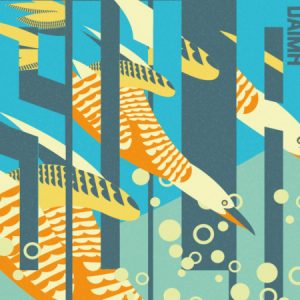
Goat Island Music GIMCD006
***** FIVE STAR CHOICE! *****
Dàimh (pronounced ‘Dive’), based around West Lochaber in the Scottish Highlands and the Isle of Skye, are a six-strong Folk Band Of The Year at the Scottish Traditional Music Awards and the Best Folk Band in Europe at the prestigious Folkherbst competition in Germany; Sula is the old Norse name of the gannet, the largest seabird in Northern Europe which is capable of diving into the water at speeds of 100mph. The band consists of fiddler and banjoist Alasdair White, bagpiper and whistle player Angus MacKenzie, fiddler Gabe McVarish, accordionist and mandola player Murdo Cameron, guitarist Ross Martin and the lovely Gaelic singer Ellen MacDonald, who is a rising star in Scottish music. The album was recorded at Black Bay Studios in the island of Bernera, near the coast of the Isle of Lewis, which holds the record of the most remote studio in the whole of the British Isles; it was put together during a dark and stormy December, and Sula immediately captures the band and what they do best in their natural environment.
Dàimh is the Gaelic noun for ‘Kinship’, and their music is wild, windswept and incredibly beautiful. The band’s bewitching sound is the skirl of the pipes, blending in with the chunky and insistent banjo, busy fiddles, free-flowing accordion and rock-solid guitar, inevitably building up to a Celtic crescendo that quickens the audiences’ heartbeats. A number of friends, including Breabach members Megan Henderson and James Lindsay helping out and bodhràn player Martin O’Neill (Instrumentalist of The Year in the Scottish Traditional Music Awards) are on the nine-track album; the varied and exhilarating mix consists of written and traditional Scottish tunes interspersed with the Gaelic songbook, sweetly delivered by Ellen.
Highlights are the opening three-tune reels entitled ‘If It Plays’, written by band members Angus, Murdo and Alasdair, the pretty waulking song ’Chaidh Mis’ A Dheubhal Imrig’ and the bouncy, bright fiddle-led ‘Miss McGregor’s Traditional Jigs’, which keeps the album bubbling and fizzing; Ellen’s interpretation of the Alasdair MacKinnon song ‘An Dubh Ghleannach’ shimmers in its beauteous splendour, and ‘Peggy Shrimpy Jonny’ is a trio of artfully-written dancing jigs and slip-jigs, composed by Gabe (‘Mrs Peggy Kirk of Laig’), Alasdair (‘Shrimpy’) and Angus (‘Jonny Took a Dive’). The whole collection signs off with Murdo’s fine-crafted instrumental ‘Altsasaig’, and Ellen demonstrates her unique and award-winning voice with her delicate rendering of ‘Ladidh Fhearchair Edghainn’; what an absolutely satisfying finish. If you can’t see and hear Dàimh, then go out and buy Sula – it’s the next best thing.
SIMON MAYER
Carolan
Acoustics CDACS082
***** FIVE STAR CHOICE! *****
As a student, Simon Mayer vividly remembers the first time he heard the magical music of the blind Irish harper and composer Turlough O’Carolan, who was born in the year 1670 and died in 1738. The year was 1973, and the Irish quartet Planxty were being booked for Reading University Folk Club by fellow student Hilary James; they played a couple of Carolan pieces, and Simon says: “I was immediately captivated by the strength and the grandness of the melodies. I subsequently became intimately acquainted with their first album and lost count of the times I heard their versions of ‘Si Bheag Si Mhór’ and ‘Planxty Irwin’. Carolan’s loss of sight through smallpox at the age of 18 caused an intriguing twist to his legacy. Unable to notate his own music, those who did failed to record the harmonies he must have used, given that he played a polyphonic instrument, the harp.”
Carolan’s influence stayed with Simon over years; he wrote many arrangements of his pieces for guitar, as well as duets, trios and quartets for the mandolin workshops that he regularly hosts. This entrancing album is the product; using multitrack recording, he was able to build guitar, violin, viola and all sizes of the mandolin family, with absolutely wonderful assistance from Florence Petit’s violoncello and Hilary James’ double bass, mandobass (an eye-popping and completely visual bass mandolin), bass guitar and her shimmering, sweet-and-stunning voice.
There’s a big surprise for anyone who has heard The Chieftains or Planxty’s interpretations of Carolan’s works; the title description is ‘Fantasias on themes by Turlough O’Carolan’, and it’s just out of this world. His sparkling violin bursts through the opening track, ‘Hewlett’, while the minor-themed ‘Princess Royal’ is a mandolin family delight, with mandola and mandocello to the fore; Simon’s string quartet heralds ‘Mrs Sterling’, with Florence’s prominent violoncello featuring, and Hillary’s unique vocals enhance the rare and beautiful Carolan song ‘Snowy Breasted Pearl’.
All 14 intelligent and inspiring arrangements on this album are a sheer revelation. The well-known pieces ‘Si Bheag Si Mhor’, ‘Lord Inchiquin’ and his solo ‘Carolan’s Concerto’ take on a bright new meaning, while ‘George Brabazon (Second Air)’ glitters and sparkles and ‘Katherine O’More’ leaves a great impression. The final track, ‘Carolan’s Dream’ played as a string quartet, wraps up the selection to a completely satisfying degree. Florence’s splendiferous accompaniment just cannot be beat, while Simon and Hilary’s winning musical partnership sparks amazement and applause from their ever-widening crowd of fans – long may their music forge on and thrive for ever more.
MICK’S QUICKS
► Spectacular Edinburgh fiddler and composer Gavin Marwick has recorded the really impressive Quarterdays: Whitsun (Journeyman Records, JYMQD002), the second of four Quarterdays EPs released in 2023. The six-track EP contains 12 entrancing new tunes, superbly written in the traditional style; he’s joined by wonderful Galloway harper Wendy Stewart, and they both explore the age-old celebration of Maytime and the early summer. Highly commended – the series will continue in August (Lammas, with Ruth Morris) and finally Martinmas in November. FolkWales verdict: Thumbs up!
► Seven-strong Balamuc, one of London’s leading Eastern European bands, release Tarkabarka (Independent label, no catalogue number), a lovely bunch of Romani songs, dialects and dances as well as choice film material from the Balkans. The album title translates as ‘colourful’, and leader and violinist Agnes Branner sings in an ancient Romani dialect known as ‘beas’ (boyash), which is inspired by the celebration of life and love, often played at weddings and parties. The musicians come from Hungary, Turkey, France, Ireland, New Zealand and the United Kingdom – colourful it certainly is! FolkWales verdict: Thumbs up!
► Wonderful Bluegrass/Americana songwriter and singer-guitarist Ed Snodderly was born and raised in Knoxville, Tennessee; his tenth album, the hypnotic, slow-burning Chimney Smoke (Majestic Records, MAJ0522) magically captures traditional Appalachian life, songcraft and storytelling with a modern Nashville twist. Ably abetted by The Shoestring Seven, a who’s who of veteran musicians, the 12 tracks are a delight; the final song is ‘The Diamond Steam’, a gem of a self-constructed masterpiece. FolkWales verdict: Thumbs up!
► UK-based The Meltwater Ghosts, who describe themselves as “a roots/americana country folk band”, release their debut album Stargazing (independent label, no catalogue number). It’s all very incongruous; I just can’t get my head around a Nashville-influenced pedal steel and heavy transatlantic drawl and songs about Lancashire hill-walking. Next! FolkWales verdict: Thumbs down
► Psychedelic folk duo Samana – Rebecca Rose Harris and Franklin Mockett – have spent the last few years building a studio by hand in the Welsh countryside, and they have released their own four-track EP called Dharma (The Road Records, no catalogue number). The etherial atmosphere is very reminiscent of peaceful, remote calm, interspersed with drifting harmonies; however, she veers towards pseudo-pop, and her low voice is a little hard to distinguish. They played two West Wales gigs on their mini-tour, in Cardigan’s Small World Theatre (June 1) and the Unearthed Festival in Solva (weekend of June 16). FolkWales verdict: Thumbs up!
MAY 2023
ÍMAR
Awakening
BMANN005
Ímar are an amazing Scottish-Irish-Manx alliance with deep roots extending into the now-dispersed Welsh band Jamie Smith’s Mabon, Talisk, Rura, Manran and Isle of Man musicians Mec Lir and Barrule – and now they have released their third album in a long-awaited five years. The personnel consists of irrepressible concertina ace Mohsen Amini, fiery fiddler Tomás Callister, rock-solid bouzouki player Adam Rhodes, Irishman and uilleann piper Ryan Murphy, who doubles on whistle and flute, and Norfolk-born Adam Brown on bodhrán and guitar. The band takes their name from a Norse king who was leader of Scotland and Ireland in the late ninth century; his descendants went on to rule the Irish Sea for hundreds of years. The cover artwork, by Bruno Cavellec, shows the becrowned hero with sword in hand, gazing out upon a sunlit loch.
The five band members met as teenagers through the Irish traditional network Comhaltas Ceoltóirí Éireann, which also stages the famous Fleadh contests. The trophy cabinet must be groaning now; as well as the BBC Folk Awards, they have stacked up nine All-Ireland and eight All-Britain titles between them, while Ryan is also a double winner at the prestigious Oireachtas competion.
Mohsen, Tomás and Ryan composed all the slides, jigs, reels and polkas, which are pretty tornado-like and played as only Ímar can. The only exceptions are the traditional reels ‘Maids of Mitcheltown’ and the Manx stormer ‘Jerrey yn Teihll’, ‘Paddy Kelly’s’ and ‘Rose In The Garden’, the last reel in the album – but surely nobody could dance to tunes played this fast! You begin to suspect that some gleeful prankster has speeded up the recordings to a very-high degree – but no, the band are unquestionably masters of their art and absolute world-class vituosos, and their performance is so teeth-grittingly tight and razor-sharp that it’s really impossible see the join. Andrea Gobbi laid the tracks down at GloWorm Studios in Glasgow city centre, and Alan Douches mastered the tracks in New York; and it’s a roaring whirlwind of a jaw-dropper.
Awakening kicks off with the three-tune ‘Bangers’; Mohsen and Tomás write the lion’s share and Ryan contributes three to the album. The percussive ‘Splinter O’Neill’ is dedicated to sound engineer Kevin O’Neill, also flautist with Treacherous Orchestra, and Tomas’s delicate ‘Waterhorse’ (also known as a glashtyn in Manx folklore) brings Ryan’s flute and pipes to the fore. ‘Eoghainn’s’ is dedicated to fellow musician Eoghainn Beaton, who suffered a road accident; Ryan created the tune, and his pipes steer the melody with a melancholy atmosphere. Tomàs creates a heartachingly beautiful air, called ‘Fenella’s’; and the band finally wrap up with a trio of written tunes (‘Legal Tǿnder’) and the roaring ‘The Tree of Life’, in which Callister and Amini swop exhilarating self-written material before the band climax with the sizzling ‘Rose In The Garden’.
If you’re looking for Ímar: file under Exceptional Celtic Music, cross-referencing with Leading Inspiring Innovators, and you won’t go far wrong!
MICK’S QUICKS
► Prolific songwriter and gravelly-voiced acoustic guitarist Malcolm Holcombe was born in North Carolina in 1955 and is a cancer survivor; following his diagnosis, both he and multi-instrumentalist Jared Tyler decided to make the impressive album Bits & Pieces (independent label, no catalogue number), recorded in country capital Nashville. He doesn’t let up at all, and he attacks all 13 tracks with positive energy and conviction with Jared multi-tracking dobro, lap steel, guitars, percussion and tenor banjo – it’s highly entertaining stuff. FolkWales verdict: Thumbs up!
► Andrew Hawkey, based in London but moved to rural Mid Wales in 1973, has celebrated his 80 years as a writer, solo performer, blues band member, producer and promoter with his compilation album Hindsight (Mole Lodge Records, MLCD003). All 17 tracks, from the 1969/1970 ‘Between Two Horizons’ to the same reprise song revived in 2022, is his musical life in a nutshell; the best track is ‘Help Me’ by Paul Grover’s Blues Zeros (1994) and the absolute nadir is ‘Take Me’, written by Jane Gilbert and himself (1984). All in all, a very patchy and uneven collection. FolkWales verdict: Thumbs down
► Now, this is an unusual, peaceful one; Sheffield cellist and composer Liz Hanks has recorded a 10-track album as she visualises her city before the houses, roads and steel foundries were built. Land (Hudson Records, HUD034CD) is touched with birdsong, bright water and stirring wind, her solo instrument creating soothing aural colours in beautiful simplicity. She names the tunes with one-syllable descriptions, such as ‘Meer’, ‘Keld’, ‘Carr’, ‘Ley’ and ‘Brier’ – it’s gentle nourishment for contemplative thought. FolkWales verdict: Thumbs up!
► The album A’ The Way To Galloway (JOM1CD) is a rare and lovely gem of traditional and composed songs and tunes from a part of Scotland whose music reserves wider recognition; singer and fiddler Jo Miller surrounds herself with Dalry fiddler Amy Geddes, Wigtownshire singer Robyn Stapleton, Jo’s son Neil Sutcliffe on piano, concertina and accordion and her husband Steve Sutcliffe on bass concertina. The 14 tracks are brimming over with local dances, beautiful airs and sought-after song material; ‘The Braes of Galloway’ is thought to be the source of the well-known ‘Gallowa’ Hills’, while the aptly-named ‘Miss Jo Miller/Barrow New Brig’ and ‘Polka Mazurka’ are bound to put broad smiles in everyone’s faces. FolkWales verdict: Thumbs up!
► Acoustic fingerstyle guitarist Jude Edwin-Scott is based in the north-east of England and releases Rambling Rose (Bellyhead 9 Records, BH9RCD09) as his seventh album; his playing is flashy, but his uninspiring songwriting and monotone voice leave a lot to be desired. Sorry, but it doesn’t float my boat at all. FolkWales verdict: Thumbs down
REG MEUROSS
Stolen From God
Hatsongs HAT025
Many years ago, when I worked for the Swansea Evening Post, I strolled through The Picton Arcade without realising that this parade of shops, and the named lane behind it, was dedicated to a man who became a hero – but he was branded a villain as well. Thomas Picton was born in 1758 in Haverfordwest, Pembrokeshire, and he was the first high-ranking officer to die in the Battle of Waterloo. However, as Governor of Trinidad, he maintained control through brutality, adopting the philosophy of: “Let them hate so long as they fear”. He horribly tortured Luisa Calderon, a 14-year-old mulatto girl who stood accused of being involved in the theft of £500, to get her to confess. But his name is celebrated in schools, pubs, on the streets and even in towns around the world – and there’s even a South Island ferryport and settlement in New Zealand which is named Picton.
The British State has a long-standing bad reputation of suppressing and smothering the history of the conquered lands; after all, how many people in Stoke Poges or Bexhill-on-Sea have heard of the grim scandal of the Welsh Not, which was systematically designed to rub out the Welsh language? Reg has an admirable reputation of songwriting and performing, but he admits: “How little I knew about Black History in Britain; how little I’d been taught growing up; how little I knew of Empire and how it was made; how little I knew of the grand mansions and the sprawling estates and the enormous handed-down wealth and the great men and women of history who symbolised greatness and colonial and racial superiority and to a large extent how their greatness was achieved, and at what cost to others.”
Stolen From God is a 10-track song cycle, conceived by Reg and revealing how the British Empire was built up – and it wasn’t just Britons who made the wealthy fabulously rich at the expense of Africa. The Dutch, the Portuguese, the French, the Americans were all complicit. The song cycle is a collaboration involving the Southern Senegalese virtuoso kora player and griot praise singer Jali Fily Cissokho, concertina wizz and member of the amazing trio Granny’s Attic, Cohen Braithwaite-Kilcoyne, singers Jaz Gayle and Katie Whitehouse and bass and percussionist Tom Jobling.
The first track, ‘The Jesus Of Lubeck’, describes the Devonian naval commander John Hawkins, who was determined to break into the slave trade, which was controlled by the Portuguese. ‘The Way of Cain’ focuses on Sir Francis Drake; the history books concentrated on the hero who vanquished the Spanish Armada, but left out his slave-trader dealings. ‘England No More’ is about Bristol, who grew fabulously rich on the slave trade; and ‘Good Morning Mr Colston’ centres on Sir Edward Colston, benefactor of Bristol but was a horrific murderous slave-trader too. After his death, Colston left the modern equivalent of £13-and-a-half million to the city, and at least six million of that to the poor and disadvantaged; ‘Stolen From God’ just about sums it all up.
‘Stole Away’ is a about Olaudah Equiano, written by himself in 1789; he bought his freedom from his Quaker owner from the age of 20 for today’s equivalent of £5,500. He married an Englishwoman and became a leading activist in the abolition movement. He died at the age of 52, 10 years before the slave trade ended, and is buried in Whitfield’s Tabernacle in London. ‘The Breath of England’ pinpoints the trial of James Somersett, who was bought in America by Charles Stewart and took him to London to be his servant. James escaped but was recaptured, forced onto a transportation ship and resumed life as slave in Jamaica. His English godparents took the case to Lord Mansfield, who ruled that laws in the colonies did not apply to Britain; by British law, you could own a man abroad but to own a man in Britain was a crime.
‘I Bought Myself an African’, ‘Bridgewater’ and ‘Stranger in a Strange Land’ complete a dark account of the age of slavery, and Reg instils a sobering and contemplative mood. You might think that the slave ships are past and gone – but modern-day slavery still exists. When will it ever finish?
BRUCE COCKBURN
O Sun O Moon
True North Records TND811
Respected Canadian songwriter and exceptional guitarist Bruce Cockburn can look back with complete satisfaction on a glittering 50-year career in which he has generated over 350 songs on 34 albums. His song styles range from folk to jazz-influenced rock and his lyrics tackle a broad range of topics including human rights, environmental issues, politics and Christianity. While other singer-songwriters of his age slowing down, Bruce has recorded a dozen new compositions as powerful as any he’s written – and on the eve of his 78th birthday as well. The opening song is ‘On A Roll’, and he attacks a resonator guitar with all the vigour of veteran blues heroes: “Time takes its toll, but in my soul I’m on a roll.”
Recorded in Nashville with his long-time producer Colin Linden, Bruce focusses on a newfound and simplicity and clarity, subjects more spiritual than topical; on ‘Orders’, he sings: “The just, the merciful, the cruel / The stumbling well-intentioned fool / The deft, the oaf, the witless pawn / The golden one life smiles upon / The squalling infant in mid-squall / The neighbours fighting in the hall / The list is long – as I recall / our orders said to love them all.” Or the quiet and gentle ‘Us All’: “Here we are faced with choice / Shelters and walls or open embrace / Like it or not, the human race is us all.” In ‘To Keep The World We Know’, Bruce hands out a stark warning about the growing threat of global warming: “Ashes and mudslides all around / Is this the way to go? / Got to think past your bank account / To keep the world we know.” For the hymn-like title track, he visualises the day when he will slip his mortal coil: “O sun by day, o moon by night / Light my way so I get this right / And if that sun and moon don’t shine / Heaven guide these feet of mine / to Glory.”
The final track, ‘When You Arrive’, is a slinky, lazy, gorgeous jazz tune, clarinet and saxophone to the fore with a memorable singalong chorus to beat them all – You know how you wake up in the middle of the night, and the melody and lyrics just won’t go away, no matter how you try to erase them from your mind? My friends, That definitely is an ear-worm…
All 12 tracks are out-and-out crackers, from ‘Push Comes To Shove’, ‘Colin Went Down To The Water’ and ‘King Of The Bolero’ to ‘When The Spirit Walks In The Room’ and even the delicate instrumental ‘Haiku’. I sincerely hope that it’s not Bruce’s last album; he’s got many more songs to give to mesmerise and delight his audiences around the world. But, as he said: “I’m on a roll” – Cockburn’s not retiring yet!
APRIL 2023
MICK’S QUICKS
- The long-lost and well-loved Aberjaber albums are thankfully back again, courtesy of the Spotify digital platform. Composer and musician Peter Stacey, harper Delyth Jenkins and fiddler Stevie Wishart are releasing the 1985 debut album Aberjaber, followed by Aber-dau-jaber (1988) and their swan song Y Bwced Perffaith / The Perfect Bucket. It’s a full-to-overflowing cauldron of traditional and composed Welsh, Galician, Breton, Irish and Scottish tunes – hours of listening heaven. FolkWales verdict: Thumbs up!
- When the big pandemic hit in 2020, Maine-born and Boston-based Americana songwriter and guitarist Ellis Paul turned to the internet to rescue the considerable drop in his earnings, doing livestream video shows and composing an impressive 40 new songs. The second hammer-blow was more serious; he was turning 55, and Dupytren’s contracture – a disease that tightly closes fingers into a fist – had settled in both his hands, making performing impossible. While he still had the time left, he recorded song after song; and this album (55, Rosella Records, ROSELLA002) combines 12 intelligent and thought-making tracks. The final one, ‘A Song To Say Goodbye’, is especially poignant. FolkWales verdict: Thumbs up!
- English folk pioneer, composer and diatonic accordion player James Kerry surrounds himself with a bunch of friends and leading instrumentalists – James Delarre (Mawkin, Topette!!), Tom Kitching (Pilgrim’s Way, Alberio) and Danny Tonks (Foot Down, Hilltop Band) – in a thoroughly sparkling and bouncy Source (JK2022CD). Eight tracks, from the proud opener ‘Brighton Camp’, the well-loved ‘Blue Eyed Stranger’ to the breathtaking jig ‘Verticulos’, run the gamut of traditional and Morris dances and James’ own hypnotic pieces; it’s a stonking little album, and well done! FolkWales verdict: Thumbs up!
- The Furrow Collective member and sophisticated songwriter Lucy Farrell releases her beautiful debut album We Are Only Sound (Hudson Records HUD035CD); the Kent-born and Canada-based musician has the audience well and truly hooked with her odd, unconventional melodies and the bewitching clarity of her voice, enhanced by her sparse, hypnotic tenor guitar and viola. Orcadian guitarist Kris Drever, M J Boulter and bassist Ben Nicholls assist assist with Andy Bell producing the 12 tracks, from the opening and very wonderful ‘Paperthin’ to the closing album title song; Andy stamps brilliant perfection in all his work. FolkWales verdict: Thumbs up!
- Northumbrian siblings Sam and James are The Brothers Gillespie, who have released the third album The Merciful Road (First Original Music TBGCD003), recorded in their grandma’s cottage on the banks of the River Tweed. They say that the eight tracks were “inspired by the grace of life in these troubled times.” Sam and James write a quiet, beautiful and completely relaxed collection, with only acoustic guitars and appealing vibrato harmonies left to themselves. The only traditional song, ‘When Fortune Turns The Wheel’, is so moving and completely timeless. FolkWales verdict: Thumbs up!
- Ville & Tommie are Finnish-Swedish fiddler Ville Syri and Helsinki-based Cornish accordionist Tommie Black-Roff, who met while studying at the Sibelius Academy in Helsinki; Stuffed Pockets (Penny Fiddle Records PFR2308CD) is their wonderful and promising nine-track debut album which displays an instrumental cross-border music that is steeped in dialogue and tradition, and it’s also a tribute to the Ostrobothnian fiddler Otto Hotakainen. From ‘Rikorpi #1 efter Carl Lindblad’ and ‘Slangpolska från Morko efter Anders Gustaf Andersson’ to the finishing ‘Barockullet’, both musicians never let up on the sheer enjoyment that they get while researching the culture of this western-coastal Finnish region and the Swedish Gastrikland; it’s thoroughly absorbing. FolkWales verdict: Thumbs up!
- Glasgow-based twenty-something Royal Conservatoire of Scotland graduates Gnoss are Orcadians Aidan Moodie (vocals, acoustic guitar) and Graham Rorie (fiddle, mandolin, electric tenor guitar) Perthshire’s Connor Sinclair (flutes, whistles) and Clackmannanshire’s Craig Baxter (bodhran and percussion); Stretching Skyward (Blackfly Records BFLY05CD) is their third album, and it’s a rip-roaring nine-tracker. While saluting Orkney’s rich history and tradition, they are increasingly moving out of their comfort zone into a contemporary and more boundary-breaking music. From the thrilling instrumental ‘Stroma’ to the restless song ‘Hard Times’, this one’s a little cracker. FolkWales verdict: Thumbs up!
- Three-time Canadian Folk Music Award winner and blues musician Michael Jerome Browne plays resonator guitar, 12-string guitar and gourd banjo with an expert finesse and hollers magnificently; Gettin’ Together (Borealis Records/Stormy Plain Records, BCD278) is a 14-track down-home delight, with his rough-and-ready vocals steaming and a-storming. The album just sizzles and bubbles, from the opening ‘Monday Morning Blues’ to the closing ‘Living With The Blues’ – in fact, the song titles mention ‘Blues’ eight times! FolkWales verdict: Thumbs up!
- Sister Ray is the moniker of Canadian songwriter and storyteller Ella Coyes; her debut four-track EP is called Teeth (Royal Mountain Records), but her lazy, drawling style of suspect diction, influenced by the commercial rock scene, just doesn’t float my boat at all. FolkWales verdict: Thumbs down
- I favourably reviewed the 2018 Sarah McQuaid title album If We Dig Any Deeper It Could Get Dangerous; but now Sarah has released the single ‘If We DUB Any Deeper It Could Get Dangerous’ (Shovel and a Spade Records), a new remix by Tim Norman of 1990s acid and ambient dub duo UVX. Huge mistake; Sarah’s beautiful lyrics are absolutely drowned out by irritating digital noise. I could go further, but I won’t. FolkWales verdict: Thumbs down
NATALIE MACMASTER & DONNELL LEAHY
Canvas
Linus Entertainment 270787
***** FIVE STAR CHOICE! *****
Award-winning fiddle sensation Natalie MacMaster from Cape Breton, Nova Scotia, and rip-roaring violinist Donnell Leahy were married in 2002; it was a match made in heaven. Their cumulative sales topped one million – and Donnell is from the legendary Leahy Family of Ontario, an intergenerational musical act that toured the world. This is only their third album together; but when the pandemic reared its ugly head, they were forced to stop working for two years.
They planned the album as a blank canvas. “Creativity comes when there is space for for it,” Natalie says. “One thing Donnell and I were given in 2020 was the space and time to be creative to think and focus and find out what was inside of us. Like an empty canvas, our minds were clear – open for the music that was about to flow. There were no restrictions, rules, agendas, considerations. As Donnell said: ‘Let the music decide.’ With a few musical challenges along the way, it was a delight from beginning to end.”
Canvas is big, brash and utterly beautiful, and husband and wife poured themselves into writing a completely original and colourful new music. There’s a minute-long introductory piece with echoey voices inviting the listener to come and join the dance – and then Natalie and Donnell’s fiddles just explode in the utterly stunning tune ‘Colour Theory’, featuring Flook’s whistle and flute player Brian Finnegan. Rhiannon Giddens is there, too, singing in Gaelic on ‘Woman Of The House’ (Natalie says that her grandmothers were very inspiring women, not only raising many good children but also sheared the sheep and tended the livestock when their husbands had to leave home to work for long stretches of time. They did it with peace and love, and this song is dedicated in their native language.) In fact, guest musicians and the couple’s children pop up in all the 13 tracks; American-Chinese cellist Yo-Yo Ma takes the lead in the serene and moving ‘So You Love’, The Macmaster-Leahy Children raise in chorus on the stirring ‘Galicia’, and Spanish guitarist Josemi Carmona stamps his magic touch in ‘Caramelo’. Their 17-year-old daughter, Frances Mary Leahy, not only plays piano on ‘Colour Theory’, ‘So You Love’, ‘Caramelo’ and the frenetic ‘Dance Arnold Dance’, but fiddles away on ‘Choo Choo’ – and she step-dances too.
Natalie and Donnell take their 11-strong musicians on a crazy helter-skelter ride through all the 13 tracks, from ‘Canvas’ to the weird and wonderful ‘Voice Memo’. The list includes five-string banjo, guitar, trumpets, saxophones and drums, and they co-produced a completely jaw-dropping full-on sound. You might not be able to discern the difference in their two styles, but it really doesn’t matter; either way, you’re listening to two of the best fiddlers on the planet. True-life stories in the entertainment world don’t come more remarkable than that.
JIM GHEDI & TOBY HAY
Jim Ghedi & Toby Hay
Topic Records TSCD615
Twelve-string guitarist and composer Toby Hay lives in the market town of Rhayader, or Rhaeadr Gwy in the Welsh language, and he has already recorded his solo album New Music For The 12 String Guitar. He says: “I am fascinated by the connection between landscape and music. My own music is inspired by the landscapes of the Cambrian Mountains, where I have lived all of my life.” Jim Ghedi comes from the South Yorkshire city of Sheffield and is something of a torch bearer for a new generation of experimental performers. Together they weave a bright, shimmering shower of mesmeric music that fascinates and delights their elated audience. This eponymous album is the second collaboration after The Hawksworth Grove Sessions in 2018. It was originally to be recorded in 2020, but the pandemic intervened; the album was eventually released in the end of May this year.
The album was recorded live in three days at the Giant Wafer Studios in rural Mid-Wales, which is located just half a mile from the A483 and the hamlet of Llanbadarn Fynydd, and the result is a beautiful collection of streams of consciousness; it’s spiced with human warmth but it’s also tinged with desolate wildness, just like Toby’s compositions when he is inspired by the lonely mountains. The opening track, ‘Bright Edge Deep’, was taken from a Seamus Heaney poem entitled ‘Digging’ and was released as an introductory single. It was the first track that Jim and Toby wrote for this album, after an almost two-year break from playing together because of the pandemic; the tune is a immediate, tumbling waterfall of sound of only two guitars, Jim on the six-string and Toby on the 12-string, and they have a magic knack of blending, blossoming and combining with each other – a ringing, singing, sparkling and unique sound.
‘Moss Flower’ and ‘Bridget Cruise: 3rd Air’ are heartachingly gorgeous; ‘Bog Cotton Jig’ just makes you want to dance. Toby wrote the shining and delicate ‘With The Morning Hills Behind You’ for his late grandmother, and ‘A Year And A Day’ is syncopated and totally hypnotic. The unsettling ‘Skeleton Dance’ and the booming, growling ‘Seasoned By The Storm’ shakes many listeners awake, and ‘Suo Gân’ salutes the rich Welsh tradition. Last but not least, Jim composed ‘Gylfinir’ for the duo’s mutual friend, the artist Keith How.
Jim and Toby are embarking on a four-show promotional tour, starting with Cardiff’s Chapter Arts Centre on June 10, 2023, The Lost ARC in Rhayader on June 11, The Greystones, Sheffield on June 12 and The Old Church in Stoke Newington, London on June 13.
JOY DUNLOP
Caoír
Sradag Music SRM008
***** FIVE STAR CHOICE! *****
Whenever I hear that Joy Dunlop is performing, it’s as though spring has sprung, birds are tweeting and the beaming sun is spreading benevolent warmth on everyone. This happy, wonderful album is no exception; according to the dictionary, Caoír is Scots Gaelic for a firebrand or a “blaze of fire, fiercely burning, accompanied by noise.” Soprano-voiced Joy leads the sparkling way, and she’s accompanied by some assured musicians who must possess the coolest sounds in the whole galaxy; super guitarist Ron Jappy, Mhairi Warwick’s singing, dancing fiddle, bassist Gus Stewart, drummer Ifedade Thomas and Euan Malloch on jaw-dropping electric guitar – a really impressive and fine bunch, perfectly showcasing a really impressive and fine vocalist.
Raised in the small village of Connel, north of the neighbouring town of Oban on the west coast of Scotland, Joy was steeped in the musical traditions of her native Argyll since childhood. She firmly sticks to these roots as well; she has risen steadily and lauded as an artist with a string of awards, including the Royal National Mòd Gold Medal and two consecutive nominations as Gaelic Singer of the Year. She has toured Europe, North America and New Zealand and performed at international festivals, including Glasgow’s prestigious Celtic Connections and the marvellous Celtic Colours in Cape Breton, Canada. A passionate ambassador of the Gaelic language and culture, Joy is also keeping busy as a television presenter, step dancer, journalist and educator; she’s a communicator renowned for her magical ability to spark new life into the most traditional of this ancient and proud music, and the emotive power of her shimmering voice needs no translation.
The first track lights the blue touchpaper immediately, and it explodes with a wild abandon; the two-part ‘Jigs’ combine ‘Nighean Ruadh Bhàn’ (The Auburn-haired Daughter) with ‘Chruirinn Mo Ghiollan a Dh’iomain Nan Caorach’ (I’d Send My Servant to Drive the Sheep), and she tempts the band to follow her on a gorgeous dance with her sweet, high voice; Ron, Mhairi, Gus, Ifefade and Euan are absolutely soaring and coasting, creating such mind-expanding arrangements to boot. Joy follows with ‘Ged Is Grianach An Latha’ (Although The Day Is Sunny), a traditional waulking song originally sung during the tweed and tartan-making process; the “O hao ri ri ho ro” chorus is pretty mesmeric. She first heard the wonderful singer Mary Jane Lamont performing ‘An Braighe’ (The Braes) when she spent six months living and working in Cape Breton, in the small village of Mabou; this beautiful melody was written at the beginning of the 20th century by Malcolm Gillis. Joy also heard the popular waulking song ‘Mo Nighean Donn Hò Gú’ (My Brown Haired Girl Hò Gú) from Kathleen McDonald, of the McDonald Sisters fame; she writes in the notes: “One of my favourite aspects of Gaelic song is the wealth of variations that you can find.” This version is markedly different, and Joy decided to include Kathleen’s verses; the interpretation really adds glitter. The relatively new song ‘Cadal Cuain’ (Sleep Of The Ocean) was written by North Uist bard Celtidh Morrison and composed by Skye singer Kenna Campbell, and Joy embellishes the heartbreakingly beautiful melody; while she copes brilliantly with the stunning medley of four mind-boggling tongue-twisting Puirt à Beul (or mouth music) songs, firmly anchored in the Scots Gaelic tradition.
One of the strangest legends consists of the Cailliche Bheur, a one-eyed giantess who lived on the island of Erraid in Mull; she had to go to Loch Ba to bathe and be rejuvenated, but she had to reach the loch without hearing a dog bark. One day she met a shepherd and his dog, and the dog certainly barked with fatal consequences for the giantess. As she lay dying, she sang a one-verse song, which was transcribed from the singing of Captain Dugald MacCormick of Fionnphort in Mull; this new melody and subsequent verses are original and composed by Alasdair Mac’illeBhàin, and Joy expands and develops ‘Bàs Na Cailliche Bèire’ (The Death of The Cailliche Bheur). ‘Duthaich Mhicaoidh’ (Mackay Country) was said to have been written by Euan Robertson shortly after the terrible clearances in Sutherland in 1819 and 1820; and Joy and her band neatly polish off the concluding two-part ‘Reels’ as a satisfying finisher. She says: “As a step dancer, there’s nothing that I like better than a set of reels, and these two have a great percussive feel to them.” She got the first reel from Gaelic powerhouse Kathleen MacInnes, and the second reel – ‘Siud An Rud Thogadh Fonn’ (That’s What Would Raise a Tune) is now a Mòd classic, thanks to a cracking choral arrangement by fellow Connel girl Sileas Sinclair.
I’m earmarking Caoír as a truly great album and one which I’ll play over and over again – in fact, her first name is a perfect epithet for an artist who brings so much life-affirming feel-good radiance to her audiences near and far. Diolch yn fawr, Joy!
RURA
Dusk Moon
RURACD005
***** FIVE STAR CHOICE! *****
Rura is one of the most exhilarating and exciting bands in the Scottish folk scene today. You quickly run out of superlatives when it comes to describing this four-man Glasgow-based quartet; my mind hovered over the wonderful atmosphere they create as describing a Celtic Coldplay, but it’s extremely wide of the mark. Rura’s musical set is entirely instrumental; these are really outstanding musicians, and the complex and complicated rhythms are a sheer jaw-dropping revelation. This album is their fourth studio release, and all four dive in with composing and help to shape this intoxicating wall of sound that Rura are so famous and respected for. Dusk Moon is a totally inspiring fusion of the old tradition and a new, brilliant spark.
The personnel list is piper and keyboardist Steven Blake, fiddler Jack Smedley, flautist and bodhrán player David Foley and guitarist and bassist Adam Brown, who comes from East Anglia. They have performed in more than 20 countries, won multiple coveted awards and thrilled audiences from Cambridge to Shetland and from Tonder to Winnipeg. Producer Euan Burton has teamed up with the band again, and the whole nine-track album was recorded in the Gorbals Sound Studio in Glasgow.
The opening tune – ‘Journeys Home’, composed by Steven – was the soundtrack on a short film commissioned as part of Edinburgh’s famous Hogmanay celebrations; Rura were honoured to produce the film. The title track follows after, and Jack was inspired by the work of artist Calum E. McLure’s painting ‘Dusk Moon’, which is reproduced on this CD’s front cover. ‘Think of Today’ is Jack’s lovely tribute to his wife Fiona, written on their wedding ceremony; and David’s ‘The Soft Mist Over All’ was gifted on their wedding day to Graeme and Carly Armstrong, two great friends and wonderful musicians from the Scottish borders. Adam, Jack and Steven created the breathless, rip-roaring ‘The Grove’, dedicated to one of Adam’s favourite haunts in Glasgow’s West End, and ‘Rise’ is Jack and Steven’s two-tune medley marking the two-year lockdown of uncertainty and standing still and celebrating freedom and a busy year ahead. ‘The Crossing’ describes the infamous two-hour ferry journey Jack took to the island of Colonsay. The last track, a Foley-Smedley-written barnstormer christened ‘A Minor Emergency’ comprising three tunes named ‘Billy On The Bodhrán’, ‘The House On The Hill’ and ‘The Reel o’ Garten’, just finishes the set completely. And that was some album – pause for breath…
The pipes, guitars, bodhrán, flute, fiddle and assorted instruments masterfully jell and blend with such stunning precision and alacrity. Rura are certainly going places – this time, right to the top.
SNAARMAARWAAR
Lys
Trad Records TRAD024
***** FIVE STAR CHOICE! *****
Snaarmaarwaar is a trio of amazing Belgian musicians, made up of mandola player Maarten Decombel, guitarist Jeroen Geerinck and mandolinist Ward Dhoore. They have spent the best part of 20 years touring in Belgium and countries all over the globe, armed only with these three acoustic instruments – but whenever they perform, they strike a magical live spark with their invigorating and uplifting tunes. Their latest offering refers to the fascinating winding path where their music has taken them, just like the wonderfully meandering river Lys between the city of Ghent and the little town of Deinze.
Snaarmaarwaar’s sound is lovely, fat, bouncing melodies played with a proud, fierce energy. Maarten composes all the music, which is entirely instrumental; it’s a breathtaking, inventive mastery, and a lot of serious thought has gone into those brilliant arrangements. For Lys, it was definitely back to basics; their previous album, B.L.O.C.K, was pretty lavish with heavy overdubs and multi-tracks, but Lys was recorded in the simplest way. The three crowded round a single microphone in Studio Trad in the municipality of Erpe-Mere, located halfway between the cities of Brussels and Ghent. The studio is owned by Jeroen and Ward, and Snaarmaarwaar rediscovered that special thrill that musicians get when they play delicate instruments magnificently fashioned of wood, created from the fine art of a luthier.
Maarten, Heroen and Ward’s music resembles a shower of exhilarating notes, and the whole album completely nourishes the mind. ‘Black Frost’ is the chunky opener; when Belgian fishermen set sail to Iceland, ice would form on the vessel’s mast and superstructure, leading to capsizing in as little as half an hour. The following ‘Planchemouton’, two gay and proud bourées, is the inspiration for the plateau de Millevaches in the French Limousin, and ‘Fleur de Lys’ is a fragile mazurka, reminiscent of the river. The hypnotic and andro-like ‘Kopstekker’ sounds like a kopstekker – in Belgian terms, a ship that sails right to its destination, ploughing through the waves. The quiet ‘Dubio’ piles string upon string in its serenity, and the pretty waltz ‘Julos’ is a tribute to the Walloon singer-artist Julos Beaucarne, who passed away. ‘Nomis’ is a memorable slängpolska, and the colourful ‘Davina Flor’ vividly illustrates the universe of the author Gabriel Garcia Marquez and one of his most striking characters. Lastly, the celebrative ‘Fugenzo’ marks the blossoming of the first cherry trees that herald the end of winter, and the guitar, mandola and mandolin are absolutely singing – a perfect finish.
Incidentally, Jeroen and Ward have joined forces to create Trad Records, an independent label who is proudly flying the flag for the go-ahead Belgian folk and acoustic community. I must confess that Trad is one of my favourites!
MARCH 2023
MICK’S QUICKS
- Iona is a very special island on the West Coast of Scotland; Dr Paul Anderson MBE, honorary fellow of the University of Aberdeen, is one of the most respected fiddlers, composers and teachers. The 19-track album Iona (Fingal Records, FINCD508) is his incredibly beautiful interpretation of the people, history and landscape, part of an artistic work called In The Footsteps Of Colm Cille; various musicians accompany him, including Steve Byrne (bouzouki), Brian McAlpine (keyboards), Dr Jack Taylor (Highland bagpipes) and Peter ‘Puma’ Hedlund (nyckelharpa). Francy Devine reads his own poems and Shona Donaldson sings the closing hymn ‘Light Of The West’. FolkWales verdict: Thumbs up!
- The thoroughly delightful album Terra Kunda (Arc Music EUCD2963) showcases musical virtuosos Gao Hong and Kadialy Kouyate, and an exciting combination of two of the most mesmerising and captivating stringed instruments, the Chinese pipa and the West African kora. She’s a renowned pipa master, composer and performer, and he’s a Senegalese musician, singer, songwriter and teacher; they expertly weave 10 peaceful and oh-so-calming works, from ‘Kora meets Pipa’ to the closing ‘Joyful World’. It’s blissfully sublime, verging towards nirvana. FolkWales verdict: Thumbs up!
- Indiana-based guitarist/singer Tim Grimm has built his 25-year music career as a storytelling balladeer in the tradition of John Prine, Woody Guthrie and Bob Dylan; his latest album, The Little In-Between (Cavalier Recordings, CR255632) is an absorbing nine-track work of penetrating writing that really grabs you and implores you to listen. From the opening song ‘The Leaving’ to the closing ‘Bigger Than The Sky’, his rugged voice opens many doors. FolkWales verdict: Thumbs up!
- When she was just 21, Canadian singer-songwriter Meredith Moon taught herself to play banjo by listening to Youtube videos; her debut album, Constellations (True North Records, TND807) is a fabulous collection of really pretty but hard-hitting compositions, enhanced with her plain-and-simple voice, impressive dancing banjo (‘Needlecase Medley’ is a corker), acoustic guitar and lovely fiddle. Meredith has taken it upon herself to tour independently in Canada, Central America and Europe; She’s also Gordon Lightfoot’s daughter. FolkWales verdict: Thumbs up!
- Midlands-based folk-Americana singer-songwriter Craig Gould has had his share of mental health issues, and he’s donating all the proceeds of his 10-track debut album Songs From The Campfire (independently released, no catalogue number) to the charity CALM, Campaign Against Living Miserably. He has a startling vibrato voice and a rippling acoustic guitar; but no matter how the folk and music media praise him, his work – from ‘The Campfire Song’ right down to the closing ‘Story Of Life’ – just leaves me cold. Sorry… FolkWales verdict: Thumbs Down
- This one’s a little cracker! Fiddler and composer Gavin Marwick (Firelight Trio/ Bellevue Rendezvous/ Iron Horse) and cittern player Aaron Jones (Old Blind Dogs/ Litha/ Claire Mann) have recorded a six-track EP called Quarterdays: Candlemas (Journeyman Records JYMCD001) where the aspects of Candlemas are illustrated through fabulous jigs, reels and beautiful airs. These two can make their instruments sit up and beg; they soaringly fly by wire, with no session musicians to speak of. No voices, just breathtaking melodies – absolutely fabulous. FolkWales verdict: Thumbs up!
- Born in London and raised in Leicester, Roopa Panesar is considered to be one of the finest sitar players to emerge on the Indian arts scene; her album, Atma (Indian Arts Agency AAA209) was recorded in Real World Studios, and the musicians include tabla player Shahbaz Hussain, double bassist Ben Hazelton, Parashanna Thevarajah and Kaviraj Singh Dhadyalla (santoor and tanpura). The seven tracks, from ‘Journey Home’ to ‘Farewell My Love’, just blend in magically to an intense and perfect degree; it’s strangely appealing and intoxicating. FolkWales verdict: Thumbs up!
- Now, this is a totally weird one. Toronto-based and Nova Scotia-born musician, composer and holder in a Ph.D in Ethnomusicology from York University Pete Johnson and his quartet Stranger Still have released Stranger Still – The Songs Which Are (All-Set! Publications AS016) as a tribute to well-loved Nova Scotian poet Alden Nowlan (1933-83). Unfortunately, experimental music doesn’t jell at all well with the 11 poems to a jarring degree. Definitely not my scene. FolkWales verdict: Thumbs Down
MEGSON
What Are We Trying To Say?
EDJ Records EDJ033
It’s their first studio album in four years – and in a career spanning two decades, Teesside-born husband-and-wife Stu and Debbie Hanna have pooled their opposite backgrounds of punk musician and classically-trained singer and conjured their craft to emerge as the most original, charismatic and distinctive couples in the big wide world of folk music. They now live in Cambridgeshire, but they champion the songs of their native North-East – in fact, they stand head and shoulders above most acts in the commercial rock music scene as well. The Hannas grab you firmly by the whatsits with their in-your-face attitude, stunning harmonies, never-to-be-forgotten melodies and brilliant wordplay. They have mastered the art of being both gritty and sensitive, partisan and passive with material that resonates deeply and gets straight to the heart of the human condition.
Megson – named after a late canine friend – is their thirteenth album, written through the pandemic when they were faced with media headlines at every turn on mobile phones, radio, television and internet. The period of fear and uncertainty, not knowing what to believe, sewed the seed of this 10-track collection – for instance, the war criminal Putin and the right-wing Westminster Government are past masters of deceiving the gullible masses with media disinformation. What Are We Trying To Say? shows fellow musician Jess Morgan’s artwork of two people who have turned their backs on nature and the vivid sunset; their only interest is the mobile phone and computer. Stu explains: “Right now it feels like so much of the information we get about the world is from the media we listen to, watch, read, scroll through, get drawn into and sometimes find hard to forget. 2020 brough into sharp focus how important media was for keeping us informed of the constantly changing world. We needed it to keep us safe, but sometimes it made feel unsafe.”
The opening title track blasts the tabloid press in their greedy hunt for headlines: “Watching the prince and his bride, bound to make a good story and must be something to hide.” ‘Keeping Him On’ follows, and explores the darker side of news gathering; the media’s relationship with world leaders can leave news consumers confused and in the dark: “Now he’ll never let go and we never will know quite where they’re pointed their guns till the damage is done.” The punchy ‘Before I Know It’ pokes fun at our time-wasting mobile phone scrolling and love of search engines at the expense of real life. ‘Next Year’ was written just before the 2020 lockdown, and it reminds all and sundry of our good intentions and resolutions to be ‘better’ – and ‘Anastasia and William’ is a true story of the Darlington Northern Echo editor William Stead, whose romantic dalliance with Russian writer Anastasia Romanova Krandievskaya was broken when she read attacks on him in the Russian revolutionary press. She later regretted spurning him, only to learn that he had died on the Titanic while on his way to a conference aimed at the cessation of all wars.
‘The Conspiracy Trap’ is very relevant at a time when wild ‘flat earth’ theories are multiplying like rabbits, and ‘We Are Better Than This’ turns into an upbeat singalong mantra. Stu and Debbie focus their attention on two North-East songs; ‘Canny Old Blind Willie’ is about the death in 1832 of famous Tyneside concert hall songwriter and performer William Purvis, and ‘The Barber’s News’ pinpoints the gossiping hairdresser who spread rumours about a sea monster swimming in the River Tyne. Megson sign off with ‘And Finally’, the end of the TV news where the sometimes bizarre but feelgood stories are generated; the song was influenced by an second-hand book they found, entitled Whitstable Mum in Custard Shortage – it contained classics like ‘Psychic show cancelled to unforeseen circumstances’.
What Are We Trying To Say? never lets up on sheer entertainment, coupled with razor-sharp politically-focused lyrics to boot. It might be their thirteenth album, but I’m crossing my fingers and betting a pound to a penny that it won’t be their unlucky one.
SALT HOUSE
Riverwoods
Hudson Records HUD033CD
***** FIVE STAR CHOICE! *****
One of the most worrying things about climate change and man’s meddling with nature – apart from raging forest fires, intense floods, deadly storms, total drought and the decimation of the entire human race – is the fate of the Atlantic salmon. The salmon are an incredible species, migrating thousands of miles during their lifetimes before returning to the rivers where they were hatched, to spawn the next generation. However, all is not well. Peter Cairns, executive director of the charity Scotland: The Big Picture, estimates that just three per cent of the young salmon who leave Scotland’s rivers are returning as breeding adults: “The reasons are complex and not fully understood – but we know that the health of Scotland’s rivers, and all the life within them, is dependent on the health of the landscapes through which they flow.” Peter’s concern is compounded by BBC News, which reported that salmon in Wales, England and Scotland could disappear in the next 20 years.
Scotland: The Big Picture launched Riverwoods in 2022, a feature-length documentary which is now complemented by the beautiful, evocative music of Salt House – Lauren Maccoll, Ewan Macpherson and Jenny Sturgeon. Salt House’s sound is a tone-poem of complete serenity, an echoey vision of peaceful, bright and pure streams and healing rivers – and Riverwoods is a rallying call to regenerate the woodland that once shaded the rivers and to rewet the peatland that has been drained and burned. The eight composed tracks are a delicate and desolate warning; ‘Her Silver Spine’, the opener, is the trio’s introduction to Scotland’s scenic, timeless grandeur; ‘The Dipper’ beckons you to follow, and ‘Unspoken Words’ is a work of great significance.
Lauren’s fiddle and viola blends with Ewan’s gentle fingerstyle guitar and Jenny’s keyboards and harmonium; Jenny and Lauren’s voices knit perfectly with Ewan’s gentle vocals in ‘Birch Lines’, and the instrumental ‘River Redds’ and the sung ‘The Loom o Morn’ just flow on, just as the striking tributary-like design in the CD cover. ‘The Salmon Run’ and and the poem ‘Headwater’ close the album to make perfect finishers. An array of instruments compliment Riverwoods; synths, mandolin, percussion, bass, piano. Andy Bell produced the album and conjured his masterful magic; just seeing his name and knowing that it’s a wonderful work is praise indeed.
THE YOUNG ‘UNS
Tiny Notes
Hudson Records HUD036CD
***** FIVE STAR CHOICE! *****
In 2018, 22-year-old Paige Hunter began tying handwritten messages into the railings on the Wearmouth Bridge in Sunderland, urging desperate people not to take their own lives. Her notes have been responsible for saving the lives of at least 30 souls, and they have inspired others to leave similar messages on bridges around the world – and the song ‘Tiny Notes’ began to take shape.
Stockton-based The Young ‘Uns – stunning songwriter Sean Cooney, David Eagle and Michael Hughes – pin you right back with their elemental acapella harmonies and important true stories of miniscule glimmers of life-affirming hope in a very dark world. For example, the opening song ‘Jack Merritt’s Boots’ was written in the The Guardian by his father, David Merritt, as a telling, loving and really incredible tribute to his son, murdered with his colleague Saskia Jones, in the Fishmongers’ Hall and London Bridge terror attack; he urged readers to “borrow his intelligence, share his drive, feel his passion, burn with his anger and extinguish hatred with his kindness” – and to “walk through the door he had booted down with his black Doc Martens”.
There are three vignettes, or tiny notes, by Anne Lamb, who sings ‘Book’, Lucy Farrell (‘Bird’) and Karine Polwart (‘Mountain’); the string quartet are violinists Liz Rossi and Natalie Purton, Helen Bell on viola and ‘cellist Liz Hanks, beautifully arranged by Jon Boden. The whole album was produced by Andy Bell; and Andy took the photos.
‘Three Dads Walking’ pinpoints Andy Airey, Mike Palmer and Tim Owen who had walked 300 miles from their homes in Cumbria, Manchester and Norfolk in memory of their daughters, Sophie, Beth and Emily, each one taking her own life. Since then, the dads have raised one million pounds for Papyrus, the charity which prevents suicide in the young, and are petitioning the Westminster Government to include suicide prevention on the school curriculum. The Young ‘Uns tribute ‘Richard Moore’, born in Derry which he describes as “a war zone”. He was blinded as a child by an Army rubber bullet; he slowly rebuilt his life and founded Children In Crossfire, the charity which helps vulnerable young people in developing nations. In 2007 he found, befriended and forgave the soldier who fired the bullet. The Dalai Lama wrote: “I preach forgiveness. Richard Moore lives it.”
‘Hand Over Hand’ is an account of nine members of a family who were caught in a rip tide on the Panama City beach in Florida; all was nearly lost, until 80 nameless strangers locked arms and legs and formed a human chain that saved the children, parents and a grandmother from drowning. The rescue lasted an hour until the entire family were safe; however, the 80 strangers had vanished. ‘Lyra’ is in memory of Lyra McKee, an investigative journalist from Belfast, who was killed when she was observing a riot in Derry; and ‘Trespassers’ is the last of the 17 songs which were written for The Young ‘Uns’ theatre show, The Ballad Of Johnny Longstaff, which told the story of acts of civil disobedience, advocating the Right to Roam in the 1930s. The most famous trespass took place on Kinder Scout in Derbyshire in April 1932, which eventually led to the creation of the National Parks.
In 2018, Rachel Robertson asked The Young ‘Uns to write a song for her brother, one of 270 passengers killed in the PanAM 103 Lockerbie bombing on December 21, 1988 and 11 on the ground. ‘Tim Burman’ is the result; he was only 24 years old and was flying to New York to spend Christmas with his girlfriend. Rachel said she did not see it as sad, but a love song designed to keep the Lockerbie families’ campaign for justice alive. In contrast, ‘Roseberry Moon’ describes a photograph taken by Steven MacDonald in February 2021 of a couple silhouetted by Roseberry Topping, a famous hill on the North Yorkshire Moors; and ‘The Surgeon’ is an account of David Nash, volunteering in Syria. He was confronted by a group of Isis fighters in Aleppo, who led him to their young colleague who was clinging to life. The surgeon saved the fighter – and he said he would do it again.
The last song of this astonishing album is ‘Inventa’, a ship belonging to the Jugend Rettat youth rescue, a non-governmental organisation from Berlin, and their goal is to rescue those drowning in the Mediterranean. So far, the ship has saved 14,000 souls; but in 2017 Inventa was seized, and her crew are awaiting trial, accused of colluding with the people smugglers.
This is a a vital, meaningful collection that shines a bright searchlight on acts of caring concern, of bravery and loving deeds that help to make the world a better place. Full marks to Cooney, Eagle and Hughes for showcasing the unpublicised stories of basic humanity – and those inspiring three-part voices are the solid bridge to make it a really classic album.
FEBRUARY 2023
TAPESTRI
Tell Me World
Shimi Records SHIMICD0028
Singer-songwriters Lowri Evans and keyboard player Sarah Zyborska live many miles and a good few hours’ drive between North and West Wales – but a chance encounter at the 2019 Festival Interceltique de Lorient sealed the musical bond. They were both booked as solo artists at the Welsh Pavilion in this enormous August celebration on the Breton coast, and it only took a moment for these two to actually meet. Lowri and Sarah both clicked, and the idea of forming a female-fronted duo was quickly taking shape. However, the long pandemic and the year-long covid lockdown intervened. They kept going by releasing three Welsh and English singles, and now their debut album is ready; it’s chock-full of folk-influenced roots and Americana, and those lovely, perfect harmonies bear the impressive Tapestri trademark – it’s true magic indeed.
Tell Me World is so-o-o beautiful and beguiling; the album looks at the world from a woman’s perspective, and the opening title focuses on the complex nature and the impact of domestic abuse, and ‘Waiting In The Background’ tells the story of women patiently biding their time. ‘Save Your Love’ and ‘Workshop’ are heart-achingly delicate, and ‘She’s A Lover’ was inspired by Lowri’s ‘once met, never to be forgotten’ mam! ‘Come Alive’ shows re-emerging into the world after the pandemic; ‘Y Flam’ describes the allure and all-consuming nature of being in love, and the closing song ‘Atgofion’ homes in on the bittersweet feeling of hiraeth, being far from home.
The album was recorded at StudiOwz, Shimi Studios and Penhesgyn Studio in Wales; a band of musicians keep the 10 tracks bubbling and fizzing, including Lowri’s partner Lee Mason, George Whitfield on accordion, Henry Priestman on Hammond organ and David Hartley on gorgeous pedal steel. No doubt about it – Tell Me World grows on you!
MICK’S QUICKS
- In Indian tradition, ghazals are amatory poems caused by the pain of love, and thumris are highly sensual pieces derived from a Hindi verb which means “to walk with a dancing gait in such a way that the ankle-bells tinkle.” Composer and violinist Deepak Pandit teams up with stunning female singers Kavya Limaye and Pratibha Singh Baghel in an inspiring European fusion made by the Budapest Symphony Orchestra, in the wonderful digital album Ghazals and Thumris – From The Musical Heart of Budapest (Sufiscore); it’s amazing, so beautiful and uplifting. FolkWales verdict: Thumbs up!
- Scottish singer-songwriter Colin Macduff recently emerged through the Bird On A Wire mentorship fostered by Boo Hewerdine and Findlay Napier; The Past and The Sky (CNM20221) is his debut album, and he infuses his story-driven songs with a distinctive blend of humanity and humour. His gentle voice and rippling guitar stands alone, and leading musicians Angus Lyon (accordion) and Jenna Reid (fiddle) provide the lightest touch of accompaniment. FolkWales verdict: Thumbs up!
- Gaelic singer and composer Gillebride Macmillan displays his second album, Sèimh: The State Of Calm (Independent release, DEALA003); it’s a wonderfully crafted collection with powerful songwriting and subtle arrangements, and a host of singers and musicians including Karen Matheson, Maighread Stewart, Mairi Macmillan, Fraser Fifield (whistles, soprano saxophone), Mhairi Hall (piano harmonium), Ewan Macpherson (guitars, mandolin) and Deirdre Morrison (fiddle) all contribute to the sénse of quiet peace. FolkWales verdict: Thumbs up!
- Canadian country singer and award-winning songwriter Lynn Miles surrounds herself with a spectacular array of stand-up bass, mandolin, dobro, banjo and violin in her latest lovely album TumbleWeedy World (True North Records, TND802). Her performance sparkles from start to end; her emotive voice always remains central, carrying each lyric with a breathtaking clarity and a heart-wrenching emotion. It’s just superb. FolkWales verdict: Thumbs up!
- Now, this is so beautiful; Swedish folk/Americana artist Sofia Talvik teams up with German ‘cello genius David Floer to create the duo Hansan and the album Blod eller Bläck (Blood and Ink – independent label.) Sofia smooths a flurry of self-written songs with her little-girl voice and David paints a shining rainbow with his instrument. FolkWales verdict: Thumbs up!
- Singer-songwriter Chris Cleverley releases his fourth 11-track album, Broadcast The Secret Verse (Opiate Records 003), with his complex fingerstyle guitar always a familiar and well-loved trademark. The problem is that his verses are too secret; his tenor voice is absolutely drowned in a welter of instruments, and his words are unclear and indiscernible. The last song, ‘If I’d Have Listened’, saves the day, and his lyrics come shining through. FolkWales verdict: Undecided…
- Veteran singer-songwriter Ian Walker’s compositions have been covered worldwide, but the 18-track album We Come To Sing (Vangel Recordings VANCD016) by the three-strong The Ian Walker Band is very much a curate’s egg; nice harmonies, a mix of Ian’s material, familiar oldies (‘Will Ye Go Tae Flanders?’ ‘The Water Is Wide’) and a few Scottish stellar session men, including ex-Battlefield Band member Alan Reid, John Graham of The Clydesiders and The Red Hot Chilli Pipers’ Stevie Lawrence). Unfortunately, American country crooner Jimmy Scott lets loose on Sandy Denny’s ‘Who Knows Where The Time Goes?’ and Richard Thompson’s ‘Dimming Of The Day’ – most embarrassing. FolkWales verdict: Thumbs down
- Peach & Quiet, aka Jonny Miller and Heather Read, release their second album from their log cabin on Canada’s West Coast (Beautiful Thing, Peach & Quiet Music, P&QCD002); unfortunately, Jonny writes nine Americana-influenced songs with a barrage of ear-battering harsh electric guitar. Heather does save the day with her three beautiful voice-enhanced creations – but if they do tour across the pond, I wouldn’t mind betting that British audiences will dismiss them as just another transatlantic rock band. FolkWales verdict: Thumbs down
- Is Nighttime a female singer-songwriter or a band? Even so, her album Keeper Is The Heart (independent label), her uninteresting voice and so-samey spacey creations isn’t worth getting out of bed for. With trendy echoing engineering and her suspect diction, what is she singing about? FolkWales verdict: Thumbs down
FRANK LEE
Bric-a-Brac Box
Independent release: RUFUS6
www.birnamcdshop.com/product/frank-lee/
Frank Lee began to learn what he calls the melodeon – the instrument that I call the diatonic accordion – in 1977 after his then wife Angela brought one for him to play in Sue Allan’s morris team in Wigton, Cumbria: “Neither of us could make much sense of it until until I had a light bulb moment about how the left hand worked!” From then on, he began to try to arrange all the tunes he knew for it: “I started going to the Newcastle Folksong and Ballad Club in 1958, smuggled in underage – so I had a headful of music, mostly from the North of England.” Frank had to learn lots of tunes for him to play for the Carlisle, Hexham and Black Gate morris teams – and he recorded this 21-track debut album, which is a right little cracker.
Bric-a-Brac Box is bursting with tuneful and very hummable melodies; Frank plays a C/F two-row eight-bass Castagnari Ilary, a D/G two-row eight-bass Castagnari 1914 and a two-and-a-half-row 12-bass Mengascini, with seven accidentals; He is accompanied by Steve Tyler on hurdy-gurdy, guitar and cittern, and his Dutch wife Connie Lee-Schrijver who plays violin and recorder. The whole thing is just wonderful; the button-boxes seem to sparkle and shine to his expert touch, and Steve and Connie are so empathetic.
The album kicks off with ‘About The Bush, Willie’, which Frank learned in a Durham infants’ school, the Northumbrian tune ‘Green Bracken’, ‘Bobbin’ Joan’ from Playford, the Wheatley ‘Trunkles’ and a surfeit of morris dances, finishing up with Pyewackett’s fondly-remembered version of ‘An Old Man is a Bedful of Bones’. And all the time, Frank stamps his impressive talent in the barrelful of material; After a long drive, stick his wonderful instruments in the car sound system and just relax – you’ll see what I mean.
WILL POUND & JENN BUTTERWORTH
Volume 1
Lulubug Records CM2022
***** FIVE STAR CHOICE! *****
Oh yes! Two made-in-heaven, high-flying and totally respected musicians who have just come together and have struck a brilliant spark – mere words could not describe the electrically-charged and joyous atmosphere when Jenn and Will get their heads down and just magically strut their stuff. Hallelujah!
A chance meeting at a folk session in 2018 was the reason why these two should be out on the road and gigging together; Volume 1 is their debut album, and it’s an out-and-out complete stunner. The album brings their high-energy show to life in a nine-track dream of musical cat and mouse – they duck and dive, chase and hide in their intricate and intuitive question-and-answer conversations in an upbeat release perfectly designed to banish the winter blues. Produced by Jenn and Will alongside engineer Keir Long, it was recorded live at Glasgow’s GloWorm Studios in just two days.
Jenn’s astonishing and absolutely jaw-dropping guitar has linked up with a number of Scottish musicians including mandolinist Laura-Beth Salter, Ross Ainslie and Ali Hutton and the incredible fiddler Ryan Young, while Will’s previous partnerships have been Dan Walsh and the Gwent-raised accordion maestro Eddy Jay. He’s also amazed the presenters on BBC Breakfast TV, and he even played harmonica on the Hillsborough charity single, joining a host of pop and football stars on the ‘He Ain’t Heavy, He’s My Brother’ 2012 number one hit.
The tracks are mostly abbreviated to snappy one-word titles; ‘Reckoned’ is the opener, and Will’s spectacular, cartwheeling harmonica and Jenn’s dancing, driving and gutsy guitar plunge headlong into a heady maelstrom of Liz Carroll and Martin Hayes-influenced reels (written by Will), Scottish band leader Addie Harper’s ‘The Barrowburn Reel’ and Ralph Stanley’s ‘The Clinch Mountain Backstep’. Phew… ‘Blackthorn’ is a brace of delicate Irish jigs, with harmonica and guitar slipping and sliding, and ‘Bourées’ is two Will-composed tunes, inspired by the French dance tradition, with the diatonic accordion and Jenn’s fabulous instrument swirling, swooping and playing ridiculous games of musical tag together.
Jenn’s clear and soulful voice leads the way to just one single song: ‘Better Things’, Peggy Seeger’s anti-nuclear weapons protest, which was written in 1958 for the Aldermaston marches and still resonates 64 years later, while Will opts to go for every incredible major scale on his three self-composed reels in ‘The Workout Suite’. ‘Sheba’ is Will and Jenn’s proud showpiece; Handel’s famous classical work ‘The Arrival Of The Queen Of Sheba’ is a firm favourite when they stage a live performance, and the squeezebox and guitar rise head and shoulders above all mere instruments and just soar. ‘Somme’ marks the death of piper and composer William Lawrie, who gave his life at the young age of 35 during the Battle of the Somme in The Great War; he wrote the solemn retreat march, and Will and Jenn instill and enrich every note with their empathetic and exquisite musicianship.
‘Beggarman’ melds a traditional brace of get-up-and-dance-around-the-kitchen fiddle tunes, the popular Appalachian reel ‘Soldier’s Joy’ and the ubiquitous ‘The Jolly Beggarman’, which Robert Burns was said to have used for the melody in his cantata ‘The Jolly Beggars’. Last but not least, ‘Speedy’ mixes two great tunes from the English tradition; ‘Speed The Plough’ was collected by Cecil Sharp from gypsy fiddler John Locke, and Will learned ‘The Hesleyside Reel’ from the playing of the late Northumberland harmonica legend Will Atkinson. The pair pick their thoughtful and delicate way in the first part, but Will and Jenn triumphantly blossom out and fly in the concluding reel; dizzying notes and supercool chords tumble and shower out like confetti in a wedding on acid. It’s an excellent and a very worthy finisher.
For four days in May, I’ll be going to Tredegar House Folk Festival in Newport where Jenn and Will will set the stage alight – figuratively speaking, I hasten to add. In the meantime, I will treasure this beautiful album – it has put a broad grin upon my face and it’s music to lift my heart. In short, it’s a right good ’un!
JANUARY 2023
STEVE DAWSON
Eyes Closed, Dreaming
CM2022
Steve Dawson is a very talented Canadian guitarist, singer and songwriter, based in the Country music capital of Nashville, Tennessee; Eyes Closed, Dreaming is the third instalment of his ‘pandemic trilogy’, recorded in lockdown conditions with musicians contributing their parts from various corners of Nashville, Los Angeles, Toronto and Vancouver. As challenging as those restrictions were for an artist like Steve, who always thrived on the chemistry of creating sounds with fellow musos rubbing shoulders in the same room, this album rises above the previous Gone, Long Gone and Phantom Threshold – it mixes full-on Americana and age-old proud traditional folk genres at the same time.
Steve calls upon his circle of friends, which gels into a veritable Who’s Who of Transatlantic roots musicians; his old Birds of Chicago partner, Allison Russell, lends some stirring vocal support, while Nashville legends Fats Kaplin and Tim O’Brien add mandolin and various other strings to keep the cauldron bubbling. Drums, bass and keyboards form a rock-solid house band, together with a horn section, viola/violinist Ben Plotnik and cellist Kaitlin Raitz.
Four original songs – ‘The Owl’, A Gift’, ‘Hemmingway’ and ‘Polaroid’ – were co-written by Steve’s old friend and Black Hen stablemate Matt Paterschuk, and it’s a highlight on the album; the mysterious ’House Carpenter’, intricate Weissenborn guitar work and passionate vocals, Steve’s instrumental ‘Waikiki Stonewall Rag’ and ‘Let Him Go, Mama’, John Hartford’s ode to a quiet heroism of a life dedicated to music, are blissfully excellent. This is an album designed to keep you on your toes – every track is a winner.
DANIEL LAWS
This Land Of Mine
Independent release – no catalogue number
Daniel Laws was born in the tiny market town of Tregaron in the county of Ceredigion and lives on a smallholding near Aberystwyth. He has spent most of his life in agriculture, and says: “When I’m not composing songs I will be outside enjoying the everyday tasks that farming brings.” He takes his songwriting inspiration for the Welsh countryside, and co-runs Gwerin Aber Folk, the Wednesday Aberystwyth folk club which meets at Penparcau Football Club, as well as playing in the Brenig duo with singer, guitarist and mandolinist Mandy Martin.
This Land Of Mine, Daniel’s debut EP, contains six songs from ‘Whistle Up The Wind’ (about the Alder tree, which makes a whistling sound when the wind picks up, warning people that the weather is changing) to ‘Yr Wyddfa’ (the highest peak in the Eryri mountain range, the verses recounts the myths and legends surrounding the mountain.) ‘Fishing With My Brother’ tells the story of two boys who shared a passion for catching trout, and Daniel was commissioned to write the title song for the Welsh artist Aneurin Jones, which helped to raise funds to translate a book on his work and life from Welsh to English. ‘The Caron Trail’ is about his grandfather who was sent to fight in the Great War, but the true story of ‘Bob The Rooster’ pales a bit; the late genius Jake Thackray topped the lot with his outrageous song ‘The Bantam Cock’, and Daniel’s composition trails an unfortunate second.
With his six songs, Daniel sings and plays guitar on his own; Ian Vallin does the recording and adds bass, keyboards and harmonies.
DECEMBER 2022
MICK’S QUICKS
- The Furrow Collective are viola and saw player Lucy Farrell, harper and fiddler Rachel Newton, banjo and concertina player Emily Portman and guitarist Alasdair Roberts; their latest digital EP is The Longest Night (Hudson Records), comprising four exquisitely beautiful carols, ‘Halsway Carol’, ‘The Cherry Tree Carol’, ‘The Lambskin Carol’ and ‘The Wexford Lullaby’, enveloped in shimmering, high-voiced harmony – a quartet of heart-warming midwinter folksongs to really savour. FolkWales verdict: Thumbs up!
- USA-born acoustic guitarist, lovely singer and impressive veteran songwriter Annie Capps has released a new solo album, How Can I Say This? (Yellow Room Records, YRR024), a collection of super, sharp-edged songs which she calls “a love letter to my younger self.” The ebony-smoke of Americana hangs heavy, but I’ll wager a hundred to one that if she tours alone in the UK, folk audiences would listen to her mind-nourishing material, embrace her and come to her shows again and again. FolkWales verdict: Thumbs up!
- The Irish Times says that Muireann Nic Amhlaoibh has “One of the earthiest and most distinctive voices, not just in traditional circles, but anywhere”. Her album with the Irish Chamber Orchestra, Róisín ReImagined (independently released, no catalogue number) is just exquisite. FolkWales verdict: Thumbs up!
- Illinois composer and acoustic guitarist Ben Bedford’s sixth album is Valley Of Stars (Hopeful Sky Records, HSR404), concept songs about Hare and his magical adventures; Chas Williams and Ethan Jodziewicz accompany him on guitars and double-bass. Unfortunately, my mind kept drifting off to Neil and The Young Ones; too many ear-wincing scrapey chords, average writing and an instrumental that doesn’t go anywhere – yawn, yawn. FolkWales verdict: Thumbs down
- Eoghan Ó Ceannabháin is a Dublin-based singer, songwriter and multi-instrumentalist with his musical roots in sean-nós singing; his album with fiddle and viola player Ultan O’Brien won Best Folk Album at the RTÉ Folk Awards in 2021, and his promising debut solo album The Deepest Breath (independently released, no catalogue number) is like a cosy kitchen session. Eoghan comes up with bright contemporary material, mixed in with traditional jigs; among several musicians are Ultan, cellist Kaitlin Cullen-Verhauz and bodhrán player Conor Lyons. FolkWales verdict: Thumbs up!
MIST & WING
Step Into The Light (EP)
MISTCD001 (independent release)
You might be mistaken for supposing that Mist & Wing are on the other side of the Atlantic Ocean. Alan and Grace Murray are an Americana duo – think indie folk with hints of country, and if you mixed Angus & Julia Stone with The Jayhawks and The Chicks, this is what you would get. But Alan and Grace hail from the Isle of Skye and are graduates of the University of the Highlands and Islands Applied Music and the Royal College of Music. Alan is a wonderful songwriter, and his work showcases his skill as a keen observer and an engaging storyteller; growing up with a stammer, he found music to be good way of connecting that was easier than speaking.
The first title track on their debut EP, the impressive ‘Step Into The Light’, and the lovely chorus ‘Dance Tonight’ stand head and shoulders with the best songs; Grace lends her appealing voice in beautiful harmony, Alan embellishes acoustic fingerstyle guitar and there’s hints of lap steel instruments. The pacey ‘Country Mile’ tells a tale of wanting to escape the city and head for the coast – but Mist & Wing show their true Hebridean selves in the exquisite, grand-style ‘I Will Go’. Skye-based musician Calum Munro plays accordion on this song and the final serene fiddle-led instrumental ‘Duntulm’, which makes a completely satisfying end to all the five tracks. Incidentally, the duo’s moniker takes inspiration from the Gaelic names for the Isle of Skye – but for now, their gigs in Wales are as rare as hen’s teeth. You would be far better off buying this EP!
NOVEMBER 2022
HUSHMAN
Hushman
Hudson Records HUD031CD
www.hudsonrecords.bandcamp.com
Hushman is the nom de plume of Ewan MacPherson, guitarist and singer-songwriter of contemporary Scottish trio Salt House, with Jenny Sturgeon and Lauren MacColl, and six-piece Celtic fusion band Shooglenifty. This eponymous debut album is really delightful and relaxing; it’s reminiscent of peaceful, warm summer days and it’s also a lifegiving tonic as well. Ewan carefully crafts his songsmith’s art with a fine bunch of written material; the only exception is the mysterious and rare Swedish ballad, ‘Duke Henrik’, which he found in 500 Nordic Folk Songs, transcribed by J N Ahlström in 1855 – a shining gem indeed.
Ewan’s staple instrument is his fingerstyle acoustic guitar, but he dips into harmonium, synth programming and bowed bouzouki. He calls on musicians to enhance that dream-like sound, including Shooglenifty’s drummer James Mackintosh, Lauren with her fiddle and viola, bassist Ben Nicholls and fiddler and vocalist Hannah Read. The album’s style is Ewan’s gentle voice double-tracked in wonderful harmony; the opening track is a gloriously sombre ‘It’s All In The Distance’, followed by a heartwarming and life-affirming song of love, ‘She Climbs The Munros’. Ewan has a magical knack of composing some memorable tunes, such as ‘Playing Giants’, ‘Freshwater Salt’ and the lovely earworm ‘Beltane’; the final chord lingers on – and on, and on…
The album holds you entranced for the whole of the 10 tracks: the last song is ‘Remedy For A Hollow Heart’, and Lauren and Hannah play those sweet fiddles to reach the final conclusion. Hushman’s solo debut is full of promise and quiet hope, and I’m looking forward to his next one with anticipation.
MICK’S QUICKS
- Three Trad Records albums, posted from Belgium, came cascading through my letterbox the other day; the first is called Siger Rodeland (TRAD021) and is a must-hear tribute to the beautiful rural region on the east of Flanders where Hartwin and Ward Dhoore (of Trio Dhoore, the Belgian brothers) grew up. Hartwin magics his graceful diatonic accordion while Ward – who runs Trad – assists with mandola, guitar, piano, harmonium and soundscapes. The result is breathtakingly lovely. FolkWales verdict: Thumbs up!
- The second album is Flandriens (TRAD022) by the instrumental duo Floriel, made up of Hartwin Dhoore and acoustic guitarist Jeroen Geerink, who have a passion for balfolk – continental dance music. This wonderful, hypnotic, rhymthic melody, created by Hartwin and Jeroen, is chockful of scottishes, mazurkas, waltzes, bourrees and everything else; it’s a joyous dance night, condensed down to one CD. FolkWales verdict: Thumbs up!
- The duo Loogaroo – diatonic accordionist Pablo Golder and acoustic guitarist and bouzouki player Florian De Schapper – proudly display the third album, Nautilus (TRAD023), 10 mouth-watering and head-turning instrumental tracks which tests their masterful virtuosity. Pablo composes six tunes and Florian four, and the whole show is a complete delight; favourites are the rippling opener ‘La Chiave’, the branle-influenced ‘7h45’, which melts into dizzy guitar runs, and the beautiful ‘Moreton Bay’. FolkWales verdict: Thumbs up!
- After a few hopeful and promising albums, Merthyr Valley-born and now Portsmouth-based singer-songwriter Amy Goddard is really coming into her own with the 11-track Rise, made up mostly from her own pure and fragile-voiced material but tributing one of her favourite songsmiths, the late John Stewart. Amy’s must-hear songs, such as ‘Make Your Mark’, the lovely ‘Cornish Mist’ and the life-affirming ‘Rise Anew’, could stand head and shoulders above all the commercial music industry. Guest musicians are Ross Ainslie on whistles and pipe and Hannah Fisher (of Idlewild and King Creosote) on fiddle. FolkWales verdict: Thumbs up!
- The Tonic is a country dance and traditional song band comprising two Kent and Essex couples, Julie Atkin (piano), Gavin Atkin (fiddle and melodeon), Ollie Woods (percussion) and Malcolm Woods (melodeon). Their debut album, Feeling Better (independent release, no catalogue number) makes you want to sing, dance and have a really raucous time, and there’s lots of information about the tunes and songs, both young and old. Maybe Cardiff’s venerable Ruff dance club will invite them down to South Wales? I do hope so… FolkWales verdict: Thumbs up!
- After losing both her parents, Ayrshire singer-songwriter and clarsach player Pauline Vallance has released her fourth album – The World’s A Gift (independent release, PV002) as a tribute. She takes charge of the 11 quality self-written songs with her fascinating and uplifting voice, accompanied by James Grant on guitar, cellist Maya Burnham-Roy, percussionist Signy Jakobsdottir and Ursula Grant (harmony vocals). Pauline’s daughter, Niamh McElhill, is the harmony voice in ‘I Sing Because’ – totally gorgeous! FolkWales verdict: Thumbs up!
- Stupendous Shetland fiddler, singer and composer Barry Nisbet has created the true story of The Springbank Voyage (Rattled Rig Music, RRIG221) where the Clyde-built four-masted barque Springbank made her perilous journey from Hamburg, around Cape Horn to the west coast of Mexico in 1908. Many musicians, including American classical ‘cellist Ellen Gira, contribute to the astounding tale. FolkWales verdict: Thumbs up!
- Singer-songwriter and autoharp player Grey DeLisle, born in San Diego, California, tributes other songwriters in her debut album Borrowed (Regional Records, RR0617). She’s also the most prolific voice actress in American animation history, performing over cartoon voices since 1996 from The Simpsons to Scooby Doo. Unfortunately, she veers into a completely left-field cul-de-sac, starting with an embarrassing version of ‘Another Brick In The Wall’ a puzzling ‘You Only Live Twice’ and ending with ‘Willie We Have Missed You’. Hmm… FolkWales verdict: Thumbs down
- Fellow Pynins are an Oregon-based contemporary folk duo with an anchor in the balladry tradition, consisting of Ian George (guitar, mandolin) and Dani Aubert (claw-hammer banjo, bouzouki); they play their instruments well and are pretty sharp on harmonies, but their unclear voices make it difficult to decipher just what they were singing about, as evidenced by their 2022 album, Lady Mondegreen (independently released.) Musicians contribute – but ‘She’s Like The Swallow’, accompanied by brass, doesn’t float my boat at all. FolkWales verdict: Thumbs down
LADY MAISERY
Tender
LMCD05
***** FIVE STAR CHOICE! *****
Stunningly gorgeous! The uniquely captivating Lady Maisery – Hazel Askew, Hannah James and Rowan Rheingans – are back with their first studio album for an interminably long six years. Three of the most accomplished and adventurous explorers in modern folk have created a musically audacious, boldly political and manifestly personal record that reaches far beyond their previous work; They take turns at composing head-swivelling free-form verses, and they honour and tribute women songwriters like Tracey Chapman, the late Lal Waterson and Icelandic experimental artist Björk – and all the time, those beautiful angelic voices just twist and dance in breathtaking three-part harmony.
All three are accomplished musicians; Hazel masters harp, diatonic accordion, harmonium and five-string banjo, while Hannah plays accordion, percussion and sansula (thumb piano) and Rowan is extremely adept on viola, five-string banjo and electric guitar. However, the instruments’ individual sound is tantalisingly stark and minimal; for example, Hazel writes about ‘The Fall’, where she outlines women’s quiet anger, uncertainty and defiance against male misogyny, while their instruments form a enveloping, comforting drone that somehow swells to a threatening, disquieting attitude – a typical Lady Maisery magical trick, and it’s so eye-widening and mind-nourishing.
The opening album track, Rowan’s song, is a desolate masterpiece, a delicate poem of splendour where she bids goodbye to her love in the depths of winter; soft and gentle three-part vocals rise and fall. ‘Echoes’, Hannah’s creation, uses staccato accordion and viola, and Rowan coaxes her viola into a brief, soaring flight; a glimpse of a ghostly, David Lynch-like steam (or beam) engine can be heard. Hazel’s ‘Scientist’ paints a future apocalypse in climate change; the final breathy voices are strangely compelling but all the same discomforting. ‘Rest Now’ is one of Rowan’s work, with the same shimmering harmonies anchored to a lone banjo – it’s all quite amazing and astounding.
African-American singer-songwriter Tracey Chapman wrote the classic ‘3,000 Miles’, and the seething accompaniment reaches a threatening crescendo; the inestimable and must-see Björk penned the brilliant ‘Hyperballad’, and Lady Maisery deserves a medal for interpreting and even recording the artist’s quirky and super-complicated reasons to love someone. In contrast, Lal Waterson was a unique and very much-missed songsmith; the mysterious and incredibly lovely ‘Child Among The Weeds’ was released on the 1972 Bright Phoebus album, which displayed Mike and Lal’s songwriting accompanied with Richard Thompson’s guitar and other folk-rock musicians including Martin Carthy, Dave Mattacks and Ashley Hutchings. Rowan, Hazel and Hannah have made a superb job of Lal’s work with a spine-shivering acapella interpretation: “Just sing him a lullaby, lullaby all the long night through…”
The whole Tender album is quite exquisite; the final piece, Hazel’s ‘Birdsong’, is jaw-droppingly precious, with echoey, clear voices and viola taking wing and making a satisfying ending to a perfect collection. All 11 tracks are to be really treasured. In fact, Lady Maisery are on a promotion tour around England, but they miss out Wales or Scotland; you’ll have to drive to The Hive, Shrewsbury (November 19) or The Station in Kingswood Estate, Bristol (November 24). After all, a gig with Rowan, Hazel and Hannah should be well worth the long ride.
THE TRIALS OF CATO
Gog Magog
Independent album; no catalogue number
The Trials Of Cato are just one of the success stories in the wonderful world of folk. Two Welshmen from Wrexham, banjo and bouzouki player Robin Jones, guitarist Tomos Williams and Yorkshireman Will Addison formed the original Trials trio while they were working as English teachers in Beirut; jokingly referring to themselves as “the biggest British folk band to ever come out of the Levant”, they returned home from Lebanon in 2016 and set about blazing a trail like no other on the UK folk scene. Critics acclaimed the edgy verve and sheer originality of their debut album, Hide and Hair; and they headlined in the Welsh Folk Awards in Cardiff’s Millennium Centre – but then the pandemic intervened. After an enforced lay-off for over a year, Will departed and Yorkshire’s prodigiously talented mandolin maestro, Polly Bolton, took his place to bring a whole new dimension to the set. Polly also added Irish bouzouki and clawhammer banjo to the equation – and the dazzling effect of their second and newest album is quite stunning and immediate, with the addition of Robin’s chunky banjos and fluent bouzouki and Tomos’s acoustic and electric guitars, bass, keyboards and spacey percussion. I saw the new-look band in Newport’s Tredegar House Folk Festival in May this year; they went down a complete storm, with Polly acting her extremely visual, lovely self to the highest degree.
Gog Magog was a legendary yellow-jacketed giant who delighted in crushing the Cambridgeshire townspeople and sailing ships with his mighty feet, and it’s an absolute punchy corker of an album. The band wrote furiously and collaborated for the whole of the 12 tracks; it was recorded in New York earlier this year by Donald Richard and Sean Boyd at Artfarm Studios and mastered by top engineer John Davis at London’s Metropolis Studios. Davis has worked with the likes of U2 and Led Zeppelin, and he dubbed Tomos, Robin and Polly “The Sex Pistols of Folk” – quite an appropriate epithet, and it’s one hell of a collection.
The album fires off with synth-percussion heralding Robin’s funky, insistent banjo and Polly’s quirky, compelling voice introducing ‘Paper Planes’; the slinky, super-groovy instrumental ‘Gog Magog’ follows, with the ear-bending mandolin and banjo rolling and tumbling together, and ‘Ring of Roses’ paints a vivid picture of a modern plague – the weird and spooky “All fall down” vocals just about takes the cake. In complete contrast, the Welsh-language ‘Aberdaron’ – written by war poet and Bangor university lecturer Sir Albert Cynan Evans-Jones CBE, born on April 14, 1895 and died on 26 January 26, 1970, who was more commonly known by his bardic name of Cynan – is just blissful in its own jig-time, with acoustic instruments washing over and absolutely spot-on three-part harmonies. Aberdaron is the pretty coastal village at the tip of the Llŷn peninsula, and Cynan dreams about becoming older with a bit of money in his purse and retiring to a lonely cottage by the restless sea; however, the market forces’ tsunami of buying second homes has grown more and more competitive so that Llŷn villagers just cannot afford to buy a house and live in their rightful area. One glaring example: only a wooden beach hut, with no power and no facilities, was put on sale this year at an eye-watering price of – wait for it – £120,000. The protest banners are quite right: Wales is not for sale…
Black Shuck is a ghostly Norfolk dog, and the song ‘Where Black Shuck Roams’ is intense and immediate. ‘Boudicca c. AD 60’ pinpoints the battling warrior queen of the Iceni; but just as you thought they had switched to East Anglian history, Robin, Tomos and Polly confound everyone by jumping on the instrumental wagon and naming the hypnotic, must-hear tune with the Welsh word ‘Dawns’. Even the popular chestnut ‘Bedlam Boys’ gets a complete facelift; the trio strips down the tune and traditional verses while the song emerges lean, hungry and ready to face the world. ‘Balls To The Wall’ is a flurry of mandolin and banjo artistry, and ‘As Green As You’ leaves the audience breathless. Gog Magog is a defiant statement which triumphantly throws down the gauntlet to those who wrongly suppose that folk music is old hat and irrelevant – more power to the Trials’ elbows!
OCTOBER 2022
GAVIN FAIRHALL LEVER
Gavin Fairhall Lever
Penny Fiddle Records PFR2207CD
Excellent fiddler and singer James Patrick Gavin makes up one-third of the ear-catching London-Cornish trio TEYR; however, it was during James’ solo Chewing The Fat CD project that double-bassist Tim Fairhall and guitarist, vocalist and keyboards player Adrian Lever formed this threesome, which was originally known as The James Patrick Gavin Trio but is now renamed Gavin Fairhall Lever. This eponymous album was written in 10 days in The Isle of Skye and recorded in two days by Julie McLarnon, assisted by Carl Small at Analogue Catalogue in Newry, Northern Ireland, and it represents a new-look contemporary slant of the folk music born of their diverse roots – a fresh attitude that transcends into freeform out-and-out modern jazz, without compromising this earthy traditional musical culture that is in our blood for hundreds of years.
All three contribute to the very individual songs and tunes; ‘Stanley Hills’ is the first track, a parcel of land overlooking the Waveney River on the Norfolk/Suffolk border, where Adrian was bought up. The shifting, liquid music seems to imply that the musician travels to many lands, but when the time over, this is where he plants his boots and calls home. ‘Ann Walker’ is Gentleman Jack Ann Lister’s lover and partner, and the song tells a 200-year-old dark tale. ‘Flower of the Sun’ is a translation of the Basque plant Eguskilore, which is put in the front door to ward off evil spirits, and ‘Lasta’ means swallow in Serbo-Croat-Bosnian; the soaring vocals seem to dance, swoop and fly.
Gavin Fairhall Lever’s ecstatic and adventurous music is a giddy series of tone poems; the sizzling, smoking fiddle and the insistent, questing guitar dart wild and free over a solid anchor of the double bass. Tim wrote the delicate ‘Martha By The Loveny’ and ‘The Dying Of The Light’, as a musical tribute to the poet Dylan Thomas. ‘The Basque Set’ fires up the awakened senses, with the breathtaking and ear-popping fiddle simply going for broke. Gavin wrote the mighty strathspey ‘The Great Debate’; the middle tune is ‘The First Month of Spring’, a reel composed by the late, great fiddler Tommy Peoples and brilliantly executed by Gavin. The last track, ‘White Horses’, blossoms out in a shower of amazing sounds; and what a blissful finale.
The trio create a heady mélange of fierce and lovely traditionally-inspired instrumental pieces coupled with intelligent, razor-sharp composing and surefire musical virtuosity. Definitely tasty fodder to feed the hungry mind – and can I have seconds?
JAMES KEELAGHAN
Second-Hand
Borealis BCD276
James is back! The excellent Canadian singer-songwriter and impressive guitarist has assembled a mighty crowd of session musicians for his latest wonderful record, which includes drums, bass, piano, accordion, Hammond organ, guitars, pedal steel and backing vocals. One wonders how big a stage it would take to fit all these in… anyway, enough of these idle musings. Long ago, the young and very long-haired James came down to Llantrisant Folk Club three times and really delighted the cheering packed room; he performed alone twice, but the third time he toured with two amazing accompanists, which promised very good things to come.
Nowadays, the close-cropped and silver-haired James is 62 and the artistic director of the Summerfolk Music and Crafts Festival in Ontario’s Owen Sound for many years – but he still handsomely delivers with a capital ‘D’. He hasn’t stopped fashioning wonderful melodic songs, fantastic earworms which have a habit of waking you up at the dead of night, and you can’t help but humming that bloody tune. James plies his trade around the world as a mesmeric master storyteller; ‘La Cattiva Strada’, ‘Before The Morning Sun’ and ‘Eulalie’ are just three of his must-hear creations, and his writing displays his concern about social problems and justice in society.
The opening track, ‘Walk On’, is a full-blown storming come-all-ye, with James encouraging and inciting everyone to come together and strive for a better and fairer world. The band plunges in with gusto and punch – the South Wales vernacular and quite appropriate slang is ‘giving it dap’. His warm, deep-brown voice is oh-so-satisfying and emotional, too, like aural sweet ’n’ sticky molasses that envelope the listener. The second track, the album-titled ‘Second-Hand’, is truly wonderful – and ‘Just A Letter’ transports everyone back to the dark, hypnotic tale. In contrast, James was born in Calgary, Alberta, but resides in Perth, Ontario; ‘Alberta’ is his love song or his fond anthem, and it seems as though the thousands of miles of Rocky Mountain chain is calling him home again. ‘Gathering Storm’ conjures up the fierce, towering rainclouds and the battering wind, but he emerges triumphant and strides on to fight another day.
James has walked many roads in his hectic and tour-filled career, but he retraces his remarkable life and his old Laskin guitar in the final song, the beautiful ‘The Benefits Of Surrender’. The song keeps you hanging on and wanting so much more – “Lately I’ve spent too much energy fighting / the love I’ve been offered I find hard to receive” – or “I’ve been holding fast when I should be ceding ground / know that what goes out may yet come around / I’ve been making do when I could have had splendour / If I could accept the benefits of surrender.”
However, James just refuses to give any more ground, and his armies of fans will applaud and love him for his stubborn and proud stance. Long may his pen keep on glittering!
SAM SWEENEY
Escape That
Hudson Records HUD032CD
Oh wow! Fiddler and bagpiper Sam Sweeney has recorded an absolute plethora of albums, first with the East Midlands-based band Kerfuffle, the mighty Bellowhead, Leveret, collaborations with Fay Hield, Eliza Carthy, Hannah James and other artists, including three solo CDs – but he has really come into his own in his latest self-composed offering. The sleeve on Escape That shows his hidden face as he triumphantly wriggles free from his maroon woolly jumper, and he writes: “Music has always been my way of escaping – the place where I find true quiet.”
Sam has picked dependable acoustic guitarist Jack Rutter, double bassist and electric bass player Ben Nicholls and pianists and synth players Louis Campbell and Dave MacKay; he co-produced the album with the celebrated and respected Andy Bell, who recorded and mixed it at studios including Red Kite in the lovely Welsh hillside, Tesla and Hudson. Right from the start, the 11 instrumental tracks really jump out and grab you by the ears and everything else, Sam and his strident, singing fiddle rising above the heady wall of sound.
Escape That is decidedly different and markedly special. Sam and his session men certainly stand head and shoulders above any contemporary or commercial pop music. The opening track, ‘Rose’, immerses the listener in an ethereal consistent beat, the fiddle diving in and out of the electic guitar-and synth-led spacey echoes; ‘Want To Fly, Want To Flee’ follows with Sam taking the lead in a desperately pretty tune, and the title track (‘Escape That’) is a completely joyous romp, the busy solo guitar chivvying and the eloquent fiddle dancing and cavorting. The gorgeous chord which ends ‘Pink Steps’ smashes all past records for its longevity, and ‘Deep Water Shallow (End)’ blossoms out in a glorious synth crescendo, just as the keyboards follow the must-hear fiddle in ‘Under Gigantic Clouds’ and the lovely ‘Yoddin’. The last track, ‘Don’t Worry, Trains’, is a three-time finisher to end all finishers with Sam’s fiddle ending on a high note.
As I said, Sam has had his hand in nearly 30 albums – but Escape That will really turn audiences’ heads. It’s original, immediate and it’s Sam’s own created music. Who could ask for more?
PLU
Tri
Sbrigyn Ymborth SY034
Wonderful, just wonderful! Plu (translated, Feathers) are the Sir Caernarfon-based sibling trio comprising sisters Elan and Marged and brother Gwilym Bowen Rhys; Tri is their third album since the ethereal debut Tir a Golau in 2015, and it’s an amazing collection of new and very original music, recorded in Stiwdio Sain in the village of Llandwrog, Llŷn, with producer Aled Wyn Hughes (of Cowbois Rhos Botwnnog fame). Thanks to the Eos fund, musicians Carwyn Williams, Dafydd Owain and Edwin Humphries add broader instrumentation to Plu’s acoustic sound; the album stirs up a heady melting pot of folk influences and appealing late-night contemporary pop as well. Above all, it’s their heart-stopping, thoroughly beautiful and oh-so-unique three-part harmony voices that Plu rise heads and shoulders with the rest of the bunch.
Plu came together in the summer of 2012; in 2014, they were part of Horizons/Gorwelion, a scheme delivered by BBC Cymru Wales in partnership with Arts Council Wales to develop new, independent contemporary music in Wales. As part of this project, they played in massive events such as Hay Literary Festival and Festival No.6, as well as recording a live session in BBC studios Maida Vale. The band also represented Wales at Folk Alliance International in Kansas City in February 2016 and have also played some of Britain’s largest music festivals, including Glastonbury and Green Man, including touring the Chubut Province in Argentina as part of the Patagonia Celtica festival.
Gwilym’s impressive and strident guitar provides a solid base for Elan and Marged’s sweet and demurring vocals, and it’s his soaring voice that sets the seal on a perfect and satisfying set. The whole album is permeated with a soothing, feel-good atmosphere which heals the troubled mind, quietly restores hope and turns water into wine. The opener, ‘Dinistrio Ni’, has laid-back percussion, prowling electric guitars and mind-blowing crystal-clear harmonies; ‘Llun ar y Setl’ simply rises to a blissful crescendo, and ‘Gweld Dim’ introduces lazy beats and a slinky, infectious melody. ‘Storm Dros Ben-y-Fâl’ incorporates crashing piano, dramatic drums and gorgeous, shimmering voices; in contrast, ‘Deio’r Glyn’ is in stark unison.
The last track, ‘Cân Pryderi’, closes the show with a fitting and most entrancing finale, and Elan, Marged and Gwilym richly deserve resounding epithets for their emotive, dramatic and must-hear angelic repertoire. Please buy this record – and da iawn, pawb!
MICK’S QUICKS
- Those genre-breaking merry pranksters Rob Heron & The Teapad Orchestra offer a strong whiff of cajun, blues and vibrant New Orleans in the sax-soaked The Party’s Over (Tea Pad Records, TPCD008). With one exception, all the 10 tracks are admirably written by Rob, whose tortured voice goes through every emotion. Favourite songs are Rawhide-flavoured ‘The Horse That You Rode In On’ and the gumbo-filled ‘The Doctor Told Me’. FolkWales verdict: Thumbs up!
- As a lock-down project, Well Road Productions commissioned a body of music to celebrate the poetry of the famous Borderer and honorary Australian, Will H Ogilvie, who died in 1963. Four musicians, singer-songwriter Ian Bruce, Perthshire fiddler Pete Clark, accordionist Ian Lowthian and Blazin’ Fiddles founder Bruce McGregor, recorded 18 of Ogilvie’s poems in the very commendable album The Land We Love (Raglen Record Company, LUMCD0116). Favourite tracks include the Reivers’ ‘Ho! For The Blades Of Harden’, ‘Clydesdales’, ‘Ettrick’, ‘The Hooves Of The Horses’, ‘A Scotch Night’ and the well-loved title verse. FolkWales verdict: Thumbs up!
- Watch out for Wise Woman – Charlotte, Anna, Lydia and Maddie, four South Wales and East Anglia-based women who are striking out in self-penned startling and shimmering harmony which they’ve dubbed “Power Folk” and “Nineties Girl Power”. They have released the impressive ‘Fen Woman’ as a single and brought out a four-track Thread EP which contains the immaculate ‘Fen Woman’, ‘Lay Low’, ‘Storyville’ and ‘River Song’ – as Janice said, “Oi’ll Give It Foive!” FolkWales verdict: Thumbs up!
- You would think that wonderful songwriter and stunning lap steel guitarist KB Bayley was American, but no; the Weissenborn player was born a Geordie and raised in the south coast of England. His latest album, Flatlands (independently released, no catalogue number) contains ten must-hear songs, six immaculately crafted by himself and four by his favourite songwriters (Jean Ritchie’s ‘The L&N Don’t Stop Here Anymore’, Tom Waits’ ‘Johnsburg Illinois’, ‘The Black Crow Keeps On Flying’ by Kelly Joe Phelps and Jason Isbell’s ‘Maybe It’s Time’.) Apart from Gavin Thomas’ harmonica on ‘Driftwood Avenue’ and ‘Year Zero’, KB performs entirely alone – truly magnificent! FolkWales verdict: Thumbs up!
- That well-loved singer-songwriter and Welsh firebrand, Mr H, is in a reflective mood when he releases his four-track EP Benn (independently produced, no catalogue number). He provided a retirement home for a 29-year-old gypsy cob horse after he had worked hard all his life at a trekking centre, and in a few weeks their trust and a firm friendship developed. Three other songs – ‘Dying Game’, ‘Song For Bess’ and ‘Tragedy Of Life’, mark display the acoustic guitarist’s pensive, thoughtful side. FolkWales verdict: Thumbs up!
- London-based composer, singer and songwriter Esbe records her eighth album and turns familiar nursery rhymes and folk songs completely on its head with the stunning, self-multi-tracked a cappella Blow The Wind Southerly (New Cat Music, NC222). Ethereal harmony voices combined with brilliant arrangements give ‘Oranges and Lemons’, ‘Three Blind Mice’ and ‘Scarborough Fair’ a new meaning and life; it’s just jaw-dropping. FolkWales verdict: Thumbs up!
- Ground-breaking quintet A Moving Sound was founded in in Taipei, Taiwan, by singer, songwriter and dancer Mia Hsieh and multi-instrumentalist, composer and producer Scott Prairie; they release their third album, Starshine (ARC Music, EUCD2957) in which instruments like zhong ruan, erhu (Chinese fiddle), satar (Chinese lutes) are blended brilliantly with western strings and percussion in support of Hsieh’s emotive and evocatively vibrant voice. It’s quite amazing. FolkWales verdict: Thumbs up!
- The five-member Concrete Prairie are very into what they call ‘bruised Americana’, but they’re from the UK instead; traces of fiddle and banjo can be heard amongst twanging guitars and thumping percussion. However, their eponymous self-written album (independently released, no catalogue number) veers wildly into rock band status, and the lead singer’s Western drawl is indistinctive and unclear – not my scene at all. FolkWales verdict: Thumbs down
ALISTAIR SAVAGE
Tunes From The River
Woodland Records SAV006CD
The River Clyde flows through Glasgow, and this mighty river is the inspiration for Alistair Savage’s impressive and really beautiful album; it’s the prolific composer and respected fiddler’s sixth release, the final piece of a trilogy which follows the unaccompanied fiddle suite Alone With History (2016) and the contrasting When Barley Reaches Shore (2018), featuring established collaborators Ewan Drysdale on piano and and double bassist Iain Crawford. Both of these instrumentalists return, alongside a host of celebrated folk musicians including the legendary flautist Eddie McGuire and piper Rab Wallace from the Whistlebinkies band, woodwind virtuoso Ewan Robertson, Perthshire fiddle ace Pete Clark and guest appearances from two Finns, Vilma Timonen on kantele and Timo Alakotila on piano.
The title track is dedicated to the lives lost at the Clutha helicopter disaster in Glasgow in 2013, whilst ‘The Rocks Of Kilchoman’ is equally dedicated to the fallen soldiers of HMS Otranto who were involved in a shipping disaster off the Islay coast. The live sound is expertly captured by engineer Colin Steven in a range of settings including Edinburgh’s lovely Canongate Kirk, as well a few tracks recorded by Dougie Frew in Glasgow’s renowned venue The Old Fruitmarket – the audience clearly appreciates and loves the crisp, strident fiddles, the stunning bagpipes and the rippling flute.
The whole album is a wonderful celtic creation; further pieces are inspired by the Isle of Skye, historic sites in Lewis and Harris, Alistair’s Ayrshire homeland and past visits to the USA. Tunes From The River should make him mighty proud; it’s a cracking work of art.
CHLOE MATHARU
Small Voyages
CM2022
Harper and silver-voiced singer Chloe Matharu, accompanying guitarist Mike Chant and Chloe’s dad drove from Pembrokeshire and performed some enchanting songs in Llantrisant Folk Club; we were based in The Windsor pub in Pontyclun at the time, which must have been a good few years ago. However, Chloe disappeared from view; she had moved to Scotland, married and taken a job in the Merchant Navy – first as a deck cadet in oil tankers, sailing around the coasts of Scotland, and then as a navigational officer, voyaging over the world.
Now Chloe is back; her home is in Inverclyde, and she’s released her debut album – dedicated “to my husband and my daughter”. Her harp and her lovely soprano voice is hauntingly beautiful; double-tracked vocals are strikingly harmonised. She writes about her life in Pembrokeshire, the River Clyde in Scotland and the high seas; the migratory ‘Arctic Terns’ provides a song about long-distance relationships, while ‘Ships In The Night’ tells of her other half sailing in the Northern Hemisphere while she was working in the Southern Hemisphere, a year which they spent apart. The title track, ‘Small Voyages’, is of her tanker training and the familiar Scottish ports she saw; ‘Frozen World’ was inspired by spells of snow in winter, and ‘Flood Plains’ paints the dark summer rainstorms – you might have heard BBC-Wales weather forecaster Derek Brockway describing “the Pembrokeshire dangler”!
Brian MacDonald recorded and produced Chloe’s eight songs at his Dramatic Studios in Ayr, and he plays penny whistle, accordion and violin. Her album shows such promise; and the next one should be a little gem.
ELIZABETH DAVIDSON-BLYTHE & DANIEL QUAYLE
The Coast Road
Scarleod Records EDBDQ001
Incredible fiery fiddler Elizabeth Davidson-Blythe and Manx guitarist and multi-instrumentalist Daniel Quayle release their impressive debut album – and what a hell of an album The Coast Road is. Boston-born Elizabeth and Daniel are based on The Isle Of Man, which has a sound reputation for proud Celtic music. In fact, Manx fiddler Tomàs Callister (Mec Lir, Ìmar), Scottish banjo extraordinaire Ciarán Ryan (Dallahan, Ciarán Ryan Band) and Manx musician David Kilgallon (Mec Lir, Neear Nesañ) assist them and play along together on five of the nine tracks – but Elizabeth and Daniel still remain the top dogs and the shining stars on this offering, which brings together exhilarating influences from the Isle of Man, Ireland, Scotland and Estonia.
At the time of writing this review, the duo were on tour in Estonia; this album was recorded by Elijah Ivanov at the Clockwork Stuudio in the Estonian town of Tartu. The Coast Road is entirely instrumental, largely original and a few traditional; Elizabeth is the main composer but doffs her cap to other writers. Right from the start, the duo firmly stake their ground; ‘The Croft’ is a breathless barnstormer, twin fiddles rising to frenzied heights and the burning guitar whipping up the pace with its jazzy syncopation. Anyway, you haven’t had much time to catch your breath when Elizabeth and Daniel are off again, this time to tripping jigs and full-on stomping reels in ‘Daybreak’; tumbling keyboards sound an introduction to the busy fiddle in ‘The Wave’, and Ciarán adds some sizzling banjo to ‘The Train’. The couple fox and dumbfound everybody with gleeful time-signature switches in ‘Cherry Mountain’, and the ubiquitous reels gets another showing. David includes shimmering strings to the beautiful air ‘For Ewen’, and there’s a brace of catchy and memorable tunes in ‘Down The North’ and ‘28 South’.
The final title track, ‘The Coast Road’, is a joyous belter with Elizabeth, Daniel and Ciarán giving it some welly; it’s an absolute finisher, and the curtain closes on a very fine repertoire. The duo can be well satisfied with this album – after all, they’re amazing musicians.
VRï
Islais a Genir
Bendigedig BENDI10
***** FIVE STAR CHOICE! *****
Hallelujah! Exhilarating, inventive and totally inspiring trio VRï have triumphantly hit the nail on the head with their second album, which throws a spotlight on the Welsh cultural upheaval, the fascinating history of the meteoric rise and slow decline of stern, hellfire Methodism and the long-lost Welsh songs and dance-tunes that had been played and sung for hundreds of years. Viola and violin virtuoso Patrick Rimes, ‘cellist Jordan Price Williams and expert violinist Aneirin Jones have unearthed 200 years of Welsh folk culture, suppressed by militant religion – and their crystal-clear harmony voices and brilliant string arrangements, which display many breathtaking and completely memorable tunes, has won them prestigious Welsh awards and made them a respected band to be reckoned with.
Their acclaimed debut album, Tŷ Ein Tadau (House of Our Fathers), earned them a string of accolades; now Islais a Genir (A Sung Whisper) is released on October 28, and it’s earth-shattering and boundary-breaking. Patrick, Jordan and Aneirin magically transform the old well-loved folk songs and raucous, wild tunes, liberally stirred in with the strong and burning hymn-singing frenzy that was as solid as the Welsh stone chapels that housed many a congregation. It’s entrancing, exciting and ingeniously executed.
In fact, Islais y Genir was recorded in StudiOwz, a converted chapel in Clarbeston, Pembrokeshire; the ringing sound totally captures the celestial atmosphere. There’s even a 46-page mini-book, complete with loads of photographs and historical introduction, which tells the story: “When the great Welsh hymn-writer William Williams saw the northern lights above his farm in Pantycelyn, Carmarthenshire in the early 1770s, he attributed their wondrous sight to the success of the success of the Gospel in Wales and throughout the world. A new fervour was indeed taking hold of the nation and sweeping away the staid, old prescriptions of the Anglican church, its patrons and its landed gentry. It promised to set souls in fire and fill them with an intimate knowledge of God by means of scripture, sermons and hymns; hymns that bound communities together in one voice and sent the hearts of working men and women heavenwards until they lost all feeling of shame and inferiority, all sense that their lives were stretched or backward. Wales no longer felt like a land on the margins; it felt like a new Jerusalem.
“If Henry VIII’s Act of Union made many people feel like exiles in their own land, Methodism provided the spiritual engine for a rebirth of pride and self-belief. Chapels as solid as mountains, built to last until the Second Coming, large enough to accommodate huge and eager congregations, became the polyvalent hearts of the new coal, steel and state towns. You might stumble in a regular service, a wedding, a baptism, a funeral, a temperance meeting, a Young People’s Society gathering, a Band of Hope practice, Sunday School, a ‘spiritual’ class, a children’s worship, a thanksgiving celebration or the grand celebrations of hymn singing in four-part harmony known as cymanfa ganu.”
However, Methodism frowned on the age-old Celtic ways of singing, dancing, drinking and carousing. A countless legion of songs, tunes, dances and storytelling were banned, lost or destroyed – but VRï have mined glittering nuggets that shed a new light on a vibrant folk tradition, harnessing a wild energy and sense of fun, all supported with the delicate sensibility of their classical training. It’s a unique ‘chamber-folk’ soundscape, a reinterpretation of music which was written for the harp but daringly remolded for fiddle and ‘cello.
The first track – Y Gaseg Felen’ – jolts you awake with superb three-part voices, underpinned by harmonium, as if they were in chapel; ‘Aberhonddu’ quickly follows, a tale of a young recruit who is preparing to leave his Brecon barracks, his dear home, to fight in the Napoleonic wars. Patrick, Jordan and Aneirin smartly move to ‘Y Gaseg Ddu’, a Quebecois-flavoured ‘pieds’ song about a man who loves his horse so much that he continually plies him with loads of food; the horse, understandably, dies, and the song ends with man begging for pennies so that he can buy another horse. ‘Yr Ehedydd’ contains three classic tunes; the first, ‘Codiad Yr Ehedydd’, or ‘The Rising Of The Lark’, refers to the great Welsh freedom fighter Owain Glyndŵr, who in his struggle for independence in the 1400s was going by the nom de guerre as Yr Ehedydd in hope of confounding enemy saboteurs; this great, old melody celebrates Glyndŵr’s victories against the English. The two following tunes, ‘Yr Hen Ogledd’ by Aneirin and Jordan’s slip-reel ‘Haf Bach Mihangel’, are exhilarating and exquisite.
‘Glanhafren’, an old hymnal tune, gives way to the Glamorgan ox-driving song ‘Cainc Sain Tathan’, and the unbelievable tales the driver sees on his travels grow even more incredible: for example, the verse translates as: “I saw two mice pulling a handcart full of earthenware pots and salt from Ewenny to Cardiff”. ‘March Glas’ is a bragging song: “I have a stallion that can jump higher than any horse in Cardiganshire…” The slow and stately air ‘Glan Meddwdod Mwyn’ translates as ‘Good Humoured and Slightly Drunk’ – a lovely mission statement. It nearly became the Welsh national anthem before the composition of ‘Hen Wlad Fy Nhadau’.
Beth Celyn is a stunning singer and poet who VRï have been collaborating with for a long time; she voices the traditional song about ‘Y Cap o Las Fawr’ – a fine lace cap which her sister Mari owns, and she wonders if she can buy one of her own without her sister finding out. Beth adds her spoken, angry poetry in both Welsh and English; Patrick, Jordan and Aneirin whip up a totally wondrous maelstrom of barnstorming proportions. Jordan was commissioned by the Arts Council of Wales to discover new voices in the Afan Valley and write a piece for them; ‘Foel Fynydda’ is a result, and it poses the question of what it was like to be gay 200 years ago. The marathon instrumental suite ‘Gwenno’ is dedicated the band’s dear friend and fiddler Gwenno Roberts and her new baby Eiri Elias, and Beth researched the life of the 19th-century milkmaid in the song ‘Canu’r Canrifoedd’ and discovered the extraordinary mix of strength and tenderness that the job required. Being a milkmaid was no easy task, as Beth illustrates when she delivers her twin song ‘Brithi a’r Buarth’ – what an entrancing, exciting artist.
Islais a Genir admirably ends with the May carol ‘Briallu Mair’, sung in praise of the start of summer and gleaned from the amazing collection of Sioned Webb and Arfon Gwilym; the carol blends in and out with a melodious tune from Iolo Morgannwg’s collection which he said that he heard it ‘Mewn eglwys yn Sir Freicheiniog” – “in a church in Breconshire.”
I just cannot stop playing this uplifting, lovely album; you just cannot beat the sheer ingenuity of the three instruments combined with the fiery, proud regard and respect of the age-old folk music. I keep discovering a plethora of delightful, subtle ear-benders which are positively overflowing around the 15 tracks, which hold so much wonderment for me. Islais a Genir has certainly set the bar incredibly high – but I have every confidence in Patrick, Jordan and Aneirin’s ability to conquer that. Ill bet you a pound to a penny that the next VRï CD should be an absolute corker.
SEPTEMBER 2022
JON BODEN, SETH LAKEMAN, BEN NICHOLLS, EMILY PORTMAN, JACK RUTTER
Sea Song Sessions
Topic Records TSCD612P
For all of you Tok-Tok fans who mistakenly confused sea songs with sea shanties, John Boden, Seth Lakeman and their learned company of singers and musicians would like to gently bend your ears and broaden your knowledge. Sea shanties were work songs on sailing ships, designed to ease sailors’ dangerous and back-breaking tasks by means of coordinating steady and simple rhythms so the men could pull on the anchor, heave a capstan and run up heavy canvas sails all together. Sea songs, which the seamen called forebitters, did no such thing; they told stories of handsome jolly jack tars, handsome women who went to sea and fooled everybody by posing as men, and the woeful tribulations of landlubbers who signed their lives away in service in the King’s navy – a veritable treasure chest of musical tales from an island nation’s maritime tradition whose political and social history is so undeniably tied to its relationship with the sea.
The concept for Sea Song Sessions came to them in 2021, when Jon and company were asked to prepare an evening of sea-related songs for the Folkestone Festival. Of course, his celebrated work with Bellowhead – who are no strangers to sea-faring songs – Ben Nicholls’ band, Kings of The South Seas (who play exclusively maritime-influenced music) and Seth’s own extensive body of work from the south-west of England, as well as Emily Portman and Jack Rutter’s sizeable maritime portfolio – all formed the natural foundation and inspiration for these artists to conceive the project. They chose to record material from each artist’s repertoire, traditional songs and some newly written for these sessions.
Sea Song Sessions launches off with a brace of angry, singing fiddles, a stomp box, Seth’s razor-sharp vocals telling the well-known tale of ‘The Rambling Sailor’ and the whole band hitting the crescendo – an excellent way to start. The second song, ‘The Dreadnought (Bound Away)’ is the story of a ship setting sail across the Atlantic – and the listening audience has got used to its sea legs and settles down to enjoy the 10 tracks. Only two shanties are included; and Emily absolutely turns ‘Rock ‘n’ Row Me Over’ (sic) on its head with a sweet, beautiful arrangement, with the musicians joining in with some spot-on harmony. ‘Short Jacket and White Trousers’ is her gleeful tale of a maid’s duping of a sea captain by pretending to be a boy; and her rendition of Lal Waterson and Lal’s son Oliver Knight’s lovely song ‘Some Old Salty’ is just adorable. Jon wrings every drop of emotion out of ‘Salvation Army Band Girl’, and the fierce traditional ‘Fire Marengo’ is a rare shanty stormer.
The whole album is completely fascinating; the varied songs and ‘The Good Ship Anny’ melody offer a refreshing and bracing briny taste – just experience the waves, feel the keen wind and smell the ozone! (The Sea Song Sessions company went on board the tallship Anny Of Charlestown, sailing along the coast of Cornwall and performing at four sold-out concerts at the end of September.) The final track is an elderly, sightly-out-of-tune upright piano accompanying Jon and party harmonising the traditional American folk chorus, ‘Deep Blue Sea’, popularised by Pete Seeger; it’s the kind of unforgettable earworm that wakes you up in the dead of night, endlessly humming that bloody tune… what a marvellous ending to boot.
The album artwork is based on a painting, ‘Taut Ropes With Brick’, by the Cornish artist John Henderson, who passed away in April. Ben met him a couple of times: “I always remembered his witty, dry humour and him talking about his photo-realist paintings of maritime rope. There was something compelling about this artist who had focused on ropes from the sea and yet made incredible paintings which expressed so much more. Sea songs are like this – a narrow subject matter but one that tells much bigger stories about the wider world. When we were looking for an album sleeve, one of his pictures was an obvious choice.”
WORDS OF A FIDDLER’S DAUGHTER
The Tears Of Jenny Greenteeth
Under The Eaves UTE006
Spectacular fiddler Adam Summerhayes, inspirational accordionist Murray Granger and Adam’s daughter, poetess Jessie Summerhayes, have been incredibly prolific on a scale of industrial proportions these days. Adam and Murray – The Ciderhouse Rebellion duo and one-half of Anglo-Irish quartet The Haar – are busy creating many spontaneous and uplifting freeform musical works and albums; it was only inevitable that Jessie would join them in a trio, which has been re-named Words Of A Fiddler’s Daughter.
The Tears Of Jenny Greenteeth is their third album, and it’s Jessie’s epic 14-track adaptation of the traditional folk tale Jenny Greenteeth; Jessie wrote the narrative for a collaborative live production with Ballet Folk. In the show, she shares the stage with Murray, Adam and six dancers. All nine interact throughout, transporting the audience to the valley of Greenwater and Jenny the miller to witness a dark yet triumphant story. The production is originally the brainchild of Ballet Folk UK founder and pioneering director/choreographer Deborah Norris; Katie Whitehouse of From The Whitehouse folk agency is the co-producer. So far, it has been performed live in folk festivals at Cambridge, Purbeck Valley and Summer By The River, with more shows to be announced.
Adam and Murray very ably rise to the occasion – in fact, their mesmerising and intoxicating accompaniment paints a vivid picture of love and forgiveness overcoming fear, sadness and greed, where nature triumphs over the poisons of industry. I won’t reveal the story, but the musicians swoop effortlessly between serene beauty, deep and dark evil and frenzied, joyous abandonment; in the final narration, ‘The Tickity Trees Are Dancing’, Jessie, Adam and Murray wildly cavort and jig together as one, her verses forming hypnotic and insistent drumbeats; their sense of timing is immaculate.
Jessie says that she wrote the script in collaboration with Deborah Norris and talking to the team: “It’s a huge narrative – 23 pages – drawing on fundamental human concerns such as the environment, concerns about over-industrialisation and the flow of the river. The story has a traditional feel but is very relevant to current times.” Jessie, Adam and Murray have shaped such wonderful aural creations since they came together as a trio; and I’m really looking forward to their future albums.
AUGUST 2022
THE PITMEN POETS
Bare Knuckle
Independent album; no catalogue number
The Pitmen Poets are superb singer and songwriter Jez Lowe, ex-Lindisfarne musician Billy Mitchell, Warhorse Songman Bob Fox and actor and folk singer Benny Graham; Bare Knuckle, their third album, is out now and they’re busy touring in October and November this year. Sadly, this will be the last and final tour – and they’re not coming to Wales, either. Llantrisant Folk Club tried to get them, but to no avail – so if you want to see them live, you have got to face the prospect of a long drive. They’re appearing in Huntingdon Hall in Worcester on October 13, the Philharmonic Music Room in Liverpool on October 25 and the Walker Theatre in Shrewsbury on October 26.
With a handful of exceptions, the coal industry is nearly gone now – in South and North Wales, Northumberland, Durham, Yorkshire and Lancashire, the Scottish coalfields, Kent and the Forest of Dean. The Pitmen Poets sing of the days when coal was king, but the decline was on the horizon and the inevitable Thatcher-led axe was swift and sharp. The quartet lead us down the pit with tales of injustice and desperate hardship, liberally laced with good humour and great songs to boot.
The Geordie miners’ song ‘Byker Hill’ starts off the show, not the familiar folk-clubby version but the more accessible traditional tune with Jez, Bob, Billy and Benny sourcing new verses and breaking into gorgeous harmony; The Pitmen Poets quickly follow up with Jez’s title song, resurrected and included in his Wotcheor! album, which he recorded with The Bad Pennies. ‘Bare Knuckle’ paints a picture of the rise and fall of the coal industry, with the uncaring Westminster government arrogantly ignoring the pleas for financial help; Jez’s completely singable chorus concludes: “We should stand up and fight bare knuckle once again.”
Alan Hull, the late, great Lindisfarne writer and musician, was gone too early; the Pitmen Poets salute one of his memorable crowd-rousers, ‘Marshal Riley’s Army’, and they deliver Alexander Barrass’ clever and sarcastic song ‘The Driver’ a capella. However, there’s an ear-wincing mispronunciation in the Idris Davies poem ‘The Bells Of Rhymney’, the melody adapted by Pete Seeger; Davies, a miner turned poet, did not name the poem, the fifteenth in his work Gwalia Deserta, an account of the General Strike of 1926 and the absolute desperation and the poverty that followed. (It’s actually pronounced RH-um-ni… and full marks to the quartet for including the long-lost verse: “To the south things are sullen say the pink bells of Brecon”.)
Jez really is a very incisive and pretty wonderful writer; his second song is ‘The Checkout Queue’, where he describes the absolute dereliction and devastation caused by Westminster indifference and, sure enough, there’s a fellow in the checkout queue whose gullible and ignorant attitude will keep the expensive chauffeur-driven limousines running for the Rees-Moggs of this world. Jez brilliantly pokes gentle fun together with hard-hitting razor-sharp barbs in a delightful blend that makes your heart sing and resolves you to change this sorry, angry land for the better.
Apart from Jez, the Pitmen Poets mine very strong songs from writers from the folk world and rock stars as well; Dire Straits guitar man Mark Knopfler wrote the catchy ‘Sailing To Philadelphia’, while the quartet combine Bruce Springsteen’s ‘Factory’ and the late Cape Breton singer Rita MacNeil’s ‘Working Man’. Ed Pickford wrote the magnificent ‘Worker’s Song’ and Jez, Bob, Billy and Benny wrap it up with Jock Purdon’s ‘Joe Hill Blues’. If the Pitmen Poets do decide to call a halt, then Bare Knuckle must surely be their last defiant swan song. And what a sought-after souvenir it is.
LAMBREGO
Migrants’ Song Cycle
Independent album; no catalogue number
Acoustic guitarist Fernando Machado and vocalist/flautist Hannah Dunster are the creative core of Lambrego’s unusual and distinctive Brazilian-British music; the duo perform their shows in Britain and Brazil, and collaborate on a regular basis with a number of Brazilian, British and African artists in their larger-scale shows and in the recording studio.
Lambrego have recorded three EPs, but Migrants’ Song Cycle is their first full-length album; Fernando and Hannah stir in a dreamlike mélange of Brazilian sounds and influences and British idiosyncratic freeform writing interspersed with heady summery accompaniment; the opener, ‘Onde Comença’, is a child’s voice questioning: “Where does it start? When it starts…” followed by ethereal flutes and echoey angelic voices. The second track is the gentle and sensuous ‘Winter Wreath’; Hannah turns on her plain and simple but very appealing voice, while Kadialy Kouyate from Senegal plays the kora and translates lyrics into Mandinka. Fernando comes into his own with the Brazilian-Portuguese ‘Beira Do Mar’ and ‘Tempo De Ser’, and Hannah paints a picture of lupine fear in ‘Wolf’. ‘Love Is Not For Free’ is a clever put-down against the Westminster Government’s callous greed and uncaring indifference, and ‘Collectives’ was composed by Fernando and Beatriz Tomaz, who vocalises the song. And all around the album, Tracey Milliner and Noga Ritter sweetly harmonise and hit the notes with spot-on precision.
Hannah, Fernando and an incredible number of 18 international musicians have stitched together this disc; they include percussionist Alba Cabral – who plays super-high berimbau on the last track, the intricate ‘Flow’ – and double bassist Enrique Galassi. Lambrego are the ones to watch for, and I’m looking forward to their second future album.
VARIOUS ARTISTS
Voices From The Cones (double CD)
Independent album; WTK002
For over 400 years, the glassmaking industry nourished the communities of Stourbridge in the English West Midlands. The immigrant French Huguenots once settled in the area, and worked at their skills; consequently, it became the most important glassmaking area in the land. The massive brick-built glassmaking furnace cones once towered to the sky and were a unique landmark of this particular part of the Black Country; but now the industry has faded away, with the last factory apprentice, Malcolm Andrews, teaching artisan makers who are the last link of this glassmaking chain.
In 2019, Alan Ellsmore of the Ruskin Mill Trust – which was built on the site of the old glassworks – invited Midlands singer-songwriter Dan Whitehouse to write a song cycle based on this social history. The project was supported by National Heritage Lottery funding, sourced by a Ruskin Mill Trust and a Metropolitan Borough of Dudley joint bid. Dan and storyteller John Edgar were then given access to an oral history which featured interviews with over 100 glass workers who contributed their memories of the glass trade. The actual live show, augmented by fascinating and hypnotic tales of the incredible John, came together and was featured at the International Festival of Glass in 2019 and again in 2022, as well as at the Yorkshire Festival of Storytelling in 2021.
Disc One is the songs, and Disc Two is the story; Dan writes the lion’s share of the songs, writes the account, sings and plays the guitar, while contributions come from local artists such as Elizabeth J. Birch, Kim Lowings, Nicole Justice, Chris Cleverly and Angella Corinna. Voices From The Cones is a heady mélange of folk songwriting, electronica, hip-hop and rock; Elizabeth’s ‘Rouse Ye Women’ charts the women chainmakers’ successful 10-week strike for equal pay in 1910. John’s music hall-style ‘Front Door’ paints a picture when glassworkers had to top up their pay by going round the pubs and selling little glass trinkets that they had made; and Nichole’s ‘Flip Flop’ tells the story of percussive glass instruments which were often dangerous, made by glassworkers and sold in the drinking houses. Chris’s ‘The Last Apprentice’ is a cameo of Malcolm Andrews, who saw the factories closing and the responsibility he felt in passing on the skills of the craft. Dan wrote ‘The Old Savoy’, the name of a cinema in Stourbridge where local boys and girls had their first fumbling lessons in sex education; and Angella sings ‘The Rose Bowl’, which described a beautiful glass container, presented by the owners as a wedding gift. Glassmaking was hot and thirsty work, and ‘Free Beer’ tells the tale of young apprentices had the task of fetching the bottles from the pub back to the factory; and Dan and Katie Whitehouse harmonise on ‘Hands, Heart, Head’, the story of the Glasshouse site which now contains Glasshouse College, craft workshops, social enterprises, a performing arts centre, studios and a 40-acre farm and woodlands in the surrounding hillside.
Voices From The Cones is a thoroughly laudable effort, a ‘radio ballad’-like song cycle which most importantly marks the International Year of Glass in 2022. Honorable mention must be to musicians John Elliott, Gustaf Ljunggren and Lukas Drinkwater; the only niggle is that the songs are repeated on the two discs. Disc Two is the whole superb narration, and the songs fits snugly into place; therefore Disc One is a little bit superfluous.
MICK’S QUICKS
- Sizzling banjo player, contralto singer and prolific songwriter Mean Mary, aka Mary James, is a hypnotic and very entertaining folk-Americana artist and book author as well. Her album, Portrait Of A Woman (Part 1) (Woodrock Records, WDRK4303), homes in the female psyche and produces such memorable and tunes as ‘Cranberry Gown’, the funny ‘Bridge Out’ and the wonderful ‘Clouds Roll By’. Highly recommended. FolkWales verdict: Thumbs up!
- Hot on the heels – released in only four weeks – follows the Mean Mary and The Contrarys four-track EP Hell & Heroes Vol 1 (Woodrock Records). The Contrarys comprise bassist David Larsen and drummer Allen Marshall, and Mary cranks up her rock ‘n’ roll side with some electric banjo and guitar. FolkWales verdict: Thumbs up!
Folk singer-songwriter Steve Wallis was raised in Byron Bay in Australia’s New South Wales, but he relocated to Paris; he joins the queue of born-again navel-gazing rock musicians who are wearing their painful hearts on their sleeves. Kara McKee contributes some striking harmony vocals in Nothing Stays The Same Way For Long (SWM001-CD1). FolkWales verdict: Thumbs down
Methinks, must give Liverpool’s hero bard Alun Parry a gig in South Wales sometime – in the meantime, the ultra-prolific songwriter has released a 15-track package of intelligent and really catchy songs called Sweet Optimism (Parrysongs PARRYCD008). He alternates between solo acoustic (‘Presidential Pardon’) and rock-guitar-led sharply barbed lyrics (‘Friends And Influence’) to the highly whimsical (‘I Dated A Therapist’) to the funny-satirical (‘I’d Rather Be The ‘Orse’). Nice one, Alun! FolkWales verdict: Thumbs up!
Mesmerising Ethiopian artist Minyeshu was born in the city of Dire Dawa, moved to Addis Ababa where she joined the Ethiopian National Theatre, a treasure trove of like-minded souls eager to express their deep-rooted traditions; then to Belgium and the Netherlands to develop a career as a singer, dancer, producer, actor and choreographer. Her wonderful, startling and very jazzy left-field album, Nesta (ARC Music Productions EUCD2945) blends keyboards, saxophones, bass and percussion with instruments of her Ethiopian culture, such as the masengo, washint and the kirar; it’s completely authentic and extremely hypnotic. FolkWales verdict: Thumbs up!
KATIE GRACE HARRIS
The Toledo Sessions
Triumph Recordings TR1001
Please watch out for multi-instrumentalist, songwriter and lovely singer Katie Grace Harris, who is releasing her wonderful debut album on Friday, August 27. Lukas Drinkwater of Polyphonic Recording is producing The Toledo Sessions, and adds guitars, double bass, percussion and ‘cello – and some of the most highly regarded artists on the scene contribute, including Phil Beer, Reg Meuross and vocalist Odette Mitchell, whose soaring harmony voice can delight and uplift the minds of any crowd.
Katie is now living in an Oxfordshire farm, but she says that she’s had the privilege of travelling the world all over the world for work, growing up in Southampton, Lulworth Cove in Dorset, Scotland and all points everywhere. The Toledo Sessions was inspired by her childhood memories of the father driving around in his rusty blue Triumph Toledo and gently implanting folk songs into her. Katie reminisces: “These times were special, because it’s where my love of music began – singing songs of James Taylor, Ralph McTell, Hughie Jones and The Spinners – usually on our way to collect Mum from her nursing shifts.”
Hughie Jones did write ‘The Ellan Vannin Tragedy’, and it was first recorded on the vinyl LP An Evening with The Spinners. Katie specially picks out the true story, which is given pride of place – first on her 10-track album. She tells the familiar tale of how the 375-ton paddle steamer met her sorry fate in a storm in Liverpool Bay on December 3, 1909, and her voice paints such a vivid picture that hard-bitten Hughie worshippers will view the song in a new light; Lukas applies some doomy percussion and Odette sings shimmering harmony, her entrancing, must-hear voice creating sparkling waves for the rest of the album. The second track, ‘Bedlam Boys’, is derived from a satirical love poem which guitarist and singer Nic Jones wrote the melody; and the third track sees Reg and Katie fabulously harmonising on the adorable ‘Counting My Footsteps To You’, just one little gem that can put him on a pedestal as a national songwriting treasure.
Katie plays piano, piano-accordion, tin whistle and shruti box, and she adjusts her warm and sweetly alluring vocals to subtly transform two traditional sea shanties (‘Rio Grande’ and ‘Leave Her Johnny’) into becoming ‘she’-shanties. She composes at least four of her own songs, and that’s the delicious icing on the cake: the hypnotic melody and her intelligent lyrics leave a lasting impression on everybody. ‘Ghosts of Lulworth’ recounts that local folklore says the ghosts of dancing girls could be seen on the beach, with sightings lasted through the Second World War, 70 years ago; Katie says that ‘Haul Away Hallsands’ is a tale of the most awful of greedy crimes, when a South Devon village, which was home to 157 people, fell victim to uncaring profiteers dredging the protective shingle from the bay. After the bitter storm of 1917, nothing was left; ‘Come One, Come All’ is Katie’s short and sweet Royal Navy anthem, hinting at the press gangs of old; and ‘Betsy McLeod’s Lament’ is her sombre tribute to the abandoned ruins left by the Highland Clearances and this period of great social injustice – she sings her solo tale, accompanied by Alex Duncalf on ‘cello.
This is a most impressive and thoroughly likeable album; full marks to Katie, the musicians and Lukas for wrapping up such a satisfying package. As I said: Watch out for her. She is well worth it.
LODESTAR TRIO
Bach To Folk
Naxos World NXW76258-2
Question: How do you process Johann Sebastian Bach, ultra-prolific German composer of the late Baroque period, with Nordic folk music, a Norwegian Hardanger fiddle and the Swedish nyckelharpa? Answer: It works brilliantly, as British-German classical violinist Max Baillie will tell you: “Bach was very much into folk traditions and was rooted in his local culture. His music bridges the devine and the Earthbound.”
Olav Luksengård Mjelva, who plays Hardanger fiddle, is a founding member of the Norwegian-Swedish band The Nordic Fiddlers’ Bloc, as well as playing in an award-winning duo with Erik Rydvall; Erik plays the nyckelharpa, a traditional keyed Swedish violin which sounds completely mysterious and utterly fabulous. The formation of Lodestar Trio dates back some years, when Olav and Erik were working on their third album. Max, a self-confessed Bach fanatic, was searching for a new creative collaboration. A friend sent him a video of Olav and Eric, and he was immediately struck by these mystical, magical Scandinavian stringed instruments. His curiosity deepened when he saw another video of the pair interpreting Bach’s inventions. Max sent them an e-mail to enquire whether they might be up for collaborating. Some months later, Max flew to Rǿros in central Norway, a few kilometres from the border with Sweden, to meet up with them. Following three days of intense jamming and improvising, they hit it off and Lodestar Trio was born. But then the pandemic struck, and plans were put on hold; however, come August 2021, when travel became possible again and the trio were finally able to record this wonderful album in a lovely church in Rǿros.
Of the 17 tracks, Bach composed the lion’s share of eight works – including the well-known and well-loved ‘Air from Orchestral Suite no. 3 BWV 1068’. Of the others, Max heard Tarquinio Merula’s baroque-sounding ‘Claccona’ when he was in Senegal, and he immediately fell in love with its effervescence and energy; Olav’s ‘Hjaltaren’ is a tribute to Shetland, which used to belong to Norway until 1472; the French baroque composer Jean-Baptiste Lully’s ‘Loure from Alceste Orchestral Suite’ blends in perfectly with nyckelharpa, Hardanger fiddle and viola; the traditional Norwegian minuets are stunning and beautiful; Max composed ‘Rolling To Rǿros’ because “Erik and Olav each had an original tune and I didn’t want to be left out”; Erik’s gay and joyful ‘Jubileumspolska’ is designed to lift anyone’s spirits; and Olav’s ‘Deliverance’ is a fitting finale because Lodestar Trio have played it in the end of their sessions.
This must-hear album wins a gold medal for its appealing serenity, freshness and sheer ingenuity. In the hundreds of years since his death, the folk community is paying its respects; in particular, I’ve reviewed guitar master Chris Newman’s album Breaking Bach, and harpist Catrin Finch is interpreting his Goldberg Variations in concert yet again, displaying his intricate works to new audiences. Lodestar Trio bring a startling and very different perspective to Bach’s many compositions, subtly blending his German works with Northern Scandinavian traditional culture, a whole new entity being fuelled by a rich classicism. No doubt about it – Olav, Erik and Max have totally cracked it in massive spadesful.
JOCELYN PETTIT & ELLEN GIRA
All It Brings
Independent release: no catalogue number
***** FIVE STAR CHOICE! *****
Hot on the heels of Canadian fiddler and step-dancer Jocelyn Pettit’s stunning Wind Rose album comes this wonderful, captivating ten-track package, recorded in Gran’s House in Biggar, South Lanarkshire with Jocelyn and classical ‘cellist Ellen Gira as producers. Jocelyn first met American-born Ellen in Glasgow, Scotland, the nation where she has made her home. Complemented by Jocelyn’s sparkling pieds, they bring life and fire into their original and traditional tunes and songs from Scotland, Ireland, North America and Scandinavia. Both Jocelyn and Ellen are accomplished musicians, but it’s their love of the fiery and desolately beautiful celtic music that just sends critics and audiences alike into raptures.
First up is the sound of Jocelyn’s steps, smartly setting time to Quebècois multi-instrumentalist and ex-La Bottine Souriante member Michel Bordeleau’s gay reel ‘Fleur de Mandragore’, followed up by ‘Gillian Head’, written by Cape Breton’s late, great fiddler Jerry Holland. Jocelyn and Ellen have the magical knack of striking a shower of glittering sparks to their whole performance. The second track is a brace of traditional ‘Powder Room Jigs’ (“named in honour of spontaneously playing tunes in a special space with great acoustics”) and the shanty ‘Across The Western Ocean’ – not the lungalongashantyman version, but the delicate, wistful song which Irish emigrants sung when they were making their way to America – and Jocelyn and Ellen score some spot-on harmonies there. Jocelyn and Ellen observe: “As a duo often separated by the Atlantic, we hope this song resonates with you as much as it did with us.” The rhythmic, expressive ‘Cumberland Gap’ just leaves you buoyant and breathless, while the two-tune track ‘Arising’ sees Jocelyn and Ellen painting dazzling colours with the traditional ‘Maids Of Mitcheltown’ and the Sharon Shannon/ Jim Murray’s dizzy reel ‘Neckbelly’. In contrast, the traditional ‘Jonnie McGill’, learned from an old Scots collection, was written for an 18th-century ‘cello player – Ellen, please note!
In the global pandemic, ‘Though The Ether’ is Jocelyn and Ellen’s interpretation of trying collaborate with each other from afar, often on different continents. The ‘cello takes an amazing, cartwheeling pride of place with Ellen’s composition ‘The Invasion Of The Houseplants’, while it and fiddle bring to a triumphant finish in Ed Reavy’s ‘The Whistler of Rosslea’. ‘Last Train To Glasgow’, which includes Ellen’s tune ‘Drenched In Tennent’s’, brings back memories of a late-night train ride and playing this set along the way. ‘Atholl Brose’ is named after that traditional Scots drink, blending whisky, oats and honey; some swear blind that it was 18th-century fiddler and composer Neil Gow’s favourite tipple. The final track is Jocelyn’s life-affirming anthem, and the album title, offering Ellen’s tune ‘In Hope’ as an accompaniment to drive away the dark days.
In contrast to Wind Rose, Jocelyn and Ellen go proudly alone to produce what must be the most joyous and uplifting album in the entire galaxy. Only two guest musicians – Adam Dobres on guitar and Lauri Lister, who plays the cajon on ‘All It Brings’ – subtly blend into Jocelyn and Ellen’s intricate accompaniments. All right, I may have been exaggerating – but if you listen to the whole show, you’ll know that I was right.
I want to bring Jocelyn and Ellen to Llantrisant Folk Club so I can bask and revel in their fabulous sound. Perhaps my hopes will be realised – there’s a British tour coming together in the early spring. Where the hell is Tinkerbell?
RUSTY SHACKLE
Under A Bloodshot Moon
Independent recording – no catalogue number
Long, long ago, I was invited by the then-chairman Steve Lake onto the Tredegar House Festival committee to boost the dwindling audience. The festival was primarily dance orientated, which meant that after the dancers were done, the crowd drifted away. My suggestions met with opposition, but they were quite simple: book inspiring bands and get copious barrelfuls of all kinds of real ales in – the more the merrier. For the final evening concert, I booked the top-drawer Brass Monkey with a very young Calan supporting, and just for starters in the Morgan Room, I added Roland Emmanuel’s Roots and Galoots and ‘boy band’ hopefuls One String Loose, a group which evolved out of sessions at Newport Irish Club.
Nowadays, the Festival has really shot up to all proportions, and this year in the new, improved concert tent, Caldicot-based Rusty Shackle set the delighted crowds jigging crazily and were the stars of the show. Rusty Shackle’s long-serving members – amazing fiddler, banjo player and vocalist Scott McKeon and guitarist Baz Barwick – are the only two left from their One String Loose days. The personnel is made up of guitarist and lead singer Liam Collins, bass guitarist Ryan Williams and drummer George Burrell – in fact, the band are so popular that they can command a huge audience and topped the bill on the one-day open-air show in Caldicot Castle in August.
Rusty Shackle have released four successful albums in their 12 years of playing together, but Under a Bloodshot Moon is markedly different. After the covid pandemic and the weirdness of 2020 kept everyone apart for so long, the band finally got back together for a long weekend of writing in an old dairy barn. Working day and night, the songs tumbled out in a spate of pent-up emotion and musical synergy. It’s a flurry of folk-rock songs, peppered with storytelling and full-pelt sizzling energy – and Scott really does work his socks off here. The album delves deeper into the Celtic soul and is full of hope and optimism, counting the days when the band could be performing again – and it scores a defiant gesture with the clear message that music is back, and how.
Rusty Shackle deliver the 13 songs at breakneck power and scintillating harmonies, from the dark ‘The Devil’s Pulpit’ to the hopeful and comforting ‘Lanterns’, the happy ‘Lost In Tokyo’, ‘Gallows Song’, the mysterious ‘Ghost’, and the life-affirming ‘Coming Home’ – what a great chorus to end the album. There’s even a lovely bonus track, too!
JULY 2022
PHARIS & JASON ROMERO
Tell ‘Em You Were Gold
Smithsonian Folk Ways SFW40246
www.folkways.si.edu/pharis-jason-romero/
A while ago, Pharis and Jason Romero charted out a transatlantic tour and their appearance was eagerly anticipated by the regulars at Llantrisant folk club; but when the covid epidemic struck, their planned foray was just one of the thousands of casualties. Guitarist Pharis and renowned banjo maker Jason are pure craftspeople, living in the small community of Horsefly in the foothills of the Cariboo Mountains in central British Columbia, Canada. They transformed a dilapidated barn into a comfortable recording studio and banjo workshop; Jason, who moved from Colusa in California to be with Pharis, has spent years developing his own personal designs. The pair has recorded seven albums since they met at a fiddle convention in 2007, and on this recent offering, his handmade instruments take centre stage. There are eight different banjos, and Jason has christened them to show their unique individuality: Mother, Papillon, Big Blue, Gourdo, Clara, Bella, The Beast and Birdie. It makes you wonder just how many banjos he would choose to take on a flight – but on Tell ‘Em You Were Gold, he exhibits them all. Each instrument has a detailed description and colour photographs in the very informative and quite absorbing booklet.
Pharis and Jason’s hallmark is beautiful, bright harmonies and lovely old-time music played with exquisite skills; the couple ply hypnotic and bewitching sounds, and they’re both masters of solid-gold Americana – or Canadiana, if you want to set things right. The opening track, ‘Souvenir’, constitute Pharis’s words, a completely hummable tune and the Big Blue banjo that just sounded right and clicked; the chorus line is the album standout title. The Birdie banjo and guitar instrumental, ‘Cold Creek Shout’, is a medley between ‘Coal Creek March’ from Tom Sauber and Pete Steele and ‘Baptist Shout’ by Kurt Surphin and Frank Jenkins; Pharis and Jason observe: “We also give a cold creek shout when we jump in the river in January after a sauna.” ‘Rolling Mills’ (Gourdo banjo) is from the singing of George Landers, and ‘Sour Queen’ (Papillon and The Beast) is an exhilarating romp between the Romeros’ stunning harmonies and local musicians including pedal steel guitarist Marc Jenkins, bassist Patrick Metzger, mandolinist John Reischman and fiddler Trent Foreman.
Clara and Bella are two banjos given pride of place on ‘Pale Morning’ and ‘Train On The Island’; and Grace Forrest’s fiddle sings out in ‘Lady On The Green’. Pharis and Jason have a magical knack of blending traditional songs and tunes with their own unique composing; ‘Cannot Change It All’, ‘Black Guard Mary’ and the melody ‘SS Radiant’ (“For our son, Sy”) stand out here. The final track, ‘Old Bill’s Tune’, is a timeless instrumental which traced the beginnings of their song, ‘Ballad Of Old Bill’; Grace and Patrick can be easily heard, and it’s a fitting close for Tell ‘Em You Were Gold. Please tour over here again, you marvelous couple; the Club will be welcoming you with open arms.
TOPETTE!!
Bourdon
YPT004
***** FIVE STAR CHOICE! *****
Two immensely pleasurable events have landed on my plate – first, the habitual liar, fraud, cheat and narcissistic bombast has been booted out by his own Tory horde; and second, the beaming Andy Cutting handed this exquisite Topette!! album – the latest one – into my waiting hands. What’s this, you mutter; surely a corrupted, incompetent toe-rag being given the chop and your review of a thoroughly wonderful CD do not compute? Ah, but they do, I reply. Topette!! is in the vanguard of an ever-strong and positively blooming European folk movement, which is now in the process of being seriously damaged by bloody Brexit. Hark back to long ago, when the UK voted to join the European Union. Welsh, Scottish and English musicians had taken advantage of this progressive and free-flowing EU system. Borders had all but disappeared, and the UK had all but embraced the demise of the eye-wateringly expensive work visa policy. In the bad old days, I remember the carnet laws; my dance band had to get through the French border, and we had to list and check every electric lead, every jack-plug, every microphone before the guards would send us on our way. Crossing the border would take over a weary hour or – if you were really unlucky – two hours.
However, armed with a stinking poo-bag of complete and utter lies, jeers, sneers and untruths, Johnson and his cronies completely deceived the gullible voters with his empty slogan of “Get Brexit Done!” and “It’s oven-ready!” (He didn’t get Brexit done and it wasn’t oven-ready, which is lies piled upon lies.) I campaigned that Wales and the UK should remain in the EU, and so did the Welsh Senedd, Plaid Cymru, the Liberal Democrats, the Musicians’ Union, the SNP, the capital of Cardiff and the entire Parliamentary constituency of Pontypridd. Furthermore, Brexit created problem after expensive problem. One result, as happened this long weekend, was the nightmare traffic hell at Dover, complete chaos of exasperated drivers and desperate families queueing for many hours to get their passports stamped by the French authorities before they had even boarded the ferries. The final straw is that BBC News reports that some EU countries are not allowing UK blue-card disabled drivers to park anywhere. Brexit is a complete and utter disaster and a lying Westminster scam, perpetrated by lying Westminster scu… – I should better stop now, because I am still bloody seething. My only hope is that Wales, Scotland and Northern Ireland should sue for independence and re-apply for EU membership right now – and I mean Right Now.
The five-member Topette!! embraces musicians from two countries; apart from wonderful diatonic accordion maestro Andy, the band comprises Frenchman Julien Cartonnet, a powerhouse on bagpipes and banjo who resides in the community of Rivolet in the Rhône-Alpes region; Frenchwoman Tania Buisse, from the city of Chalon-sur-Saône in the Bourgogne-Franche-Comté region, who steers the band with propulsive bodhrán; must-hear fiddler extraordinaire James Delarre; and Barn Stradling’s irresistible bass, which proves very compulsive for the ears and dancing feet. Bourdon, their third album, is French for a bumblebee – and it also describes a bagpipe drone. The sleeve informs us that the album was made in Bristol “in a spirit of European friendship and co-operation” – gently thumbing the nose at the Rees-Moggs of this world.
Topette!!’s remarkable and unique Euro-sound is very hypnotic and completely addictive; in Bourdon, French, Scottish and English tunewriters pile in and contribute with 11 tempting and tasty tracks. First up is Barn’s composition, the slinky and sultry ‘Just Heavy’; a bumblebee’s buzz can be heard, and gradually Andy’s marvellous accordion and Julien’s sparkling banjo take up the strain. The winding, twisting melody is repeated again and again until Topette!! are really motoring. That folk diva, June Tabor, hit the nail exactly on the head when she compared the audience encountering Andy’s musicianship as “going through the wardrobe and finding Narnia” – she couldn’t be more right.
Second track is Julien’s ‘Pot Neuve’, a frenzied bagpipe extravaganza with his nimble fingers flying off the chanter, quickly and efficiently followed up with ‘De La Flamme’ (composed by Julien’s musical colleague Fred Paris, member of La Chavannée and a legendary French vielle and diatonic accordion player.) The traditional ‘Mazurka À Lucas’ is just lovely, and ‘Polka Know’ is a typical brilliant Andy tune; Scottish fiddler and Oysterband member Ian Telfer dreams up ‘Dixie’s’, a switchback helter-skelter, and the whole of Topette!! joins in on the traditional Swedish tune ‘Halling Fràn Härjedalen Efter Per Myhr’. It’s a superb melody – and anyone who spells it wrong is a rotten potato…
James composes the desolate and very beautiful bagpipe-and-fiddle tune, ‘JLP’, and he writes the mega-danceable ‘Winstanley’s’; ex-La Bamboche musician Bernard Blanc wrote ‘Les Trois Canards’, and Topette!! tack it on behind. Barn’s ‘Clander’s Batch’ segues admirably well into the Oxfordshire Morris dance ‘The Blue-Eyed Stranger’, and the band just keep cooking on gas; Andy’s accordion and Julien’s banjo are nigh on exquisite. James’ ‘The Year Of The Metal Rat’ and the Stradling/Delarre/Cutting trio of tunes (‘Le Sac De Jambon’/’Ange’/’Long Legs’) are sheer delights. Michael Hurley’s leisurely ‘Hog Of The Forsaken’ paints a picture of an American farmstead in shimmering summer – and Bourdon ends fittingly with the minor-key French traditional slow air ‘La Couturiere’, Julien’s bagpipes standing out in the splendid array of instruments.
I have played this album many, many times, and I’m still not tired of it. Topette!!, true to their international co-operation and understanding, perform stunning dance tunes with absolutely razor-sharp precision, peppered with amazing arrangements and a magical, uncanny sixth sense. It should be mentioned that Barn and Andy are members of the mighty Blowzabella, whose playing championed and popularised Euro-music all through the years; however, Bourdon remains my favourite album right now. Hands off!
WORDS OF A FIDDLER’S DAUGHTER
Ironstone Tales
Under The Eaves UTE005
This is the second album in a wider multi-media project depicting the community of Rosedale which lies in a quiet, peaceful valley, some miles beyond the town of Pickering, terminus of the North Yorkshire Moors Railway; however, Victorian get-rich-quick entrepreneurs and greedy exploitative industrialists had already discovered valuable ironstone in the beautiful wilderness. It became known as the Yorkshire Klondike, and the hills were battered and blackened with smoke, the roar of furnaces and the clamour of three thousand workers. Now, lonely ruins mark financial failure; the railway’s extraordinary engineering, the mines and the kilns never paid off. The valley has returned to serene splendour.
Poet Jessie Summerhayes has fashioned a wonderful array of words which depicts the ironstone industry’s rise, decline and fall; Jessie’s father, inspirational fiddle virtuoso Adam Summerhayes, and exhilarating accordionist Murray Grainger are The Ciderhouse Rebellion duo, whose sole aim is to paint startling and vivid freeform musical portraits, energised by historical artefacts and stunning geological landmarks which can recite the whole story.
Eight poems make up Ironstone Tales. The first track, ‘Where Lightning Goes To Die’, was recorded near the spot where legend has it that the earliest ironstone was found in the valley, thus industrialising the whole area; Second is ‘A Beauty Unplanned’, which focusses on the ruined arches of the old calcining kilns. ‘When The Moor Walks’ is on forgotten hope and the abandoned navvy camp. ‘Asleep In My Hat’ concentrates in the boys in the mines who tied string around their trousers to guard against rats. Jessies’s poems are real stories of the valley, combined with her love of folk tales and memories of her childhood spent playing amongst the ruins; together, Jessie, Adam and Murray are weaving a thrilling, moving presentation that tell it like it was, dazzlingly enhanced by the musicians’ in-the-moment creation.
Verdict: Ironstone Tales is well worth the Arts Council Of England lottery fund – so says I.
JUNE 2022
TAMSIN ELLIOTT
Frey
Penny Fiddle Records PFR2206CD
Tamsin Elliott is a Bristol-based folk musician, composer, film-maker and co-leader of co-leader of the fusion project Solana. She conceived this work in the aftermath of a couple of years of severe health issues. She says: “Frey is the name of the surgery I was waiting for when the pandemic hit, which has not yet happened owing both to the pressure on the NHS but also, happily, to the health benefits that this slower pace of life has afforded me.”
Dylan Fowler’s Studio Felin Fach in Abergavenny has the magical ability to generate the most pleasing and inspiring music, and Alex Garden (from The Drystones) recorded Frey, with Tamsin producing the album. Frey inhabits a soundworld true to Tamsin’s English folk roots, with modal and rhythmic echoes of her time spent in Egypt; the project is bulging with her 14 compositions with Tamsin using her stark and beautiful accordion, her lever harp, flute and whistle. Sid Goldsmith contributes cittern and double bass, with just a little soupçon of voice and effects; Rowan Rheingans and Tamsin’s brother Rowan Elliott add fiddles, violas and voices. Ricardo de Noronha is the percussionist and Soufian Saihi plays oud.
The opening track, ‘Uma’s Song’ is hypnotic; the gay jigs ‘Old Wax Jacket’ and ‘A Coat Of Sawdust’ are refreshing pick-me-ups; ‘Lullaby’ and ‘I Dreamed I Was An Eagle’, both written for lever harp, shifts into a more solemn mood. The finisher, the mysterious air ‘Cygnus’, just leaves the listener wanting more. The eastern-style riffs are fleeting and transient; however, Tamsin takes command, and the whole essence is peaceful and soothing. The Lost ARC in Rhayader has recently welcomed her trio to Mid-Wales; let’s hope that Tamsin’s future gigs will be many.
MICK’S QUICKS
- Glasgow-based international music festival Celtic Connections commissioned award-winning Scottish harper and singer Freya Thomsen to compose the wonderful and startling suite Release (independent label, no catalogue number). Originally titled Community and Stardust, the project blossomed and brought a wealth of passion and musicality to the album: Sarah Allen’s punchy, rhythmic alto flute, Shanti Jayasinha’s soaring flugelhorn and Colette O’Leary’s lilting accordion, as well as cellist Louise McConagle, on James Maddren on drums and percussion and bassist Cameron Maxwell. Above all, Freya’s sparkling clàrsach comes tripping and dancing through. FolkWales verdict: Thumbs up!
- The slimmed-down Calan have released an English-language single, ‘Jail Caerdydd’, taken from their last album, Kistvaen (Recordiau Sienco). The original Welsh-language traditional song told of a hapless lad being thrown into Cardiff clink – and dog lovers will will appreciate where world-class harpist Shelley Musker Turner sleeps on tour. While guitarist Sam Humphreys, fiddler Patrick Rimes and accordionist and singer Bethan Rhiannon move from hotel to hotel on their procession across the country, Shelley won’t be separated from her two dogs. And if that sometimes means sleeping in her tour van with River and Celyn – and her full-sized celtic harp – so be it: “They’re very protective and very warm,” she says. “When you’ve played your heart out at full volume, and the place has been bouncing, they’re just what you need to come back to, a peaceful place.” FolkWales verdict: Thumbs up!
- Gloucestershire-based English country dance band Bosun Higgs consists of percussionist Carly Rose, Keith Holloway on melodeon, Martin Banks (banjo and autoharp), bass saxophonist Neil Gledhill and fiddler Taz Tarry, experienced dancers and musicians who have long track records with The Old Swan Band, Token Women, Random and Grand Union. Their album, A Most Peculiar Vintage (WildGoose Studios WGS439CD), is a delightful 11-track romp through traditional and band-composed tunes such as ‘Fred Pidgeon’s No. 1’, ‘Bang-up Polka’ and ‘Double Figure 8’, and the five-piece clunks and wallops its way through as only bucolic dance combos can. FolkWales verdict: Thumbs up!
- Glasgow poet-singer Sheila K. Cameron asked ex-Battlefield Band member Brian McNeill if he could work on some songs to go with her eleventh album With You In My Life (Glalell SKC1710CD). Unfortunately, Brian’s inspiring genius could only cushion what is 17 tracks of Sheila lamenting a complicated affair; wearing her painful heart on her sleeve can sometimes get a bit numbing. FolkWales verdict: Thumbs down
- Accordionist, fiddler and self-taught instrumentalist Calum Iain Macquodale has spent many years playing venues across Scotland and his brand of West Coast music never fails to get people dancing. At the age of 72, his long-awaited debut album About Time (Independent release, AT2021) packs a mighty punch which had everybody jigging and reeling; accompanied by his daughter Alison, who plays the Blair digital chanter, and accordionist and drummer friends, Calum powers his way through step dances, Highland schottisches, hornpipes, two steps and self-composed waltzes. FolkWales verdict: Thumbs up!
- Guitarist and singer-writer Jason McNiff sounds almost Dylanesque American, but he was actually born in Bradford, Yorkshire, to an Irish father and a Polish mother. His new album, Tonight We Ride (Tombola Records, TR2024CD) is his tribute to Bert Jansch, Leonard Cohen, The Beatles, Dire Straights, Townes Van Zandt, The Waterboys and other musicians, plus two of his own songs, ‘I Remember You’ and ‘Shadow Ships Of Deptford’. He stamps the 13 tracks with his unusual unique voice. FolkWales verdict: Thumbs up!
- Accordionist Yvonne McLeod had just rented a room from Glasgow bus driver and singer-writer Colin McEwan when Johnson announced the covid lockdown; the nearly two-year result is a project called Luthrie Lockdown with Yvonne, drummer Martin Dibbs and recording engineer, bassist and cellist Pete Harvey playing Colin’s highly personalised songs. Unfortunately – and here’s a mixed metaphor coming up – the debut album Stronger Than Before (Independent release, LL22001CD) doesn’t light the blue touchpaper and fails to float the reviewer’s boat. FolkWales verdict: Thumbs down
- Scottish singer-songwriter Hannah Rarity scores a resounding ten-track hit in her third album, To Have You Near (independent release); her gorgeous, confident voice is enhanced by some excellent session musicians, including guitarist Innes White, violinist Sionead Aitken, viola player Patsy Reid and bassist James Lindsay. All the songs just cannot be beat, but the photo-finish winners are ‘Home’, ‘My Friend’ and the late Davy Steele’s stirring anthem ‘Scotland Yet’. FolkWales verdict: Thumbs up!
- Tasha Smith Godinez is Professor of Harp at the University of San Diego, California, and director of the San Diego Harp Academy; Out Of The Desert (Ennanga Records, ENN 20003) is her first collection of semi-traditional themes and startling original compositions, and percussionist Christopher Garcia and viola player Domenico Hueso do their best to enhance the tingling atmosphere. Godinez is a dazzling and proficient harpist; from ‘Mulatta’ right through to the finishing ‘V: Return and Ascent’, the tension never lets up. FolkWales verdict: Thumbs up!
JOCELYN PETTIT
Wind Rose
Independent release: no catalogue number
***** FIVE STAR CHOICE! *****
Oh, wow! Jocelyn Pettit is a breathtaking and really entrancing fiddler, singer, step-dancer and composer who comes from the West Coast of British Columbia, Canada. She delights and mesmerises audiences when she tours in Canada, the United States and Europe; she holds a master’s degree from the Royal Conservatoire of Scotland in Glasgow, and her roots are her Scottish, Irish, French and Malaysian heritage. Wind Rose is her third entirely independent release, and it’s a fiery, vibrant and thoroughly beautiful stormer.
With all her considerable influences, Jocelyn is drawn to Scotland even more. Wind Rose displays her excellent band from British Columbia: whistler and vocalist Erik Musseau, guitarist Adam Dubres, bassist Boris Favre, percussionist Lauri Lyster, percussionist and vocalist Joel Pettit and pianist Siew Wan Khoo. But across the thousands of miles from Canada to the British Isles, four rock-solid Scottish sessioners are enhancing her album even more: guitarist Ali Hutton, bodhran player Martin O’Neill, cellist Ellen Gira and pianist and whistle player Chris Grey.
Jocelyn is a really exhilarating and soulful musician; her amazing fiddle sparks fire in the reels, jigs and strathspeys while lifting the audience in the oh-so-beautiful waltzes and airs. First up is the title track and her striking composition, ‘Wind Rose’, and her band is flying and soaring with her dancing and playful strings; the acoustic guitar rises and falls and carries on with the insistent melody. ‘Migrations’ follows, a double set which writer Jeana Leslie christened ‘The Loon And His Quins’, segueing on to the sparkly Jocelyn tune ‘Open Skies’. Dougie MacLean wrote the classic ‘Ready For The Storm’, and Jocelyn rises to the occasion excellently; moreover, Dougie’s song introduces her lovely, sure voice, and Kate McGarrigle’s ‘Cheminant à La Ville’ provides her with the opportunity to sing in French Canadian. And just listen to her interpretation of Loreena McKennitt’s ‘Never-Ending Road’; the good things comes in threes!
Jocelyn says her two-tune set ‘Cowcaddens’ was “inspired by Glasgow, its amazing people and vibrant music scene” – and ‘Kitchen Ceilidh’ simply zooms along from the fierce strathspey ‘Moxham Castle’ to the breathless ‘Jean’s Reel’, finishing up with Phil Cunningham’s raucous ‘Wing Commander Donald MacKenzie’s’. Her two tunes, the artful ‘Silk And Spice’ and the elegant ‘Royal Gala Waltz’ (“For my family in the beautiful Okanagan Valley”) just can’t be beat.
I would have thought that Jocelyn’s performance is a wild and wonderful Nova Scotia-like sound, but it’s very much more than that. The final track is ‘Transatlantic Jigs’, with two of her must-hear tunes (‘Dawning’ and ‘Tides And Currents’) drawing to a fabulous close and – pardon me for using the old South Wales jargon – Giving It Dap. No doubt about it: Jocelyn has really impressed me, big time. In the coming year, she’s touring in Canada and the United States, with no prospect of an appearance here – c’mon, Celtic Connections, what are you waiting for?
MANDOLINMAN & ANSATZ DER MASCHINE
Houtekiet
Trad Music TRAD019
MANdolinMAN is Belgium’s finest mandolin quartet, consisting of Andreas Boone (mandolin, electric guitar, violin, synths and q-chord), Peter-Jan Daems (10-string mandolin, acoustic guitar), Maarten Decombel (mandocello, acoustic and electric guitar) and Dirk Naessens (mandolin, violin). The band was formed in 2011 and performs traditional Flemish tunes in a very eclectic and go-ahead style, touring several times in Canada, Brazil, Scandinavia, France, Spain and Germany.
The theme is Gerard Walschap’s classic 1939 Flemish novel, which reflects very well the universal and timeless character of this collection of tunes and the contrast between old and new. This feverish epic centers on the foundation of the village of Deps and the central character, the irresistible, primitive wildman Jan Houtekiet is a pagan gospel about the origin of civilization, human nature, life and death.
Mathijs Berthel, aka Ansatz Der Maschine, accompanies MANdolinMAN on this album, adding synths and beats, samples and soundscapes. Guest musicians are Rozanne Descheemmaeker, who plays French horn on two of the tracks, and percussionist Robbe Kiekens; recording engineer Luc Weytjens captures Robbe’s sharp, tight drumwork, the forerunner for the opener ‘Rigodon’, a mesmeric dance tune which magnetically hooks the swaying throng. The stately ‘Houtekiet (Proloog)’ follows on, and the quartet return to strings again. From then on, the band leads the audience on a merry caper through the branle-style ‘Zinnedans’, ‘Rozenland’, ‘Hoorndrager’, the beautiful ‘Minuetto’ and the lively, gay ‘Haspeldans’, Mathijs enhancing the arrangements with his spacey effects.
The recurring and last tune is ‘Houtekiet (Epiloog)’, and MANdolinMAN and Mathijs swell and swirl the wonderful volume up until a stark, pregnant silence descends – what a finisher, and what a delightful album to boot.
MAY 2022
THE JAKE LEG JUG BAND
Live At Audley Theatre (double album)
Green Bullet Records GB 2201
***** FIVE STAR CHOICE! *****
Liam Ward, that wonderful harmonica player and erstwhile Swansea member of late lamented trio The Rumblestrutters, introduced me to The Jake Leg Jug Band, one of the hottest and most entertaining combos around. They home in on the 1920s and 1930s American prohibition era, when alcohol was banned; this only led to a sharp rise in criminal gangs, illegal speakeasies and shady dealings in opium and cocaine. I really loved their last album, Goodbye Booze; they have now expanded to a sextet, consisting of new musician Alex Clarke, who sparkles on saxophone and clarinet, leader Duncan Wilcox (vocals, double bass), Neil Hulse (vocals, guitar), Bryony-Rose (vocals, washboard), Jack Tasker (vocals, banjo, mandolin) and Liam, now living in Gloucestershire, (vocals, harmonica, jug and kazombone, which he described as “the love child of the kazoo.”) No doubt about it – this live double CD, recorded for a sell-out audience in the splendid Audley Theatre in the city of Stoke-on-Trent, Staffordshire, is their seventh offering and is absolutely the dog’s whatsits!
So, why The Jake Leg Jug Band? This goes back to the depression, when hard-up musicians built themselves home-made, cheap instruments, such as frying-pan banjos, kazoos, washboards, jugs – in fact, the jug band culture was booming to sky-high proportions. In the prohibition era, people used to concoct home-made hooch, nick-named ‘Jake’ in the Caribbean. If person stumbled or walked unsteadily after drinking too much, he was a victim of ‘Jake Leg’ – hence the pertinent description.
All are mighty fine singers and musicians, but I must mention Bryony-Rose for her smoky, sexy voice to die for, Liam for his harmonica fireworks and Alex for her wonderful sax and clarinet, which raises her up as the cream of the jazz talents. This sizzling double album is positively jumping; despite the long covid lockdowns and the lay-offs, when all musicians were forced to abandon gigs and tours, the band is as tight as tight can be with their near-the-knuckle hokum-filled night of jazz, blues, ragtime and gospel. From the opening ‘I Can’t Dance (I’ve Got Ants In My Pants)’, through ‘I Had To Give Up Gym’ and Bryony’s smoldering, double-entendre ‘Kitchen Man’, right into Disc Two and the naughty ‘Caught Us Doing It’, ‘My Pencil Won’t Write No More’, ‘Who Rolled The Stone Away’, ‘Hot Nuts!’ and the memorable finisher ‘He’s In The Jailhouse Now’ – it’s as if The Jake Leg Jug Band and the whole theatre are magically transported, and you are the delighted audience. What a brilliant money’s worth!
VIGṸELA
A La Manera Artesana
Arc Music EUCD2955
Vigüela are Juan Antonio Torres, his sister Carmen Torres, Maria Nieto, Luis Garcia Valero and David Mollón, five musicians who live in the village of El Carpio de Toja in the Spanish heartland of Castilla La Mancha, south-west of Madrid and 40km west of Toledo. Vigüela’s strength comes from their vibrant community and their traditional lifestyle; they don’t wear costumes and their ultra-professional approach has seen them performing in international stages in WOMAD in the UK, Førde in Norway, Columbia and Uzbekistan. Juan Antonio, the leader and founder of the band, says: “Those who hear us who are not involved in the community think that this music is super-new and super-modern – but those in the communities get very moved by the music because they can they feel the spirits of their ancestors around them.”
This fascinating album encompasses 21 tracks, to guitar-led traditional songs from the region of La Mancha, unaccompanied tonadas, usually about bullfighting, and the incredible sound of the zambomba – a stringed drum which is played by rubbing the stick, producing a deep and extremely strange whoop-whoop – topped off with the malaguena-style ‘Camina’ (Walk), with a chorus of voices heralding the end; guest artist Jorge Pardo plays the flute here. Vigüela employ all kinds of intensive and thoroughly exciting percussion, including hand-clapping, cowbells, metallic mortar, strummed bottle, frying pan, castinets and tambourine; their principal styles are guitars, the lute and the guitarro manchego.
One striking thing is that the La Mancha style has need of very strong voices to carry the tradition, and Vigüela supply just that – wonderful open-throated singing, both male and female, spine-tingling vocals that paint a vivid portrait of everyday life in a little Spanish settlement of 2,000 souls. From the inspiring ‘Estrellitas Matutinas’ (Morning Stars), inspired by the fourth volume of Magna Antologia del Folklore Español by the folklorist Don Manuel Garcia Matos, to ‘Jota el Estilo de El Carpio de Tajo – Cualquier Jota no la sé’ (Jota in the style of El Carpio – I Don’t Know Any Other Jota), Juan Antonio and the band hit the nail on the local head. The zambomba accompanies the a capella singing, from ‘El Cantar del Pollito’ (Song of the Chicken) to ‘Que Vengo de Lavar del Rio’ (I’ve Just Come From Washing). Vigüela tell the stories of two romances: ‘Finiquito de un Gañan’ (Severance Pay of a Farmhand) and ‘El Cantar de Andrés José’ (The Song of Andrés José, about the misfortunes of a Columbian migrant arriving in Spain.)
Vigüela round off a fine plethora of songs with the wonderful ‘Camina’; session flautist Jorge Pardo accompanied on the flute, and Juan Antonio pays this tribute: “A little clove, a little cinnamon, and a special touch to finish off the recipe… Six musicians together, listening, playing and singing simultaneously – recording the sound live, without retouching, without fixing mistakes. All authentic music and improvisations, just as it comes straight from our soul.” Like the amazing tapas that welcomes you in a friendly Spanish bar, this album feeds you to the point where you’re quite content and full to the brim. Gracias, amigos!
APRIL 2022
HANNAH READ & MICHAEL STARKEY
Cross The Rolling Water
Hudson Records HUD028CD
These two must-hear musicians will be appearing in Llantrisant Folk Club on June 8, 2022, and I’m really looking forward to hearing the singing, ringing fiddle and busy, chattering banjo of a brace of talented artists who must be the among the best conveyors and teachers of Appalachian music everywhere. Fiddler and singer-songwriter Hannah Read met banjo player Michael Starkey at an Appalachian old-time session in Edinburgh in late 2019. From the very moment that they first struck up a tune together, there was an immediate meeting of musical minds – and Hannah and Michael showed the way in becoming a dynamic fiddle and banjo duo, unearthing ancient and proud tunes and songs deep from the old-time tradition, as well as newly self-composed material.
Hannah is an award-winning Scottish musician based in Brooklyn, New York City. She moved to the United States to study American fiddle styles, plunging deep in the thriving string music scene. She has toured many times, both playing alone and collaborating with American performers far and wide – including Tony Trischka, Sarah Jarosz and Jefferson Hamer – as well as being one part of the BBC Folk Award-winning Songs of Separation. Michael, who lives in Scotland, is a multi-instrumentalist, music teacher and old-time banjo enthusiast. His golden rule is to keep things simple – clear banjo notes and melody lines shored up with a magnetic, absorbing and infectious driving rhythm. Recent projects include performing with Edinburgh-based quartet Wayward Jane and Faultlines, a collection of Lisa Fannen’s poetry set to music.
This debut album paints a vivid picture of rural Appalachia, interspersed with some fine American songwriters and pebble-dashed with a couple of Starkey tunes. The pretty ‘Apple Blossom’ melody is a mouth-watering opener, followed by Michael’s composition ‘Blue River’ – and fiddle and banjo duel and dance with each other in ‘Charleston’, learned from Narmour and Smith, a popular 1920s and 30s old-time string band, and the Plank Road Stringband, 1970s revivalists from Lexington, Kentucky. Hannah and Michael learned the lyrical and completely outstanding song ‘Shenandoah’ from Vermont-born singer-songwriter and guitarist Anaïs Mitchell, who recorded eight albums; Hannah’s breathy and beautiful voice, her delicate guitar and Michael’s lazy and sympathetic banjo all jell together in perfect trinity. Anaïs’s poetry forms this album’s title.
The duo learned the tune ‘Rose Tree’ from Kenny Hall, a blind fiddler and mandolinist who was born in San Jose, California in 1923 and died in 2013, aged 89; strangely enough, his notes are incredibly similar to a traditional Scottish tune called ‘Leather Away The Wattle-o’. The busy and phrenetic ‘North Missouri Waggoner’ came from Nile Wilson, born in Missouri in 1912 and died in 2008, aged 95; 83-year-old Allen Reynolds, a country songwriter and record producer, wrote ‘Ready For The Times To Get Better’, and Hannah and Michael do an excellent job; and ‘Waltz De La Funguy’ is reminiscent of lazy summer days in the Louisiana bayous. ‘Old Kentucky Whiskey’ – learned from Noah Beavers, farmer, miner and fiddler, born in Elkville, southern Illinois, in 1897 and died in 1990 – is raucous and joyous; and Hannah and Michael round off the album with ‘Johnny Come Along’, learned from fiddler Clyde Davenport, born in Mount Pisgah, Kentucky, in 1921, who kept stored up in his musical memory more than 200 fiddle tunes.
Hannah and Michael have certainly opened my eyes to the wealth of Appalachian fiddle and banjo tradition with their superb musicianship and their thorough knowledge – I totally recommend this wonderful album.
IBERI
Supra
ARC Music Productions NXW76162-2
Simon Broughton, editor-in-chief of Songlines magazine, says that there’s an ancient Georgian legend which tells of God distributing land among the peoples of the earth; however, the Georgians were just too occupied in drinking and feasting to turn up on time. When they finally arrived, there was nothing left. They protested: “But, Lord – we were only late because we were toasting you.” God was so pleased by this compliment that he gave them the land he was keeping for himself – lush, warm and fringed by the wonderful Caucasus Mountains. The Georgians have a strong tradition of singing in praise of wonderful food and fabulous wine; in fact, winemaking has been in production for some 8,000 years.
Iberi is the nine-strong male-voice group which takes its name from Iberia, the old Greek and Roman moniker for the eastern part of Georgia. It’s a spectacular polyphonic tradition in which church music, historical ballads, lullabies, work songs and ‘table songs’ for feasting and drinking are thrown together; bass and high voices tumble and roll with sizzling energy, and they have performed across the world from Europe to the United States and from Asia to Australia. Supra means a tablecloth, but it’s usually translated as a feast; it’s a ritual in itself, and the celebration includes food, wine and song, sung around the table. The album has 13 electrifying tracks which includes an incredible 13 toasts – to the glory of the Lord, to the motherland, the ancestors, the person, the parents, friendship, to deceased ones, to the next generation, to deeds, to love, to sweet memories, to dignity and the truth. The sound of those open-throated male voices is just thrilling and spine-shivering.
Highlights are the opening track, ‘Kataisi Mravalzhamieri’ (Blessings from Kataisi), ‘Mkholod Shen Erts’ (Only For You, a love song to the girls and to Georgia), ‘Sisona Darchia’, the name of a hero who fought against the Ottoman invaders in the 18th century, ‘Shen Khar Venakhi’ (You Are The Vineyard, a church hymn dedicated to St Mary, the patroness of Georgia), ‘Kharatia’ (‘Goblet’, a Supra song about drinking wine) and ‘Kovel Sneulebaze’ (Harder Than Any Illness, a love song composed by the Sisters Ishkneli.) Iberi brings into sharp focus what it means to be Georgian and to sing praises to the homeland, to feasting, to the women, the beautiful mountains and the stunning wine. Iechyd da, lads!
HEIDI TALBOT
Sing It For A Lifetime
HEIDITCD1
Heidi’s break-up from her husband of 11 years, Scottish folk musician John McCusker, has forged a remarkable album that was recorded in one soundproofed room in an Edinburgh house that was being sold. She was looking after her two daughters, at the same time negotiating the separation with John, who always produced her recording sessions. Any great upheaval is a period of self-discovery; missing the intimate, end-of-the-day discussions that she had with John, Heidi found herself – as she says – “Having to live and die by my own decisions.”
Heidi’s album brought together many musicians who were scattered 3,000 miles apart, including her friend, guitarist and Dire Straits leader Mark Knopfler, drummer Bill Smith, viola player Patsy Reid, singer Amelia Powell, first violinist Seonaid Aitken and cellist Alice Allen. She also sought out Appalachian fiddle legend and country producer Dirk Powell in his studio in Lafayette, Louisiana, but the covid epidemic put a stop to that. As the new songs were gathered from the spring of 2021, Heidi recorded material with her engineer Cameron Malcolm, sending files to Dirk each night.
The result is just superb – Dirk has reinvented Heidi as a transatlantic artist with a combination of self-penned songs and exquisitely chosen favourites, reflecting the huge changes in her personal life. He also contributes backing vocals and many instruments: acoustic and electric guitar, fiddle, piano, accordion, banjo, percussion and mandolin. The opening track, ‘Sing It For A Lifetime’, was written by Heidi and Dirk in the space of 15 minutes; it’s a joyous, life-affirming piece and well worth the coveted place at the top. Heidi’s children, Molly Mae and Jessica, join her in the chorus; her lovely soprano voice is fragile and butterfly-like, but it’s still steely-strong in the most delightful style. Leonard Cohen’s ‘Famous Blue Raincoat’, after all these years, is still a mighty piece of songwriting, and Heidi salutes just that with shimmering strings enhancing and emphasising the meaning; and if there’s any justice in the world, Dirk’s ‘Empty Promise Land’ would be a sure-fire hit, with Knopfler fingering the frets and making beautiful music, which masks the dark lyrics.
‘I Let You Go’ is Heidi at her most personal, soul-searching self – and the Talbot/Powell composition ‘Broken Mirror’ gets the listener thinking hard and long. However, she expertly picks respected songwriters of any shape and form, such as the brilliance of Boo Hewerdine, Bob Marley, the Willie Nelson team and no other than the magnificent Dolly Parton, to wrap up the album and deliver it as a mouth-watering present.
Her globe-trotting experience stands her in good stead; she hits upon a magical blend of Celtic tradition and Americana that was already in her bloodstream. Born in County Kildare, Heidi was entranced by her Irish mother’s Crystal Gayle and Patsy Kline records. She emigrated to the United States as a teenager and her performing career began in the bars of New York, with a five-year stint as part of the American supergroup Cherish The Ladies. Despite the heartache and the headache of the split, Heidi Talbot has grown to be her own artist and her own confident woman.
MICK’S QUICKS
Halifax, Nova Scotia-based Ellen Gibling executes a delightful solo harp in her really impressive 12-track debut album The Bend In The Light (independently recorded, no catalogue number.) Her love and her regard with Irish traditional music has reached an important stage when the listener becomes absolutely transfixed by the jigs, reels and beautiful airs; indeed, several contemporary celtic composers pile in to enhance the age-old and very rich repertoire. Ellen’s ‘Side By Each’ set of jigs is especially worthy of mention. FolkWales verdict: Thumbs up!
Renowned London Irish button accordion virtuoso Andy Martin grew up playing with the best of traditional musicians in the golden era of music in the Big Smoke, and his remarkable debut album Will We Give It A Go? (independent release, MARTY001) attracts such stellar names as John Carty (Patrick Street), Gerry Diver, Gino Lupari (Four Men And A Dog), Matt Griffin (Seamus Begley Trio) and Trevor Hutchinson (Lunasa), Elaine Conwell (The London Lasses), Sinead Egan (The Egan Sisters), Tad Sargent, Kevin Boyle and Barney Morse Brown. Andy’s wonderful dexterity cartwheels into reels, jigs, waltzes hornpipes, barndances and airs, and his distinctive style beckons you out of the studio and into the welcoming pub session. Absolutely cracking. FolkWales verdict: Thumbs up!
British Columbia singer-songwriter Miriam Jones and her husband settled in London and released the startling solo electric guitar-driven album Reach For The Morning (independently produced, Miriam Jones Music MJM5CD). Her emotive voice and her hypnotic style are quite compelling; highlight is the acapela folksong ‘How Can I Keep From Singing’, composed by Baptist minister Robert Lowry. From Lionel Bart’s gritty opener ‘Who Will Buy?’ to the final crowd-pleaser ‘Glory To His Name’, Miriam possesses darkness and soul but warmth and accessibility too. FolkWales verdict: Thumbs up!
Double-bassist and vocalist Nina Harries recorded her EP Water (Penny Fiddle Records PFR2201EP) on her narrowboat in a Midlands countryside canal, a floating haven where she writes about stresses, strains and the relationship between the bass and the female voice. The six tracks contain highly personable and private stuff which are much too left-field for the FolkWales ambit, including that giddy multitracked maelstrom of voices; it’s all very weird and disconcerting. FolkWales verdict: Thumbs down
Paxton & Morris are husband and wife Maggie Kenny and Drew Wegg; their post-covid album Is It Safe Out Here? (PMCD001) includes friends Joe Broughton and the Urban Folk Quartet, Kevin Dempsey and John Wallace, but their brand of easy-listening entertainment falls short and disappoints. They are supposed to honour the songwriters, but the 11 tracks (especially Sydney Carter’s ‘Crow On The Cradle’ and Thompson/Swarbrick’s ‘Crazy Man Michael’) are not credited, and the words are a little bit unclear. FolkWales verdict: Thumbs down
Irish concertina wizard Cormac Begley sets out to explore the bass and baritone concertinas on his second digital album, B (Bandcamp); he performs many exhilarating reels, slow airs and jigs on supposedly unwieldy instruments and demonstrates how the humble squeezebox can be very nimble and nifty. FolkWales verdict: Thumbs up!
Still on the digital label Bandcamp, Lewis McLaughlin is a Glasgow singer-songwriter who strays into the blurry border between folk and pop; his album Feel The Ground You Walk Upon contains ten tracks on which the meanings aren’t quite clear. Good advice to Lewis – try to project the voice a little bit more. FolkWales verdict: Thumbs down
BELSHAZZAR’S FEAST
That’s All, Folkies!
WildGoose Studios WGS437CD
So, that’s it – after 25 long years of touring, gigging, creating marvellous music and delighting festival audiences with their gentle jokes and pranks, Belshazzar’s Feast have decided to call it a day. The two Pauls – Sartin and Hutchinson – have embarked on a Farewell Tour, which starts in Canterbury on April 19 and finishes in Bretforton, Worcestershire, on May 30. Sadly, the tour doesn’t touch Wales: however, there’s only about half-an-hour’s drive across England where you can see them in the town hall in Bishop’s Castle, Shropshire, on April 29 or Upton-on-Severn Folk Festival on April 30. Moreover, Belshazzar’s Feast have sent us a wonderful memento: an absolutely dizzy plethora of ancient dance tunes, traditional songs and poems, classical snatches of Mozart, Beethoven and Vivaldi, mummers’ plays, morris cants and apple tree wassails, performed as only they can. The 14 tracks are taken from their seven WildGoose and three Unearthed albums, plus three previously unreleased songs and tunes – as they say: “When you hear them, you’ll understand why…”
FolkWales Online Magazine has strict house rules about compilation albums, but I don’t care – I love their fabulous performances and their self-deprecating put-downs too much. From ‘Boda Waltz’ (from their first WildGoose album, One Too Many) to the audacious live ‘Beethoven’s Piano Concerto for Oboe’ from Unearthed’s The Whiting’s On The Wall, Belshazzar’s Feast have provided sheer entertainment wherever they hold stage. Paul Hutchinson’s mastery of accordion and Paul Sartin’s stunning ability on fiddle and oboe just about caps it all – by the way, the Sartin vocals, honed to cathedral choir status, are full of sizzling passion and are spot-on to an absolute tee.
The two lead a merry dance through Playford (‘Gathering Peascods’) to Kynaston (‘Neat, Mr John’) to ‘Lovers’ Vows/Dawson’s Delight’, a Sartin-Hutchinson wedding present for their friends; ‘Gethsemane’, a bleak Rudyard Kipling poem, written after his son’s death in the Great War; also in the Great War, ‘Home Lads, Home’, Cicely Fox Smith’s poem blended with Sarah Morgan’s beautiful melody; a Paul Hutchinson composition called ‘Bumpers’; and a stately ‘Hampshire Mummers’ Song’, with Christmas celebrations intertwined with a deeply religious meaning. Not one track is wasted – in fact, That’s All, Folkies! Is a mighty tribute to Paul and Paul’s jaw-dropping and super-intelligent musicianship. Once you have seen them, you’ll come away with a smile on your face and laughter in your heart.
CATRIN FINCH & SECKOU KEITA
Echo
Bendigedig BEND19-2
***** FIVE STAR CHOICE! *****
This moving and thoroughly wonderful album celebrates the tenth anniversary of harpist Catrin Finch and Senegalese kora master Seckou Keita – two virtuosos from Wales and West Africa who were born thousands of miles from each other but are drawn together by their love of a certain stringed instrument. It’s been a long time since I saw Catrin and Seckou’s first incredible performance at St David’s Hall in Cardiff; as the concert ended, I joined the crowds heading out of the hall and met my friend, who was obviously ecstatic by what he had witnessed: “It was so-o-o-o atmospheric”, he enthused. “The audience just floated into the bar and down to the street…” I know what he meant – anyone who has seen and heard their timeless magic will cannot help but admire and love the soulfulness of their music and its ability to lift the spirits and transport them to a sunnier, happier dreamworld.
The seamless union of the 47 strings of Catrin’s harp coupled with the 22 strings on each neck of Seckou’s double kora is quite remarkable; two different cultures, two histories and two personalities merged into a single inspiring musical journey has become a rare world-music hit. Catrin and Seckou create fabulous, heady notes that not only champions their exquisite instruments but blends delicious fragments from the Western classical, celtic, folk and contemporary genres and West African griot and song traditions. Their first album, Chychau Dibon, and the second, Soar, were simply the harp and the kora deliciously intermingling with each other; however, Echo has the two musicians collaborating with three violins, two violas, a ‘cello and a double bass in the ecstatic opener ‘Gobaith’ (Hope). Catrin took a scrap of a tune that had surfaced during a soundcheck session with Seckou and remoulded it into this gentle ode to optimism – and right from the start, the other seven tracks just keep the listener’s ears glued and and hooked.
Apart from ‘Gobaith’, there are six tracks to savour. Seckou’s warm-velvet voice can be heard on ‘Chaminuka’, the second piece, which began life as a commission that Catrin and Seckou worked on for the BBC-TV series Don’t Forget The Driver. It’s dedicated to Seckou’s friend and fellow musician, the late Chartwell Dutiro. Seckou fell in love Chartwell’s instrument, the mbira or thumb piano; harp and kora imitate the lovely lilt of Zimbabwean mbira music after the strings swoop in. To honour Chartwell’s memory, Seckou sought help from Bruce Ncube to be able to sing in the Zimbabwean language Shona, as well as in his native Mandinka: “You continued you ancestors’ work, then you left. There’s an empty space here that I notice from time to time – but you have filled that space with your knowledge and blessings”.
‘Dimanche’, the third set, is dedicated to Sunday – or any other day of the week. The words, which are sung in Wolof, translate: “Today I won’t work; today, I feel like someone who will never work again in his life – so I’ll just make the best possible use of this day, which is special to me.” Seckou deftly runs his notes like an incredible golden shower, and in ‘Dual Rising’, kora and harp delightfully and brilliantly spar each other. Back in Seckou’s homeland in southern Senegal, the track ‘Tabadabang’ translates as ‘go to a mysterious end’. Seckou tells of elders discussing matters of importance; if a child was listening, he would be sent away by telling him to fetch a fictitious object – such as lo yiro – on a wild goose chase. When he returns much later empty-handed, the meeting is ended.
‘Jaleh Calon’ means, in Mandinka and in Welsh, ‘Smile Heart’; the song started life in Catrin’s home studio, when she was working with the idea of an underpinning heartbeat as part of a project about music and healing. Her research involved taking to NHS workers, such as audiologists who were treating tinnitus, and a PhD student in Bangor University who was studying nada yoga, ‘the yoga of sound’. She learned about a discipline called entrainment, where someone’s heart could be trained to beat in perfect synch with the rhythm of a piece of music – and ‘Jaleh Calon’ sounds like and imitates the beating of the heart. Seckou’s kora is the heart, Catrin fills in some glittering golden raindrops and the strings sound as if the sun is just coming out – absolutely gorgeous!
The seventh and final piece is called ‘Julu Kuta’ – New Strings in Mandinka. Most instruments achieve the chromatic scale, but it’s difficult for the harp and impossible with the kora. However, Seckou says: “I wanted to take the kora to the heart of somewhere else” – so in 2007, with the help of his cousin, he fashioned the double-necked kora and took it over to his grandfather’s house. His grandfather, a kora player and maker of great renown, said: “Seckou, you know you can’t re-create the kora.” Seckou replied: “I’m just adapting the framework you gave me, Grandad.” Here, in a glorious eight-and-a-half minutes, is Seckou’s showcasing of his kora – and it’s a tribute to the spirit and innovation of the duo. Catrin and Seckou played the piece in Liverpool in October, 2021. She says: “The kora buffs were going: ‘Oh my God! How’s he doing that chord sequence!” It’s truly magnificent, and it brings Echo to a triumphant finish. May Catrin and Seckou continue to make their truly special and unique music for ever.
THE CIDERHOUSE REBELLION
Genius Loci 2: The Valley Of Iron
Under The Eaves Records UTE004
www.theciderhouserebellion.com
***** FIVE STAR CHOICE! *****
Of all the surfeit of amazing albums that folk innovators Adam Summerhayes and Murray Grainger have recorded, this incredible little gem just about tops the lot. Award-winning fiddler Adam and inspirational accordionist Murray took it upon themselves to set off and find what the Romans called the ‘genius loci’ – the spirit of the place – in rural England; the first offering, Genius Loci 1: The White Peak in Derbyshire, was released in 2021. The second collection of spontaneous melodies, Genius Loci 2: The Valley Of Iron, focusses on Rosedale, which lies at the heart of the Yorkshire Moors. For over a year, the pair visited and revisited the valley as it is today – lonely, haunted and beautiful. The Ciderhouse Rebellion drew upon Rosedale’s history, bringing to life the ironstone industry which is now vanished and gone and the lives of the thousands of people that had worked there. The remarkable result is that this brilliant work of music is completely stunning – and it is immensely pleasurable to experience two great masters create such wonderful sound-portraits which they fashion with such skill. They say in the album sleevenotes: “This is improvised music of the moment, as though spun from the wind and weather, improvised from the whispers of history and as if created from the very stones of the valley itself.”
Genius Loci 2: The Valley Of Iron involves no voices, just two acoustic instruments. The wonder is that Adam and Murray conspired to conjure magic out of thin air and ply their craft with commendable professionalism and striking alacrity. The album forms part of a wider multimedia project, Ironstone Tales, that will come to being in the later part of 2022.
The ten compositions describe the Rosedale scenery in vivid colour, and The Ciderhouse Rebellion take such delight in taking their time and wringing out all the fleeting notes; for instance, ‘Moor’s Edge Above Old Kilns’ lasts over six and a half minutes, while the shortest is ‘Mine Entrance Above Old Kilns’, with only four minutes. ‘Navvy Camp at Green Head Brow’ sets the opening scene, with Murray’s shimmering accordion introducing the story and Adam’s vibrant fiddle leading the endless dance. ‘Black Houses On Rosedale Branch East’ is starts with a heady maelstrom of frenzied bows and keys, all the time fading away but finally peaking again; The beautiful splendour of ‘Cottages At High Baring’ paints a picture of quiet serenity and timelessness, while ‘Old Kilns Above Stables Farm’ is a mad tarantella of joyful sound.
Fiddle and accordion blend deliciously and sedately in ‘New Kilns Below East Mines’, while the andro-like ‘Bank Top Kilns’ ups the pace and but changes the rhythm with a giddy switchback-like mood. The last track, ‘Swindle Howe Road’, is a lovely, desolate tone-poem; you could almost taste the ensuing silence, which lingers on for a very long time. This album has had a profound effect on me; I feel that I’m doing a disservice to Adam and Murray for entrusting me with such an entrancing collection. Reviews, adjectives and epithets seem lame and shallow when The Ciderhouse Rebellion perform such an utterly breathtaking show as this. Excuse me when I bow to their altar… five-star choice this definitely is!
BEN & DOM
Shoulder (EP)
Under The Eaves Records UTE006
Ben and Dom are experienced choir leaders and community musicians from South London; the startling and thoroughly wonderful harmonies comes from their close friendship and a shared love of singing together which has lasted for many years. Ben takes the high notes and Dom songs the low notes; the pair say that this commendable debut EP would have been impossible to produce but for the funding from Arts Council England, a week in residency where some of these songs found their first beginnings and everyone at the EFEx studio – the effect of echoing voices has greatly enhanced the vibrant intensity.
Ben and Dom write the six tracks, and their message stands for male expression and sensitive feeling. All the songs are completely unaccompanied; the complicated vocals tumble and turn with the opening ‘Lopsided’, which is about an ancient tree. ‘By Your Side’ is a life-affirming love song, and the chorus confides: “I’ll give you my shoulder as constant as the day / I’ll give you my shoulder, so sit awhile and stay.” The one-minute ‘Atlas’ develops the EP title theme: “Take the world off my shoulder and into the arms of a friend.” The menacing ‘Crow’ has a stunning coda where multitracked voices wash and flow like the restless sea; ‘A Beautiful Man’ leads to the serenely majestic finisher ‘From One Man to Another’, where ten additional voices – including Stephen Taberner, instigator of the Spooky Men’s Chorale – roll and cartwheel with spectacular splendour. Shoulder is a mouth-watering and promising debut, and I’m already looking forward to Ben and Dom’s next fascinating project.
THE HAAR
When Old Ghosts Meet
Under The Eaves Records UTE006
***** FIVE STAR CHOICE! *****
The Haar is an Anglo-Irish quartet which consists of spectacular fiddler Adam Summerhayes, creative accordionist Murray Grainger, bodrhán player Cormac Byrne and golden-voiced singer Molly Donnery. Adam and Murray are the prolific duo The Ciderhouse Rebellion and have recorded many amazing albums; the very latest one, Genius Loci 2: The Valley Of Iron. is out now. When Old Ghosts Meet, The Haar’s second offering, is a brilliant reworking of ten well-loved Irish favourites, old chestnuts from the beautiful opener ‘Carrickfergus’ to the classic ‘Wild Mountain Thyme’; Molly, Adam, Cormac and Murray have daringly turned this oh-so-familiar repertoire completely on its head and produced what is an inspiring and delightfully bold work of art.
Molly’s dramatic, wonderful vocals sets the scene for ‘Carrickfergus’, her smouldering, unique solo voice absolutely soaring and swooping with Adam, Murray and Cormac probing, searching and experimenting to discover new freeform melodies to sample. The popular pub singalong ‘Danny Boy’ and the serene ‘Donal Óg’ promise some great and startling things to come, but the band really break out and blossom with a minor-key ‘Wild Rover’ and a super-rhythmic ‘She Moved Through The Fair’, which lingers for a gorgeous seven and a half minutes; it’s just sheer heaven, with Cormac doing incredible percussive stuff and Adam and Murray absolutely flying.
‘Home Boys Home’ and ‘Whiskey In The Jar’ are a heady brace of delights, Cormac audaciously conjuring the sound of a full drum-kit with his bodhrán, Murray’s accordion going for broke and Adam’s violin reaching for the stars in a breathtaking powerhouse of sound. ‘Wild Mountain Thyme’ is the perfect finisher; Francis McPeake of the respected McPeake Family fashioned the verses from the Scottish traditional song ‘The Braes o’ Balquhidder’, but The Haar’s over-seven-minute offering is dark, moody, magical and magnificent. Molly caresses her breathless voice and Adam’s stunning violin is a pretty good likeness of a rock guitar god. Verdict: One of my cherished and jealously-guarded albums – hands off!
MARCH 2022
THE EXMOUTH SHANTY MEN
Tall Ships and Tavern Tales
WildGoose Studios WGS438CD
The Exmouth Shanty Men, Devon’s ‘original buoy band’, was formed in 2007. They dress as old-time merchant sailors on stage, and this double album of songs is taken from their two-part stage show of the same name. The first disc has 17 traditional shanties from Liverpool, the West Indies, The Gulf of Mexico and all the seven seas around, and the second disc has 16 traditional and written salty repertoire that sailormen like to sing in a drinking den. Tall Ships and Tavern Tales was recorded live and unaccompanied in the nearby Lympstone Church, East Devon, by WildGoose co-director and recording engineer Doug Bailey.
The men answer to such unlikely names as Cannon Fodder, Levi Shore, Curly Quill, Mal de Mer, Wayne the Anchorman, Cameron Nails, William Rowlocks, Eamon Fyre and Alfredo Heights; Disc One opens with the old traditional tall-ship shanties and forebitters, starting with ‘The Leaving Of Liverpool’ (learned by American collector Richard Maitland from a Liverpool sailor in the late 1800s) to the unusual Barbadian work song ‘Down Trinidad’ and the eighteeth-century ‘Spanish Ladies’. The informative notes say ‘Down Trinidad’ was collected by James Madison Carpenter from a Welsh sailor; in fact, Carpenter collected it from a Cardiff seaman, Richard Warner, in 1928.
Disc Two is the second half their show, and it’s set in a quayside alehouse. Landlady Helen Highwater leads with Tim Laycock’s ‘Heaven’s A Bar’, and Cannon Fodder belts out the Newfoundland ditty ‘Jack Was Every Inch A Sailor’, a loose and comical retelling the biblical story of Jonah and the whale. ‘Betty Stogs’ is a pean of praise for a particularly well-loved Skinner’s Brewery beer, written by the shantymen’s former first mate and brewery agent, Martin John Nicholls. The group perform song after song, from ‘Yarmouth Town’ to Tom Lewis’s ‘Sailor’s Prayer’; Tall Ships and Tavern Tales is very useful for chorus song-fuelled folk fans or shanty enthusiasts, who can look up and learn the copious maritime cannon. It goes without saying that Doug Bailey must be congratulated for recording a massive wealth of folk archive material in the WildGoose catalogue and reference library.
MICK’S QUICKS
Sincere FolkWales apologies for this late review, but Dorset duo Ninebarrow have absolutely come up trumps with their five-star album A Pocket Full Of Acorns (independently released, no catalogue number). The 11 tracks, including the opening song ‘Come January’ and the final ‘Sailors All’, are brimming over with exquisite harmonies from Jon Whitley and Jay Labouchardiere, brilliant songwriting which embraces with traditional cannon and summery, warm sounds; cellist Leo Mackenzie, John Parker on double bass and Evan Carson on percussion enhance the impressive production. ‘Cry Unity’ really hits the high spot. FolkWales verdict: Thumbs up!
Dundee six-piece combo The Craigowl Band have double-celebrated their 40-year existence and the 50th birthday of the National Association of Accordion and Fiddle Clubs (NAAFC) with the independently-released album 50 40 (KC2021CD), which contains some 15 sizzling reels, jigs, strathspeys, fiddle solos and scottisches for Scottish dance fans and armchair listeners alike. The line-up consists of accordionists Kevin Clark and Bruce Quirie, fiddler Stella Wilkie, pianist Dennis Morrison, Neil McMillan on double bass and drummer Graham Jamieson; it’s hugely enjoyable. FolkWales verdict: Thumbs up!
Adam Ross is a Scottish singer-guitarist-songwriter who founded the Moray band Randolph’s Leap; his debut solo album, Looking At Mountains (Olive Grove Records OGR0047) features 10 life-affirming songs, his high tenor voice interweaving with Jenny Sturgeon’s delightful harmonies and Pedro Cameron’s violin. From the opener, ‘The Quiet Joys Of Parenthood’, to the finishing track, ‘When The Music Ends’, it’s a really feel-good offering. FolkWales verdict: Thumbs up!
My God, the Scottish contemporary scene is absolutely flying and soaring; composer, musician and producer Barry Reid has made a big move from the city of Glasgow to the rural landscape of the Highlands and has called this magnificent album Breathing Space (Rose Croft Records RCRCD101). Several musicians help out, including fiddlers Laura Wilkie, Lauren MacColl and Patsy Reid, flautist Hamish Napier and whistler Ali Hutton; Barry uses a wealth of instruments, including acoustic guitar, synthesizers, harmonium, Ableton drums and samples, and creates a wonderful sound which is totally hypnotic, completely relaxing and pretty uplifting as well. FolkWales verdict: Thumbs up!
La Típica Folklórica are eight exhilarating France-based musicians who play three violins, two bandoneons, double-bass, piano and the bombo drum; the album, La Diablera, (TAC Faubourg du Monde TAC043) represents the vast country of Argentina from Le Rio de La Plata in the north to Patagonia in the south. The sizzling repertoire veers wildly between contemporary compositions with full-on avant-garde jazz to soaring scat singing; for example, if you wanted to hear some traditional Argentine tango, then this isn’t the medium to listen. Still, you can’t help but marvel at some wonderful dexterity and occasional flashes of squeeze-box wizardry; after all, this is Argentinian folk, Jim, but not as we know it. After much consideration, I’ll have to give it the benefit of the doubt. FolkWales verdict: Thumbs up!
After her split with John McCusker, her husband of 11 years, Heidi Talbot releases an on-line promo single to her forthcoming album, Sing It For A Lifetime; ‘Empty Promise Land’ features a duo with Appalachian fiddler Dirk Powell and Mark Knopfler’s guitar, and it’s achingly beautiful. FolkWales verdict: Thumbs up!
FEBRUARY 2022
BEINN LEE
Deò
BL21
***** FIVE STAR CHOICE! *****
This six-piece power-band from Uist in the Outer Hebrides was formed in 2013 and consists of pianist Anna Black, fiddler Maíri Thérèse Gilfedder, drummer Seoras Lewis, multi-instrumentalist Pàdruíg Morrison (accordion, piano, trombone and synth), bagpiper, flautist and whistler Micheal Steele and vocalist and guitarist James Stewart. Deò, their second offering, is a swaggering, triumphant display which showcases proud and vibrant Scottish tunes and a number of new go-ahead compositions. Renowned and respected piper Fred Morrison describes their sound as “a breath of fresh air; the feel of the Uist music runs beautifully throughout the album and the sensitive vocals and top drawer musicianship add up to one of the most exciting prospects I have heard in a long time.”
Beinn Lee’s performance is a magical mix of strong Gaelic island culture and a no-holds-barred, super-daring music-making, a little bit like the American West Coast scene – or the band’s repertoire could be described as Scottish West Coast! Thereby hangs a tale: Maíri Thérèse’s great-grandfather, Donald ‘Sunndachan’ Macphee, was an undertaker, a whisky agent and a coal and grain merchant from Benbecula. He was a well-known tradition bearer and one of a very few island fiddlers, often seen cycling around with his fiddle on his back. He taught renowned musician Iain McLachlan many tunes in the old style when he was a young boy; in the opening track, ‘Sunndachan’, his stentorian voice rings clear as a bell on a 1953 recording, when he would have been 70. Micheal plays the bagpipes and he also composed the first tune, which breaks out in a dizzy reel, written by Allan MacDonald Glenuig – absolutely storming stuff.
Beinn Lee proudly veer from traditional Gaelic culture to rock band status. Pàdruíg writes the second track, ‘Anam Soar’, an original Gaelic-language song which was first released as a single; insistent drums and a bubbling synth are the bait which hooks the pop masses. ‘Still On Standby’ are two-parted jigs which were written by the late Norman MacLean, whose major influence stretched across Gaelic and traditional music; the musicians pay a handsome tribute to him, and the set concludes with an Irish slide which Beinn Lee learned from Angus and Kenneth MacKenzie. ‘Tha Mise Dal Dhachaigh’ was written by Norman MacDonald; he worked on a ship bound for New Zealand, and the song describes how he looked forward to getting home to Cadh’ an Tarbeart and the dear ones he loved most. However, the accordion cranks up and Beinn Lee wallops into ‘The Black Bay Shuffles’, four juggernaut reels; ‘A Dan J. Campbell Reel’, found by Maíri Thérèse’s son, is followed by a tune learned from the Arisaig fiddler Gabe McVarish, and next is one by another superb musician John Martin. The final reel is commonly called ‘The Drunken Piper’, and the band rocks and rolls as if there was no tomorrow – utterly astonishing and thoroughly delightful as well.
This album is a well-deserved winner, and members of the band pile in and compose such head-turning songs and tunes. The lovely ‘Sail With Me’ was written by Pàdruíg, who also wrote the melody ‘The Downpour Distillery’, in honour of The North Uist Distillery Company and maker of the famous island gins; Maíri Thérèse wrote ‘Jamie and Lucy Finn’ for her sister and brother-in-law’s wedding, and ‘The Fall’ was written by James and is deeply personal and soul-baring. Beinn Lee draw upon and learn from the welter of Scottish culture; ‘Trip To Heisgeir’ was inspired by Pàdruíg’s 21st birthday, ‘Yester House’ is a fierce strathspey which was composed by the famous Neil Gow and ‘The Wild Boar of Invermoriston’ was written after Micheal’s late-night drives and a very close encounter with the said animal. ‘You’re My Best Friend’ is an out-and-out favourite, and the album concludes with the two wonderful sets of tunes, ‘Dram By The Fire’ and the jig medley ‘Lose The Shoes’. It’s sheer heaven.
Well – when the dust has died down, Beinn Lee is flying the Saltire flag for Gaelic and Uist tradition blended in with a magical fire that entices in the crowds. It’s so much better than that.
HARTWIN DHOORE TRIO
Valge Valgus
Trad Records TRAD013
Hartwin Dhoore is the diatonic accordionist member of Trio Dhoore, three outstanding musicians and brothers who are based in Flanders, Belgium. From 2015 to 2021, Hartwin lived in Estonia, the Northern European country and Baltic state where he reaped so much inspiration for his contemporary compositions. In the Estonian language, Valge Valgus means White Light; two very talented souls from Estonia, violinist Sofia-Llys Kose and guitarist Carlos Liiv, have joined Hartwin on the trio’s first and new album – and the nine marvellous tracks score absolute winners.
The Hartwin Dhoore Trio has a magical knack of faultlessly blending his accordion, the violin and the guitar; Nartwin, Sofia-Llys and Carlos just get in there and create a wonderful repertoire of acoustic tradition and go-ahead musicianship as well. Hartwin writes a plethora of startling and wonderful pieces, from ‘Algus’ (Beginning) to ‘Udu’ (Fog), ‘Ösel Valss’ (Osel Waltz) and ‘Allikas’ (Source). The three really contribute to the burgeoning and bubbling Estonian music scene, which is unquestionably sky-rocketing to the stars right now. I have marked Valge Valgus down as a long-lasting favourite.
ALAW
Drawn To The Light / Denwyd i’r Goleuni
Taith Records TRCD00025
***** FIVE STAR CHOICE! *****
Master guitarist Dylan Fowler, dazzling violinist Oli Wilson-Dickson and golden-voiced treasure Nia Lynn have triumphed again with ALAW’s third stunning album. The departure of famed accordionist Jamie Smith left a huge hole in the group; however, Nia admirably and efficiently filled it in and smoothened the musical surface. She also lit the blue touchpaper on ALAW’s creative artistry and sent the trio soaring to wondrous lands anew. Nia is the daughter of musician, researcher and Yr Hwntws frontman Gregg Lynn; she joined Gregg’s newly-formed band just before the pandemic hit. Now she is back together with Oli and Dylan, and Oli was so impressed with the new member that he felt inspired to write some pretty jaw-dropping tunes. These compositions have been included on Drawn To The Light / Denwyd i’r Goleuni, with Nia collaborating on melodies and lyrics.
This album is oh-so special… from the very first track, Oli and Dylan explore the melody and the chords, the violin and guitar gently probing, while Nia’s sultry and soulful contralto voice introduces the well-loved traditional song Hiraeth. The stanzas may be familiar, but the trio take it one magnificent notch further; Oli absolutely sparkles, Dylan expertly steers the powerhouse rhythm and Nia just soars – her hypnotic vocal range is reminiscent of June Tabor’s smoky presence, but refreshingly unique. She also fills out ALAW’s sound with her delightful harmonium riffs; on the second track – Dylan and Oli’s invention ‘Wês Wês’ and Oli’s spirited melody ‘Gorymdaith y Gwyfod’ – her notes simply swirl and blend in empathetically with the two instruments. Nia, Oli and Dylan are just flying on the third track, ‘Betawn in Fachgen Ieuanc &c I.M.’ and ALAW’s Estonian friend Tuuliki Bartosik’s breathless, super-complicated ‘Leo’s Slängpolska’; it’s just heaven.
If there’s any justice in the world, ‘Fill The House’ should be a storming, life-affirming hit single; Nia takes the lead part and Oli piles on some lovely, rich harmonies, and the coda is an out-and-out firecracker. Oli and Nia devised the tune of Ieuan Glan Geirionydd’s turn-of-the-18th-century ‘Baled Y Morfar Rhuddlan’, violin and guitar catching fleeting snatches of harp arrangements while Nia’s voice blends dissonantly in – strong stuff! Nia’s impassioned vocals sculpt ‘Bwthyn Fy Nain’ into a very great traditional song, and Nia and Dylan employ a brace of startling tabwrdds for Oli’s solo viola tune ‘Having Doubts’ and ‘The Memory Of Llanedi’.
One fascinating fact is that Nia uses her voice as another instrument; a fine example is Oli’s rousing tune ‘Ty Fy Llystad’, just after the beautiful traditional piece ‘Digan y Pibydd Coch’. The defining sound of ALAW is totally on-its-own; Dylan reaches lofty chords that other mere mortals cannot aspire to, Oli quite simply is a violin god and Nia’s majestic vocals and deft keyboards have the habit of turning male knees into jelly. The closing track is the traditional quiet lament ‘Dai’r Cantwr’, a heart-stopping tribute and a worthy finisher. As our Frank said on BBC Radio Wales’ Celtic Heartbeat: “Simply incredible… it really is outstanding.” And so say all of us!
DEEPAK PANDIT, PRATIBHA SINGH BAGHEL
Inheritance (EP)
Sufiscore GMJSSHIGT001
www.thesoundcafe.com/post/deepak-pandit-pratibha-singh-baghel-take-indian-romantic-poetry-music-to-stunning-new-heights
‘Thumris’ are 19th-century romantic Indian poems and melodies; producer and violinist Deepak Pandit and Hindustani star vocalist Pratibha Singh Baghel have breathed a remarkable new life into them with musicians from the Budapest Symphony Orchestra in this delightfully long-lasting EP – or could it be a short CD? Anyway, Thumris are a unique genre of semi-classical music that focusses on emotion, love and romance and are associated with dance, dramatic gestures and mild eroticism; they are injected with oodles of traditional culture as well. Thrumris are a magical mix of ancient tradition, melded with Indian classical ragas as well – all in all, a very revealing and wonderous style musical art.
‘Thumri’ comes from the Hindi verb ‘thumakna’, which means ‘to walk with dancing steps so the ankle bells tinkle’. Deepak Pandit was born into a Qawwali family, surrounded and inspired by devotional Sufi music for his formative years; he’s one of India’s leading violinists and composers. For Inheritance, he chose four thumris that would best reflect Pratibha Singh Baghel’s musical vision and her soaring, exquisite voice. The violinist and singer studied all the Thumris, how they had been sung by the original singers, and they emphasised on the words and phrasing.
The thumris are ‘Hamari Atariya’, ‘Saiaan Bina’, Lakhon Ke Bol’ and ‘Babul Mora’; Pratibha’s beautiful swooping and falling voice, coupled with shimmering strings, conjures a magical presence. Recorded in Seventh Heaven Studios in Mumbai and mastered at London’s Abbey Road, this is art music dancing closely with proud tradition – and the four pieces will surely stand the test of time and will greatly contribute to Indian genre and culture.
JANUARY 2022
GLEN PETERS
Just For The Record
Fflach 373N
Wales-based singer and songwriter Glen Peters lives in Pembrokeshire and runs the events at Rhosygilwen Mansion arts centre, south of Cardigan town and the village of Cilgerran in the north of the county. He discovered the burgeoning London folk scene as a recently-arrived Indian immigrant in the 1970s; encouraged by singers like the mighty Bob Davenport, he performed at the Islington Folk Club, soon developing his unique style of adapting traditional songs to cover political messages of the day. He became involved in singing and collecting his own songs and running his own folk club. Now, 40 years later, he has recorded his debut 11-track album, the proceeds of which all go to Unicef’s global vaccination programme.
Glen plays guitar, octave mandolin and traditional mandolin. Two fiddle luminaries, Eliza Carthy and Angharad Jenkins, help out, and ex-Pressgang accordion member George Whitfield is prominent on two songs. Pembrokeshire musician Alan Coy blows sousaphone, Angharad James is the pianist and Patrick de Broux plays hurdy-gurdy. There are six traditional, musical hall and Shakespeare pieces, including Bob Davenport’s ‘There’s Bound To Be A Row’ and ‘She Does Like A Little Bit Of Scotch’, and Glen writes the other five: ‘Damascus Skies’, about a young Syrian boy whose body was washed up on a Turkish beach as he and his mother tried to flee the war in his own country; ‘Slaving For Your Craving’ centres on the Chinese cockle gatherers who perished in Morecambe Bay; ‘Lord, You Never Told Me’ points the finger at Tony Blair’s decision to invade Iraq; ‘The Sun Is Quite A Hottie’, written for his grandson about concern for the warming climate; and ‘Aurora’, which depicts the sun goddess of dawn.
SUTHERING
If We Turn Away
BR003CD
The noun Suthering denotes the sound of the wind through the trees or wind under a bird’s wing; the feminist duo Suthering is Julu Irvine and Heg Brignall, two storytellers who champion female characters, creating tales for women and unearthing the female heroines of folk. They moved from Bristol in 2019, just before the pandemic locked down the country, and they live in Dartmoor in the county of Devon, where they run two community choirs; they also run their company Folk Singing Retreats, which offers singing weekends for adults in Cornwall.
What drew them together as songwriters was their shared love of collecting stories and turning them into hard-hitting, beautiful songs. Heg lends piano, Julu plays flute, guitar and whistles and their soaring, high-pitched harmonies strike inspiring sparks – it’s a very different, joyful and unique sound. Their debut album consists of 10 absorbing tracks, with the feminist angle heavily slanted; the opener, ‘Black Bull of Norroway’, written by Julu, tells the story of a scared young girl who journeys through unknown lands and becomes fearless young woman. Another Julu song, ‘This Land’, centres on a growing awareness and concern about the growing catastrophes in a changing climate; the album title came from this line: “Fragile’s this land we made and heavy’s the price if we turn away.” Heg’s song, ‘Kingfisher’, released as a single in January, describes the many lockdown walks along the canal which ran past their house; the kingfisher was a ray of hope during a very dark time. Heg wrote ‘Downfalling’ about her grandad’s time as a prisoner of war; and the traditional Silly Sisters’ song ‘Blood And Gold’ was a jaw-dropping live one-take, Julu and Heg’s unaccompanied voices magnificently cartwheeling and tumbling, ‘Boatman’, written by Julu, is a stunningly pretty piece, inspired by the lockdown; its message is that a simple act kindness and compassion can bring a ray of light, and it’s well worth a satisfying finisher.
Julu, Heg and Lukas Drinkwater produced the album and Lukas recorded and mixed the tracks at his Polyphonic Recording studio in Stroud. For enhancement, Lukas added his double bass and Aaron Catlow’s violin.
JACKIE OATES & JOHN SPIERS
Needle Pin, Needle Pin
Recorded independently, no catalogue number
https://www.jackieoates.co.uk/
One of my favourite moments at our wonderful folk club was the sheer delight of seeing Jackie and John in the flesh and performing totally live; the magical combination of her demure, sweet vocals and her dainty five-string viola-playing, supported by his crystal-clear harmonies and masterful, empathetic melodeon, just captivated the audience. The two of them form a hypnotic web which can be very precious and unique; I felt really privileged to be part of the experience that night.
Jackie and John first started performing together during spontaneous guest spots at the Nettlebed Folk Club in South Oxfordshire. They shaped extended sets and worked on material from their local county, including the ‘Lace Tells’ – songs and rhymes sung by the lace-making girls, learning the intricacies of the task and as an outlet for the tribulations of the time. The Lace Tells formed Jackie’s radio ballad The Lacemakers – the Lost Art Of Telling. Jackie and John’s debut album, recorded live by Richard Evans at his house in Bath in 2020, features tunes and songs of English, Flemish and French origin, and the Lace Tells form a major part.
Jackie settled in Oxfordshire, but she was born in Congleton. The opening title is the renowned John Tams song ‘Congleton Bear’, the Cheshire town famed for its dancing bear who apparently dropped dead on the night before the town’s wakes; the church bible was sold in order that the town could buy a new bear. ‘Beatrice Hills Revisited / Old Hog Or None’ is a cameo of Gloucestershire-born Beatrice Hills, who was in her 70s when she sung and played for the collector Russell Wortley in 1956, along with her sister Emily; and ‘Gallons of Brandy / Fox Tell’ is a fiery Speirs-composed slip-jig, followed by a lace tell which was sung by Buckinghamshire children, a local story in which a girl narrowly avoided a sinister fate by her worthless lover.
The second theme, Stitch Upon Stitch, are eight tracks belonging to Jackie’s radio ballad; Mike Cosgrave adds piano. ‘There Was A Lady All Skin And Bone’ was a popular lacemakers’ Halloween ballad, ‘The Bone Lace Weavers Song’ marries three Bedfordshire lacemaking song fragments and the lacemakers used to chant Shakespeare’s ‘Come Away, Come Away Death’. ‘Death And The Lady’ was the popular ballad for weaving lace, and ‘Lace Tells’ were a quartet of children’s songs. ‘Cattern Day Tells’ were a triad of Flemish lacemakers’ holiday songs. The album finishes with L’P’tit Quin Quin’ (The Little Child), a song in the Picard language of Northern France of a lacemaker who is telling her little one to go to sleep so she can get on with her work. Needle Pin, Needle Pin contains many undiscovered and interesting gems – check it out.
DECEMBER 2021
GWEN MÀIRI
Douze Noëls
TELYNEG001
***** FIVE STAR CHOICE! *****
Gwen Màiri grew up in a Welsh-speaking home in Scotland and is also a Gaelic learner. She studied pedal harp at the Royal Scottish Academy of Music and Drama, and her busy career includes being a clàrsach instructor for Sgoil Ghàidhlig Ghlaschu, a pedal harp tutor in the Royal Conservatoire of Scotland, working with professional orchestras and chamber groups, tutoring the Welsh youth folk ensemble Avanc and a songwriting commission from the National Library of Wales; her playing can be heard on the albums of Gwilym Bowen Rhys and the musicians’ juggernaut 10 Mewn Bws. I reviewed her wonderful debut offering Mentro, awarded her five stars and I eagerly looked forward to her next exciting project.
This is such a lovely and stunning album, and it’s completely instrumental. Back in 2020, Gwen originally developed an 1897 collection as sheet music for students. The collection was called Douze Noëls Basques en Dialecte Souletin – translated, twelve popular Basque carols in the Zuberoan dialect. However, she grew so attached to Douze Noëls that she could not resist elaborating on her own arrangements and creating a performance version. Then came the deadly covid lockdown; however, Gwen kept her project completely solo. With socially-distanced guidance from Stwdio Sain’s engineer Aled Wyn Hughes, she battled against the sound of roadworks and gardening to record in a covid-proof way at home – and this is the amazing result.
The brightest jewel in the crown is the well-known ‘Birjina Gaztettobat Zegoen’. The formal translation is ‘There Was A Young Maiden’, and it was popularised by the West-Country parson Reverend Sabine Baring-Gould under the title ‘Gabriel’s Message’: “The Angel Gabriel from heaven came / His wings as drifted snow, his eyes of flame…” Gwen interprets this beautiful carol expertly with such an empathetic and delicate reading, so completely perfect for the Festive Season.
She tells the wondrous story of the Nativity with an inspiring, hypnotic stance, and the carols seem to flow from her fingers: ‘Kanta Zagun’ (‘Let’s All Sing’), ‘Hots Aingureikin’ (‘Let’s Go With The Angels’), ‘O Eguberri Gala’ (‘O Christmas Night’), ‘Oi Betleem!’ (O Bethlehem!’) and ‘Kanta Beza Bitoria Boztarioz Mundiak’ (‘Let The World Sing Victoriously With Joy’). Gwen not only ‘strikes the harp gladly’ – the instrument positively sizzles and vibrates in her masterful magic presence.
Gwen’s album finally ends with ‘Hirour Erregereki’ (‘With The Three Kings’), leaving the listener hanging on each precious note. It doesn’t matter if you cannot understand the Zuberoan dialect of the Basque language – just take my advice: Buy your partner Douze Noëls for a Christmas present, and they will love you forever.
CHRISTY MOORE
Flying Into Mystery
Sony Records LC00162
***** FIVE STAR CHOICE! *****
My admiration for Christy Moore knows no bounds – and that’s really saying something. From the musician with the wonderfully innovative Irish quartet Planxty, he progressed to the stunning mega-band Moving Hearts – including the founder Donal Lunny, guitarist Declan Sinnott and uilleann piper Davy Spillane – before branching out solo and appearing in a plethora of sell-out concerts. He’s a veritable mighty showman and star – but his welcoming personality and his calm, deep-brown voice would transform a vast auditorium into a cosy kitchen music session for his friends. He is that unique and so very, very special.
Christy’s latest 12-track album is his tribute to the songwriters who have carried several torches and really put Ireland on the musical map, combined with his own take on two traditional songs and two gems that he has written (or co-penned). First up is ‘Johnny Boy’, penned by the late Thin Lizzy guitarist Gary Moore, and Christy whispers his way through a delicate, pretty song which is steeped in memories; next is ‘Clock Winds Down’, Jim Page’s grim one-minute-to-midnight global warming warning, and Paul Doran’s beautiful work ‘Greenland’. The title track, ‘Flying Into Mystery’, is Wally Page and Tom Boylan’s razor-sharp cameo on the fishing trade, and ‘Gasún’ is Tom Tuohy and Ciaran Connaughton at their writing best. Mick Hanly’s ‘All I Remember’ is his gentle put-down on the Catholic education and establishment, while Ricky Lynch’s ‘December 1942’ is a sombre portrait of life under the Nazi occupation.
Christy plays guitar, and the six session musicians include James Blennerhassett (double bass), Mark Redmond (uilleann pipes) and Seamie O’Dowd on a variety of instruments such as guitars, harmonica, bouzouki, mandolin, fiddle and banjo. However, Christy maintains the most minimal sound – a wisp of banjo here, a trace of mandolin there. He even breaks out in a traditional ‘diddly’ mouth music – pure bliss. It all adds up to taking in the singer and the song; and when he delivers ‘Bord na Mόna Man’, the fantastic poetry takes brilliant flight – it’s so very Irish, very Christy in the first degree.
Christy is a magnetic storyteller, and he’s at the top of his trade, too. For instance, he combines with Wally Page to write ‘Zozimus & Zimmerman’, a true account of him and his partner witnessing the great American legend Bob Dylan, “the king of vaudeville”, performing live at a Dublin concert. It’s respectful, sincere and quietly funny in an intelligent, entertaining way that only Christy could imply: “Some old singers rest upon their laurels / Some old hoofers hang up their dancing shoes / But when kings and queens and laureates came calling / Zimmerman still had lots of gigs to do…”
The last track is Christy’s final tribute to Dylan’s writing, ‘I Pity The Poor Immigrant’ – a gravely topical and vitally important set of words which focus on the upheavals of Afghanistan and the cruel world, where tens of thousands are desperately seeking shelter and the inflexible, uncaring methods of the Westminster Home Office. What a thought-proving, uplifting album; I’ll treasure Christy’s performance always.
NOVEMBER 2021
MARTYN JOSEPH
1960
Pipe Records PRCD034
***** FIVE STAR CHOICE! *****
At the age of 61, Martin Joseph can look back with pride and satisfaction on a glittering performing career spanning four decades. 1960 is his 23rd album, and suddenly he is transported back into a 10-year-old Penarth boy who is learning the guitar; Martyn’s musical trail soon leads him to Glenn Campbell’s version of the Jimmy Webb-penned ‘Wichita Lineman’, before he discovers the wonderful world of Crosby, Stills and Nash, Joni Mitchell and Bruce Springsteen. In the meantime, Martyn’s father shadow-boxed his son in the forlorn hope that he would toughen up and learn to stand on his own two feet; nowadays, Dad is in his eighties and a nursing home resident in the hazy mist of Altzheimer’s, a shadow of his younger self. It’s time to take stock – just as in the stunning opener, ‘Born Too Late’, Martyn questions: “How long does it take for a man to know himself?”
‘Born Too Late’ is full of regrets and missed chances. He toured with Art Garfunkel in 1994, and Art persuaded him to relocate to Nashville, where so many great songs and tunes in what was called ‘New Country’ were being made. Martyn never got there – and he never got to Laurel Canyon and Los Angeles to hang out with Joni, Steven, David, Graham and Neil Young either. As he says: “I was born too late, but the defining question suggesting that life is about whether we’re born out of our time but what we do with our time. What would have happened if I’d lived a different life, for example lived a little earlier, in the days when some of my favourite songs were being written”.
1960 is a deeply soul-searching and personal album. He doesn’t mention it, but there’s a strong suspicion that the covid lockdown has heavily influenced his writing; he recorded, engineered and mixed the album at his own place in Wales, and on the majority of songs, Martyn multi-tracks himself on vocals, backing harmonies and a variety of instruments including acoustic, electric and bass guitars, piano, harmonica and programming; he even sorts out the hand-claps.
The second song, ‘Felt So Much’, paints a vivid 1965 picture of his faraway teenager days, that Renault and Dad at the wheel, window open and elbows out; Janis Ian (remember ‘Society’s Child’ and ‘At Seventeen’?) joins him on harmony vocals and piano in ‘House’, which he co-wrote with BBC radio presenter and author Simon Mayo. Massachusetts musician and songwriter Antje Duvekot lends her lovely echoing voice in the shimmeringly beautiful ‘We Are Made Of Stars’; and Martyn raises a joyful ruckus on the spiritual-sounding ‘Down To The Well’, fellow Welshman Andrew ‘Wal’ Coughlan accompanying him on bass guitar. The guitarist-songwriter solos on ‘Trying To Grow’, and writes the immortal lines: “I got stuck like a rabbit, rigid with fear / but there’s moments in those headlights when the path is so near…” That just about sums the concise feeling up.
Martyn picks and chooses the session musicians quite sparingly, like sprinkling gold dust. The dependable Andrew is there on ‘Under Every Smile’, as is The Haar’s percussionist Cormac Byrne and trumpeter Rupert Cobb; Scottish contingent Duncan Chisholm and Innes Watson play viola and violin on ‘In Your Arms’. However, Martyn is completely alone when writes his affectionate letter to his Dad in the highlight song of them all, ‘Shadow Boxing’: “The bottom line is love, my Father / The bottom line is love.”
The bonus track is solo Martyn with his simple guitar singing ‘Wichita Lineman’, tracing back to his boyhood, the early years and fleeting memories of that Renault and his Dad shadow-boxing. It’s profoundly moving and stunning; it couldn’t possibly be a covers hit, but the artist develops and shapes the song and really comes to terms with himself. There’s no doubt about it –1960 is a very fine album indeed.
MICK’S QUICKS
Scott Murray is well known for his 50 years of folk music, his time in Scottish group Sangsters and his 2012 album, Evenin’s Fa; his new offering of self-composed songs and tunes, There Was A Love (Independent release, PARTAN02CD) was made just after his 75th birthday, and Karine Polwart described it as “A thing of great beauty.” Murray’s gritty voice and eight musicians, including harpist and harmony singer Corrina Hewat, Lau accordionist Martin Green and pianist, arranger and producer Dave Milligan, share the bewitching accompaniment. FolkWales verdict: Thumbs up!
Geronimo is the solo recording project of Jeroen Geerlinck, impressive musician of Belgian bands Snaarmaarwaar, Hot Griselda and Spilar; he’s a producer and studio engineer who is very active on the Belgian folk scene. His new album is Run High (Trad Records, TRAD015), on which he plays acoustic and electric guitars, electric bass, synths and drum programming; first off is an acoustic guitar solo, then his compositions gloriously build up to a heady bandwagon of intelligent progressive rock. It’s folk, Jim, but not as we know it – but what’s not to like? FolkWales verdict: Thumbs up!
Aberdeenshire-born Iona Fyfe is steadily gaining a reputation as one of the best young folksingers around; this time she’s written a lost-love song single in the Scots language, ‘The Cauld’ (streaming release, Bandcamp). Pianist Michael Biggins is featured, and the musicians are guitarists Graham Rorie and Jack McRobbie and electric bassist Charlie Stewart. FolkWales verdict: Thumbs up!
The Last Inklings are ex-Kadia musicians Leonardo Mackenzie and David Hoyland; beautiful ‘cello, percussion, synth and crystal-clear harmonies abound in their debut album The Impossible Wild (Gillywhisky Records, GWR0002), which explores nature, myth and superstition in the modern world. Irish poet Robert Perceval Graves, born in Dublin and died near Harlech, Gwynedd, influenced them in ‘Hunter’s Folly’, and their lyrics are soul-searching and profound. FolkWales verdict: Thumbs up!
New York City-based Caesar Pacifici & Brian Brooks have recorded their third album, Brigands (independent release, no catalogue number) with pleasant guitar work in the Irish reels and jigs, but the whole thing crumbles apart with some pretty limp performing and singing. Fiddlers Kevin Burke and Tony Fitzgibbon accompany the tunes; however, the last traditional song, ‘The Beauty Of Kashmir’ (real title, ‘Cadgwith Anthem’) just peters out and falls flat on its face – very disappointing. They could learn so much from the uplifting, spirited voices of the Cornish fisherfolk. FolkWales verdict: Thumbs down
Ken Pomeroy is a Cherokee singer-songwriter from Moore, Oklahoma; she performs the lyrics of a writer well beyond her years, and she has been compared to Joni Mitchell and Patti Griffin. Christmas Lights In April (Horton Records, no catalogue number) finds her and her acoustic guitar completely solo and alone; she weaves songs like a true artist. Check her out. FolkWales verdict: Thumbs up!
The gruff, mid-western drawl of Mr Alec Bowman_Clarke makes you suppose that he’s American, but he’s not; this singer-songwriter, guitarist, photographer and filmmaker comes from Glasgow, and he co-owns Corduroy Punk Records with his partner, Josienne Clarke. His debut ‘lockdown’ EP, A Place Like Home (CPR06CD) contains five hard-hitting articulate songs, with Josienne on clarinet, saxophone and vocals; Lukas Drinkwater engineered and played guitar, bass and keys. Fine and intelligent stuff indeed. FolkWales verdict: Thumbs up!
OCTOBER 2021
REG MEUROSS, HARBOTTLE & JONAS
Songs Of Love & Death
HAT 024
Here’s yet another collaborative collection from the fallout of the covid pandemic of 2020 and 2021! Reg Meuross is a pretty marvellous songsmith – in fact, it was the great Martin Carthy, MBE, who described him as “a mighty songwriter”. He has been a constant presence in the devolved nations’ folk clubs and music venues throughout his 30-year career, with 13 solo albums to his name; however, he has never delved into the traditional songs that have so influenced his writing. He says: “Over the years I have played with some of the finest folk musicians – but during lockdown I began to look more closely at the songs of these islands, songs that were ever-present at the clubs where I played.”
When David Harbottle and Freya Jonas, Devon-based husband and wife, enquired if he was interested in a meeting of musical minds, Reg’s first thought was one of his favourite folk songs, ‘Lord Franklin’. The 1850 broadside ballad had been fondly remembered since the teenage Reg – who was just learning the guitar – heard John Renbourn’s version: “I loved what we did together so much that we decided to continue work of all ten songs.” And that song has been included now as the third track on this album.
It’s easy to dismiss Songs Of Love & Death as just another collection of familiar folk fodder, but that’s really not the case; the album just tugs at your sleeve and urges you to delve into the familiar folk canon, discover what their history is and what makes them tick. The songs are absolutely brimming with Reg’s persuasive, appealing voice and his flowing guitar, added to David and Freya’s lush, melodic sounds. Subtle, beautiful harmonies abound, and cittern, concertina and harmonium swell the imposing production. Engineer Josh Best-Shaw recorded this fine display of the best-loved folksongs in the 1,000-year-old St Petroc’s church at the Devon community of South Brent.
First up is the Irish song ‘She Moved Through The Fair’, and already a lot of unanswered questions are piling up. Did his young love die? Did she come to him in the flesh, or was it his lover’s ghost? What happened to their wedding? There are so many queries which have been buried in an age-old folksong’s myriads of variations. The second track is the lovely English song ‘As I Roved Out’, which is popular in Ireland, Scotland and a slightly bawdier Irish version; all ten songs, from ‘Adieu Sweet Lovely Nancy’ to ‘I Wish The Wars Were All Over’, cannot be faulted.
The eighth track is Reg’s interpretation of ‘Anachie Gordon’, a ballad from the North-East of Scotland which tells of the Gordons of Elgin, the Frasers of Saltoun and the forced marriage of a young girl and a rich suitor. It rose in popularity and became the favourite song of June Tabor and the Oysterband, The Unthanks, Jackie Oates and Belinda O’Hooley, Loreena McKennitt and Jon Boden amongst other folk literati. The folk process makes very interesting reading: Nic Jones recorded the ballad on his 1977 album, The Noah’s Ark Trap, and Mary Black learned it from him – however, she misheard the first verse “Buchan is bonny” and interpreted it as “Harking is bonny”. In actual fact, the ballad is titled ‘Achnachie Gordon’; Joe Rae sung it on the 2001 Musical Traditions album The Broom Blooms Bonnie, and has said: “I have been singing this for more years than I care to remember, certainly in public since the 1950s… could Mr Jones have heard a recording of this ballad? I doubt this and as I have never heard him singing this, I leave it to the musically gifted among you to compare the traditional tune, as sung by me, to that composed by him. I use the term traditional as it is now well over a hundred years since my gutcher learned it.” Dr Sheila Douglas commented: “The pronunciation of Auchanachie has to be seen in the context of Gaelic, from which it comes. A broad vowel must be followed by a broad vowel in the spelling of a word (and a narrow vowel by a narrow) and these extra vowels are not pronounced. The pronunciation today is Annachie – often aspirated consonants disappear in spoken Gaelic.”
As I said – delve into the old songs, and you have pull out certain juicy, earthy hidden roots. And it’s all because our Reg followed Mary Black’s mispronounced place-name…
DEUX SANS FRONTIÈRES
Deux Sans Frontières
Stoneridge Records Stone181
This is a truly lovely debut album which, I have to confess, slipped through the FolkWales net – my sincere apologies for that. Deux Sans Frontières are fiddler Mark Prescott and octave mandola player and guitarist Mike Gulston, occasional musicians at the Pentreffest European dance club based in Rudry Parish Hall, near Cardiff, and familiar and well-loved sonneurs at the famous Grand Bal de L’Europe in the community of Gennetines, Auvergne, plus forays in The Netherlands, Belgium, Germany and England.
In recent times, Mark has focused on his fiddle accompaniment of singer songwriters and in his instrumental work on the music of France and Brittany. In Wales, he established his reputation for an enthusiastically infectious teaching style. Mark and his friend Steve Hyde used to run an evening music class in Llantwit Major, the Vale of Glamorgan, which evolved into The Thingumijigs community ceilidh band, and he has been a teacher at Pentreffest. Mike’s involvement with French and Breton music began as a dancer with the London French dance club On Bouge, and he is highly regarded as a dance teacher as well as a performer. He began playing French and Breton dance music with two bands, Boa and later Pach Pi; then he joined GIG CB! (the George Inn Giant Ceilidh Band, who play at Gennetines) which brought him into contact with Mark. He has recorded two albums with singer Blanche Rowen – company manager for trac Cymru, the folk development organisation for Wales – and one solo album, Barking.
Deux Sans Frontières translates from the Gallic tongue as two players who know no borders, and they perform in a select circuit inhabited by Eurodance enthusiasts and boundary-breaking musicians. The album consists of traditional and contemporary dances, plus Mike and Mark’s original tunes; they create an appealing sound, hypnotic music that just tugs at your sleeve and makes you want to fall in love with your partner and get up on the dance floor. The first track, ‘Suite de Maraîchines’, transports everyone to Brittany and the joyous fest noz; prancing, strutting fiddle and powerful guitar invite and cajole one and all to move your feet. The two salute their Euro-colleagues with some mighty fine compositions; Dave Shepherd, fiddler with Eurodance band Blowzabella, wrote the beautiful mazurka ‘The Rose Of Raby’ and Cliff Stapleton (ex-member of Blowzabella) had a hand in ‘The Dream’ waltz, while Mark and Mike do magnificent justice to the two tunes. The purposeful guitar starts off in a solo Breton-spiced ‘Suite An Dro’, and Mark falls into the compulsive rhythm with some snakey, weaving playing; Breton guitarist Soig Siberil wrote ‘The Road To Kerrigouarc’h’, and Deux Sans Frontières doff their collective caps to the Welsh tradition by performing ‘Dacw Ngariad’ and ‘Hen Ferchetan’, two tunes that blend in smoothly with the An Dro.
‘Rossignolet’ is a traditional eight-time waltz; and fiddler and hurdy-gurdy player Ravi Sawney penned the pretty mazurka ‘Benjamin’s’, matched with Mark’s mazurka ‘Stoneridge’. The wild ‘Auvergne Bourrées’ capture images of dancers throwing themselves with crazy abandon; On Bouge and La Chavannée (the wonderful dance band from Central France) are credited with the inspiration behind Mark and Mike’s set. Thierry Mirebeau wrote the waltz ‘Humeurs’, and Anne Marie Summers composed the gorgeous mazurka ‘The Wrong Turn’; and Mark and Mike pay tribute to Frères de Sac – bagpipe and recorder player Christophe Sachettini and his younger brother Jean-Loup, who plays the diatonic accordion – for their brilliant arrangement of the complicated Breton dance ‘Kost Ar C’hoat’, which inspired Deux Sans Frontières. (Christophe is a member of Grenoble-based supergroup Dedale; Jean-Loup learned the diatonic accordion from Dedale’s leader, the brilliant Norbert Pignol. Frères de Sac have transformed into Frères de Sac 4tet, with woodwind players Marie Mazille – who plays nyckelharpa – and Marie Mercier.)
The last track is the busy, fierce ‘Plinn DSF’, which Mark and Mike wrote; it’s a return to their beloved Brittany, after a whirlwind tour which has taken them and the audience on a grand tour of France. There’s a final thank-you: “Dedicated with love to the dancers… our constant inspiration”. Or maybe it’s Deux Sans Frontières, who inspire and excite everybody in the dance halls everywhere?
DAMIAN CLARKE
Covered 4 Cancer
Vox Pop VOX031
Folk-rock Pressgang band-member Damian Clarke and his hammered dulcimer spent the painfully-long covid lockdowns by putting together this charity album and helping to raise funds for Cancer Research and The Stroke Association. Damian, who also plays hurdy-gurdy and makes his living as an artist, was one of the many people who encountered a stroke. He says: “I lost the use of my left arm and hand for a few weeks in 2019 and had to re-learn the fine motor skills necessary for music and Art. Most of my paintings were drawn and composed using my left hand.”
During the lockdowns, Damian decided that as he was unable to perform live, he would like to use the time in a positive way. He took the unusual step of recording ten well-known commercial songs that he felt could be re-interpreted using his favourite instrument, the hammered dulcimer: “I’m not usually known for covering pop songs”, he admits. “There are some songs that I played when I learned the guitar in the late 1960s, or we sang in harmony in my father’s car, or that I had enjoyed dancing to.”
If you suppose that I’m banging on about a covers album, then think again. The hammered dulcimer has a precise knack for fitting snugly into pop material. There’s a Lindisfarne smash, ‘Meet Me On The Corner’, with a fabulous chorus which everybody can sing along; a Prince hit, ‘Manic Monday’, and one of Steeleye Span’s lovely chart-toppers, the unaccompanied ‘Gaudete’; Damian’s voice is multi-tracked here! The Beach Boys performed the traditional ‘Sloop John B’, and the hammered dulcimer is a perfect match for the jangly guitar introduction; while Joni Mitchell watched ‘Both Sides Now’ shoot up The Top Ten. Christy Moore recorded Jimmy McCarthy’s ‘Ride On’, and Tom Petty composed ‘Freefalling’.
In complete contrast, ‘Bella Ciao’ is a 19th-century Italian protest song which was written to rail against harsh working conditions in the rice fields in Northern Italy, and ‘Nkosi Sikelela’ is the South African National Anthem – again, Damian harmonises with himself, or selves. Labi Siffre, who was a member of the Pontypridd Writers, wrote ‘Something Inside So Strong’. A bonus track is a nice surprise: The fiery Welsh tune ‘Hoffed Ap Hywel’ is performed on an accordion – is it by George Whitfield, by any chance? – and segues into the hammered dulcimer, which plays out the Irish jig ‘The Rakes Of Kildare’. Remember, all proceeds go towards these two deserving charities. Please give generously…
SARAH MCQUAID
The St Buryan Sessions
Shovel And A Spade Records SAASCD002
This album is a direct consequence of the covid lockdown; it was conceived in the spring of 2020, when Sarah’s gigs and tours were cancelled and postponed because of the pandemic. Thanks to a successful crowdfunding campaign, she was able to finance a live solo recording in the lovely 1,000-year-old church of St Buryan in the western tip of Cornwall – not far from her home. Covid regulations meant that the church was entirely empty, without an audience – but the multi-instrumentalist and singer-songwriter’s performance is her most emotive and powerful yet.
This is the sixth offering that Sarah has recorded, and it really is something of a stunner. Martin Stansbury, her longtime sound engineer and manager, placed ambient microphones throughout the church’s acoustic space to capture her breathtakingly beautiful sounds encompassed in her 24-year career – from ‘Charlie’s Going Home’, recorded in her first album, When Two Lovers Meet, to her Ibanez electric guitar riffs from her recent collection If We Did Any Deeper It Could Get Dangerous.
Sarah revisits the 15 songs in The St Buryan Sessions, starting with the lovely a capella ‘Sweetness And Pain’ as her deep, rich voice reverberates around the church. She picks up her DADGAD acoustic guitar and performs ‘The Sun Goes On Rising’, a mother’s heartbreak, then switches to the Ibanez for ‘If We Dig Any Deeper…’, making intelligent use of the echo box – Sarahs in perfect harmony! She switches to piano for ‘The Silence Above Us’, then to menacing drum for ‘One Sparrow Down’. Her subtle mastery and captivating songwriting reached parts which other singers long for – she has the rare knack of opening the gateway to her heart and mind, letting the listener feel and touch a true innovator’s soul.
The layered chords and the pretty progression masks the warning lyrics and the deadly menace of ‘Yellowstone’, when it looks like all humankind will be pretty much snuffed out in a cataclysmic volcanic eruption; the time estimate must be – two thousand years? Two hundred years? Gulp – now? The 1945 jazz classic ‘The Autumn Leaves’ takes on a whole new meaning in Sarah’s slowed-down passionate interpretation and touch – and she doffs her cap in reverence to Jacques Prevert’s original French lyric. ‘In Derby Cathedral’ is absolutely gorgeous, with her echo box being kicked in for the second time and a flood of angelic voices surging and ever-flowing. She moves over to the piano and performs the late songwriter Michael Chapman’s ‘Rabbit Hills’, who sadly died this year in his eighth decade; and Sarah wraps up the virtual concert with her acoustic guitar and her ‘Last Song’, which extends for over six minutes.
There’s no applause in these strange and disconcerting times, because no-one’s listening – covid regulations means the church must bar the door to all and sundry. But Sarah has made something magical happen; and Martin has recorded her entrancing and hypnotic set. It all goes to show that in the awful, terrible pandemic, some artistic brilliance can shine a light somewhere. Sarah – we salute you.
JASON ROUSE
Fieldish Recording
Independent release: no catalogue number
Jason Rouse is a contemporary artist who comes from the rugged, spectacular west of Ireland and now has emigrated to South Wales; he’s a pure exponent of the Irish uilleann pipes and his playing is detailed, expressive and typical of the style found in this region. He is the custodian of several sets of uilleann pipes and has taught and played internationally. He co-chairs the South Wales Uilleann Pipers Club and is organising concerts, classes and festivals, with the aim of promoting Irish music in Wales.
The uilleann pipes is the national bagpipe of Ireland; the bag is inflated by means of bellows strapped to the musician’s right arm, the chanter and the ingenious regulators – each regulator key sounds a different note when opened. Jason plays a set of pipes pitched between C and B, made by Geoff Wooff at his workshop in Miltown Malbay in County Clare, and he’s influenced by the artistic performing of a host of great pipers – including Seamus Ennis and Leo Rowsome – who have stamped their mark on the traditional history and culture of Ireland.
Fieldish Recording is for the fans of all the old Irish field recordings. Tapes such as these were passed between musicians like sacred relics, sometimes finding their way onto a commercial release, but more often than not locked away within the closed circles. Jason taped himself on an old Awia cassette recorder, the one that he has kept in his pipes case since taking up the instrument all of 21 years ago. It has captured many concerts, recitals, lessons and pipers over the years. The selection of tunes on this album reflects a long-time graduation and the influences of different pipers over the course of this journey.
There’s a hand-written warning on the CD: “Crackling noises OK – do not correct!” The album launches off to a sizzling trio of reels (‘The Silver Spear’, ‘Speed The Plough’ and ‘Mrs McLeod’s Reel’), the beautiful air ‘Buachaill Ón Éirne’ and the jig ‘Wallop The Spot’. There’s a set dance, ‘Rodney’s Glory’, and then Jason picks up a John Sindt whistle – still making whistles at the age of 78 – for a brace of polkas. Jason returns to the pipes for two lovely mazurkas: ‘The Irish Mazurka’ and ‘Shoe The Donkey’.
He runs through a gamut of pipe tunes, from the fiery jigs ‘The Lark In The Morning’ and ‘The Atholl Highlanders’, through ‘The Spanish Cloak’ waltz to his last cracking finisher, the cheeky fake-minstrel song ‘Oh Susanna’, written by Steven Foster. Jason is on the road to enhancing the reputation and the wonderment of the uilleann pipes by releasing this fine album; I’ve already made a mental note of preserving it in the Favourite Sounds file!
SEPTEMBER 2021
VARIOUS ARTISTS
Sense Of The Place
Independent release: SFC001
Stonehaven Folk Club, founded on the North-East Scottish coast in 1987 by a small group of enthusiasts who were passionate about folk music, has twice been voted the BBC Alba Folk Club Of The Year and has received several accolades for its work in support of the living tradition. Recently, the club set up Folk-in-Crisis Fund, in conjunction with Hands UP for Trad, to provide financial relief for performing artists who were seriously impacted by the covid-19 pandemic crisis. The club commissioned ten artists to create a legacy of original songs rooted in the North East of Scotland, in particular the coastal communities – and a grant from Aberdeenshire Council made this happen.
The ten artists are Iona Fife, deeply rooted in the North-East tradition and Scots Singer of the Year at the Alba Scots Music Award; Claire Hastings, winner of the BBC Young Musician of the Year; Orcadian guitarist Kris Drever, Lau member and winner of seven BBC folk awards; singer Mike Blackburn; Jenny Sturgeon, writer and featured artist for Travelling Folk and BBC Radio; singer-songwriter Findlay Napier, teaching artist and master storyteller; Bob Knight, well-known and well-loved around the North-East folk clubs; Steve Byrne, Malinky band member and writer in his native Scots tongue; Irene Watt, singer, clarsach player, ethnomusicologist and teacher who runs three choirs; and Paul McKenna, featured in BBC Scotland’s Transatlantic Sessions. Joining them are very accomplished musicians Aaron Jones (vocals, cittern, guitar), Mhairi Hall (piano, harmonium, whistles) double bassist Emma Smith, pianist Jen Austen and Malinky member Mike Vass, who plays fiddle, tenor guitar, mandolin and baritone ukulele; he’s also a top producer, who lends his expertise in Sense Of The Place.
The album fires off to a mighty kick-start with Iona’s elegant song-crafting in her bloody ballad ‘Lady Finella’ – born in 950AD, she assassinated King Kenneth II to avenge the killing of her son. Strathfinella Hill and Den Of Finella, near the coastal village of St Cyrus, are said to have taken their names from the Lady. Claire’s ‘Keeper Of The Light’ was inspired by the lonely Todhead Lighthouse and a keeper who was swept away by powerful waves in 1917; and Kris paints a vivid picture of the artist Joan Eardley, who did much of her elemental and formative work in portraits and vistas of Catterline Bay. Mike writes ‘Boat Memories’ about the decline of the fishing industry and its effect on families and communities, and Jenny’s ‘Violet Rae’ describes a Mearns woman emigrating to America; she was “leaving the red clay earth” to embark on an uncertain life. Findlay writes of the amazingly true story of ‘The Snowdrop’, where the selfless Alex Ritchie survived a Greenland wreck; and Bob fashions a song about the celebrated clipper ship ‘Cutty Sark’, whose designer was Hercules Linton, born in the coastal village of Inverbervie, just south of Stonehaven.
In ‘The Sands O St Cyrus’, Steve traces his family history through his great-great-grandmother, Eliza Gordon, who was born in the village of Benholm; she married James Gordon of Tarland and they settled in Montrose. Eliza died in her 40s, and several of her six children succumbed to TB in their late teens. One child who survived was Steve’s great-grandfather; he moved down to Arbroath, where Steve’s grandmother, his mother and Steve were born. Irene comes from a long line of fisherfolk, and in ‘Calloused Hands’, she tells the story of the menfolk all going to the North Sea to earn a living. The last song – and a perfect finisher – is ‘Far From Home’, in which Paul researches the life of Helen Milne, born in Stonehaven; in the Great War, she volunteered to head for India where she bravely saved hundreds of wounded men. She died at the very young age of 31, never to see her birthplace any more.
Sense Of The Place is a thoroughly attractive album, and it emphasises the importance of the long line of the writing tradition in the North-East coast of Scotland. Stonehaven Folk Club and Aberdeenshire Council deserve to be congratulated for bringing the idea into being and helping the artists financially in the covid pandemic – but praises go to the ten artists, who contributed such stunning efforts and brought this collection to the launching pad. Well done, each and all.
NARAGONIA
The Guesthouse Sessions: Naragonia invites
Trad Records TRAD016
***** FIVE STAR CHOICE! *****
Spectacular Belgian diatonic accordion virtuosos Pascale Rubens and Toon Van Meirlo formed the duo Naragonia in 2003; she also plays violin and lends her voice, and he plays bagpipes, bombarde, flutes and soprano saxophone. Together, they make such breathtaking and inspiring sounds; Pascale and Toon compose strong, infectious melodies of utter quirkiness, meshed with gorgeous simplicity and crossed with eye-popping complicated mastery. They have performed throughout Europe and the USA, including the marvellous Dranouter Festival in Belgium, and their November workshop weekend at Halsway Manor, near the village of Crowcombe in Somerset, is a total sell-out. Their last offering for the Belgian Trad Records was Silentski, released in 2020; however, the covid pandemic took hold and absolutely destroyed concerts, gigs and theatre life. During this long period with no work and no income, Pascale and Toon took it upon themselves to organise seven livestream virtual sessions, with Naragonia collaborating with different musicians and writing 14 exhilarating compositions; and this winning album is the triumphant outcome.
The Guesthouse Sessions combines a series of tracks where Pascale and Toon invite one or two musicians, including percussionist Jo Sanders, soprano saxophonist Philippe Laloy, pianist Veronique Rubens, Simon Leleux on percussion, ud player Tristan Driessens, guitarist Maarten Decombel, vocalist Guy Swinnen and guitarist and pianist Jeroen Geerinck. Toon and Pascale’s children, Charlotte and Mathijs, contribute voices on Pascale’s pretty track, ‘The Swallow’, and Mathijs also plays trumpet. Jo accompanies Naragonia in the opener, Toon’s delightfully switchbacked ‘Gooik’, named after the Belgian village where an annual festival is held every July. Pascale and Toon deftly juggle a shower of lovely notes with their diatonic accordions, leaving the virtual audience panting their tongues and wanting more. Simon’s gentle booming percussion and Tristan’s restless ud form a backdrop for Pascale’s beautiful composition, the minor-key ‘Alio’; and Guy’s rock-pop voice is utterly perfect for two of Reineke Van Hoorweghe’s lyrics, ‘Songlines’ and ‘We Map The Stars’, for which Pascale writes the dreamlike melodies.
Toon and Pascale have a solid track record of playing together with other musicians from different countries, including the lovely diatonic accordionist Andy Cutting, our own Fernhill, Paulo Lameiro and Gregory Jolivet, Blowzabella band member and superb hurdy-gurdy wizard. They make a brave and courageous stand for forging inter-European new music; in the very dark days when our so-called Philistine leaders seem hell-bent on building ugly walls which separate these islands still further from our neighbours, Naragonia’s explorative philosophy and intelligent attitude is a shining beacon from the impending Brexit storm.
The two writers enjoy an equal number of tracks – seven, to be precise. Toon composes some sizzling, dazzling music in which the two diatonic accordions are absolutely soaring and swooping, tumbling and cartwheeling over each other; Pascale, on the other hand, chooses her own path and ventures down a different, delicate road. Her voice features on the graceful, memorable waltz ‘Tout La Temps’, and she caresses the accordion keys on the absolutely gorgeous instrumental ‘FC Burns’.
Their style of performing is refreshingly unique, and it’s tantalisingly reminiscent of some of the great classical works. There’s no doubt about it – Pascale and Toon are at the top of their tree in the Euro-music stakes. Five stars!
THE MAGPIES
Tidings
Independently released; no catalogue number
The Magpies are an impressive high-energy all-woman trio from Yorkshire, and since they burst onto the scene in 2018 they have been creating excitement wherever they have played with their own original interpretation of transatlantic folk. The slimmed-down version is Celtic Connections Danny Kyle Award-winning guitarist, banjo-player and singer Bella Gaffney, amazing clawhammer banjo player and singer Kate Griffin and acclaimed fiddle-player and tunesmith Holly Brandon; They have appeared in several festivals, including the mighty Cambridge, and they took on a hectic Wales, England and Scotland tour in September, launching off at the Acapela Studios in Pentyrch and finishing with Downend Folk Club in Bristol.
The original Magpies was a quartet made up of Polly Bolton (vocals, mandolin, banjo and bouzouki), Holly, Bella and cellist and singer Sarah Smout; engineer Dave Boothroyd recorded this line-up for Tidings. Impatient mandolin and stomp-box herald the impressive ‘Two Magicians’, with some heart-stopping harmonies in the chorus lines; and the band is off again in the breathless, switchback ‘Catharthis’, written by the wonderful Liz Carroll. Bella explores some deep female experiences in the touching ‘Run River Run’ and ‘No More Tears’ – and the summery banjo salutes Gillian Welch with the Appalachian-sounding ‘Rock Of Ages’. The lovely, familiar ‘Galway Shawl’ suddenly redefines itself with a really inspiring arrangement as well, and a breathy, beautiful voice drawing the audience in with its developing denouement.
Holly’s instrumental ‘Foss Island’ is serene and spectacular, with fiddle, mandolin and ‘cello cartwheeling over themselves in a jig-time fantasy, while Polly’s mandolin fires off a sparkling shower of exhilarating notes in ‘Shuffle Set’. Polly, too, is the writer of ‘Golden Girl’, a weird little story-song with harmony voices dipping and diving; and she christens the final track ‘Balls To The Wall’, a mandolin-led melting-pot with crazy time signatures and complicated scores that would make other timid bands just give up in frustration. What a very fine finish – and Bella, Kate and Holly should have no problem about winning themselves a horde of new fans as well with their effervescent musicianship and pioneering attitude. Go, girls!
BAGGYRINKLE
Shaking Plaster From The Wall
Independent release: ORRCD03
What is a baggyrinkle? It’s is a soft covering for cables – or any other obstructions – to guard against chafing the sails. Baggyrinkle is also the name of the Swansea shantymen, who were brought together by Dave Robinson and Terri Kennedy, officially the business manager; the shanty choir is still singing together in their 27th year, and past roles include a doctor, medical scientist, nurse, headmaster, jewellery maker, businessman and NHS manager. The crew is Terri, Tony Beddow, Ken Bond, Alan Clifford, Dave James (Dave the younger), Andy Baker, Kevin Howcroft and Gareth Cornfield. The elder Dave – now in his venerable eighth decade – has bowed out and retired, well satisfied with the hundreds of sea songs that Baggyrinkle have dusted over and revived. They’ve been several times to Ireland, sung in England, The Netherlands, Germany, The Baltic and many appearances in Wales, where the elder Dave and his men organised the successful Swansea Shanty Festival – an wonderful achievement.
Shaking Plaster From The Wall is their fourth album, and this time they ring the changes; out of a generous batch of 20 chorus, mining, fairground and sea songs, there’s only one shanty left – and that’s the Welsh-language ‘Codi Angor’ (Weighing Anchor). Baggyrinkle’s track notes are very informative and helpful, but the research slightly differs here. J. Glyn Davies, friend of shantyman Stan Hugill and head of Celtic Studies at Liverpool University, worked in the Liverpool-based Cambrian Line from 1892 to 1896 and says that the Welsh language was commonplace; however, as Davies writes in his books – Cerddi Huw Puw (1923), Cerddi Robin Goch (1935) and Cerddi Portinllaen (1936) – there were no Welsh tall-ship shanties. He wrote shanties for Welsh children, so they could feel the excitement and hŵyl of the sea – and this was one of them, sung to the shanty ‘Across The Western Ocean’. As with many fine Davies sea songs, ‘Codi Angor’ was absorbed into the Welsh culture – and the Swansea lads give it their all.
Sailors working on The Cambrian Line had a natural sense of harmony, and Baggyrinkle are stoutly maintaining the four-part tradition with a proud swagger. Nick James recorded the album at the Barham Centre, a community building based at Mount Pisgah chapel in the Gower village of Parkmill. Andy takes the lead to the Keith Scowcroft/Derek Gifford belter ‘When All Men Sing’ – a welcome opener. Next up is the traditional Welsh love song, ‘Ar Lan Y Môr’ (Beside The Sea), with flowers describing a man’s true love: lilies for purity, thyme for virginity and rosemary for faithfulness. Cicely Fox Smith’s poem ‘Copper Ore’ illustrates the Jane Price ship from Swansea, heavy laden and helplessly sinking; and Gareth takes up the melody in the mining song ‘I Can Hew’, written by David Dodds. Dave (the younger) wrote ‘Nights Are Eternity’, about the woman’s feelings when her maritime lover sails away, and Tony joins him. North Eastern songwriter Jez Lowe penned ‘Black Diamonds’ after a famous pub in his hometown; meanwhile, Ken makes a good job of the Colin Wilkie song ‘You Won’t Get Me Down In Your Mine’, and he contributes an extra verse as well.
Alan’s voice tells the tragic account of the Hull-based trawler Gaul H243, which went down in the Barents Sea in 1997 with the loss of all 36 crew; Richard Grainger, from the fishing town of Whitby, wrote this gripping story of the ‘Trawler Gaul’. Pitman’s son Alex Glasgow wrote ‘Close The Coalhouse Door’ for a radio programme; he added the ‘bairns’ verse after hearing about the terrible Aberfan disaster of 1966, where tons of black slurry engulfed Pantglas School. These are the black years scarred by South Wales mining history – Baggyrinkle mark the Welsh miners’ fight with the ’Sliding Scale’ coal strike of 1898, where Valleys coal owner William Lewis and the other coal magnates instigated a cruel scale based on the miners’ wages and the price coal fetched in the open market. However, the folk process is very powerful – and it could be that the Northumberland influence smothers the hymns of Wales.
Baggyrinkle doff their collective caps to the great writers of the folk scene, including Steeleye Span’s Rick Kemp, the awe-inspiring John Tams, Dave Webber and their own Dave James. Shaking Plaster From The Wall ends with a reprise of the title track, and a loving tribute to the late Johnny Collins, who coined this phrase. Johnny accompanied the lads as a distinguished Baggyrinkle member on a tall-ship tour of the Baltic. I can just imagine Johnny’s rip-roaring bass rumble and the chorus rounds as they disappear from view…
AUGUST 2021
STEVE ASHLEY
Steve Ashley’s Family Album Revisited
Talking Elephant TECD465
The Steve Ashley Family Show, with Steve singing his unusual and wondrous songs, was first performed in Cheltenham in January, 1979; the cast featured Fairport Conventioners Chris Leslie, Dave Pegg and Simon Nicol, Martin Brinsford from The Old Swan Band, a couple of dancers and a slapstick pastry cook. Steve repeated the show a few times with the addition of the late and sadly-missed Bruce Rowland and the harmony group Capes; he says that the most memorable performances were fundraisers for Help The Aged and The International Year Of The Child.
Steve had hoped that an album of the show would be released in 1980; however, the record companies were unwilling to take the risk. Come 1981, Steve was busy playing for festivals and benefits for CND, and his previous songs were left on ice. The Family Album was eventually released on Dave and Carole Pegg’s Woodworm label in 1982 – and Peggy, who produced the album, says: “It was one of our first releases and to my ears, still stands up today with the quality of songwriting and the ‘vibe’ of all the musicians involved. It was great fun to do and I still love listening to it. It’s lovely to know it’s being made available again.”
Who’s releasing it? Take a bow, Talking Elephant Records, who have re-titled it Steve Ashley’s Family Album Revisited. One track has been reinstated from the previous album, and Steve has included a poignant a capella solo memorial to his friend Bruce. Also included are the Albion Band’s Trevor Foster on drums, Mark Powell on keyboards, Capes, copious sleeve notes and an article by Simon Jones of Spiral Earth. The well-loved songs are here – from ‘Family Love, ‘Born To Rule’ and ‘Pancake Day’ to ‘Once In A While’, ‘I’m A Radio’ or ‘The Rough With The Smooth.” Steve is totally on his crazy own when he impersonates a confused stray dog in ‘Lost And Found’ – in fact, the pooch is pictured in a gatefold sleeve of the 1979 company, which includes a very young Steve and Fairport surrounded by babies, toddlers, children and friends. A worthy souvenir!
SPIERS & BODEN
Fallow Ground
Hudson Records HUD024CD
***** FIVE STAR CHOICE! *****
It was 1999 when ‘Squeezy’ John Spiers and Chicago-born Jon Boden first went on the road and really pricked up the public’s ears by several degrees; by the time they called it a day as a duo in 1914, they had recorded six amazing albums, won many folk awards and planned a ten-member band called Bellowhead, which rocketed to popularity and played to an absolute host of sell-out concerts. Jon and John explored various new solo projects for many years until the revived Bellowhead released their Reassembled CD – and the very good news is that they are back together now, and this excellent new collection is pretty well bound to chalk them another accolade.
Breaking away from the dazzling orchestral arrangements so typical of Bellowhead, Fallow Ground is Spiers and Boden completely on their own; just vocals, melodeon, fiddle and stomp box, nothing else. However, they create a unique, magic sound which grabs the crowd by its collective shirtsleeves and compels them to listen – soaring, crazy bow, powerhouse squeezebox and Boden’s tortured, beautiful voice introducing the opening track ‘Bluey Brink’, a dark Australian ballad from the late Peter Bellamy which tells of drinking sulphuric acid and a beard catching fire. Next up is ‘Butter and Cheese and All’, a Bellamy version of Sam Larner’s ‘The Greasy Cook’, which keeps the pot boiling and bubbling, and syncopated instruments plus dancing boots build it up to a satisfying climax. The swaggering fiddle cuts in with ‘Cuckoo’s Nest’, an extremely unusual Morris dance tune from the village of Filkins in the Cotswolds; ‘Saltash’ and a pace-quickening ‘William Irwin’s Modal Hornpipe’ brings the trilogy of melodies to a triumphant end.
John composed ‘The Fog’ after experiencing the desperate hopelessness of the thick winter mist that never goes away; ‘Giant’s Waltz’ was written by Jon after a visit to the majestic Giant’s Causeway in the North of Ireland; and ‘The Ironing Board Hornpipe’ was named in an attempt to remind John to use it more often. The most pleasing aspect is that Spiers and Boden mix and match a fine clutch of traditional material with their written repertoire and other contemporary songs – Graham Miles’ ‘Yonder Banks’ is a prime example. It all goes into this wonderful global community called The Folk Scene, and Squeezy and Jon are top of the tree with their inspiring and exciting musicianship.
Each and every one of the 11 tracks is to die for. ‘Hind Horn’ is mostly from the North of Scotland and the tune is French-Canadian. ‘Goddesses’ and the minor-key ‘The Red House’ are taken from Playford’s Dancing Master of 1651; musicians in Wales play a popular major version of ‘The Red House’ called ‘Tŷ Coch Caerdydd’ (The Red House in Cardiff). The album title, ‘Fallow Ground’, is usually named ‘As I Stood Under My Love’s Window’ or ‘The Cock’. ‘Funny Eye’ is an incomplete tune from the 19th-century manuscript of John Henry Gilpin of Bampton, so John finished it; and ‘Cheshire Hornpipe’ was learned from John Kirkpatrick, who found it in Daniel Wright’s An Extraordinary Collection of Pleasant and Merry Humours Never Before Published, Containing Hornpipes, Jigs, North Country Frisks, Morris’s, Bagpipes and Rounds, with Several Additional Fancies Added. Fit For All Those That Play Public. The sombre ‘Reynardine’, with its dark, malevolent poetry, serves as a warning to all maidens everywhere: beware the werewolf or some evil force that will get you pregnant. John plays the last track – ‘Bailey Hill’ and ‘Whittingham Clumps’ with its see-sawing shower of notes – with a one-row-four-stop D melodeon, made in Welshpool by the remarkable Rees Wesson; John admiringly describes it as “an absolute doozy of an instrument!”
This is a precious little gem of an album; the more I play it, the more I love it. In other words, Fallow Ground will serve as one of the eight discs that I’ll take with me when I get wrecked on a desert island…
CHRIS NEWMAN
Breaking Bach
Old Bridge Music OBMCD23
***** FIVE STAR CHOICE! *****
I consider that I’m not a religious guy, but I definitely make an exception of bowing down and worshipping Chris Newman’s fabulous musicianship and his golden guitar artistry with the wonderful Irish harper Máire Ní Chathasaigh. But in March 2020, along with just about every other artist everywhere, Chris found himself completely without live work due to the global covid pandemic. He writes in the album sleeve notes: “Regular gigs in arts centres, village halls, folk clubs, music societies, churches and festivals, as well as every overseas tour, simply vanished overnight. With zero warning we all had completely empty diaries with no prospect of knowing when things might return to normal.”
After a brief period of wondering “what on earth do we do now?” it occurred to Chris that this would be an ideal time to work on a scheme that had been on his mind for some time. He went into the Old Bridge studio – which he and Máire own – to make a recording and interpret twelve pieces written by Johann Sebastian Bach on a flatpicked steel-strung guitar – and this is the commendable result.
Bach, born in Eisenach, Germany in 1685 and died in 1650, is regarded as one of the greatest composers of the late Baroque period. He is revered for his instrumental compositions such as the Cello Suites and Brandenburg Concertos, keyboard works such as the Goldberg Variations, The Well-Tempered Clavier and the Toccata and Fugue in D minor and vocal music such as the St Matthew Passion and the Mass in B minor. However, Chris rises above Bach’s substantial works with stupendous ability and masterful empathy; and the first track is the dazzling ‘Allegro’, the nearly seven-minute shower-of-notes excerpt from the Violin Sonata No 3 in C Major, BWV 1005, which is utterly breathtaking and something of a tour de force to learn. Chris totally commands and coaxes his guitar to new heights; Bach never composed for the flatpick, but Chris’s sheer mastery makes the listener believe that the venerable composer was missing out somewhere. This piece is the more remarkable; Chris admits that he doesn’t read music, and that “memorising these tunes has been something of a challenge.” Challenge? It’s a major triumph!
The excerpts from the ‘Cello Suite No 1 in G Major, BWV 1007, form three tunes which have been transcribed from G major to D major – the sedate ‘Prelude’, the gay ‘Courante’ and the tripping ‘Gigue’. The Flute Partita in A Minor, BWV 1013, consists of four outstanding tracks; ‘Allemande’, ‘Corrente’, ‘Sarabande’ and the pretty ‘Bourée Anglaise’. Chris leads the virtual audience through three excerpts from the Violin Partita No. 2 in D Minor – ‘Allemande’, ‘Corrente’ and ‘Gigue’ – with impeccable alacrity and considerable skill.
‘Allegro’, the excerpt from the Violin Sonata No 2 in A Minor, brings to a satisfying and scintillating end what has been a completely fascinating and demanding project; Bach’s intricate switchback compositions would surely tax musicians’ minds and the courage, but Chris has proudly shown that he’s the first – and the only – flatpick guitarist to record the works of the German master with an impressive album. Five stars to him!
OMAR SOSA & SECKOU KEITA
Suba
Bendigedig BEND18-1
This remarkable album is the second from the collaboration between Senegalese kora maestro Seckou Keita and Omar Sosa, one of Cuba’s most prolific artists and seven-times Grammy-nominated jazz pianist. Their pairing unites Cuba and Senegal across the Atlantic’s vast expanse; their debut offering, Transparent Water, has toured worldwide since 2017 to enormous critical acclaim, and once again they are accompanied by Venezuelan percussionist Gustavo Ovalles.
Seckou is lauded and respected for his brilliant musical pairing with Welsh harpist Catrin Finch, and the duo have produced a brace of breathtaking albums, Clychau Dibon and Soar. Suba is Sunrise in Mandinka, Seckou’s native tongue; and according to Omar, the connection was ancestral. Born and raised in Camaguey, Cuba’s oldest and most sophisticated city, Omar has always considered his homeland to be a province of Africa. Seckou grew up in Casamance, the southernmost province of Senegal; his mother’s family have been griots – hereditary bards – and kora players for three centuries. His father was a descendant of the great Sunjata Keita, founder of the medieval empire of Mali.
All the basic tracks were recorded at Fattoria Musica in the German city of Osnabrück, and Omar and Seckuo offer a rare type of magic. Suba is where world music collides brilliantly with world jazz, and Seckou’s voice and his wonderful kora take the lead on the first track, ‘Kharit’; gradually, Gustavo joins in on gentle rhythmic percussion, and Omar’s piano blends and waltzes gracefully with Seckou’s dancing, swirling instrument. It’s completely radiant and rhapsodic, an extraordinary musical statement of Omar and Seckou joining hands of friendship across thousands of miles of ocean. The mystic, drifting ‘Allah Leno’ is punctuated by the staccato piano, and Jacques Morelenbaum’s drifting ‘cello paves the way for the starkly beautiful ‘Korason’. Seckou’s vocal on ‘Drops Of Sunrise’ is a sheer delight, and ‘Voices On The Sea’ is a drama in sound, where Dramane Dembélé’s flute weaves in and out among the water percussion and the shimmering instruments.
Incidentally, Omar, Gustavo and Seckou are armed with all kinds of percussion, including marimba, talking drum, maracas, bongos, cowbell and calabash; indeed, Seckou and Gustavo experiment with brightly-coloured boomwhackers – musical plastic tubes which can be played by children, teachers and highly-professional musicians alike. Seckou’s soaring voice swoops and flies on ‘Maam’, with the powerhouse piano taking the lead; Omar comes to the fore again on the lovely instrumental ‘Floating Boat’, with Jacques’ sedate ‘cello dropping in; and ‘No One Knows’ is brought to a entrancing end as the piano, kora, ‘cello and lazy, summery percussion float off into the night – what a finish! Omar and Seckou’s musicianship and empathetic connection with their respective nations is a refreshing breath of pure air – and I look forward very much to their next album.
MEL BIGGS
From Darkness Comes Light
Talking Cat Recordings TCCD2103
***** FIVE STAR CHOICE! *****
Mel Biggs is a Derbyshire-based musician, a performer and a highly regarded teacher of the diatonic accordion – in common parlance, a melodeon or squeezebox. She has recorded three exciting albums with the Anglo-European trio Moirai, with Jo Freya and Sarah Matthews, but her latest debut solo has spent an incredible 15 years brewing until she felt confident enough to undertake her own particular project and to go into the studio.
However, she need not have worried – it’s a beautiful production, and it has brought admiring compliments from her fellow masters Andy Cutting and Simon Care. Andy has showered praise on her: “For several years I have watched Mel develop and grow as a box player and musician, and listening to her first solo record gives me great pleasure. A strong body of work, beautifully crafted and recorded.” Simon nails it: “The overwhelming feeling is of someone who has carefully created, nurtured and delivered a complete musical journey from start to finish.” Glittering pearls of wisdom, indeed – and Mel certainly deserves it.
She is well known as a singer, but From Darkness Comes Light is entirely her own spellbinding instrumental compositions; there’s only one traditional track, the graceful May Morris dances ‘Mounthills’ and the skipping-and-striding ‘Coleford Jig’, in addition to a swelling heavenly choir of her multi-tracked voices (‘High Places’.) First up is ‘A New Day Dawns’, where she coaxes the trembling squeezebox to new heights, and segues into a glorious crescendo which she titles ‘Dream Big’. Mel is graced by a wonderful quartet of session musicians: piano accordionist Kat Biggs, guitarist and cittern player Jon Loomes, fiddler Bridget Slater and mandolinist and octave mandola player David Squirrell. Jon recorded, mixed and mastered this lockdown album in September, 2020 and March, 2021 – and David’s parts were recorded at home by Peter Millson, who ran sound from David’s patio to uphold social distancing regulations.
Mel’s fresh and sparking compositions are all the remarkable when you listen to her teaching method that she gives to her squeezebox pupils. The golden rule is: learn to play by ear, “because it enables the pupil to build a stronger connection between you, your instrument and the people around you.” Mel teaches students how to listen to music with analytical ears to understand the layers of which it is made up – and listening repetitively allows the students’ brains to build a mental blueprint from which they can then build a tune. She says: “The most important skill in making music is listening. Through patient guidance, you’ll learn how to let your ear guide your fingers.”
Sound advice, indeed – and her inspiring melodies create the satisfying template for sheer and boundless enjoyment. The poet Gerald Manley Hopkins invented the word ‘shivelight’, and ‘Shivelight In Spring’ engenders a new hope and optimism; and ‘Oppland Upland’ is a lovely cameo for a breathtaking view of the Norwegian Oppland mountains. ‘Shimmer’ is the heat haze in high summer, and ‘Long Shadows’ is reminiscent of the fading summer and the falling sun. ‘Catching Flies’ is her tribute to cats everywhere; and ‘Winter Weather Warning’ is the story of the Malvern Hills, a big storm blowing in and extreme weather warnings all over the news. Mel didn’t stop – “a good thing really, because I found this tune up there.” ‘Silver Linings’ describes a depressing Black Dog day, despite Mel’s philosophy: but every cloud…
Her expressive diatonic accordion playing is really quite delightful, and she can stand up proudly with the folk world’s great composers. The final track is ‘Katy’s Theme’, a swirling, waltzing melody which acknowledges the thriving French tradition and the welcome effect it has had on discerning musicians like Mel. Her solo squeezebox clearly traces out her own entrancing tune, one which – as she says: “had lived with me during my darkest time… I thought at first that Katy was an invisible friend, someone who was watching over me.” As Mel reflects in what this piece has done to her now, she realises that Katy has become her aspirational alter ego: Why I’m in no way the finished article, she is all the things I struggle to embrace in myself. Katy is confident, Katy speaks for herself, Katy takes no crap. Be more Katy. This track is a statement of where I am now, where I’ve come from, but most importantly – where I’m going next…”
Dear Mel, you’re overtaking Katy and leaving her behind with this precious and fabulous album. The world is your oyster…
CHARLOTTE PETERS ROCK
The Human Condition – 1
Manatee Press MP07
https://charlottepetersrock.blogspot.com/
Birmingham-born Charlotte Peters Rock is a poet-songwriter and a singer who performs regularly at Chester Folk Festival, Northwich and other folk clubs, around Europe and Russia. She completed her project The Peaceful Weavers Of Peterloo and has sewn up a series of 72 songs and four CDs about lifeboat rescues from the coasts of North Wales and England; now she is embarking on another album which tells the story of the history of these islands and the way people are – their foibles, their angers, their sadnesses, their pleasures and their work.
Her deep vibrato voice and excellent a capella verses just capture and ensnare the audience. An ardent Labour supporter, Charlotte swings the sword against greed, selfishness, corruption and cronyism; her opening track, ‘For Times To Come’, is her six-and-a-half-minute juggernaut demolition job on the lies, charlatanism and attacks on civil liberties which the rich, the privileged and the far right employ to keep the population subdued.
The Human Condition – 1 is a volume of poetic snapshots of industrial unrest and life in the northern counties, encapsulated by 140 years from ‘Jackson The Busker’ in the 1920s, the pre- and inter-war cameo ‘John Jem an Willie an Winnie’; ‘Captain Swing’ is a vivid account of the 1830s resistance movement, when labourers rose up over the introduction of new threshing machines and the loss of their livelihoods; ‘Barnardos Girl – Dilys’ is based on the shocking history of Empire and the overseas removal of the children, and the closing song is the poignant life-or-death piece ‘Can I Hold Your Hand’. Food for thought – and a considerable amount to chew over.
KHASI-CYMRU COLLECTIVE
‘Sai-thaiñ ki Sur – The Weaving Of Voices
Naxos NXW76155-2
***** FIVE STAR CHOICE! *****
In the 1840s, Welsh Calvinistic Methodists launched overseas missions to the Khasi and Jaiñtia hills in Meghalaya, a state in North East India which borders Assam and parts of Bangladesh. The missions lasted until 1969 and had a profound effect on Khasi culture and society, the consequences of which still being played out today – a coincidental example is ‘Ri Khasi’, the Khasi anthem, which is strikingly identical to ‘Hen Wlad fy Nhadau’, the Welsh National Anthem. The Methodists were more concerned with evangelisation rather than colonisation, and they focused on improving literacy, education and healthcare. In the process, they suppressed many elements of Khasi culture and would have been viewed by many Khasis as colonisers; subsequently, the Seng Khasi movement was formed in 1899 to counter the efforts of the region’s missionaries and to protect traditional Khasi culture. But as a cultural and linguistic minority within the British state, the Welsh were more sympathetic to the threat that British imperialism could pose on a small nation. They were dedicated to the Khasi language and printed ancient Khasi literature – and some Welsh missionaries represented Khasi interests against the exploitative practices of the East India Company and the British Empire.
In May 2016, Welsh writer and multi-instrumentalist Gareth Bonello – aka The Gentle Good – began studying for a PhD in music and performance under the supervision of Professor Lisa Lewis at the University of South Wales. His doctorate was part of a larger study that explored the connection between Wales and the Khasi Hills through artistic collaboration. The project produced a theatre piece called Performing Journeys with a mixed Welsh and Khasi cast, Gareth being musical director. He became a regular visitor to Meghalaya and embarked on a three-year session with Khasi musicians – and ‘Sai-thaiñ ki Sur is the proud result.
Recorded in the city of Shillong and in villages around Meghalaya, this album explores folk songs, poetry, missionary hymns, folklore and historical and contemporary issues affecting both societies. Gareth plays a duitara – a four-string plucked Khasi instrument – as well as his guitar and ‘cello; Khasi musicians include Risingbor Kurkalang (duitara), Rani Maring (maryngod, tangmuri), Jewel Singkli (duitara), Prit Makri (muiñ – a thin piece of carved bamboo attached to a cord and placed on the mouth), and Mebanlamphang Lyngdoh, who plays duitara, ksing, ka bom and kynshaw. Risingbor Kurkalang, Rani Maring and Maban Dingdoh are the keepers of a tradition passed on for generations. During his stay in Shillong, Gareth would improvise with poet and performer Lapdang Syiem and her musical collaborator Apkyrmenskhem Tangsong; her impassioned words: ‘To The Men With Hate Speech On Their Lips’, with a percussion backing, is a defiant banner of femininity, with the ‘cellos sounding in drone and in harmony. Gareth also met the Khasi songwriter, DJ and vocalist Desmond Sunn; they both composed the track ‘Kam Pher’ in a forest outside Shillong, racing the sunset to finish writing before the cold set in. Gareth would meet superb musician Benedict Hinniewta to jam and compose with duitara, guitar and a bamboo flute called a besli; ‘Hediad Ka Likai’ is a thing of sheer beauty, with fingerstyle guitar and besli weaving and circulating.
‘Sai-thaiñ ki Sur kicks off with Risingbor Kurkalang’s sparkling composition ‘Mei Mariang’, played on duitara; Gareth follows up with the 19th-century writer Daniel Protheroe’s hymn ‘Pererin Wyf’ (A Pilgrim Am I), and an exotic cuckoo heralds the thundery afternoon in Gareth’s duitara melody ‘Bryniau Cassia’ (The Hills Of Khasia). By contrast, Shemphang Thangkhiew’s shimmery song-tune ‘Ka Sit Tula’ is utterly spellbinding. ‘Wel, Bachgen Ifanc Ydwyf’ (Well, A Young Boy Am I) has Gareth’s warm, quiet voice, blended with duitara; ‘The English-language ‘Soso & Waldo’ drifts and floats into its very own gorgeous chord progressions and magical lyrics; and the final track, ‘Alawon Cenhaty’ is the ubiquitous duitara playing a medley of traditional and age-old Welsh tunes – ‘Erddygan y Pibydd Coch’ (The Red Piper’s Air), ‘Tri a Chwech’ (Three and Six) and ‘Marwnad yr Heliwr’ (The Hunter’s Elegy).
It’s all breathtaking, gripping, wondrous stuff – and Gareth’s ‘cello, gorgeous harmonies and elegant, eloquent songwriting certainly scores as well. It’s taken him and the Khasia musicians three years to achieve the recordings and the true story of how the Welsh missions resisted The East India Company and the British Empire and stoutly preserved Khasi culture, language and traditional music; Gareth, and the entire Khasi tradition, deserve a doctorate on this one.
JULY 2021
TEYR
Estren
Sleight Of Hand Records SOHR2104CD
***** FIVE STAR CHOICE! *****
TEYR are an excellent and charismatic London-based trio, consisting of uilleann piper, low whistler and percussionist Dominic Henderson, accordionist and keyboards player Tommie Black-Roff, hailing from the far west of Cornwall, and guitarist James Patrick Gavin, who plays violin and viola. Many ears pricked up when they released the acclaimed debut album, Far From The Tree; James kept the pot boiling when he recorded the absolutely beautiful and pretty marvellous solo collection, Chewing The Fat, which featured Dominic, Tommie and other guest musicians as well as exploring the lay lines between the London Irish and Fermanagh. Now Estren is here, and it defies anyone and anybody who feels disappointed. Estren – a Cornish noun that translates as ‘Stranger’ – a cracking, fizzing collection, totally bubbling over with brilliant scores, masterful instruments and inspiring arrangements – in fact, I’m just about falling in love with it.
Ten musicians lend their helping hand, dropping in and out of the tracks – including Holly Harman, violinist and owner of Penny Fiddle Records, cellist, composer and vocalist Abel Selaocoe (born in South Africa and ‘spotlighted’ in a full-page article in the August-September issue of Songlines magazine), Synth-player and vocalist Ruth Corey, violinist Flora Curzon, concertina player and vocalist Sid Goldsmith and viola player Amy-Jane Fisher. Co-producer Ian Stevenson works wonders with the album; he recorded and mixed the tracks, and he also played bass, electric guitar and percussion.
Estren gets off to a bounding, punching start with ‘Shannon Frisk (Arrivals and Departures’, two stunning tunes which developed and blossomed while James was waiting in the lounge at Shannon Airport; he mentally wrote the first few notes, and the whole caboodle just takes off and flies. Uilleann pipes, accordion and guitar rise, fall and somersault with wild abandon and with eye-popping dexterity – a helluva tonic for jaded ears.
TEYR learned the fine ballad ‘Estren / Stranger’ from Hilary Coleman – derived from East Cornwall singer Mary Treese in 1891 – and the verses eventually became the seed of the album. It tells the story of emigrating Cornish folk – ‘Cousin Jacks’ – and is still sung in the South West. Hilary takes the lead here, and her clear and confident voice is a delight. Dominic, Tommie and James break into a wonderful dreamlike variation, and Sid lends his voice and his concertina for a pretty corking song.
‘Threshold’ is somewhere between a slip-jig and triolipolska, and is “a melody for summer nights of music and dance” – while Dominic’s song ‘Gone Is The Traveller’ has Ruth voicing the three stanzas as Flora, Amy-Jane, Holly and double-bass player Nina Harries make up a string section. ‘La Bestia’ is a strangely hypnotic bayou waltz; violinist Alastair Caplin and vocalist and cellist Abel are guesting here. Well-known traditional song ‘The Drummer’ is an absolute stormer, with Ruth’s lovely diction ringing out the story and TEYR providing slinky, artful accompaniment; and the trio’s composed ‘Flower Of The Sun’ and ‘Kuusilta’ draws the listener to The Basque Country and Finland, inspired by the Eguzkilore, the plant in Basque culture was a gift from Amalur, goddess of the earth, and is used to protect families.
Estren builds to a climax with the Cornish-language ‘An Tros (The Noise)’ and the TEYR-composed ‘Little Giants’ victory march: “Our tribute to the little giants of this world, the brave souls who carry on and show us there is a better tomorrow.” It’s an amazing album, worthy of all that Dominic, Tommie and James have really put into it and contributed their hopes, dreams and their ideas. In the immortal words of the delectable Janice: “Oi’ll give it foive…”
THE MEADOWS
Dreamless Days
Pokey Cupboard Records POKEYCD03
The Meadows are four Carmarthenshire siblings, three sisters and a brother – Titania, the youngest, is lead voice and she also plays piano and chimes; Melody plays flute, whistles and tambourine; Fantasia is a pianist and violinist and Harvey is adept at violin, guitar and bodhrán). Father James Meadows manages and promotes the family, who have been classically trained by some of the greatest of British and Welsh musicians. Their debut five-track EP, Through The Fair, was released; and many ears pricked up when they recorded their first album, The Force Of The Tide, which included a number of traditional songs. Dreamless Days is their second ‘lockdown’ album, and this time they have broken away from the tradition by writing fresh original material – the only exception is a single wonderful song composed by Swansea legend, Jesus Christ Superstar leading actor and friend Steve Balsamo.
The Meadows’ sound is alluringly unique, with angelic female voices tumbling over like a bright sparkling waterfall and Harvey’s violin creating a soothing, succulent foundation. The stark, unhurried piano serves as a steady musical metronome; the keys and the chords keep time, and the whole atmosphere is one of pastoral peace and simple beauty. However, the band can spark up some rousing tunes and songs – for example ‘Merlin’s Oak’, written by Fantasia and Titania and encompassing the rich Welsh folk-tales including the bwbach, the Welsh goblin, the Gwillgi, the mythical black dog that haunts lonely Welsh roads, the lady of the lake from Llyn y Fan Fach, the fierce warrior princess Gwenllian who led an army against the Normans, and the sad tale of unhappily married Branwen and her giant brother Brân who came to rescue her, wading across the Irish Sea.
Fantasia composed the jig-tune ‘Castell Dryslwyn’, one of the family’s favourite haunts with the ruined castle overlooking the magnificent Tywi Valley with its rolling farmland and winding river; and the band put their heads together to come up with the lovely ‘Gelli Aur’, the 60-acre wooded parkland and arboretum surrounding Golden Grove mansion, once the home of the Vaughan and Cawdor families which was a cherished childhood playground. The Meadows spent many happy hours wandering through the woodland, catching butterflies or admiring the imposing manor house.
The album’s main subject is on sleep and dreams, and I want to declare an interest here; I brought a wonderful Native American dreamcatcher, decorated with birds’ feathers, from a park rangers’ shop in Colorado, and the delicate web is supposed to channel dreams and guide them to the house. The dreamcatcher proved an absolute bargain; I installed it in the window, and every night without fail, vivid and really pleasant dreams come flooding back! Anyway, I digress – the opening track is ‘Lullaby’, which Titania wrote: “Lay your head on the pillow / Let your eyes rest in sleep.” The theme continues with ‘Elusive Dreams’, composed by Fantasia and inspired by a recurring dream since she had since was a child. She says: “It’s about change, faith, memories, uncertainty and the curious way these play out in dreams.”
Fantasia has been the principal writer of Dreamless Days; ‘Dried White Rose’ was taken from her dream, and her piano takes the lead in Titania’s song, the album’s title. ‘There’s You’ is gorgeously pretty and provides the lyrics: “I never saw you coming / I never saw my dreams come true” – and Steve certainly helps by penning ‘Dream You Into Life’. Fantasia completes the cycle by writing ‘Spin Me A Dream’, but on the last track, she returns to the band’s favourite coastline by composing ‘The Tide’ – a very fitting finishing song. The Meadows style themselves as a Celtic crossover band; this album proves that these siblings are very much in a rural field of their own.
CHRIS CLEVERLEY
Live From The Glass Isle
Independent release: no catalogue number
Chris Cleverley describes himself has “a UK Altfolk guitarist and songwriter” – which is a little bit matter-of-fact and much too modest. A striking and individual fingerstyle musician who creates his dreamy magical world with powerful, haunting songs, Chris is inspired by the age-old tradition; wisps of well-known folk melodies seem to drift in and out of his repertoire, but he uses his knowledge as a springboard where his new music takes off and flies.
He’s been based in Birmingham for the last 11 years, and the city is where he cut his teeth – but, he says, it’s time to go now: “This was my base from where I got my music career off the ground. So many great times with inspiring musicians on the scene over the years; Dan Whitehouse, Amit Dattani, Ruthie, Michelle, Katie and the Bonfire Radicals crew, all the city’s promoters who have done me solids; Moseley Folk & Arts Festival, Hare & Hounds Kings Heath, Tower of Song and of course the amazing people who’ve come out to so many countless shows. But I’m looking forward to getting stuck into the South East scene.”
Chris returns to the Birmingham area to the Dark Horse in Moseley on August 5 for the launch of his mini-album, Live From The Glass Isle; the seven tracks, plus a bonus song, were recorded live at Glastonbury Tor on August 1, 2020 – Lughnasadh – after he had walked up the spiral path at dawn. ‘The Scarlet Letter’ is an impressive opening track which produces a sparkling shower of notes as he fastens onto the story; and the well-known and well-loved shanty takes a whole new meaning as Chris interprets ‘Shenandoah or The Blood Red River’. ‘The Low Light Low’ has teasing but fleeting traces of the maritime song ‘Lowlands Low’, while ‘The Arrows And The Armour’ shows his songwriting maturity, as does the beautifully mysterious ‘Madame Moonshine’. The bonus track is called ‘Rachael’, and it’s a perfect finisher.
Many pundits are singing Chris’s praises – including Folk Radio UK, which has called him: “One of the most vital voices of his folk generation”. The thrilling combination of his soaring tenor and his liquid rippling strings, not to speak of his absorbing, probing songsmithery, will have a warm and a welcome impact.
JUNE 2021
MICK’S QUICKS
On VE Day 2021, Reg Meuross digitally released the single The Bevin Boys (Bill Pettinger’s Lament) to acknowledge the contribution made by 48,000 young male conscripts who were chosen by lot to work down the mines. Bevin Boys carried out vital and very dangerous mining; they were targets of abuse from the public, who viewed them as draft dodgers or cowards, and the police frequently stopped them as possible deserters. The War ended in 1945, but the final conscripts were not released from service until March 1948. Their contribution to the war effort was not recognised until 1995 when the Queen mentioned them, and they were allowed to take part at Remembrance Day at London’s Cenotaph. Reg’s hard-hitting verses and thoroughly memorable chorus was commissioned by Martin Pettinger, the son of Bevin Boy Bill Pettinger, to acknowledge the great contribution made by these young men. Phil Beer adds fiddle. Folkwales verdict: thumbs up!
Excellent troubadour and easy-flowing guitarist Tom Clelland, dubbed “The Van Gogh of songwriting” by the Glasgow Festival of Songwriting, has released a glittering gem of a double CD entitled Handpicked & Collected (MODESTINE002). He chooses 23 items from his four albums, Little Stories, Next Time, Life Goes On and A Garden Of Songs; the only exceptions are ‘The Grassmarket Butchers’, a Lanarkshire Songwriters’ project about the Covenanters, ‘The Ghost With The Squeaky Wheel’ from the tribute album Have A Nice Life, and an unreleased song ‘Berries’, the story about the fruitgrowers in the Clyde Valley. Tip-top quality. Folkwales verdict: thumbs up!
Whyte is Gaelic-language duo Alasdair C. Whyte (vocalisation) and Ross Whyte (piano and electronics); the double-CD Maim (Independently released, WN0030) was born out of a partnership with Theatre Gu Leòr, which saw a run of sold-out shows at the Tron Theatre in Glasgow, prior to the Mid-March lockdown. The production and album explore the panic and horror a generation experiences when time is running out, coupled with a desire to take a strong stand against language and climate extinction. Very dark, etherial and disturbingly weird. Folkwales verdict: thumbs up!
Flook musician, whistler, flautist and Armagh resident Brian Finnegan absolutely triumphs in Hunger Of The Skin (Brian Finnegan Music, no catalogue number), the remarkable nine-track album which jazz, rock, inspiring Irish innovation and spoken voices brilliantly collide. Stunning compositions mix with beautiful airs; more than a score of notable guests also feature, including all the Flook members, Patsy Reid, bassist Ian Stevens, Colum Sands and guitarist Jenn Butterworth. Producer Seán Óg Graham also sessions with a plethora of instruments, including keyboards, bouzouki, button accordion and ukulele – quite amazing. Folkwales verdict: thumbs up!
Leveret – Sam Sweeney, Andy Cutting and Rob Harbron – release a delightful double album of their concert performance work, Variations Live (LEV CD05), which contains 15 scintillating dance tunes and airs from France, Belgium and England. Recorded before audiences at King’s Place in London, The Sage in Gateshead and St George’s in Bristol, violin, diatonic accordion and concertina ebb and flow like an endless tide and bring complete contentment and elation. A warning: the CD is limited to a thousand copies, so order early. Folkwales verdict: thumbs up!
Michael McGovern is a 25-year-old singer-songwriter-guitarist from Glasgow, and he releases his impressive debut mini-album, Highfield Suite (Cauldron Music CMCD004). Eight high-quality songs with startling harmonies, mature lyrics and memorable melodies; this one will go far. Folkwales verdict: thumbs up!
CHRISTINA ALDEN & ALEX PATTERSON
Hunter
Independent release: no catalogue number
www.christinaaldenandalexpatterson.com/
The 2020/2021 covid pandemic tore at thousands, perhaps millions, of folk, jazz and classical musicians’ daily bread. The Norwich songwriting trio Alden, Patterson and Dashwood were exactly in the same boat, struggling to survive when there were no income and no gigs. They say: “This came as a big shock, and was initially very hard to come by in terms of losing our work and our sense of identity.” Undeterred, Christina Alden and Alex Patterson recorded this delightful, home-made album at home in The Folk House on King Street, Norwich; their house is in the middle of the city centre, but covid had made the streets eerily quiet and they were able to record everything. Hunter comes with an eco-friendly cardboard package; Christina designed the CD, which contains the beautiful artwork of a lone fox and a flock of birds in the front sleeve and themselves playing the guitar and fiddle.
Christina and Alex are firmly on the side of conservation and rebuilding natural sources; first up is the album theme tune, which tells of an unusual friendship and companionship, inspired by Finnish photographer Lassi Rautiainen. In Finland’s northern forests, a grey wolf and a brown bear – two solitary animals – were found to have formed a magical bond, playing, eating and hunting together. ‘My Boy’ is a true story of Indonesian Aldi Novel Adilang, who was swept out to sea when a storm knocked his wooden hut off its moorings; he survived 49 days at sea before being rescued by a vessel. The lovely ‘New Year Waltz’ was spent huddled between two microphones on a cold winter’s day; and ‘Brooklyn’ is about the uncertainties of migration and hopes of a new life.
With all their gentle pastoral songs and tunes, Christina and Alex set the scene and stamp themselves firmly in the contemporary folk circle. Christina’s lovely voice and tinkling, rippling guitar go hand in hand with Alex’s soothing fiddle and soaring harmonies; her gentle banjo and his range of viola, ‘cello, tenor guitar and shruti box are a breath of sheer originality. Having said that, ‘My Flower, My Companion And Me’ is the one single traditional song about love and loss; Christina and Alex heard it from Greg Russell, who learned it from Jackie Oates, who learned it from Norma Waterson, who in turn learned it from New York and Vermont tradition bearer Helen Schneyer – that’s the folk process for you.
‘The Fox Song’ is an Arctic Fox’s incredible 2,000-mile journey, taking it from Norway to Canada in 76 days. The tune ‘March’ was recorded back in 2020, and ‘Land Corridors’ is a warning about greedy human nature; the land between woodland and field is essential for wildlife to move between habitats, but most of these safe ecosystems have been destroyed. ‘The Greenland Shark’ is another warning about fragile strands that are in danger; and the closing ‘Reed Cutting’ centers on Alex, who used to work with a wonderful man named John while they were carrying out conservation in Suffolk. John had a strict method of doing tasks in multiples of nine – nine habitat piles, nine drops of rain before stopping work and paying wages in multiples of nine.
What a warm, peaceful album – and Christina and Alex should be roundly applauded for delivering their performance in such a wise and professional manner. Maybe these strange times will be over in future, and Noel can join them again. There is always hope…
HUW DYLAN
O Feirion … i Dreforys
Independently produced: no catalogue number
Huw Dylan Owen was born in the Meirionydd town of Dolgellau, in the shadow of the soaring crags of Cader Idris, and now lives in the Swansea suburb of Morriston. This extraordinary debut album is a musical scrapbook connecting his birthplace to the industrial south; it’s a heady mixture of familiar folk tunes interspersed with rock themes, hypnotic Welsh-language poetry, intonation and what he calls: “Rap traddodiadol” – weird, wonderfully raw and very appealing.
He has been involved over the years with the Welsh musical scene, including Gwerinos – instigators of the popular Dolgellau folk festival Sesiwn Fawr, which has been storming on for many years – Yr Alltud and Mari Lwyd. He’s a poet and an author of a book about Welsh folk sessions; indeed, the album sleeve has one of Huw Dylan’s verses: “Ar hyd heol hudolus / am ennyd dymunaf eich tywys / O fro i fro dewch ar frys / O Feirion i Dreforys” (Along the enchanting road, I wish to lead you – from area to area, come quickly from Meirionydd to Morriston.)
O Feirion… I Dreforys focuses on Huw Dylan’s work, however he graciously gives way to other poets. First up is ‘Cyflafan’ (Outrage), a cywydd curated by the late bard Dafydd Wyn Jones, with nice backing harmonies from sisters Heledd and Mirain Owen; the second is englynion composed by teacher, publisher and bard Gerallt Lloyd Owen, who was born in the parish of Llandderfel, Merionethshire in 1944 and passed away on July 15, 2014. ‘Llwydwyll Gwareiddiad Llydaw’ (Dusk of the Breton Civilisation) tells of a lonely old woman in Brittany and Breton culture’s eclipse. Huw Dylan’s ‘Cau’r Hen Le’ (Shutting the Old Place) is a desolate, sad comment; and ‘Mudo’ (Migrating) depicts a bird and its long flight from Soweto, across the Sahara to journey’s end in a Welsh house – and ‘Gwenllian’ shows a very dark shadow in the history of Wales. She was the baby daughter of Llywelyn ap Gruffudd, the last native prince of Wales, who was tricked and killed by the English army at Irfon Bridge, Cilmeri, in 1282. Gwenllian, heiress to the royal family at Aberffraw, was taken prisoner and sent to the remote Sempringham Priory in Lincolnshire. She died after 54 years, confined to the priory. Mirain Owen takes the lead in Huw Dylan’s song, which commemorates a forgotten lady and a terrible injustice. England tried to suppress and sweep under the carpet, for hundreds of years and for this day now.
‘Uchder Cader Idris’ (Cader Idris’s Heights), ‘Gregennan’ (a cameo of the lakes, the great mountain providing an imposing backdrop) and ‘Ymdaith Dolgellau’ (Dolgellau March) are three of the rocked-up tunes; other traditional melodies keep popping up in Huw Dylan’s poems. Catrin Rowlands sings ‘Gorchuddia Fi’ (Cover Me) and Heledd Owen is the backing vocal on ‘Llwybrau’ (Paths). The final track is ‘Eirth’ (Bears), which Huw Dylan’s band played over ten years ago for an audience at the Waterside Museum, Swansea, Once the dust settles, the verdict is that he shapes O Feirion… I Dreforus in his own, unique bard’s way – and the very best of luck to him.
BETHAN NIA
Ffiniau
Pili Pala 01
***** FIVE STAR CHOICE! *****
Pontypridd harpist Bethan Nia has finally recorded her elegantly beautiful debut album, released on her own label – and she could dine out many times with the wonderful story that not even Terry Pratchett or JK Rowling could have imagined. A struggling Welsh musician boarded a train and found a man in her seat – which turned out be Michael Eavis, organiser of the mega-gigantic Glastonbury Festival. Eavis moved as soon as he realised his mistake, sat opposite her and soon they got to talking. He discovered that she played the harp for a living and asked her to perform at the opening of his village hall, which he had donated funds for its renovation. All this led to an appearance at Glasto’s Avalon Stage, when she wowed the crowds – including The Levellers’ singer and guitarist Mark Chadwick – with her songs and tunes that would appear on this album. Chadwick invited her to join the band, which was playing on stage that very night. She said at the time: “It was sensational. I couldn’t believe my luck that a giant gig had fallen into my lap.”
Bethan went on to win the Danny Kyle Award at Glasgow’s Celtic Connections and entertained thousands at the Lorient Interceltique Festival in Brittany – however, she started a family, and the flurry of gigs had to be shunted into the sidings. Now she is back with Ffiniau, which translates as Borders or Boundaries, and the 13 fine and wonderful tracks are just ready to captivate audiences. It’s all thanks to Charlie Francis, for several years the trusted album producer and live mixer with American rock band R.E.M. Charlie relocated to Cardiff, and he produced, recorded and mixed Bethan’s album. Charlie plays keyboards for Ffiniau, and he also dips into ebow, acoustic and bass guitars and piano and supplies the vocal harmony.
Notable session musicians come and go, including viola player Sally Greenwell, fiddler Oli Wilson-Dickson, percussionist Jack Egglestone, Gareth Bonello (acoustic guitar, vocal harmony and ‘cello) and crwth-player Gillian Stevens. Charlie waves his magic wand to create a serene, peaceful, feel-good atmosphere, with Bethan’s lovely and enchanting voice ringing clear; it’s quietly hypnotic and so subtle, and the gorgeous production tugs at the listeners’ hearts and minds and persuades them to play the album again and again.
Bethan divides her album into several well-known and well-loved traditional songs and tunes, a clutch of self-written material and a trio of contemporary composers’ pieces. Let’s start with the revered familiar Welsh cultural repertoire, which has been covered and recorded many times by a legion of Welsh, English and American artists – entirely understandable, when you consider the stunning quality of the music and lyrics. She opens with the 18th-century ‘Bugeilio’r Gwenith Gwyn’ (Watching The White Wheat), the tragic true story of Wil Hopcyn, Ann Thomas (The Maid Of Cefn Ydfa) and squire’s son Anthony Maddocks, but she rises above the crowd with her celtic harp absolutely shining and her beautiful echoing vocals leading the way – and just listen to those arrangements. The follow-up, ‘Ym Mhontypridd Mae ‘Nghariad’ (My Love’s In Pontypridd) is truly magical in its fragile femininity, while the record holder with the most covers – ‘Ar Lan Y Mor’ (On The Sea Shore) – enhances greatly with Jake’s gorgeous, lazy percussion and Sally’s summery viola. Jake kick-starts the desolate minor-key ‘Beth Yw’r Haf I Mi?’ (What Is Summer To Me?), and Bethan voices a single, heart-stopping vocal harmony; it’s deliciously spine-shivering and invitingly slinky. By the way, her partner, Richard Reast, translates all the lyrics.
Charlie’s inspired imagination has Bethan’s echoed voice bent and fractured to the nth degree on ‘Cân Yr Ychen’ (Song Of The Oxen); it’s all alluringly mysterious. She records a brace of traditional airs – ‘Tŷ Fy Nhad’ (My Father’s House) and ‘Diferion Y Gerwyn’ (The Droppings Of The Mash Tub) – live in Price’s Bakery in Pontypridd; chatty, cheerful voices can just be heard. ‘Balad Sgêr’, written by W. Rhys Nicholas with Brychan Jones contributing the third verse, describes the lonely isolation of the crashing sea and Skêr Farmhouse in the approaching storm; and Gareth and Bethan share the loveliest harmony in the plygain carol, ‘Gwêl Yr Adeiliad’ (Behold Creation). The tumbling melody ‘Kananaskis’ describes the spectacular Rocky Mountain land to the west of Alberta, Canada; it was composed by James O’Grady, and Welsh harper Harriet Earis taught Bethan the tune.
Bethan adds a little exciting spice to Ffiniau on her quartet of self-composed songs; the freeform ‘Between Land And Sea’, ‘Outside’ and ‘Winter’s Song’ show her original writing maturity, while ‘Between The Lines’ is the perfect finisher; her fabulous vocals and swelling accompaniment just keep on soaring to the end. This is a memorable album and a winning one to boot; let’s have another one, please!
MÀIRI MACMILLAN
Gu Deas
Independent release MMM1CD
Màiri MacMillan was brought up in Milton, a tack or tenant farm on the Hebridean island of South Uist; it takes its name from the Scottish Gaelic of Geàrraidh Bhailteas, and it was on this tack that 18-century Jacobite heroine Flora MacDonald was born and spent her childhood. Màiri has spent her life surrounded by the Gaelic language, culture, music and song, and she comes from a family the a strong Gaelic background. Gaelic is her first language and Gaelic songs and traditions are always an important part of family life.
This is the long-awaited album from her; Gu Deas translates as South or Southern, and Màiri deftly and expertly displays eleven songs from South Uist tradition bearers. Joining Màiri are four wonderful and talented musicians: Mhairi Hall, (harmonium, piano, flute and whistle), Megan Henderson (fiddle and voice), Ali Hutton (bodhràn, guitar, whistle and great highland bagpipes) and Rachel Newton (clàrsach, electric harp and voice). She sets the atmosphere just right with the brisk and dancing opener ‘Mairead nan Cuiread’ (Wily Margaret), a trippingly hypnotic waulking song; Mairi, who learned the song with Kate Nicholson leading the verses, describes “The energy and the spirit, the women coming together to waulk the cloth is magnificent.” In contrast, ‘O Phiuthrag Ole O Phiuthar’ (Oh Wicked Confidant O Sister) tells the story of a woman who falls in love with a mythical creature who is half-man, half-horse; she is betrayed by her sister.
Màiri’s sweet and lovely voice runs the gamut of Hebridean culture, from ‘B’ Feàrr Leam nan Tigeadh Mo Robairneach Gaolach’ (I Wish The Return Of My Clever Darling), which she learned at school, to ‘Mo Rùn Geal Òg (Cumha Uilleim Shiosalaich)’ (My Fair Young Love (William Chisholm’s Lament) – a really fine closer. Mhairi, Megan, Ali and Rachel do such precise wonders with the accompaniment; combined with Mairi’s confident, must-listen-again vocals, it’s a strong advertisement for South Uist.
MAY 2021
RÃO KYAO
Gandi
Galileo Music GMC093
www.discogs.com/artist/196064-Rão-Kyao
Mahatma Gandhi was one of the greatest spiritual and political leaders of the 20th century; he was born in 1869 and assassinated on January 30, 1948 by Nathuram Godse, an advocate of Hindu nationalism. An Indian lawyer and an anti-colonial nationalist, Gandhi led the successful campaign for India’s independence from British rule. He employed Satyagraha – resistance to tyranny through mass non-violent civil disobedience. What started as a relatively small-scale peaceful walk to protest against British salt pans in Dandi, Gujarat ended with thousands of protesters joining in the march. Gandhi reached down and picked up the salt grains in his hands, claiming the salt for India.
Portuguese bamboo flute master Rão Kyao – real name João Maria Centeno Gorjão Jorge – recorded six albums in the course of many years, and his seventh honours the great man. He produced Gandhi using traditional and modern instruments, including Portuguese guitar, accordion, harmonium and the viola braguesa, from Braga in north-west Portugal; Rao’s warm, lovely bamboo flute blends in with the proud and peaceful music, including Gandhi’s favourite devotional song or bhajan, ‘Vaishnav Jan To Tene Kahiye Je’, written in the 15th century the Indian poet and composer, Narsinh Mehta. Originally written for the devotees of Vaishnavism, the song is known for its profound teachings about human conduct.
‘Marcha Do Sal’ (Salt March) celebrates the march on the Dandi salt pans, and Rão Kyao performs so many tunes which form Gandhi’s views on life: ‘Respeito Pela Naturanza’ (Respect for Nature), ‘Deus É Amor’ (God Is Love), ‘Paz E O Caminho’ (Peace Is The Way), ‘Misericórdia’ (Mercy), ‘Sathya Graha’, ‘Independência’ (Independence) and the closing coda ‘Mahatma’ create a beautiful, permanent work. He says: “Gandhi was always ahead of his time, a futurist. His philosophy is exactly what we need nowadays.”
APRIL 2021
TRANSGLOBAL UNDERGROUND
A Gathering Of Strangers 2021
Mule Satellite MULE20
www.transglobalunderground.net
The highly commendable European Union Erasmus scheme was established in 1987 to allow students from EU member states to study abroad for a part of their degree; however, the English Tory prime minister Boris Johnson plumbed the depths of philistinism by scrapping all grants in Wales, Scotland, The North Of Ireland and England in his Brexit frenzy. Before that, Transglobal Underground musicians and core members Hamilton Lee (alias Hamid Mantu) and Tim Whelan (alias Alex Kasiek) used their money by journeying across the continent and collaborating mainly in Prague, Budapest and Sofia, searching in unexpected corners for traditional songs of emigration, immigration and travel across Europe – and their findings enabled TGU to create an ear-popping patchwork array of Balkan, English and Irish voices together with traditional Balkan kaval flutes, hurdy-gurdies, violins, hip-hop, pounding drum and bass dub, spacey synths and electronic bubbling farts in far-reaching, experimental cross-over folk-mix.
TGU are a group of London-based collaborationists with many floating members, past and present – including storyteller and lead singer TUUP, percussionist and lyricist (an acronym for The Unorthodox Unprecedented Preacher, real name Godfrey Duncan), Natacha Atlas on vocals, bassist Count Dubulah (real name Nick Page), Johnny Kalsi (dhol) and Larry Whelan (saxophone, clarinet, ney, shenai and string arrangements). A Gathering Of Strangers 2021 starts off finely with stunning open-throated Eastern European singing from Nóri Kovács in ‘I Left My Sweet Homeland’, accompanied by Iván Barvics on kaval and hypnotic percussion; and the follow-up, ‘Hey You Shepherd’, scores even better with a jaw-dropping trio of female voices (Eugenia Georgieva, Jazmina Stosic and Dessislava Vasileva) mixed in with Hungarian and Bulgarian kavals (Iván Barvics and Alexander Todorov), Eastern European gaida bagpipe (Apostol Georgieva), violinist Gundula Gruen, davul drummer Juan Pino, beats programmer Christopher Juul and hurdy-gurdy player Seren Hammerlund.
All the tracks are arranged and mixed by TGU; English folk singer and multi-instrumentalist Jim Moray swaps voices with Nóri Kováks in ‘Lisbon / Soldier Song from Ӧrdöngösfüzes’, and Eugenia Georgieva’s incredibly beautiful vocals shine through the kaval, violin and lap steel guitar on ‘When You Hear Me Sing’. However, Stuart Staples’ histrionic tortured expressions in ‘The Miner’s Dream Of Home’ does not float my boat – and the album goes downhill after that, with a plethora of annoying synthetic beeps and burbles. Martin Furey, son Finbarr Furey, performs ‘Van Dieman’s Land’ to Bourama Badji’s Mandika rap, and Weronika Grozdew-Kotaci interprets ‘I Have Sold My Field’ to hammered dulcimer accompaniment. ‘Hudci’ is one big noise, and the closing tune – the Irish traditional song ‘Farewell My Dear Own Native Land’, made famous by the late Cork-born traveller Margaret Barry – is a messy dog’s dinner of production, with banjo, whistle and kaval fighting to be heard above the mayhem. The album is a bit of a curate’s egg, with absolutely inspiring voices and wonderful ancient instruments sparring with DJs’ electronics. TGU have come very close – but, regretfully, no cigar.
CATH & PHIL TYLER
Some Heavy Hand
Ferric Mordant Records FE12
Cath and Phil are a raw, stripped-bare Anglo-American folk duo, combining guitar, banjo, fiddle and voices with the thrilling sounds of Sacred Harp, the New England shape-note tradition which has lasted more than 200 years, Stephen Foster’s plantation melodies, a Bellamy-Kipling song-poem and ultra-rare versions of country material. They tied the knot in 2003; before that, Cath lived in Massachusetts where she played bass guitar as part of the American folk-punk band Cordelia’s Dad and was a member of shape-note singing quartet Northampton Harmony. Phil comes from Newcastle upon Tyne and has been a mainstay of the North-East folk scene for years. Before lockdown, they hosted a weekly night in Newcastle, while Cath is a respected Sacred Harp teacher.
Since they recorded Dumb Supper, their first album in 2008, they have gathered a collection of unreleased and rarely-heard tracks – including the follow-up CD The Hind Wheels of Bad Luck. The opening shouter ‘Palms Of Victory’ was their first recording in 2005 at Brancepeth Castle, about five miles south-west from the city of Durham; the last offering is ‘Love’s Old Sweet Song’, composed in 1884 by G. Clifton Bingham and James Lynam Malloy and recorded at Cath and Phil’s home for a Resonance FM Bloomsday programme. If you don’t recognise the name, you will when Cath sings the familiar chorus: “Just a song at twilight…” ‘Angeline’ was adapted from Stephen Foster, who called it ‘Angelina Baker’; they say their version owes a lot to Dwight Miller, who interprets the song slower than most. The James Rowe and R.H. Cornelius 1925 composition ‘Give Me The Roses’ was recorded at home for the 2014 Leigh Festival competition, and William Farrington’s 1848 Methodist hymn, ‘Dying Boy’, is given the full hairs-on-the-spine a capella shape-note style. The album’s title derives from Farrington’s verses: “Mother, I’m dying now / There’s a deep suffocation in my breast / As if some heavy hand my bosom pressed…”
The whole album is spiced with their no-holds-barred, stark and simple material; the well-known folk chestnut ‘The Water Is Wide’, recorded for a NARC magazine 2009 compilation, takes on a new meaning when it’s given their down-home treatment, and ‘Sunshine’ – recorded from The Ox And The Axe 2018 sessions – develops a bleak and beautiful quality which is completely different from the usual show-biz vaudeville style. ‘Our Fathers of Old’, written by Rudyard Kipling and embellished with a Peter Bellamy melody, is a fresh departure from the American tradition; and ‘Amazing Grace’, John Newton’s well-known hymn, dons a freshly made-up face enhanced with an unusual tune.
Only one thing is missing – and that is Cath’s fiddle. That’s a shame; perhaps in choosing the album’s tracks, the fiddle got left out. Memo to myself: must investigate Cath and Phil’s strange, wonderful repertoire…
HARBOTTLE & JONAS
The Beacon
Brook View Records BVR002
Devon duo David Harbottle and Freya Jonas combine a love of the richness of traditional folk with the compelling sound of their own dreamy songwriting; The Beacon is the fifth album under their belts, and the mixture of concertina, harmonium, banjo, acoustic guitar and cittern married to their beautiful and closely intertwined harmonies produce a fresh and original texture. Collaborator Annie Bayliss joins them on violin, accordion and three-part vocals.
The album is named after Ugborough Beacon, the ancient site that looms over South Brent, the Dartmoor village that David and Freya call home – the home to which they hurriedly returned from a cancelled tour of Germany, rushing to make it back to Devon before the UK entered lockdown in mid-March last year. The Beacon is their attempt to break away from the confines of the folk scene and sail ahead in the commercial pop industry wave; engineer and producer Josh Best-Shaw creates some very lush layers, with David multi-tracking, loads of echo and shimmering, drifting voices. What is more, they wrote and recorded the collection entirely in their living room during the 2020 covid pandemic.
The title track, where Harbottle and Jonas salute the site, is truly impressive; pounding percussion and sweeping violin heralds the coda. The pretty ‘Edith Cavell’ tells a sombre Great War story of how she was murdered by German troops, and Freya’s ‘I Make A Nest’ is simply demurringly gentle. ‘Whenever You See A Robin’ is mindbogglingly complicated to an exhilarating degree, and ‘Every Creature Is A Book’ is really feelgood pop. Annie delivers some gorgeous viola in the instrumental interlude; and Freya’s lovely voice shines through to the last traditional track, ‘Black Is The Colour’, which is utterly breathtaking.
What a fine album, but it’s linked to a cautious comment: in trying to appeal to large audiences, the production is tending to drown out the words and the meaning. The average pop fan doesn’t give two hoots about the lyrics, but the average folk fan certainly does. Let’s sincerely hope that David and Freya don’t fall between the commercial and folk stools.
MICK’S QUICKS
Reg Meuross is a prolifically industrial and very entertaining singer-songwriter; in fact, he’s just one of my favourite contemporary guitarist-troubadours right now. He has just released an incredible seven albums, which speak volumes of the history of the man and his music. The Goodbye Hat (Hat Records, HAT014) is the 1996 introduction to the young Reg, with an array of session musicians – the title song has a unforgettable ‘earworm’ mighty chorus. Short Stories (HAT015, 2004), Still (HAT016, 2006), Dragonfly (HAT017, 2008), All This Longing (HAT018, 2010) and Leaves & Feathers (HAT017, 2013) provide oodles of marvelous material; Songs About A Train (HAT012, 2017) is a collection of unreleased songs, recorded between 2013 and 2017. What utter quality!
Edinburgh-born singer-songwriter Bob Leslie started off in the 1960s folk boom but found himself in the pop industry, courted by Kinks managers and Chrysalis Records; Back in Glasgow, he returned to folk and released Land And Sea (2017), The Barren Fig (2019) and his latest album, In Praise Of Crows (Big Red 5). Bob’s booming voice eloquently explores the 12 tracks plus a bonus ‘Bess Millie’ – he plays electric, acoustic and bass guitars, and his talented daughter provides proves vocals on two songs. Verdict: a razor-sharp comment on life in Scotland today.
Aberdeenshire-born Iona Fife has released her new digital single, Scotland Yet, a preview of her forthcoming crowdfunding album. Written by the late lamented Davey Steele, it’s a proud anthem which addresses to all Scots on the question of independence: “The choice will be upon us soon tae set oor destiny / I’ll drink a toast tae Scotland yet whatever yet may be.” A trio of musicians sets the tone: guitarist Jack McRobbie, double bassist Charlie Stewart and Graham Rorie (mandolin, fiddle, electric tenor guitar).
The beautiful Scottish song ‘Black Is The Colour Of My True Love’s Hair’ found its way over the Atlantic to the Appalachian hills; Dartmoor duo Harbottle & Jonas hit the target with their promising digital preview single Black Is The Colour (Brook View Records), a foretaste of the just-released album The Beacon. Freya Jonas takes solo lead and plays harmonium, David Harbottle supports with guitar and cittern and Annie Bayliss adds violin to the lush arrangement.
Fruzsina Zsofia Rakoczy is an Anglo-Hungarian singer and concertina, recorder and bagpipe player, born in Budapest and now based in Manchester; her debut album Frontrunner (Talking Cat Records TCCD2002) is a mad whirl of traditional and pop themes concerning the mysterious horse, backed by The Horror Show (musicians Heather Sirrell, Edwin Beasant, Jon Loomes and Forbes Legato). Bagpipe, hurdy-gurdy and Rakoczy’s stark voice combine to conjure an intoxicating upbeat sound.
Where The Wind Blows (EP Records EPR002) is the second album for Sardinian Elena Piras; She moved to London at the age of 18, and then to Scotland in 2006 to study at the Royal Scottish Academy of Art. it’s a compelling mix of well-known and well-loved folk material and beautiful Scottish and Gaelic songs, including Robert Burns’ ‘Ae Fond Kiss’ and the traditional ‘Soraidh Leis An Áit’, which local Borders radio have aired for her. Session musicians include pianist and mixer Angus Lyon and fiddler Seonaid Aitken.
The Daughters Of The Dessert’s six-track EP Sorrow Soothe (New Cat, no catalogue number) is so left-field that it drops off and vanishes into space. It’s the latest project that was born at the London Musicians’ Collective Renaissance FM, comprising composer and producer Esbe, writer presenter Jude Cowan Montague and studio engineer Mia Kutathasan. Lots of pulsating synth and dissonant harmonies – disturbingly weird.
Jerry Akehurst spent this project building, insulating and equipping a studio on the isle of Iona in the Scottish Hebrides, harvesting 50 years of his best written songs. The result is An Old Man’s Folly (JA2021, independently released), 13 heartwarming, feelgood tracks which are really generous, time-wise; the shortest song, ‘Last Boat’, is a mere four minutes and 15 seconds, while ‘Heaven’s Bounty’ is a shade under five minutes, the folk-influenced ‘Atlantic Charter’ is six minutes and the magnificent ‘Remembrance Day’ lasts nine-and-a-half minutes – and time really does fly by when he packs in a plethora of enjoyable and must-hear material.
INTARSIA
Sistere
Coth Records COTHCD
***** FIVE STAR CHOICE! *****
Intarsia is spellbinding percussionist Jo May and innovative fiddler Sarah Matthews, who have worked together since 2018. The name of this remarkable duo derives from a blend of textures in textiles and woodcraft, similar to marquetry; but Jo and Sarah like to think of it as “an intricate blend patterned musical sounds using a variety of wooden instruments and voice – an acoustic intarsia.” Jo has worked for different bands, including Against The Grain, Xoox and Token Women, while Sarah is a member of Cupola, Moirai and Derby band Cross o’th Hands – and Sistere is a latin verb meaning ‘to stand still’ or ‘to take a stand.’
Sarah executes some pretty neat fiddle, viola and octave violin; Jo maintains a plethora of percussion instruments, including a tan tan, cajon, conga, pandeiro, spoons, bodhràn, assorted foot pedals and drums. However, the balafon takes the lion’s share – it’s a type of gourd-resonated West African xylophone which is spreading from Guinea across to Mali. Its recognisable and thrillingly exotic sound can be heard in the opening track, Jo’s composition ‘Mam Tor’; meanwhile, Jo and Sarah certainly ring the changes with their very tasty follow-up, ‘Les Doigts De Carmen/ Round The Corner’ – two gutsy, kicking tunes from the highly-respected hurdy-gurdy player Evelyne Girardon and the celebrated and well-loved diatonic accordionist Andy Cutting.
Sarah’s beautiful and lusciously-low voice heralds the traditional song ‘Once I Had A Spring Of Thyme’, blended with the gloriously complicated tune ‘Playing For Time’ by ex-Cross o’th Hands member Doug Eunson, who engineered and mastered the album at Derby’s Old Farm Studios. Jo and Sarah are absolutely brimming over with inspirational and exciting material; Jo conjures up her mind-boggling melody ‘Double Figures’, and Sarah is so stunning on the late Bill Caddick’s ‘The Barmaid’s Song’ – her a capella singing, accompanied by Jo’s empathetic, quiet-but-insistent percussion, can move mountains.
The tracks come thick and fast; Jo’s ‘Always A Smile’ is a dear tribute to her sister, who passed away in hospital, and ‘Le Bandeau Perdu’ is Sarah’s lovely but sad story of the lost hairband at the St Chartier festival. Jo’s ‘Lost At Dusk’ was composed at a scary time when she and a friend got thoroughly misplaced, just as the setting sun threw long, dark shadows. Sarah’s dizzy jig, ‘Amber’s Great Adventures’, celebrates one of her chickens who escaped many times; Jo adds some magical stuff on the balafon, and throws in ‘Somewhere In Between’ – a whimsical melody whose 7/8 time is guaranteed to have dancers tripping over themselves.
One remarkable and very noticeable impression is that Jo and Sarah play the tunes and the songs completely on their own; Doug touches up one or two subtle double-tracks for good measure. However, Sarah names the final track ‘Sol Sistere’, which praises the wonders of our universe and the summer solstice – and Jo and Sarah join over a goodly score of singers, recorded remotely in the 2020 lockdown, as the chorus swells: “Let the sun stand still…” Buy it, I implore you!
MARCH 2021
JIM CAUSLEY
Devonshire Roses
Hröc Music HROC05
Here’s one in the eye for those glitzy million-pound commercial productions! Jim returns to his roots for his lockdown home-produced album on his own label, proudly strutting his stuff and displaying 20 traditional, written and supremely local songs from Devon. What a magnificent collection it is – and he has already recorded 30 more down-home melodies and verses for his planned Devon trilogy. Born 40 years ago in Exeter, he lives in his home village of Whimple, in the heart of cider country and the wassailing culture. In these covid times, all the Devonshire Roses musicians recorded themselves at home – Jim is playing a battery of instruments including his piano accordion, button accordion, accordina and piano, Matt Norman is on his mandolin, banjo and mandola and Nick Wyke contributes his violin, viola, guitar, glockenspiel, ukulele and voice. Josephine and Ross, from the Causley family, supply vocals; and the Mariners Away Shanty Crew add luscious and lusty unison singing. Last, but not least, is artist Karen Cater’s lovely painting, which serves as an impressive CD cover – the Welsh-language ‘Dyfnaint’ proper noun really leaps out!
First off is ‘The Bell Ringing’; Jim adopts a jaunty swing and a bucolic accent, and the sound of church peals adds to the atmosphere. He stamps the ubiquitous ‘The Rounding Of Cape Horn’ as a true Devon song, and Brendon Valley farmer Margaret Palmer sang the gay ‘Bampton Fair’, which is still held every last Thursday in October.
‘Childe The Hunter’ is a true story, and Childe’s Tomb marks the spot where Tavistock Abbey monks discovered his frozen body. In pre-covid days, Jim used to host Jan Stewer nights; Jan Stewer was the nom-de-plume of John Albert Coles, an author, teacher, journalist, performer and TV personality who wrote humorous letters and stories in the Devon and Exeter Gazette. Coles wrote ‘What About A Little Drop Of Cider’, which Jim and company take to the limit. In contrast, a navvy working on the Barrator Reservoir sang the beautiful ‘Queen Of Hearts’, taken down by the Reverend Sabine Baring Gould – who, despite all his faults, certainly made his mark on Devon tradition.
The Dartmoor ghost song ‘My Lady’s Coach’ was one that Baring Gould learned from his nurse, Mary Bickle of Bratton Clovelly. Jim sings a bevy of the reverend’s work, including the sombre murder ballad ‘Ockington’, an old name for Okehampton, ‘Blackingstone Ravens’, an unusual Devon variant of the ‘Two Crows’ ballads. Typically, Baring Gould collected many versions of popular cumulative song ‘The Mallard’ but discarded the words as nonsense. Jim learned a medley of versions from Bunny Palmer Henry Mitchelmore and sings the slewed, crazy words magnificently.
Devonshire Roses is brimming over with wonderful songs, including Phoebe Birch’s Derby Ram-like ‘Flemington Great Meat Pie’ and ‘Twenty One Years On Dartmoor’, a 1930s song written by the American Bob Miller. It smacks of the traditional prison song ‘Birmingham Jail’, and Jim sings “Dart-i-moor Jail” to fit in with the rhythm. The album closes with the notorious ‘Widecombe Fair’; Baring Gould collected many versions of this song, but was the first to give it the title of ‘Widecombe Fair’. Jim says that the actual fair in Widecombe did not begin until 1850, but the first published reference to the song ‘Old Cobley’ was in 1761. Verdict: The Devon Songbook in glorious CD – it’s fair to say that Roses definitely grow on you.
JENNY STURGEON
The Living Mountain
Hudson Records HUD021CD
The book The Living Mountain conveys the very essence of the Cairngorm mountain range in north east Scotland; it was written by Aberdonian Nan Shepherd in the 1940s, but it sat in her desk drawer until it was published in 1977. Singer and songwriter Jenny Sturgeon paints a fabulous picture of the brooding, empty splendour of the high country – and a number of session musicians complete the vivid, shimmering image. She is working on an audio-visual project of the same name, alongside award-winning curator, filmmaker, facilitator, strategist and producer Shona Thomson – a collection of songs and films triggered by Nan’s book. Supported by Creative Scotland and Help Musicians, the show was supposed to be tour on 2020 and 2021; however, the covid pandemic jinxed that. Here’s hoping that the tour will blossom and grow this year.
Jenny is an organic musician who forges the old and the new with a fine and rare skill and individual art. Her songs are seamlessly woven with nature, folklore and the beautiful, rugged wild country. Among her recordings is the 2016 geese-inspired CD From The Skein and the 2018 album Northern Flyway, with accordionist Inge Thompson, a virtual tone-poem which tracked the course of the migrating sea-birds. The Living Mountain successfully brings together all the emptiness and grandeur of nature’s ways.
The celebrated producer Andy Bell recorded Jenny’s songs in the remote Clashnettie Arts Centre, close by the Cairngorm range. Jenny plays a plethora of instruments, including guitar, piano, dulcimer and harmonium; Magnus Robb and The Sound Approach and Jez Riley French contributed field recordings of the copious wildlife which inhabits the thousands of acres – snipe, crested tit, snow bunting, golden plover, ptarmigan and red deer. Musicians include bassist Grant Anderson, viola player Mairi Campbell and cellist Su-a Lee; from the opener ‘The Plateau’ to the closing ‘Being’, ethereal harmonies and fleeting, wonderful strings abound. This album is like an isolated walk by yourself in the mountains; it soothes the mind and refreshes the soul.
FEBRUARY 2021
VARIOUS ARTISTS
Between Islands (double CD)
An Lanntair Records LANCD0006
***** FIVE STAR CHOICE! *****
In line with several creative ideas, the Between Islands Project had to be halted because of covid-19. Originally initiated by the An Lanntair arts centre in Stornoway, Lewis, and funded through the LEADER 2014-2020 regional cooperation scheme, the project had been working with 13 artists from Orkney, Shetland and the Hebrides. Musical performances were planned for the Shetland Folk Festival and Heb Celt in Lewis, but the virus put paid to that.
Project coordinator Alex Macdonald explains: “As the project was based on live events, initially we were at a loss as to how it could be saved. Thankfully we were able to redesign what was planned, and this double CD contains both live work previously captured and a series of entirely new tracks recorded in lockdown.”
Between Islands encapsulates the songwriting project, with Orkney’s Kris Drever, Willie from Lewis and Arthur Nicholson from Shetland; the fiddle project, with Shetland’s Maggie Adamson, Orkney’s Louise Bichan and Lewis’s Jane Hepburn Macmillan trading some stunning and beautiful tunes; and the folk project, with Orkney musicmeister quartet Saltfishforty, North Uist-born Julie Fowlis, Kathleen Macinnes (born in South Uist and living in Glasgow), Maggie Adamson, Jenny Napier Keldie and Neil Johnstone.
CD one is studio recorded and CD two live at An Lanntair; the many spectacular highlights include Saltfishforty and Jane Hepburn Macmillan’s rollicking and swaggering ‘The Curly Doddy/The West To The North/The Last Queen Of Burray’; the classic and serene ‘Da Slockit Light’, written by the late fiddler Tom Anderson after the passing of his wife; Maggie Adamson’s ‘Maggie Robertson’s Reel/Cosgrave’s Sound/Hurlock’s Reel’; ‘Fishing Puirt/The Stronsay Weaver’, an unaccompanied puirt a beul which tells the story of the herring girls following the fishing fleet; and fiddler Douglas Montgomery’s ‘Howe Hornpipe’, composed for his mother and father on the occasion of their fiftieth wedding anniversary – Howe is the family home in Burray where he grew up with his brother and sister. All the tracks are faultlessly superb, and they include Kris Drever pairing with Linda Macleod, Neil Johnstone linked with Louise Bichan, Arthur Nicholson duetting with Julie Fowlis, Maggie Adamson together with Kathleen Macinnes and Willie Campbell performing with Jenny Napier Keldie. All the artists absolutely strike sparks; Between Islands could have met with disaster because of the virus, but now this double album is a triumphant must-hear souvenir for all the world to share and savour.
THE CHAIR
Orkney Monster
Folky Gibbon Records FGCD0025
***** FIVE STAR CHOICE! *****
The Chair is a mighty kick-butt eight-piece dance band from the bleak and beautiful Orkney Islands; the line-up is drummer Erik Laughton, percussionist Robbie Thompson, bassist Andrew Gifford, guitarist Gavin Firth, accordionist Bob Gibbon, Brian Cromarty on banjo and mandolin, while Kenny Ritch and Douglas Montgomery magic up the singing, ringing fiddles. Orkney Monster is the long-awaited third album, and it’s living aural proof that nobody can keep still when these cracking musicians get down and just rock. They have become synonymous for live concerts, festival highlights, late-night parties and the unique ‘Orkney Stomp’, which fits in snugly with ‘The Orkney Soond’ – in fact, Douglas and Brian make up half of the Orcadian quartet Saltfishforty, which the magazine Living Tradition recommends as “a class act from start to finish”.
This album sizzles, backfires, steams and smoulders. Master tunesmith Gavin contributes his fair share, including the desolate-but-gentle epic ‘Wee Davie’. Douglas and Brian write barnstorming tunes, Bob fashions the marvelous ‘Margaret Davidson’ while Kenny pens ‘Fixing George’, the first in the ‘Fixing Jigs’ set. First up is a sizzling ‘Beachcombers’ set, which fires off with a polka penned by Gavin, building up with Donal Lunny’s ‘Tolka Polka’ and culminating with ‘The Angry Seal’, Douglas’s shuddering juggernaut of a dance tune. There are only two songs, but the vocals and harmonies are really impressive and refreshing – American Tim O’Brien’s juiced-up ‘Walk Beside Me’ and Tom Waits’ wistful, wonderful composition ‘Shiver Me Timbers’.
The Chair alternate between brash-and-swaggering original tunes – I’m just loving those fiddles! – and gorgeous, peaceful airs of beauteous splendour. Most of all, the traditional, chugging ‘The Rose In The Gap’ shouts loudly and clearly what the band is all about – a carnivorous energy-force coupled to a no-holds-barred attitude of creating never-ending hedonistic fun. No doubt about it – Orkney Monster places them fairly and squarely in the champions’ league of exciting artists to watch, hear, experience and savour.
JANUARY 2021
WӦR
About Towers
ARC Music EUCD2935
***** FIVE STAR CHOICE! *****
The members of Llantrisant Folk Club were eagerly looking forward to experience the five-strong Belgian band WӦR coming to South Wales and playing their stunning set; alas, that wasn’t to be. Baritone saxophonist Fabio Di Meo, fiddler, mandolin and banjoist Jergen Goegebuer, bagpiper, saxophonist and pianist Pieterjan Van Kerckhoven, accordionist Bert Ruymbeek and guitarist/double bassist Jonas Scheys cancelled their British tour – and on the resurgence of the covid pandemic, music, shows, singing, dancing and the whole way of life came to a shuddering stop.
This is the third album from this Flanders five-piece, and it’s based upon the lovely tradition of the carillon – a set of tuned bronze bells, suspended in a bell tower. Belgium and The Netherlands enjoy the greatest concentration of bell towers in the world, with 68 in all. Carillons can vary significantly in weight, ranging from a few hundred kilograms to 40 tons; professional bellringers, or carilloneurs, play the music with a baton-type keyboard, where the keys are connected to the bells’ clappers and sets them in motion. Around 1644, brothers Francois and Pieter Hemony together with the carillonneur Jacob Van Eyck developed a technique to tune the bells accurately. From then on, Carillons mostly played arrangements of folk songs; however, from the 18th century onwards, original compositions were written for the instrument. The First World War broke out, and 13 carrillons were destroyed; this caused a great outcry and led to the introduction of the carillon culture in North America. In 2014, UNESCO recognised the carillon culture in Flanders and French-speaking Wallonia as an intangible cultural heritage.
WӦR develop this remarkable album as a full-on and delightful assault on the audience’s ears and minds – absolutely great and very startling writing, using hints of classical pieces melded to Belgian folk, and a never-ending battery of bagpipes, saxes, fiddles, accordion and echoing, ringing carillon stir the bubbling musical cauldron. The striking repertoire is entirely instrumental; voices would only break the spell of the scintillating atmosphere.
About Towers is overflowing with ingenuous originality coupled with a bonding love and regard of ageless Belgian tradition; from the opening ‘Beyaert’ to the entrancing ‘Jolies Filles’, the joyous ‘Bien Amoureux’ and the closing, quiet ‘Cecilia’, quite simply it’s a gorgeous cracker. When I travel to Belgium, notwithstanding covid and the appalling Brexit nightmare, I will see and hear carillons in a different light now.
MOSSY CHRISTIAN
Come Nobles and Heroes
Talking Cat Recordings ORRCD002
Mossy Christian comes from Lincolnshire and is a talented player of the fiddle, anglo-concertina and one-row melodeon; Jon Loomes, the well-known hurdy-gurdy player who set up Talking Cat Recordings and co-produced Mossy’s solo debut album, describes him as “a young performer who bears the mantle of tradition proudly.” Influenced by source singers such as Joseph Taylor, Harry Cox and Walter Pardon, his dextrous musicianship bubbles with a sparkling vitality. Come Nobles and Heroes is chock-full of traditional and Kipling-Bellamy material from England’s coastal counties and makes a very interesting listen.
Mossy’s session musicians comprise the wonderful Johnny Adams (trombone and bass brass arrangements), Gina Le Faux (mandolin), Tim Walker (percussion and cornet) and Jon on guitar and hurdy-gurdy. Edwin Beasant plays bass bugle and Ruth Bibby lends a hand – or rather, two feet – at clog dancing, on the finisher ‘Dan Leno’. First up is the ranting medley ‘Market Rasen Feast / Louth Quickstep’, learned from a manuscript which was compiled from 1823 to 1826 by Jushua Gibbons, a papermaker from Tealby, Lincolnshire, suitable for the band to get motoring. Methinks I hear Mossy double-tracked on fiddle and squeeze-box! Definitely one to watch…
NICK DOW
…Then As Now
OHM813
thetraditionbearer@hotmail.co.uk
I’m really looking forward to a Llantrisant Folk Club visit by Nick Dow and his lovely gypsy wife Mally on July 7, 2021 – covid and the new dangerous strain permitting. Nick, a Londoner who has located to East Lancashire, is a mesmerising performer, impressive guitarist and respected song collector, and he makes it his business restoring and renovating travellers’ wagons. He has been performing and researching folk songs for over 40 years and is an acknowledged expert on the West Country tradition.
During the pandemic lockdown, Nick has taken the time to list together all the existing recordings that he owns. He recorded tracks for the BBC in 1990, with Nigel Canter on fiddle and Chris Robson on button accordion; however, the BBC eventually deleted all the recordings. Nick thought the tracks had disappeared – but, he says, imagine his delight when a long-lost cassette dropped through his letter box. A friend of Nick’s had stored the BBC recordings in his loft and kept them for the last 30 years; little did he know that he had found he had found a precious gem.
A lot has happened in those 30 years; Nigel went on to join the bluegrass band Bowed Legged Skeeter – recent favourites at the Gower Bluegrass Festival – and had a successful music career. Chris became a light operatic singer; both are still playing and performing. However, the recordings have been remastered and …Then As Now has been made into a CD, with three extra unreleased tracks. The songs are from the Hammond and Gardiner collections or songs which Nick found in Dorset on his collecting trips, and he has polished his reputable repertoire as good as new. Fourteen entrancing stories, from the opener ‘The Brewer Lad’ and ‘The Maid In Bedlam’ to ‘The Trees They Grow So High’ and ‘The Man Of Burningham Town’, come up as bright as a new pin; furthermore, Nick will charge you the amazing bargain of £6.50, postage and packing included. What’s not to like?
DECEMBER 2020 – no reviews
NOVEMBER 2020
RON JAPPY
Vincular
Bow Fiddle Records BWFDR001
***** FIVE STAR CHOICE! *****
The amazing Ron Jappy was born and bred in the village of Findochty on Scotland’s North East coast and is a regular contributor to Porthcawl’s Cwlwm Celtaidd festival; he was a member of The Strathspey Fiddlers and the rip-roaring Jamie Smith’s Mabon, and he accompanied Joy Dunlop at the festival’s new home in the Hi-Tide Inn. Ron is a graduate of the Royal Scottish Academy of Music and Drama, moving down to Glasgow to carry on with his studies there. An extremely accomplished musician, he is highly sought after as a composer, arranger, guitarist, fiddle player, pianist and producer – however, he most enjoys playing guitar with a long list of Scottish rising stars including Ainsley Hamill, Barluath, Claire Hastings, Hannah Rarity, Iona Fyfe, Mànran, Rachel Hair and Skerryvore.
Vincular is an adjective describing a link, a bind or a connection; Ron certainly connects with a long line of glittering musicians, including Ainsley on vocals, Scott Wood on bagpipes, whistle and piano, Alice Allen on ‘cello, Euan Malloch on electric guitar, Innes Watson on viola, Grant Macfarlane on accordion, James Lindsay on double bass, Mairi Mackinnon on fiddle and Joy, who stepdances a treat. His fiddle, guitar playing and keyboards definitely light the blue touch-paper on the album, and his brilliant arrangements set the tunes and songs on fire. The opening track ‘Trouble’ – a trio of fiery Jamie Smith (‘Jig Trouble In Little Blaina’), Ron himself (‘The Barbers’ Night Out’) and Graham Mackenzie compositions – virtually explodes in your face. ‘From The East’ is completely different; the strutting strathspeys ‘Mrs Ramsay of Barnton’ and ‘Marj and Grant Bremner of Everley’ (another Ron classic) segue into J. Scott Skinner’s tripping reel ‘Miss Paul’, while the whole band swings together in William Marshall’s ‘Lord Francis Russell’. Ron’s ‘Ashley Park’ is joyful and fresh-faced, and Ainsley’s sultry and quite wonderful voice tells the story of the traditional ‘Mairead nan Cuiread’. Ron accompanied harper Rachel Hair on a spectacular New Zealand tour, and he composed ‘Northburn Creek’ to show the beauties of the land; ‘Tactical Penguin’, including Ron’s tune ‘Kirsty’s’, is a white-hot showstopper; and Ainsley comes to the fore again to wave the saltire for Ron’s anthemic ‘A Place Called Home’.
Ron traces his philosophy: “One of the true joys of being an accompanist is sharing musical experiences with a vast array of talented and gifted musicians… the premise of this project was to create a record coordinated, arranged and drawn together from the viewpoint of an accompanist. My passion is enhancing a work and shaping its musical identity; taking it to the next stage of its life… Through my role as an accompanist, I have brought together a collection of musicians to create an album of unique perspective.” Does it work? You bet your cotton-picking life it does! Wow!
MICK’S QUICKS
I don’t usually review Bandcamp singles, but The Haar recorded over six minutes of absolute magic in ‘The Parting Glass’, a beautiful taster from their second album, which will be released in Autumn 2021. The covid pandemic and the travel ban proved that being an Anglo-Irish band was not necessarily a good thing – nevertheless, Irish vocalist Molly Donnery sang the track, which was passed to bodrhán player Cormac Byrne, which was handed to accordionist Murray Grainger, who added improvisations. Adam Summerhayes listened twice before filling in with his shimmering fiddle. The result is alluringly stunning, serene of symphonic proportions.
Another Bandcamp single is the contemporary Devon folk duo Harbottle & Jonas composition ‘The Beacon’, with collaborator Annie Baylis on violin and vocals; it’s the title track on their forthcoming album, which will be released in Spring 2021. Ugborough Beacon is the ancient site that looms over South Brent, David and Freya’s home village. Angelic harmonies and lots of acoustic guitar, harmonium and concertina, but the production leans towards a certain poppier style.
And yet another Bandcamp single! Lowri Evans and Tom McCrae have formed the Evans McCrae partnership and have released the Christmas song ‘Merry Christmas. My Darling (Drink Up)’ with drums, a men’s choir, accordion and loads of nostalgia. You can spend £1 just drowning in bonhomie and revelry, but it will be all over come New Year…
Baroque cellist Carina Drury comes from Dublin and lives in Hove now; her debut album Irlandiani (Penny Fiddle Records PFR2005CD) explores Irish musicians and authors, such as Neal and O’Carolan, being influenced by Italian baroque composers. Eimear McGeown (Irish flute), Aileen Henry (Baroque harp), Nathaniel Mander (harpsichord) and Poppy Walshaw (Baroque cello continuo) accompany her in a wonderful collection of Italianate, Irish and Scottish airs. FolkWales verdict: Thumbs up!
Acoustic guitarist Steven Clark has recorded his debut solo album The Lady Aurora (Independent release, LAR01), and 11 of the 13 tracks are original; he is a fair player, but it’s the annoying harsh twangs, the awkward progressions and the string squeals that really set my teeth on edge. FolkWales verdict: Thumbs down
Liverpool bard Alun Parry has been incredibly productive in this Covid-19 emergency; he has released yet another digital EP, a seven-track home-recorded offering entitled The Lockdown Sessions (Vol 5), including his songs ‘All Hail To The Market’ (a slap-down on financial greed), the anthemic ‘Over The Water’, the banner-waving ‘We Can Make The World Stop’ and the 1984 Coal Strike account ‘The Dirty Thirty’ – fascinatingly peppered with Si Khan’s ‘Gone Gonna Rise Again’, the Judy Garland favourite ‘Somewhere Over The Rainbow’ and the Liverpool football fans’ roaring chant ‘You’ll Never Walk Alone’. Click on https://alunparry.bandcamp.com/album/the-lockdown-sessions-vol-5 – what a smasher. FolkWales verdict: Thumbs up!
His stage moniker is John Blek, but his real name is singer-songwriter John O’Connor, born in Glanmire, County Cork and adopted from French graffiti artist and Banksy inspiration Blek The Rat. His latest album is The Embers (WARR012/K&F046/HTC056), a perfect dreamy setting for John’s impassioned, choir-like high-tenor voice and rich poetic insight. From the hypnotic opener ‘Empty Pockets’ through the eerie ‘The Haunting’ to the beautiful coda ‘Walls’, peaceful quality abounds. FolkWales verdict: Thumbs up!
Hmmm… I’m really not keen on the album Polaris (DK002) by Dan Korn and Joe Sharp; guitarist Dan takes the songwriting lion’s share, and double-bass player Joe mops up the other two tracks. The result is a bit limp and totally forgettable. FolkWales verdict: Thumbs down
I just love Rattle On The Stovepipe’s seventh album Through The Woods (WildGoose Studios WGS432CD), absolutely bubbling with American history and a doff of the cap to to English folk as well. From the heads-up ‘Bootlegger Blues’ through the busily-chugging ‘Boat’s Up The River’ and the well-known and well-loved ‘Lakes Of Pontchartrain’, the trio Dave Arthur (guitar, melodeon), Pete Cooper (fiddle, mandolin) and the multi-instrumentalist champion Dan Stewart fashion a cracking 23 tracks; the three written songs are Si Khan’s ‘Gone, Gonna Rise Again’, Dave’s ‘Hungry Cotton Mill Blues’ inspired by union organiser and singer Ella May Wiggins who was shot dead during a protracted strike in 1929. The third “new” song is ‘Mama Went To Arkansas’, written by Tom Ovans although Dave has added to it. This lovely collection is top-notch. FolkWales verdict: Thumbs up!
Americana singer-writer Johnny Steinberg sleepwalked into contemporary folk after being faced with redundancy; he has released his debut album, Shadowland (JS032020), recorded in Nashville, Tennessee, England and Denmark, and his memorable material is peppered with such songs as ‘Hey Now Pamela’, ‘Dance Away The Darkness’, ‘Carrie’ (nice one, that) and the Afghanistan nightmare ‘Shadow Of A Man’. Co-producer Boo Hewerdine heads an impressive cast of session musicians. FolkWales verdict: Thumbs up!
Americana singer-songwriter Annie Dressner comes from New York City and has a thin, reedy voice, which makes it difficult to make out the meaning of the lyrics; her album Coffee At The Corner Bar (self-released, no catalogue number) has nice harmonies but instantly forgettable material. FolkWales verdict: Thumbs down
ASHLEY HUTCHINGS with BECKY MILLS & BLAIR DUNLOP
A Midwinter Miscellany
Talking Elephant Records TECD451
The 2020 covid epidemic has disrupted the midwinter celebrations and has thrown familiar pastimes into disarray. Our well-loved Mari Lwyd tradition, the lovely plygain singing and the Calennig customs has all been put into jeopardy and are seriously in danger of disappearing. In England, too, the enforced cancellation of the annual Albion Christmas Band tour has cast a shadow over the Season of Goodwill – there’s no remedy for the thrill of a live performance, but this delightful album will surely make it a marvellous substitute.
This Christmassy offering from the Guv’nor, his son Blair Dunlop and impressive guitarist, singer and songwriter Becky Mills was recorded in a couple of days in Ashley’s Derbyshire home. Producer Blair dodged the noise of the lumbering tractors many times to capture a perfect sound and a peaceful seasonal atmosphere.
Ashley and Becky teamed up a number of years ago to tour The Beginnings of Fairport, the fascinating story-song show tracing 50 years of Fairport Convention. A Midwinter Miscellany follows that theme of combining storytelling and music; Ashley has taken excerpts including George Eliot and Kenneth Grahame, and other writings and poems by William Makepeace Thackeray and G. K. Chesterton are given a different, burnished look. Ashley, Blair and Becky have composed solo songs or have frequently collaborated with their material; one high spot is Blair’s mother, Judy Dunlop, singing with her son’s guitar in Makepeace’s ‘Mahogany Tree’ – Judy is a credited with writing the music as well.
Ashley is highly complimentary about Becky; when he has a new project, the first person he goes to is invariably her. He says: “It was a totally natural decision to invite her to contribute to this album – and working with my son Blair is a real pleasure… being part of this album gave him the opportunity of setting to music some of the words I chose as well as recording and producing this album.”
This album will make a perfect and timely Christmas gift for your friends or your loved ones. A Midwinter Miscellany is chock-full of 13 tracks which will help you relax and sit down with some warming whiskies, precious ports or wonderful wines. Christopher Smart’s ‘Crocus Poem’ heralds the collection and is followed up with Becky’s pretty composition ‘Crocuses’; Ashley co-composes the ear-catching ‘Raggle-Taggle Lad’ and (with co-writer Blair’s striking harmonies) ‘Her Name Was Mary’. Eliot’s ‘The Mill On The Floss’ and Grahame’s ‘Animals’ Carol’ provide a sense of peaceful seasonal serenity; Becky wrote the music to the carol, and Ashley commissioned her to write ‘Sweet November’, about the month of melancholy, coupled with the loaded excitement that there could be a first flurry of snow any day. Becky sings the main part and Blair weaves some wonderful guitar and harmonises around her.
‘Silence Of Snow’ was co-written by Ashley and Rainbow Chaser fiddler Ruth Angell, and is amazingly beautiful; and Blair set to music the Chesterton poem ‘The Christ Child Sat On Mary’s Lap’. Ashley and Blair co-wrote the anthem-like ‘Christmas Wreath’, which is a perfect finisher. The whole album is absolutely pared right down, in stark contrast to the tinsel-laden vacuous commercial trash which assaults our ears and minds. Just imagine – on Christmas Morning, you might just be the recipient of Ashley’s new present…
JUDY FAIRBAIRNS
Edge Of The Wild
WBM008
***** FIVE STAR CHOICE! *****
Published writer, artist and singer-songwriter Judy Fairbairns met her Wild Pioneer 40 years ago; he swept her up to the island of Mull in the Inner Hebrides, where they tried their hands at running a farm, a hotel and a whale watching business – all the time while raising their five children. She wrote a 2013 memoir called Island Wife, and she composes beautiful, dreamy material exploring her own view of life on the windswept Atlantic shore.
Her debut album is a glittering collection of nine peaceful, eloquent songs, ranging from ‘I Have Sailed The Seven Seas’ and ‘Luna’ through ‘I Hold The Line’ to ‘Sometimes I Feel Beautiful’, which is a perfect finisher. She draws inspiration from her book, and her songwriting is contemporary, poetic and thoroughly heart-warming – personal and uncompromising but instantly relatable. Judy hunted out producers Wild Biscuit, comprising Capercaillie’s ex-bass player John Saich and composer, choreographer and photographer Mags Russell, who are based in Argyll in the west coast of Scotland. John and Mags have performed absolute magic on The Edge Of The Wild, blending in soothing piano, shimmering harmonies and soft and sympathetic percussion. And all the while, Judy creates a sense of empty space and lingering time as she paints a tranquil image of Mull’s firm family ties, which is the island’s lifeblood.
She writes in her notes: “My life has been extraordinary and music is my love. I have sung since childhood, anywhere, everywhere as if I cannot stop the melody, nor do I ever want to.” Judy dedicates her life in song to “my five children, ten grandchildren, my husband the old sea dog, to my sisters who have always sung with me, my brother, and my dad who taught us all that music is the boat that will take us through any storm.”
This is a remarkable, deeply satisfying album; Judy has created a collection of bright hope and confidence, and her lovely voice shines out as clear as a bell. She says the songs she writes are “inspired by all around me, the beauty of nature, the weather, the seasons, the moon-tides, the people in my village, something someone said in passing; these songs are formed from my thoughts about what I see, what I feel, what I long for and what I already have.”
CHARLOTTE PETERS ROCK
Lifeboat Rescues: 1. North Wales
Self-produced; no catalogue number
https://www.etsy.com/uk/shop/LIBERTYnSONG
Charlotte Peters Rock is based in the Manchester area and is a poet, songwriter, singer and CD producer; she diligently has researched 18 songs and true accounts of the ships who were wrecked on the dangerous shores of North Wales and the island of Anglesey, and the selfless bravery and tremendous courage of the lifeboatmen and villagers. Her confident voice is unaccompanied, and she wrote the 18 absorbing pieces with complete accuracy, guiding the listener from the pages of history from the incredible valour of Frances Williams of Holyhead in 1838 to the destruction of the Rhyl Dragonfly on February 27, 2001.
These songs were mainly written in 2002; Charlotte says that two verses were added the ‘The Royal Charter’ in 2009, during the 150th anniversary commemorations of the terrible shipwreck at the little village of Moelfre on the coast of Anglesey. The steam clipper had docked in Melbourne, Australia, and put into Queenstown on the Irish coast – later Cobh – before setting out to Liverpool. The 490 passengers and crew included miners who were just returning from the Australian goldfields; the hold was full of gold. A fierce hurricane blew up in the October night and morning, and raging winds caused the ship to drift. Two anchors failed, and The Royal Charter was driven aground on Porth Helaeth, close to Moelfre. The villagers formed a human chain to rescue the poor souls, but it was too late. The ship broke up, and those who did not drown were thrown into sea and were battered to death by the rocks. Of the 490 passengers and crew, only 50 survived. The village was left coping with the most horrendous disaster; many bodies were laid out in St Gallgo’s church, and Reverend Steven Roose Hughes was so affected by the tragedy that he died before two years was out. He was only 47.
Charlotte is not only a spellbinding storyteller; she’s a factual historian as well. Many folk club singers should learn her songs so that we can honour and salute the rescuers, both land and sea, from the treacherous coastline from Fflint to Abersoch. Their heroism will never die.
OCTOBER 2020
DYBLE LONGDON
Between A Breath And A Breath
English Electric Recordings EERCD0026
Ex-Fairport Convention singer and Trader Horne musician Judy Dyble and Big Big Train band-member David Longdon recorded their first and – sadly – their only album. Between A Breath And A Breath was released in September, and many are of the opinion that this collection is her greatest work yet. However, Judy passed away fighting lung cancer at the age of 71 on July 12, 2020; her 50-year career is filled with a legacy of many with many singles and albums, her written songs and her auto-biography, produced with top music writer Dave Thompson.
Judy first came to my attention at Bryan Epstein’s Saville Theatre in the heart of London in 1967; she fronted a young Fairport, who were supporting rock stars Pink Floyd in one of the Sunday night concerts. First up, Fairport shambled on and only played two numbers, ‘One Sure Thing’ and Donovan’s ‘Season Of The Witch’ – but those songs were my road to Damascus, and I vowed to follow Judy, shock-haired teenager Richard Thompson and the rest of the band to the ends of the earth.
Fairport’s history begins in November 1966; Her first band was called Judy and The Folkmen, and Ashley ‘Tyger’ Hutchings asked her to sing and play in some of the various jug-band incarnations with himself, Thompson and Simon Nicol. They needed a female vocal, mainly because of their reluctance to sing. After the Saville concert, Fairport released an acclaimed self-titled debut album, a treasured souvenir which sits in my album collection to this day; they picked up two songs of a little-known Canadian folk singer called Joni Mitchell from manager Joe Boyd’s record rack, ‘Chelsea Morning’ and ‘I Don’t Know Where I Stand’. Judy sang lead on Fairport’s debut single, a cover of a 1930s American track called ‘If I Had A Ribbon Bow’ – however, she and the band parted company, and Judy’s life was filled with musical collaborations and many albums.
She and her then boyfriend Ian Macdonald recorded a number of tracks with pop group Giles, Giles & Fripp, until she split with Macdonald and left the band. Macdonald stayed, and the band became King Crimson and recorded a smash-hit album, In The Court Of The Crimson King. She worked with ex-Them member Jackie McAuley in the duo Trader Horne, and one album was released. A major festival, the Hollywood Festival in Newcastle-under-Lyme, was used to promote them; however, Judy left and an obscure jug-band called Mungo Jerry was called upon to fill the gap. They released another smash-hit single called ‘In The Summertime’ – but that’s a different story.
Judy retired from the business and married DJ and scenester Simon Stable, who played bongos with Bridget St John and the rock band Ten Years After. His real name was Count Simon de la Bédoyère, and he was born near Paris; Judy, now a mother, worked as a librarian. ‘France’, parts one and two, forms a sizeable chunk of Between A Breath And A Breath; Simon and Judy holidayed in the family chateau, at once so peaceful and tranquil but scarred with memories of war. Simon died in 1994, and Judy was heartbroken; however, she started performing and songwriting again. Before Simon’s death, she was a surprise guest with Fairport at their reunion festival, held that year at Broughton Castle; In Judy and David’s latest album, ‘Tidying Away The Pieces’ is her way of coping with his passing.
Both Judy and David walk a very fine line between a former folk singer and a multi-talented rock musician, who has produced a glittering album; he multi-tracks on a host of acoustic and electric guitars, mandolins, pianos, harpsichords, vibraphones and other instruments and employs various session musicians, so much so that Judy’s writing and carefully chosen lyrics seem a little drowned and lost in the juggernaut of amazing sound. First up is ‘Astrologers’, her put-down against the profiteering stargazers; ‘Obedience’ is the story of the five-week-old Ada Augusta King, Countess of Lovelace, torn between Lord Byron and his estranged wife. Judy’s good friend was writer of enchanting words and illustrative artist Jackie Morris, and the album’s title song, ‘Between A Breath And A Breath’ is – in Judy’s words – “where the magic lies.” ‘Whisper’ is the tale of Jackie Morris’s aunt, who was unable to speak in a whisper and was ignored at family gatherings; it is also the account of a small girl who listened to her aunt’s quiet stories. Judy says that the final song, ‘Heartwashing’, is: “when a relationship dies, when a romance ends, when a lover leaves – this is what was left. A picking up the self, a brushing down of the self, a putting away of the memories and a hopefulness of a looking forwards to whatever is next. Optimism conquers all.”
It’s a grand, magnificent album, always cartwheeling away from the traditional boundaries but often coaxed back along folk’s straight and welcome path by her wonderful writing. It forms a memorable epitaph honoring her death. Dear Judy: Rest in peace.
PAT WALSH
Simply Whistle
Bunowen Music BUN001
www.patwalshwhistle.com
***** FIVE STAR CHOICE! *****
Pat Walsh has been part of the Manchester music scene for 50 years and is acclaimed as one of the city’s best whistle players and composers. She is highly regarded by Northern musicians and Ireland, too – renowned Manchester fiddler Emma Sweeney, Cheshire’s Tony Sullivan, County Mayo fiddler Julie Langan and whistler Marian Flannery Egan from Kilkelly have all queued up to salute her. Exhilarating musician Mike McGoldrick has masterfully produced her debut album and accompanies her on flute, whistles, mandola, tenor guitar and bodhràn; the wonderful John Doyle is there, playing guitar, bouzouki and mandola, and Tim Edey adds his unmistakable guitar. Marian Egan (whistle), Pat O’Reilly (bouzouki) and Stephen Doherty (piano) complete the list, which leads you to imagine that all the 19 tracks will be a gigantic hooley – but Pat’s bright and sparkling whistle shines through, and the only addition is just one or maybe two sessioners.
If you mistakenly purposed that a lowly whistle wouldn’t last a whole album out – well, I wouldn’t bet on it! Emma says that Pat “has a lovely way of bringing music to life, with meticulous thought given to every tune she chooses to play – be it a trad piece or one of her own compositions.” She leaps into the opening ‘The Teacake Reel’ / ‘The Bellydancer’, enhanced with John Doyle’s imperceptible magic – and by the time that the second track (‘The Forgotten Fling’ / ‘Miss Galvin’s’) is finished, you’re totally hooked. Pat dances through ‘Baby Matthew’s Jig’ / ‘Emmet’s Hedgehog’, and solos on ‘Humours of Whiskey’ / ‘Seamus Ennis’ Lark In The Morning’; and she duets with Mike’s flute on the reel ‘Tie The Bonnet’ – it’s just fabulous.
The surprises just keep on coming. Pat executes a deft whistle duet with Marian Egan on ‘Mister McDermott’s’ / Taylor’s Fancy’; Stephen Docherty is on the piano. John Doyle is quietly stunning in ‘The Lost Jig’ / ‘The Box Man’, but it’s Tim Edey’s beautiful guitar on ‘Kissing Cousins’ / ‘John Sindt’s Favourite’ that really makes Pat blossom and grow. I could rave about the whole 19 tracks, blended into an amazing two score tunes; all her little delights are absolutely golden, and it’s the way she maintains a steady timing while skipping and floating butterfly-style that really knocks me sideways and wins my heart. Good on you, Pat!
FAY HIELD
Wrackline
Topic Records TSCD608
Banjo player and entrancing singer Fay Hield is an academic, lecturing in Music at Sheffield University and specialising in the role that folk music plays in the construction of communities; she is a partner of Bellowhead’s former lead singer and fiddler, Jon Boden. Wrackline is her fourth solo collection; she collaborated with female quartet The Witches Of Elswick and folk supergroup The Full English, which included legendary players Seth Lakeman, Martin Simpson, Nancy Kerr, Sam Sweeney, Rob Harbron and double bassist Ben Nicholls. This band toured for two years, performed at many major festivals and released an eponymous album on Topic Records in 2013, winning Best Group and Best Album at the 2013 BBC Radio 2 Folk Awards and earning Fay a nomination for Folk Singer Of The Year.
Wrackline is the debris on the beach marking the peak of high tide; the foreshore between the debris and the waves is a no-man’s-land, bridging beach and sea. Fay focuses on that mysterious otherworld of ghosts, fairies and the animal kingdom, where seal women change into selkies when they cross the dark boundary and into the unknown. Her accompanying band is The Full English slimmed down – Rob Harbron on concertina, guitar, harmonium, percussion and vocals; Sam Sweeney on violin, viola, nyckelharpa, percussion and vocals, Ben Nicholls on double bass and vocals and Ewan MacPherson on vocals and jaw harp. The album is Fay’s first foray into songwriting; she fashions startling and moving material, combined with her respectful knowledge of age-old ways and the mythical unknown. As she says: “It is firmly within the realms of folk music, drawing heavily on traditions but looking at how they are still relevant for us today.”
‘Hare Spell’ is a mighty starter; insistent, pulsing solo guitar introduces Fay recording Isobel Gowdie’s 1662 witch trial confessions, sharing a spell to make her a hare, a crow or a cat, and the crescendo is pretty amazing. ‘Jenny Wren’ is her response to ‘The Cruel Mother’, trying to understand feelings of rejection and the despair of giving birth alone; and ‘Night Journey’ is a flowing combination between her melody and poet Terri Windling’s verses, speaking of following impulses and into drifting into the unknown. ‘Swirling Eddies’ tells of a seal woman who crosses the shoreline’s unknown border and thus becomes a selkie: “We must never cross the wrackline / where the water leaves her treasures…” – and she sings the epic 14th-century celtic ballad of the penniless ‘Sir Launfal’, where the valiant knight rides away with the elfin fairy to begin a new life together. Fay sets the English morris tune ‘Black Joke’ to this tale; coincidentally, Sir Launfal was said to be born in Wales and Caerleon was his home town.
Fay maintains her hypnotic hold for most of the album, from ‘Call The Storm,’ ‘Cruel Mother’ and the desperate sadness of ‘The Old Grey Goose’; however, ‘Pig Song’ falls rather flat. Maybe the joke is too laboured; Benjamin Hapgood Burt and F. W. Bowers wrote ‘The Pig Got Up And Slowly Walked Away’ as a temperance song in 1933, and the American composer and entertainer Frank Crumit was the first to record it in 1934, along with several other artists – including Fozzie Bear in The Muppet Show. Anyway, it’s only just a blip – and Fay is back on track with the late Maggie Boyle’s ballad ‘Sweet William’s Ghost’, the fleeting and lovely ‘Wing Flash’ and the final finisher ‘When She Comes’ – poet Sarah Hesketh’s return-of-the-hare theme. The CD sleeve shows a stark picture of a fleeing hare, being pursued by arrows; inside the hare is a reclining naked woman. Fay says of her last song: “Being completely engulfed by an other to sensuously lose all sense of self.”
RURA
Live At The Old Fruitmarket
RURACD003
***** FIVE STAR CHOICE! *****
February 2, 2020, was a very special night for one of the most exciting Scottish bands in the entire galaxy. The Celtic Connections Festival welcomed Rura to the iconic Old Fruitmarket in Glasgow’s stylish Merchant City quarter, and the four outstanding musicians celebrated an incredible ten years of winning multiple coveted awards, playing in more than 20 countries, appearing in BBC-1’s Hogmanay Celebrations and thrilling festival audiences from Cambridge to Shetland, Tønder to Winnipeg – and this is one absolutely stunning live album.
Celtic Connections was where it all started for the four-member band; they were victorious in the Danny Kyle Open Stage in 2011 and won the Best Up-and-Coming Artist accolade the same year in the MG Alba Scots Trad Music Awards. Four years later, they won the Live Act Of The Year in the same awards. The current line-up is piper and keyboardist Steven Blake, fiddler Jack Smedley, flautist and bodhran player David Foley and guitarist Adam Brown. For the five album, old pals get up on the stage and collaborate with Rura; the band’s former members, singer-songwriter Adam Holmes and guitarist Chris Waite, as well as Treacherous Orchestra’s Ali Hutton, piper and whistler Finlay MacDonald and Breabach’s James Lindsay on bass and synths. Fiddlers Megan Henderson (Breabach), Patsy Reid and Seonaid Aitken and cellist Alice Allen augments the impressive sound as the string section.
The 1,200 audience whoops and hollers, cheers and claps, delighted at such an amazing show. Rura stamps their own individual mark on the opening tune, ‘Catriona’s’ – written for Orcadian fiddler and Fara member Catriona Price – with Jack’s wonderfully supple fiddle and David’s dancing flute weaving in and out of the bodhran, keyboards and guitar. The repertoire is inspiringly contemporary, with a strong Scottish influence the driving force; the four musicians all get their collective heads together on the vast majority of go-ahead material, and the swirling mighty sound more than matches the likes of U2, Coldplay and the other rock gods. Next up is Fife composer Frazer Fifield’s atmospheric and brooding ‘The Dark Reel’, with Rura just exploding and Steven giving it his all on the pipes; James Russell, Jack’s grandfather, describes his Montrose safe haven at the start of ‘In Praise Of Home’, as Jack’s beautiful fiddle imitates a seabird on the wing, rising and falling away, as the pipes slam in to emphasise the tune – and David’s grandmother, Sheila Littlejohn, tells her story in the evocative and wistful ‘I’ll Never Forget’, about her thirteenth birthday on board a ship bound from Jamaica to Scotland in the 1930s.
Adam Holmes lends his gritty rock voice on two songs of his own (‘Mary’ and ‘Weary Days’), and Ali Hutton does his special magic on ‘The Glorious 45’. Finlay MacDonald had just become director of Scotland’s National Piping Centre, and ‘Elliott’s’ – named for his son – builds to a crescendo as the rampant pipes break through and the whole band starts going for gold. The two-part ‘Horizons’ is a roaring climax, with the first piece blending into the second fizzler and inevitably leaves the audience wanting more. If you could not be at the Celtic Connections gig that night, then Live At The Old Fruitmarket is a superlative collector’s item indeed.
SEPTEMBER 2020
WORDS OF A FIDDLER’S DAUGHTER
rúnian
TCR002
The incredibly productive and sensationally inspiring duo The Ciderhouse Rebellion – master accordionist Murray Grainger and ‘Paganini of the folk world’ Adam Summerhayes on fiddle – have joined forces with Adam’s folk-poet daughter Jessie to form a trio, Words Of A Fiddler’s Daughter. Their debut album rúnian plunges back into ancient magical secrecy: in Anglo-Saxon, rúnian means ‘to whisper,’ in Old Irish, run is a secret; in Old Norse, runar translates as mysteries; in Finnish, runo means a song or a chant; and in Middle Welsh, rhin is a magic charm.
Jessie Summerhayes’ words are steeped in the same history and folklore that flows through the music of her father, tales of her beloved North East of England with her fresh and timeless voice. She is a natural wordsmith who has been immersed by music her entire life; she even slept in her father’s violin case as a baby. One day, she showed her new poem, ‘Young Water Eyes’, to Murray and Adam in the hope that it might be read by her father over one of their wonderful and spontaneous creations. Instead, she was invited by Adam and Murray to read her own words while they improvised as they heard her speak. As Jessie continued to produce meticulously-researched poems, also drawing on the historical records and literary creations of the early-medieval period – The Magna Carta, the writings of The Venerable Bede, the Norse Sagas – both Adam and Murray realised that her work should stand alone, and Words Of A Fiddler’s Daughter was conceived.
‘Young Water Eyes’ is still there, as well as the other seven compositions; Jessie’s confident tones herald the eight-and-a-half-minute opener ‘Oars In The Breakers’, ‘The Fire Of Vengeance’ is short and sharp, and ‘The Harrying Of The North’ is a 10-minute epic. She holds and hypnotises the listener with ‘A Silken Gold Chain’, ‘The Jet Worker’, ‘The Dyemaker’s Daughter’ and the final finisher, ‘Golden Hoards’ – and all the while, Adam’s enthralling fiddle dances with Murray’s spellbinding accordion.
The trio’s spontaneous performances are totally unique and created for this moment; however, Jessie’s verses are occasionally drowned by the resulting accompaniment, which is a shame. Nevertheless, poet and musicians have to walk the imperceptable line between her fine poetry and the rich musical improvisations, and it nearly works – but not quite. I found myself straining to catch her golden words and feeling frustrated and slightly helpless when those meanings were lost. Still, this album has got me well and truly hooked; I want to hear more of Jessie’s writings, and I can revel in the fabulous music of Murray and Adam as well. I wouldn’t mind betting that the next collaboration will be out of this world – as long as Words Of A Fiddler’s Daughter will have made that oh-so-delicate sound-balance right.
STEVE TYLER
The Enduring And The Ephemeral
RUFUS5
Innovative West Country hurdy-gurdy player and brilliant multi-instrumentalist Steve Tyler has performed across the UK and Ireland and across Europe; he is a founder member of medieval music ensembles Daughters of Elvin and Misericordia, and in 2011 he co-founded Woodwose with bagpiper Katy Marchant to explore composing new music for historical instruments. He has toured with Puppetcraft’s show The Tin Forest, played for French dances with The Wendigo and with Jon Swayne and Becky Price, provided music for radio, television and films and been involved in more experimental projects such as An English Journey Reimagined, with Shirley Collins. He also teaches hurdy gurdy, runs workshops or gives individual lessons – in fact the respected Blowzabella bagpiper and the English Folk Dance and Song Society’s Chief Executive Officer at Halsway Manor, Paul James, paid this glowing tribute: “Steve Tyler is blessed with virtuosic technique and imagination. He is amongst the best players on the European scene.”
The Enduring And The Ephemeral is the first album comprising Steve’s own startling and creative compositions, and it really deserves to be heard. Jane Harbour of the Bristol band Spiro is there, contributing voice and violin on the concluding ‘Lullaby’, which she wrote with him; Katy Marchant plays bagpipes on the enormous 12-minute ‘Exercise Two’ and ‘The Great Unconformity’, plus shawm, recorder and voice; but the most poignant of all has to be ‘Tethys’, with Katy’s improvisatory vocals and a single bass viol sample by the late Mike Edwards, cellist with the original lineup of the Electric Light Orchestra. Mike performed and recorded in a band with Steve but was sadly killed in an unlikely accident. He was always interested in new projects, and he would have loved to play on ‘Tethys’; this 2007 sample miraculously fitted, as if he had had this piece in mind at the time.
However, Steve is multitracked all alone, and he plays hurdy-gurdies, cittern, reed organ, guitar, bass guitar, gothic harp and percussion; despite instruments going back hundreds of years, his go-ahead composing and spacey arrangements mark this as a totally relevant music of the future. The opening ‘The Second Law’ envelopes doomy and menacing bass, swirling gurdies and insistent percussion; the seven-minute ‘Chronophage’ is the follow-up, and the fanfare and coda is psychedelic-like restless, chattering instruments. The aforementioned ‘Exercise Two’ pictures an endlessly ticking clock, and Steve moulds this whole album into a thoroughly trance-like and hypnotic experience. It’s all very moving and completely inspirational – and I’m looking forward to his next recording with the greatest of pleasures.
CALAN
Kystvaen
SIENCOCD006
***** FIVE STAR CHOICE! *****
These Five Star Choices keep on coming thick and fast! The multi-award-winning Calan has thrown down the gauntlet with a fierce pride and absolute spadefuls of brilliant musicianship – and I love it, love it, love it! Kystvaen is an old Welsh noun describing a tomb or burial chamber formed from stone slabs, and that’s exactly what they do – unearthing an ancient national culture and fashioning songs and tunes sharply back to life for the 21st century. It’s Calan’s sixth full-blown album, with a tempting bonus of a Giggly EP and a single; guitarist Sam Humphries, alias Samiwel Elias Humphries, has recorded and mixed this punching, utterly gorgeous battery of sound which doffs the reverent cap to that rich source of Welsh tradition and beloved icon, Merêd Evans, and other early pioneers who between them helped to form this unique and beautiful Celtic catalogue.
The core of this young band is still there, and they have morphed into stunning and sassy acoustic players. Angharad Sian Jenkins is still striking sparks on the fiddle, and this is the first time that Calan have switched to her own label, SEINCO; Bethan Rhiannon waves the flag as the impassioned and magnetic lead singer, utterly confident accordionist and eye-popping clog dancer, and Patrick Rimes just cannot be beat on sizzling violin, bagpipes and other wonderful Welsh instruments. Harp player Alice French has emigrated to the lovely Kaikoura on New Zealand’s South Island, and the fiery Shelley Musker Turner has taken her place. Shelley, who comes from Ceredigion and is based in Cardiff, is a harpist who designs and makes bespoke leatherware for musicians, the general public and Hollywood movies.
This is a mighty, intensely full-on and completely beautiful album, and the whole band have broken out and magicked these original songs and glittering arrangements. Patrick’s super-confident voice tells the story of ‘Jêl Caerdydd’, a rip-roaring opener from the National Library in Aberystwyth, and Calan just rocks and rolls. Welsh dance tunes such as ‘Cymro o Ble?’, ‘Cambro Brython’ and ‘Castell Caernarfon’ slam in and out of the traditional and written material, and Bethan, Patrick and Sam keep on carrying the traditional torch by composing some sensational tracks. Of particular mention is Angharad’s graceful instrumental ‘Dolig Abertawe’, which was written in the Christmas holidays back home in Swansea after a long hard slog at Oxford Brookes University; as Angharad says: “There was something about the fresh sea air and Mum’s home cooking that made it a particularly creative time!” Calan might be known as a high-energy band, but this is quite simply gorgeously pretty.
Angharad’s Mum Delyth is a class harper herself, and Calan delve into an old LP by her band Cromlech to retrieve the dreamy ‘Mari Morgan’, similar in tune to the Scottish song ‘Lizzie Lindsay’. Once again, it’s Bethan’s voice that is the icing on the cake. The whirlwind ‘Pat The Lucky Dog’ has two Bethan-composed tunes and culminates with the amazing ‘2Gardi3’ – Ar Log’s Steven P Rees is the inspiration here. And Bethan’s hybrid ‘As The Night Closes In’ is patently jaw-dropping, with the familiar swelling sound of Calan’s voices punching in.
The band stamp their unique mark on these 15 tracks, and not one is wasted here; special mention must be given to the 13th cut, ‘O. G. Greta’: “When the last tree has been chopped and the last river poisoned… then will we listen to reason? A nod to one of our heroes.” The ghost of Merêd must be smiling and giving Angharad, Bethan, Patrick, Sam and Shelley an approving thumbs-up.
SARAH DAVIES
More Than A Wave
Independently produced; no catalogue number
www.gwaunvalleybrewery.co.uk/index.html
There are many pleasant and memorable sights when you venture along Pembokeshire’s remote and beautiful Gwaun Valley; for example, the ancient Calennig tradition, when children sing in the New Year just 13 days late, and the Gwaun Valley Brewery, where Len Davies used to fulfil his loving passion by brewing many real ales in cask and bottle. Len and his wife, Sarah, are retired now, but a new local brewer carries on the tradition. Sarah illustrates the beer labels on the brewery’s bottles with her eloquent designs; she’s a watercolour artist and teacher, who started painting about 35 years ago when she joined a local art class to make up the numbers. She was then living in Glanaman, near Ammanford, and she joined the local art society and regularly exhibited with them. In 1995, she completed a course in wildlife illustration and design at Gelli Aur College, near Llandeilo; following that, she went on a course in Swansea and began teaching watercolour at local art groups. She taught at Aberystwyth University for many years and held exhibitions at Pontardawe, Gorseinon, Swansea and Ammanford. She continues holding several exhibitions at her studio in Kilkiffeth Farmhouse.
Sarah is a songwriter and a guitarist; this is her debut album, and the 12 tracks were recorded at Studio 49 at the town of Narberth in Pembrokeshire with Dave Gould on bass and banjo, Barry Chantier on mandolin, backing vocalist Elizabeth Chantier and Richard Mann on concertina. Her music and lyrics are simple and pleasant, and she composes verses whenever there’s an interesting cameo that catches her eye and mind.
Sitting outside the Gwaun Valley Brewery on a balmy October afternoon with a glass of real ale inspired Sarah to write her opening title track, and ‘Stan’ is about a real character who lived on a farm. If he was stuck for an answer, he would always say: “I forgot to ask Mother”. ‘The Brighter The Sun’ is a picture of her brother John, who was in hospital before he passed away, and ‘Going, Going, Going, Going Gone!’ is the true story of Len and Sarah’s farm sale. ‘Poor Old Drake’ tells the story of a hapless suitor, with quacks as the chorus; and ‘Rhys And Menir’ is a sad story of two lovers who lived in the accursed Nant Gwrtheyrn in Llŷn; after they were married, Menir ran and hid from her groom. She was never found. Years passed, and Rhys grew old. However, a lightning bolt split an oak tree, near Rhys’s cottage, the ruins of which are still evident to this day; there lay the skeleton of Menir. (For an encore, the Mumbles Horse party sang ‘The Mistletoe Bough’, a similar tale of a lover marrying his bride, who ran away and hid. Years later, an old oak chest was discovered, and the girl’s skeleton was still there, draped in a bridal wreath.)
‘Heads We Win’ is advice from a wise old farmer, who always put his rams in with his ewes in October, and ‘My Auntie Plays The Banjo’ is just nonsense – and fun, too. Sarah is also compere at the weekly Saturday evening Gwaun Valley Brewery Zoom sessions, where she sings her own songs on guitar.
AUGUST 2020
THE OLD SWAN BAND
Fortifived
Wild Goose Studios WGS434CD
The Old Swan Band have really celebrated an incredible 45 years of performing with this lovely and joyful collection, on which they salute dances and tunes from right around the world. And what a corker – Irish slides from Sliabh Luachra, Scottish two-steps, Swedish polkas, Australian scottisches and American quadrilles, Quebecois jigs, uniquely played as only a Gloucestershire-based bunch of musicians can. These feted veterans were the pioneers of the emergent ceilidh scene, spawning dance bands like The New Victory Band from Yorkshire, Umps And Dumps from Shropshire, Derbyshire-based Ramsbottom and Londoners Flowers And Frolics; they injected real verve and tingling tenacity into a genteel tradition that was in danger of disappearing up its own polite decorum.
The history of The Old Swan Band lies in the early 1970s with the London-based English country dance band Oak, one of a tiny handful who combined melodeon with fiddles. Oak were comprised of Topic Records manager Tony Engle, Peta Webb and husband and wife Rod and Danny Stradling, and they became known and loved around the South-East folk scene. However, Rod and Danny moved to the Cotswolds and formed The Cotswold Liberation Front, which morphed into The Old Swan Band – named after a Cheltenham pub – in 1974. They recruited fiddler Paul Burgess, percussionist Martin Brinsford and the teenage Fraser Sisters – nowadays, Fi plays fiddle and hammer dulcimer, and her sister Jo plays saxophone, clarinet and whistles. This new band took the staid English country dance scene by storm; beforehand, the English Folk Dance and Song Society ruled the roost for determined plimsoll-walking at Cecil Sharp House. In fact, fRoots Magazine cartoonist Lawrence Heath lampooned the members by nicknaming them DEAFASS – the Dance Earnestly And Forget About Song Society. The Old Swan Band shook up country dancing by bringing punchiness to a repertoire of tunes and a few songs, learned from the concertina player Scan Tester, the hammer dulcimer player Walter Bulwer, the melodeonist Reg Hall and the Copper Family. Their 1976 debut album, No Reels, was an acclaimed success, and another three albums followed; however, Rod and Danny left.
The depleted band recorded an EP in 1983, but did not return to the studio until 2004 – a gap of 21 years, by which time they had recruited ‘new’ members John Adams (trombone, fiddle), Neil Gledhill (bass saxophone) Flos Headford (fiddle) and Heather Horsley (keyboards). The musicians went their different ways and were collaborating with other bands. The Fraser Sisters recorded as a duo, and Jo changed her name to Jo Freya as a condition of joining the actors’ union Equity; she joined Blowzabella and its spin-off Scarp, and she plays with Token Women (as do her sister Fi and Heather Horsley) and with her own pan-European group called Freyja. Martin Brinsford went on to join Brass Monkey, with Martin Carthy and John Kirkpatrick; Paul and Flos were founder members of the Mellstock Band.
This is a great album – The Old Swan Band really polish up the international dance scene as only experienced musicians can. The sleeve notes headline ‘English dance music from everywhere’; the repertoire emanates from a plethora of influences, including the Sliabh Luachra fiddler Julia Clifford, Perth-born multi-instrumentalist and band leader Felix Burns (‘Dancing Dustman’ and ‘Louis James Quadrille’), English concertina and Northumbrian pipes master Alistair Anderson’s composition ‘Road To The North’ – and the band segue into ‘Travellers’ Joy’ (written by Shropshire dancer Janet May to company a morris dance performed by Martha Roden’s Tuppeny Dish) and ‘Bälter Svens Paradpolkett’, a polka learned from the Benny Andersson Orkestra, led by the former ABBA singer and which is strikingly similar to the polka ‘Jenny Lind’.
No doubt about it – after more years than they care to remember, the band totally go for it and embrace these wonderful 28 tunes contained in 14 tracks as if there was no tomorrow. Nice arrangements, too! Let’s fervently hope that The Old Swan Band will still be storming on for the next 45 years.
GAREFOWL
Cliffs
Penny Fiddle Records PFR2004CD
https://pennyfiddlerecords.bandcamp.com
Garefowl is the name of a project marking two sombre anniversaries connected to St Kilda, the wild archipelago which stands 50 miles out in the North Atlantic Ocean, west of North Uist in the Outer Hebrides – it’s 180 years since the last great auk in the British Isles, or garefowl, was killed there, and it’s 90 years since the last community of St Kildans was evacuated in 1930. Now all that is left is a small military base, built in 1957, and parties of volunteers who restore the ruined buildings of the settlement Hiorta for The National Trust, who own the entire islands. Multi-instrumentalist Ewan Macdonald and his father Murdo are descendants of Lachlan MacKinnon, one of the men who killed the great auk – and Ewan and his father created the project to pinpoint their family history.
Great auks thrived across the northern Atlantic, and St Kilda was a perfect breeding ground. However, they were hunted down to near extinction; their down was much prized for making pillows. In 1840, MacKinnon and four men were hunting seabirds on the cliffs of Stac an Armin. They captured a great auk which was sleeping on the cliff, but the frightened bird caused such an eerie commotion that un-nerved the hunters. Suddenly a storm blew up, and the men believed this strange bird was a witch. They beat it to death with rocks; it took an hour to kill it, the last great auk in the UK. Four years later, the last great auk left alive was killed by Icelandic hunters.
The album sleeve is a selection of six panels designed by the artist, Cally Yeatman of North Uist, who named the creation ‘The Living Wall – Guillemot Cliffs’. The Cliffs project employs a vast array of instruments, including fiddle, cello, mandolin, harmonium, viola da gamba, percussion and a battery of synths; it’s intended to build a celtic sound-poem, a picture of St Kilda which emphasises the lonely windswept grandeur which serves as a haven for millions of seabirds. It’s a mix of traditional gaelic song and puirt-a-beul, contemporary tunes which have influenced the band of musicians and synth noodlings – irritating synth noodlings, if you ask my opinion. How can I give a proper hearing when there are all these intrusive electronic burblings kicking about?
‘Hion Daila Horo Ri Ho Daila Là’ – learned from a 1959 Joan MacKenzie recording – gets the album off to a good start, and Ewan’s fiddle just dances; a young woman is angry with a potential suitor, who tells her he has not brought her a gift of seabird eggs to prove his bravery. ‘Òran Hiortach’ (The St Kilda Song) appears in print in 1784, and it is simply beautiful in its starkness; so is ‘Mo Ghaol Òigear a Chúil Duinn’ (My Love, The Young Man With The Brown Hair), based on a Mary Munro recording of 1963. The musicians adapted the puirt-a-beul song ‘Cas Na Caora Hiortach O’ (Oh! The Legs Of The St Kilda Sheep) from a 1950 recording of Peggy MacRae; Ewan wrote the ten-minute ‘A Bird From A Rock’, linking the true story of a young St Kildan in the early 1700s who was captured by pirates and the 1864 sinking of the Dargavel, a huge blow to the St Kilda community. Murdo wrote the gay, skipping tune ‘Pink Sandals On The Street’ when he was volunteering on St Kilda; Helen Annan, one of the cooks of the work party, used to dance along the street wearing an incongruously bright pair of pink sandals. She passed away in 2018. ‘A’ Fagail Hiort’ (Leaving Hiorta) is another tune composed by Murdo, written as he rolled across the sea on one of the boats which plies between St Kilda and Harris in the Outer Hebrides, and it brings Cliffs to a fitting end.
I’ll give the project a guarded thumbs-up – if they don’t turn down those bloody synths, that is…
THE RHEINGANS SISTERS
Receiver
Bendigedig BENDI5
***** FIVE STAR CHOICE! *****
The Welsh label and Theatr Mwldan co-operative Bendigedig is entirely responsible for Anna and Rowan Rheingans’ fourth album and absolutely stunning new release; it was recorded by producer Andy Bell at the Giant Wafer Studios, located in the beautiful wilds near the village of Llanbadarn Fynydd, on the remote A483 Llandrindod Wells to Newtown road. The Rheingans Sisters are inventive fiddle-singers, contemporary composers and exquisite multi-instrumentalists. Rowan is well-sought-after on the UK folk scene as part of the BBC Folk Award-nominated trio Lady Maisery, as well as for her work with Nancy Kerr and The Sweet Visitor Band and the Songs of Separation network; she now lives in Sheffield. Anna gained a first-class diploma at the Conservatoire de Toulouse; she lives and works as a fiddler and teacher in this French city and is heavily influenced by Béarnaise and Occitan music, playing both the flabuta (three-holed pipe) and the tambourin à cordes, the elegant stringed drum.
The sisters grew up in the village of Grindleford in the Peak District National Park in Derbyshire; from a very young age, they were immersed by traditional music and were encouraged to pick up the fiddle by their historian-writer-musician and clog-dance teaching mother and their German father, a luthier of great reputation – he makes the fiddles and banjos which Rowan and Anna play. They have an incredible and unique knack of fusing thoroughly modern songs, swooping and soaring effortlessly and majestically with traditional European melodies which have proudly stood the test of time.
Their music is intensely proud and gentle, fleeting and featherlight, thoroughly hypnotic and mesmerising. Rowan’s opening song, ‘The Yellow Of The Flowers’ transports the audience into a timeless, summery dreamworld; the circulating fiddles buzzing like bees, drifting and dancing with each other, pinpoint shimmering harmonies. They spent a long time in Scandinavia, and ‘Ostbjörka’ brings memories of players and dancers who gather in a small Swedish village each Thursday night in July; it’s a traditional Scandinavian tune, ignited by Rowan and Anna’s arrangements. Butterfly-like, they flit and skip over moods and music, landing on countries as if they were flowers; ‘Salt Of The Earth’ is Anna’s beautiful tribute to her Maghrebian friend, outstanding violinist and r’bab player Amine Tilioua, who lived in Toulouse and died much too soon. In contrast, Anna wrote ‘One More Banjo’ as a loving and relaxing salute to their parents’ Peak District home and their father’s musical influence, as the sisters duet with their instruments; they confess: “Neither of us remember the first time we heard a banjo, nor exactly when we became banjo players.”
Anna and Rowan take the listener on a magic carpet ride of 14 musical wonderments, including the Canal du Midi in Provence and fighting the tiger mosquitos, French rondeaux and an Occitan shepherding song, wild Norwegian fiddling learned over three years from a 1935 recording from musician Jørgen Tjønnstaul (music described as “belonging to another world”), traditional dance influences from the Béarn and the Pyrenees, the Museum of Free Derry and an Irish mazurka, the Nagasaki bell which was rescued from the rubble of an atom-bombed cathedral, and fond memories of Anna’s high-rise community in the centre of Toulouse. The last track, and a perfectly fitting one, is the traditional ‘Waltz From Lozère’, which Anna found and researched when she was offered a gig in this remote region, famed for its cheeses and its wolves.
The Rheingans Sisters are unique; their songs and tunes are special, completely absorbing, alluring, simple yet totally complicated. They are definitely not ‘hummable’ material – however, I woke up one night with Anna and Rowan’s compositions ringing in my head. I class Receiver as being of gold-medal earworm status; I really treasure the album, and I hope their brilliant inspiration will last for a very long time. Once again: thank you, Bendigedig, for making the whole gorgeous thing possible.
JULY 2020
STACEY MCNEILL & JONATHAN SMITH
Leaving Autumn Town (EP)
Smjsmusic – no catalogue number
Stacey McNeill and Jonathan Smith are both songwriters, living almost 50 miles apart; her in the centre of the island of Anglesey, near RAF Valley, and him in the beautiful little ex-slate quarrying village called Cwm Penmachno in the Snowdonia National Park, high up the River Machno valley which leads down to Betws-y-Coed, just a few miles away. They decided to form a duo early this year when Jonathan was producing songs for Stacey’s solo album – and the two realised their close bond and affinity where music-making was concerned.
They were just about to start work on their debut album – but the Covid-19 lockdown threw the whole of Wales into confusion. The Welsh Senedd imposed a ban on travel, but Stacey and Jonathan were not daunted. Leaving Autumn Town is the result of many Skype conversations to finish writing songs, plus many hours of solo home recording. Stacey says: “Fortunately, Jonathan is a very skilled producer and has worked hard to get it all together. Despite not being able to meet up, we’ve still been able to create something we’re really happy with.”
The six-track EP is a unique song-crafting cameo of what makes Stacey and Jonathan tick; they create a surreal otherworld of ethereal folk sound, sometimes experimenting with Americana; and although their fragile voices would seem to be blown away in the wind, their appealing harmonies form a firm foundation. Jonathan’s rippling acoustic guitar set the scene for the opening ‘Last Leaf’, with a hint of ‘cello drifting through – and the catchy ‘Between The Lines’ carries a snatch of lazy banjo as well. He employs delicate piano, percussion and violins, which are used sparingly and expertly in the production. ‘The Secret Gardener’ is the last dreamy, haunting pastoral-flavoured offering, and the album takes its title from the final lyrics of the song. Leaving Autumn Town is a first foray for the duo – but what a gentle, laid-back introductory fanfare.
REIMAGINE: BEYOND THE BORDER ONLINE
During the long, bleak months of the 2020 Covid-19 emergency, all festivals and folk music events have postponed their operations and are waiting to see what the future holds. Beyond the Border International Storytelling Festival, which had moved from St Donat’s Castle grounds to a new West Wales home at the National Trust’s Dinefwr Park, was one of the midsummer casualties and closed its doors; however, I was specially invited to a virtual five-hour Zoom festival advertising a showcase of the spectacular delights that BtB will offer in 2021. Artists and musicians from Wales, Ireland, London and across the Atlantic in Minnesota State were waiting to hook the audience with their spellbinding performances and – thanks to the digital age – it meant that nobody had to leave the comfort of their own homes. Thanks, Zoom!
There were long, leisurely breaks between the five-hour stints: storyteller Tamar Eluned Williams hosted the mini-festival, and first up was Ireland’s Clare Murphy and Minnisotan Kevin Kling, each telling Minnesota lightning and truck jokes, tales of Fianna warriors and The Faeries’ Lament – the sound of the uilleann pipes directly corresponds to the cry of the hump-backed whales. Siân Miriam introduced us to the Tylwyth Teg, the little folk who inhabit the boundaries of Wales and who are given a wide berth by us ordinary mortals. Tawe Valley-born Ceri John Phillips told a rare story of the sombre, dark world of the sin eaters – the lonely souls, shunned by the populace who regarded them as pariahs, whose only job is to eat a bowl of cawl from a body of a dead relative and absorb all the sins into his being. Moch Bach was just seven years old when he came across the sin eater, who had eaten the sins of dead people from Pontardawe to the Brecon Beacons. The sin eater persuaded Moch Bach to follow him up the Darren Mountain to his shack, which he said was loaded with toffees. Moch Bach was just enjoying the last toffee, when the door burst open. There stood his parents, who begged him not to eat the sweets – but it was too late. The sin eater had tricked Moch Bach into eating all the sins; and Moch Bach became the sin eater himself, destined to eat all the sins for all the departed. He now lives in a lonely shack, and rues the day when he heard his Gran say: “You must not go up the Darren Mountain.”
Owen Sheirs – Cynefin, composer and gifted guitarist – took the audience on a three-song tour around Ceredigion with his tales on Caradog Jones, bailiff on the River Teifi, traditonal songs of the Clettwr Valley and ‘Y Deryn Du’, found in Llandysul. His lovely DADGAD tuning was a work of art. Stunning Mair Tomos Ifans plays her harp and tells her entrancing stories all around Wales; she tells her audience: “The Tylwyth Teg don’t wear pink tutus” – and breaks into a yarn about a fiddler who got spirited away while on the road to Llanidloes. And then there is TUUP – Godfrey Duncan, aka The Unorthodox, Unprecedented Preacher, an international storyteller, musician and poet who was born in London to Guyanese parents. Plucking his marimba, his super-long version of The Creation, introducing Overseas Man, Local Man, Woo-oo-man, Monkey, Snake and Spider, just caps it all – and he pulls a myriad of contorted faces to underline his gob-smacking tale. A wonderful entertainer, TUUP became a professional storyteller in 1981 when he joined forces with Ben Haggarty as part of the West London Storytelling Unit, which went on to become the internationally-acclaimed Crick Crack Club, where he still performs today. In fact, Carmel Crevola, International Literacy Advisor, says of him: “He is truly an elder of the storytelling revival in Britain. His style of total improvisation, fabulous capacity for mimicry and ear for a wild story is outstanding.”
A rip-roaring ceilidh crowns the end to a mini-festival, and what better than caller Cate Haynes and the Urban Folk Theory. Cate demonstrates a social distancing dance that she’s just written, and the band whips up a storm – everybody’s virtually Zoom-dancing with themselves! If you want to purchase tickets for next year, the Beyond the Border website is https://beyondtheborder.com/ – the Festival runs from Friday, July 3 until Sunday, July 5, 2021. I can’t wait!
JUNE 2020
THE CIDERHOUSE REBELLION
Untold
Nimbus Records NI6398
The InCider Sessions
Independently produced: TCR01
***** FIVE STAR CHOICE! *****
I was absolutely mortified when I guiltily confess that I hadn’t heard of The Ciderhouse Rebellion; I have now. Anyway, I selected the two albums from the rapidly-growing but dangerously-teetering pile of plastic and stuck them on the CD player without reading the notes. However, not twenty seconds of the first track had played when a flash of realisation leapt into my mind – that sounds incredibly like The Haar!
More exactly, two members of The Haar – spectacular musician Adam Summerhayes (who the late lamented fRoots magazine hit the nail on the head when they described him as “The Paganini of the traditional violin”) and Royal Academy of Music graduate Murray Grainger – are the Anglo-Irish quartet’s musical powerhouse. Accordionist Murray and Adam had been in the process of recording a duo album at very great length; and now, on an evening in June, they had completed the whole take and had wrapped up at 7pm. Not being used to early evenings – with the two quite accustomed to according sessions until dawn – they decided to knock off an extra album of entirely improvised music. Well, dinner was not until eight…
There are strict rules for recording an album: you must prepare, rehearse and allow plenty of time. Untold followed none of these edicts – no preparations or rehearsals took place and the three tracks (‘Chapter One’, which lasts for half an hour and one minute, the contrasting ‘Chapter Two’ and the two-minute calm-and-serene coda ‘Epilogue’) were thrown together as recorded on-offs. The result is quite stunning; Murray’s inventive, compelling accordion and Adam’s shimmering violin brilliance are a magical and wondrous mix, combining completely energized freestyle mastery with utterly gorgeous collaborative fusion. It’s exciting and totally marvelous, tumbling, wild, haunting and exhilarating. Their unpredictable and powerful interplay catches the listener unaware; it’s as if a stream of consciousness were flowing, pounding and pulsing through the Untold’ 45-odd minutes. With ‘Epilogue’, Murray used the reedier accordina, an instrument played by blowing instead of squeezing, which adds a certain mournful clarity to the gorgeous melody. This is a mighty album in spades.
In total contrast, The InCider Sessions is a limited production, born out of the covid-19 social distancing lockdown when Adam and Murray were separated 50 miles from each other – the accordionist in Lincolnshire and the violinist in Derbyshire. The problem was this: How can two musicians play together in real time when they cannot even sit in the same room? Even interacting and sessioning with each other was completely out, because of the internet time lags – so the duo had to employ an old-fashioned pair of landline telephones, a complex sequence of microphones, wires, mic’d-up earpieces and headphones wrapped in blankets as they recorded the album in their respective homes (and the back of Adam’s car).
The result is quite amazing – twelve tracks including four traditional tunes, all lovingly dressed up to an unrecognisably elegant degree, plus one from Murray (‘Moochew’), three melodies from Adam and four collaborations between them. Murray’s composition is the perfect opener, sending billows of rolling sound cascading around the two counties; then he and Adam pile in with the venerable ‘Salmon Tails’, absolutely and very prettily rejuvenated by the duo’s inspiring arrangements. Adam is proving to be a must-hear composer, with the lovely ‘Time’s Slow Dance’, the rumbustious, fiddle-and-accordion-drummed jig ‘The Highwayman’s Rat’ and the desolate ‘The Forgotten Wedding’, which lingers on for a full seven minutes.
In contrast, the windswept beauty of the traditional ‘The St Kilda Wedding’ creates a vivid sound-picture of the abandoned and ruined Hirta, the remote settlement on the treeless group of islands, 40 miles west from North Uist in the Outer Hebrides, across the wild Atlantic. The hundred-odd islanders gave in to government persuasion and evacuated St Kilda in the 1930s; now, the only inhabitants are military personnel, conservation workers and scientists, and the whole archipelago is owned by The National Trust. Adam and Murray have sculptured such a stark sound-poem of the lonely place; it’s immediate, descriptive and gorgeous beyond measure.
The 18th century traditional Scottish air has the daring but questionable title: ‘Sweetest When She’s Naked’ – and it stirs a hot debate over several different and very obscure explanations. One theory is that ‘she’ is the wonderful Scots whisky, and a dram without water or ice is referred to in Scots parlance as ‘naked’ or ‘neat’. Anyway, both Adam and Murray artfully build up the foundations to conjure a crescendo of ethereal and mysterious music – like the whisky, it cheers the heart and refreshes the mind.
If you cannot purchase this limited album, The Ciderhouse Rebellion have broadcast The InCider Sessions on Youtube – it really is twelve of the most rewarding and inspiring tracks I have come across.
JOY & ANDREW
Dithis / Duo
Sradog Music SRM007
***** FIVE STAR CHOICE! *****
In this challenging lockdown year of 2020, amazing things keep happening; a welter of Five-Star Choice albums keep dropping through my letterbox. We all have a conviction that the folk scene carries on delivering inspiring, go-ahead and super-punchy material – and this one is a very special and unique debut album. After a decade working on very different musical paths, sibling duo Joy and Andrew Dunlop have come together at the Isle of Mull’s creative and cultural beacon and art sanctuary, An Tobar, to lay down 11 shimmeringly beautiful tracks – and it’s all recorded by An Tobar’s music director and acting CEO Gordon Maclean, erstwhile double-bass player with the late lamented Edinburgh band Jock Tamson’s Bairns.
Joy and Andrew come from the village of Connel on the Scottish West Highlands of Argyll and Bute, situated on the southern shore of Loch Etive. Joy was crowned Traditional Singer of the Year and Traditional Dance Champion at the 2015 Mὸd Pan Celtic Festival; she’s the weather presenter on BBC Scotland and BBC Alba, in addition to frequent appearances on Radio Scotland and Radio nan Gaidheal. She also conducts the Alba Choir, Scotland’s first ever Eurovision entry. Andrew is a versatile international musician, currently working as a pianist for Northern Ballet; he has won numerous awards and championships and is artistic director of the Lorn Live Chamber Music Festival in Oban. In addition, he teaches for Yorkshire Young Musicians and is an examiner for ABRSM, the examinations board and registered charity of the Royal Schools of Music, delivering countless thousands of music exams and assessments all over the world.
Dithis / Duo combines a magical blend of traditional Scottish culture, both ancient and modern, and dazzling keyboard mastery; the sheer simplicity of Joy’s plaintive soprano voice and Andrew’s brilliant piano arrangements make listening a real pleasure. ‘A Mhairead Og’ (Young Margaret) is a Gaelic version of the ‘Polly Vaughan’-type tragic ballad that is sung throughout the British Isles and America too; in this account, the girl goes to the pool to bathe, just as the mother sends her son out to hunt for duck. As he passes the pool, he sees a flash of white and fires – but he discovers to his horror that he has killed his one true love. The age-old moral of the story is: he should have gone to Specsavers.
Joy and Andrew remember hearing the gay, strutting ‘A Fhleasaich an Fruilt Chraobhaich Chais’ (Boy With The Golden Hair) by Mary Pollock, an Islay native who taught Connel children their Mὸd songs on a Monday afternoon after school. The duo have made a mighty song of that, and Mrs Pollock would have been proud and overjoyed. In contrast, ‘Solas M’aigh’ is one of the most entrancing and majestic Gaelic songs composed in recent history; it was written by Blair Douglas for Father Colin Macinnes, who left his home in South Uist to work in Equador. The starkness is breathtaking; Joy’s angelic vocals are overdubbed to create a heavenly choir, and Andrew’s piano is delicate and sparing – such lovely, lovely stuff.
They audaciously and expertly ring the changes, from the tripping and tongue-twisting ‘Puirt a Beul’ (Mouth Music) through ‘I Wonder What’s Keeping My True Love Tonight’ to Frank Higgins’ heart-rending ‘The Testimony Of Patience Kershaw’, an actual statement which the 17-year-old Yorkshire girl gave to the Children’s Employment Commission in 1842. Patience had been employed in the Halifax mines for six years, the only girl working with naked men and boys – and the brutal experience bruised her body and her modesty.
Joy and Andrew make a grand job of Scottish writer David Francey’s wonderful song ‘Saints And Sinners’, and they revisit Edinburgh-based harp and fiddle duo Twelfth Day’s delicate composition ‘The Light Gatherer’ – Joy, Catriona and Esther collaborated on the album Fiere, an exploration on the lives, loves and experiences of Scottish women, and this song was recorded. There’s a brace of the great Gaelic love songs: the impressive ‘A Mhic Iain ‘lc Sheumais’ (Son of John, Son of James) and the tragic ‘Cadal Cha Dèan Mi’ (Sleep Evades Me), Joy’s description of a woman who has lost her love when he was drowned at sea. The last track is a perfect finisher: ‘Ae Fond Kiss’, the love-struck hopelessness which Robert Burns composed to Agnes McLehose. Their passionate relationship drifted apart, and Burns left Edinburgh and married. However, on the request of her estranged husband, Agnes sailed to The West Indies – and this song is the result. Joy and Andrew make a perfect combination; her passionate rendition melts into his empathetic accompaniment, creating a solid-gold musical pleasure. I, for one, will be heading north to hear them.
MAY 2020
MAIMU JÖGEDA
The One About…
Independent release: no catalogue number
***** FIVE STAR CHOICE! *****
Maimu Jögeda is a truly wonderful player of the piano-accordion; with her roots in a beautiful little village called Rõuge in Võrumaa, Southern Estonia, she has always been totally fascinated and influenced by traditional music. Folk was in Maimu’s blood – she says: “Growing up in a culturally rich place, I was taking part of folk festivals from a different angle than expected. My father has been selling the handicraft he’s been making, and me and my sister were always following him when he was selling his stuff at fairs, closely connected to folk festivals… all of that has a great deal in me becoming who I am today.” However, she started learning classical music, then got into jazz: “And 15 years after, I ended up where I always belonged – in folk music!”
Maimu released her debut album Pühendus (Dedication) in the summer of 2017, with twelve compositions written and performed by her. FolkWales Online Magazine awarded her a Five Star Choice, and the very same year she was nominated at the Estonian Ethno Music Awards in two categories, for Best New Folk Artist and Best Debut Album. The One About… is her eagerly anticipated follow-up album; she divides her nine inspiring and really lovely accordion compositions together with three traditional Estonian bagpipe tunes. The bagpipe is named torupill in the Estonian language, with toru meaning pipe and pill being a general term for a musical instrument; it is made out of a chanter, three enormous drones and the stomach of a grey seal. The torupill played for dances and was flourishing in a number of villages around the Baltic Sea port of Tallinn, the Estonian capital, but it gradually lost popularity in the 19th century. The last traditional bagpipe player died in 1968, and the tradition could have died out at that point; however in 1970, Olev Roomet, a singer with a great interest with bagpipe playing, decided to retrain 25 new players so they could take part in a festival. Together with musical instrument maker Voldemar Süda, they made 25 bagpipes based on some of the surviving original instruments. Then father and son Johannes and Ants Taul started reviving the bagpipe-making tradition – and Ants’ son, Andrus, carries on fashioning the torupill and has recruited more young players to make their own bagpipes.
Maimu learned to play the torupill, and the opening tune ‘Katsung’ is an accordion-scored traditional bagpipe piece from Karksi in Southern Estonia, played to signal that it’s time for the party to begin – very appropriate! ‘Saajalaul’ is her tribute to Jakob Kilström, an Estonian bagpipe player from Kuusalu, and she fell in love with this traditional wedding march; the woman became a wife and was then ‘handed over’ to her husband. ‘Torupillilugu’ is an old Estonian tune which was discovered written down in a 1905 notebook; Maimu learned to play it on the bagpipe and then she adjusted it for the accordion.
Maimu has an incredible talent for inviting audiences in and making them feel quite home as she weaves her peaceful yet powerful magic. She writes and performs entirely alone, letting her accordion speak for itself. ‘Melting’ was born after reading Tessera, a book by Taavi Temmel, and an odd little love poem inspired her to compose it. ‘Joululugu’ was written in the Christmas season, when Maimu’s heart was filled with thoughts of loved ones; and the accordion’s fleeting, fluttering notes prompted her to name her tune ‘Siisike’ – or the Eurasian siskin, the tiny bird closely related to the finch family. ‘Vaikesele Paul Robinile’ is dedicated to Malle, whom Maimu describes as “My best friend, sister and biggest role-model.” Malle became a mother this spring, and of course Maimu wrote this delicate, pretty waltz for little Paul Robin and “my dear sister.” ‘To All The Ppl I’ve Loved’ is Maimu’s praise of thanksgiving for folk music and the very dear friends she has met along the way; and the wistful, dreamy ‘From Here And Now On’ represents a very suitable ending.
Her compositions are pebble-dashed with luscious, fleeting dissonant chords which catch the delighted listener unaware. She possesses an unbridled desire to learn from the great accordionists (for instance the respected Estonian Tuulikki Bartosik, who performed in the Norwegian Church Arts Centre in Cardiff Bay recently; she was Maimu’s teacher and mentor.) Right now in this uncertain Covid-19 age, she is marooned on the beautiful Danish island of Fanǿ, studying for the Nordic Master of Folk Music programme. The six students, all from different countries, were supposed to visit each Nordic nation, Iceland excluded; but coronavirus put a stop to that, especially contact lessons. Maimu and the other students had to put up with virtual playing via the computer, but she says: “Hopefully we can continue with real lessons in September.”
She captures her own refreshing, exhilarating style which is very reminiscent of her rural upbringing; it’s flowing with expression and passion, gutsy but graceful, soothing and rampantly pretty. It’s Maimu…
APRIL 2020
THE HAAR
The Haar
Nimbus Records NI6404
***** FIVE STAR CHOICE! *****
This is a bleak and beautiful, utterly timeless album; it conjures up exciting and fabulous sounds which is reminiscent of the haar, the mysterious sea mist that rolls in from the wild Atlantic Ocean and then suddenly disappears in an instant. The origins of the band were drawn together when two musicians, bodhrán and percussionist Cormac Byrne and spectacular fiddler Adam Summerhayes, were standing in a packed late-night Irish pub at the Craiceann Bodhrán Summerschool in Inisheer (Inis Oirr, in the Irish language), the easternmost of the trio of Aran Islands in Galway Bay, when the traditional unaccompanied singing of this flame-haired girl silenced the crowd. Her name was Molly Donnery, and Adam and Cormac wasted no time in contacting her. The three arranged to meet next morning at The Plassey, the rusting hulk of a 1940 cargo vessel which was wrecked during a storm in March, 1960, and the fledgling trio captured on Youtube video their first version of ‘The Lark’ – there was no rehearsal, no arrangement, and Adam, Cormac and sweet-voiced Molly just performed intuitively.
Innovative accordionist, producer and sound engineer Murray Grainger was recruited to make up the quartet for the debut album; strangely enough, the band had not played before the recording, and Molly and Murray met for the first time in the studio. The effect was pretty stunning; what you hear is Molly taking command to nine grand Irish ballads and traditional songs, with absolute mastery from Adam (described as ‘The Paganini of the traditional violin’ by the late lamented fROOTS magazine), while there’s an uplifting and totally inspiring interplay generated by Cormac and Murray.
What you hear is not some genius composing wonderful scores; it’s just four musicians honouring the Irish tradition, experimenting and unlocking its unknown secrets. It’s stark, minimal, breath-taking and mind-blowing. Molly is seriously in control for the opener ‘The King’s Shilling’, the hypnotic ‘The Green Fields Of Canada’, the dual-language ‘Siúil a Rún’ and the County Down classic ‘My Lagan Love’, while the jaunty chorus song ‘Two Sisters’ hides a jealous sibling murder and a gory capital punishment. The last track, ‘Craigie Hills’, is a lovely and a very fitting ending.
Last year, I reviewed Cormac and Adam’s audacious debut offering Stone Soup, in which fiddle and bodhrán brilliantly danced and weaved on a spontaneous flight. Now Molly and Murray have joined the band, and The Haar can take the gorgeous sound further beyond and away to the stars.
TIM CRAHART
Faith, Hope & Common Folk
Independently released (no catalogue number)
Singer, songwriter and guitarist Tim Crahart comes from Risca in the old county of Gwent, and this is his very first album; both he and Greg Rowlands staged a concert in Dan-y-Graig Church in Tim’s home village in February and donated the princely sum of £500 to the Australian Bush Fires Relief Fund. Tim says that as the show drew to a close, both he, his daughter Iona and Greg sang together and joined in the chorus; it was a pretty memorable night.
This album is Tim’s opportunity to record a clutch of self-written material, and it’s a true family album; Iona adds her confident and steady voice for two of his songs, ‘The Temptation’ and ‘Tell Me Martha’; his daughter Caley took some eye-catching photos (including the Mr Happy shot, taken at the end of Osbourne Avenue, near the Gloucestershire county cricket ground in Bristol!) and Tim’s wife Deb closely watched her husband through the recording sessions and always pointed out when he could do a better take.
The opening song, ‘Broken’, describes the Valleys’ defiance in adversity and austerity, but it adds a glimmer of hope; and a nagging-but-very-pleasing earworm burrows in the mental mind when Tim and Iona join in harmony in the unforgettable chorus of ‘The Temptation.’ He traces out his music-and-love philosophy in ‘Call Me A Fool’, and he rouses the republican masses with ‘Common Folk’. He acts as a one-man band, harmonising with himself and strumming a strident guitar, bouzouki, banjo and mandolin; in fact, Tim sums up his 14 songs in the album notes: “It’s about what matters to me and my faith and my politics are clearly intertwined and evident here… some people have described them as being radical. I don’t know about that, but in these dark times I that I have faith, I have hope and I have an unerring belief in the potential of common folk. If that’s radical, then count me in.”
The only bugbear is the recording quality; Tim sounds as if he’s singing down a manhole, the guitar is too overbearing and his lyrics are very indistinct. A songwriter’s words are his bread and butter, and it’s a shame if the listener can’t piece together the meaning. Still, I look forward to the second album!
MICK’S QUICKS
Davy Cattanach (Old Blind Dogs, Pictones, Catford) and Paddy Buchanan (Marionettes, Jigs Akimbo) are the banjo and guitar-led La-Llamas; they go out on the road performing an enticing blend of rootsy Americana and Celtic folk, based on a foundation of funky world music rhythms. They started playing a few years ago, and now comes this fascinating debut album, Bread And Jam (LALLAMOO1CD), recorded in Davy’s Aberdeenshire home. Their writing is quirky and in-your-face – get an earful of ‘Media, Shmedia’. FolkWales verdict: Thumbs up!
Master piper, arranger and composer Ross Miller has won an array of awards in the Celtic Connections festival and many Scottish piping competitions; he was brought up in the Linlithgow, where he is the official town piper. His scintillating, must-hear debut album is named The Roke (Aventoun Records RMM1), which is the town tune; Ross takes you on a helter-skelter ride where white-hot reels, stomping marches, fierce strathspeys and fabulous airs joyously collide – and his backing band just can’t be beat. FolkWales verdict: Thumbs up!
Long-haired singer-songwriter Torgeir Waldemar comes from Tønsberg, Norway; his hoarse, shouting, incoherent voice just gives me an unpleasant headache. His album, Jamais Vu (Jansen Records, JANSEN094CD) is destined for the bin. FolkWales verdict: Thumbs down
Glasgow-based Robert Severin is a British-Hungarian singer whose songwriting has drawn comparisons to Nick Drake, Leonard Cohen and The Beatles; his delicate and timeless songs on his debut album, Postcards From Budapest (RSM001), pinpoint the wartime Nazi invasion of Hungary which shattered the lives of the civilians and the Jewish community. Innotet, the Scottish string quartet featuring Innes Watson and ex-Breabach musician Patsy Reid, enhance his material. FolkWales verdict: Thumbs up!
Now, this debut album is mighty interesting! Peter Croft was born in the Scottish port of Leith and grew up in Felixstowe, Suffolk, where a visit from the renowned Tony Hall inspired him to take up the melodeon. He learned from several Suffolk players before returning to Edinburgh; he loves American tradition and the infectious Cajun music, which persuaded him to buy a one-row Cajun accordion. He plays regularly in the Edinburgh pub Sandy Bell’s, where his instrument can be heard playing Gaelic waltzes, reels and jigs. Two expert musicians, flatpick bluegrass guitarist Mark Jones and fiddler Hazel Fairbairn, join him on Button Box Breakdown (AWC 2071916), where the plan was mountain music and other Americana played on the Cajun accordion; this is the result… FolkWales verdict: Thumbs up!
Scots husband and wife duo Jim and Susie Malcolm have released their appealing second album, The Berries (Beltane Records, BELCD113), and songs from the travelling tradition feature strongly; it opens with Belle Stewart’s ‘Berry Fields Of Blair’ and finishes with a jaunty ‘Twa Gadgies’. For 30 years and more, Jim has been the ultimate Scots troubadour, taking traditional Scottish songs and his own compositions to all parts of the UK and North America; the American folk magazine Dirty Linen describes him as “one of those pure, warm voices (two parts Archie Fisher, one part Dick Gaughan) that one never tires of listening to”. FolkWales verdict: Thumbs up!
The Kentish duo Wildwood Jack consist of husband and wife Adam Piggott (acoustic guitar, banjo, harmonica) and Jayne Freeman (ukulele, banjo); both write Americana-influenced material while Jayne is the low-voiced lead and Adam supplies close harmonies. Their smooth instrumentation is rippling and flowing, their chorus lines attractive and memorable. Their third offering, the independently-released Many More Ways Than One (no catalogue number), was recorded at Towpath Studios in Pontypool and is definitely an album to play on the long highway… FolkWales verdict: Thumbs up!
Singer-songwriter-guitarist Elis Macfadyen was born in Glencoe, Argyll, and is gigging around Scotland; he writes pleasant songs on his independently-released Dreamers and Journeys (EM2019CD), but his soft, rather limp voice is a trifle yawn-inducing and has the tendency to sing a tad flat. FolkWales verdict: Thumbs down
In the age of Covid-19, Liverpool bard Alun Parry has wisely used his self-isolating time and has released a solo digital EP called The Lockdown Sessions Vol 2 – six punchy, strutting solo songs including the Dylan anthem ‘I Shall Be Released’, the finger-pointing ‘Ballad Of Accounting’, Alun’s strike chant of the dockworkers ‘If Harry Don’t Go’ and Tom Moore’s joyous rabble-rouser ‘Tom Paine’s Bones’. Six sparkling gems to really savour… FolkWales verdict: Thumbs up!
Bristol-based fiddle-and-guitar duo Kit Hawes and Aaron Catlow have really struck amazing sparks with their follow-up album Pill Pilots (self-released, no catalogue number), which was recorded in one room by Ben Capp. This delicious album is chock-full of Aaron’s songs and tunes, traditional Phoebe Smith material, a doff of the cap to Martin Carthy MBE and a flurry of North-Eastern airs and jigs, all exquisitely and expertly arranged and accomplished – definitely listenable and likeable. FolkWales verdict: Thumbs up!
CHARLIE DORE
Like Animals
Black Ink Music BICD10
Charlie Dore is an award-winning actress and one of the UK’s respected composers and songwriters, and she sits very comfortably on the folk scene and the commercial pop industry. I just adore her for her appealing, distinctive vocals, her gently flowing musicianship and her intelligent, searching lyrics that touch everyone’s heart and mind and inspires right then and there. Her last 2017 offering, Dark Matter, won both the Album Of The Year and Best Lyrics from the US Indie Acoustic Project, and her tenth and latest album focuses the internal landscape of the human brain; what makes us tick behind the herd mentality?
Charlie swaps guitar, piano, ukulele and harmonium on nine beautiful and memorable tracks; her co-writer and touring companion, Steeleye Span’s multi-instrumentalist and producer Julian Littman, co-writes her songs (Charlie describes him “my great friend and honorary brother… whose amazing musicality and spirit of adventure always knocks my socks off – still the best.”) Like Animals features an impressive array of serious musicians, including esteemed double bass and cellist Gareth Hugh Davies, leading trumpeter Quentin Collins and the highly celebrated violinist Jessie May Smart. Michele Stoddart, founding member of rock band The Magic Numbers, duets with Charlie on the absolutely gorgeous song ‘A Hundred Miles Of Nothing’, which they co-wrote together; viola player Jackie Oates is there on ‘Terrible Lie’, a mother’s attempt to calm her child’s innocent questions in a dark and dangerous world. There’s this relevant verse: “So why do the fires burn so bright / And where do the animals go? / They run to hills to be safe, little one / For the animals always know.”
The opening track gets you well and truly hooked; Charlie pinpoints the power-hungry go-getter who sees anyone and anything unlucky enough to get in his way as being ‘Collateral’: “No matter how strong / They always fall / He flicks off the dust / They’re just collateral.” However, she hands out a warning for those sitting on top in the vicious rat-race: “As sure as bankers hide their wealth / A younger version of yourself / Will soon be waiting…” A new shark in the fish-tank will certainly and inevitably hunt and kill you.
In this album, and all the other albums, Charlie always lobs the sweetest cherry-bombs in the ears of the most complacent listener; she experiments with strange and wonderful melodies, her dark wit sculpts her lovely lyricism and her gentle, unique voice is one to die for. The final track, ‘Ordinary Names’, is a sad salute to the names that have just gone out of fashion and disappeared: “They were loved / Long ago, long ago / Names I never hear anymore.” Names, and dear friends, slowly fade like the setting sun but will leave an everlasting impression on the mind. Charlie is no ordinary songwriter; she’s an artist who paints many brilliant pictures with her words. This is one to treasure.
MARCH 2020
VICKI SWAN & JONNY DYER
Sleep Deprivation
Wetfoot Music WFM200201
***** FIVE STAR CHOICE! *****
By George, they’ve done it – again. This Braintree couple have hit upon a wonderful concept contra dance album, all of it spectacularly composed by Jonny; it’s designed to while away the hours for musicians on the long late-night drive home, after packing up on yet another gig. I can ruefully say that I’ve done that many times and bought the T-shirt too, counting myself very fortunate that I hadn’t had an accident along the way and remembering many friends of all nations who had not been so lucky.
Vicky and Jonny are two of the most versatile musicians of the folk circuit today, and they are earning themselves a solid reputation on the ceilidh, contra and Playford scene. Sleep Deprivation is the latest of their obsessions, contra style dance music; all ten tracks are melded into one continuous hour-and-two-minutes soundscape, and they strongly advise listeners to turn off random play! The Australian artist Nicole Murray, of Cloudstreet, illustrates some lovely artwork of couples dancing – and there’s a tempting sketch of a chain dance on the back of the CD cover.
The vast majority of the tracks are entirely instrumental; Vicki and Jonny are must-hear multi-instrumentalists, and a little judicious double-tracking is sufficient to produce layer upon appealing layer of gorgeous and inventive variations. Above all, it’s Vicki’s entrancing nyckelharpa and Jonny’s snappy guitar melody that really impress. The tracks are long, lasting over five minutes for Jonny’s haunting voice-chant ‘Caucasia Contra’, not quite seven minutes for ‘Marvellous Meg’ and a whopping nine minutes for ‘Medieval Contra’. However, ingenious and artful interplay are piled one on top of the other; time has no meaning and the entire album seems to be gone in a flash. ‘Jiggle The Old Bones’ is the only dance-song, Vicki and Jonny deftly harmonising on some great and energetically foot-tapping lyrics.
The last track, ‘Driving Home Chapelloise’, consists of three lively bagpipe-led tunes, written by Jonny and reminiscent of the Chapelloise dance from Eastern France: the titles are ‘Double Shot Coffee’, ‘Diversion Ahead’ and ‘Don’t Drive Tired’. Vicki and Jonny have produced this ultimate road album, brilliantly dedicated to the contra dance – and dedicated to keeping all car-weary musos awake and safe as they head into the long, dark night.
FEBRUARY 2020
ROAD NOT TAKEN
Fragment
RNTCD002
Fragment is a pretty impressive debut from this enterprising Bristol quartet, which comprises Ant Miles, Fancourt folk agency director and Downend Folk Club organiser (harmonium and guitar), Claire Hamlen (violin and viola), Joe Hamlen (harmonium, banjo, electric bass, brass and percussion) and the lovely, haunting voice of Anita Dobson, a weaver of magical stories and words. Road Not Taken are accompanied by musician, composer and producer Lukas Drinkwater, who runs Stroud-based Polyphonic Recording with his partner, Emily Barker; Lukas produced the whole album, and contributed double bass, nylon-string guitar and percussion.
Ant, Claire, Joe and Anita stir an appetising stew of familiar traditional songs, enhanced with their elegant arrangements, a smattering of Scots and Irish melodies plus a brace of Anita’s intelligent and artful compositions (‘The White Gown’ and ‘The Grey Of The Water’). There’s a wholly new interpretation of ‘The Blacksmith’ – solo banjo accompanies Anita’s introductory verse, while a delightful bevy of instruments pile in together with a heart-stopping woomph – and a hypnotic, slinky rendition of ‘William Taylor’. Robert Burns’ poetic classic ‘My Love Is Like A Red, Red Rose’ gets its deserved treatment; and the final track, Suzanne Vega’s ‘The Queen And The Soldier’, is both moving and stunning.
What an exhilarating introductory fanfare – this band will go far.
CYNEFIN
Dilyn Afon
Astar Artes AARCD4041
***** FIVE STAR CHOICE! *****
Cynefin represents three years of research and work into Ceredigion tradition and folk song; this project, which maps the past and the present, is the brainchild of musician and Bath Spa University music graduate Owen Sheirs. Owen grew up in the Clettwr Valley, north of Aberystwyth, immersing himself in the sounds of his father’s harp workshop. Cynefin is a Welsh noun with no direct equivalent in the English language; its origins lie in a farming term used to describe the well-worn hillside sheep tracks, deepening and changing to describe a very personal sense of place, belonging and familiarity. The artist Kyffin Williams described it as: “The place of your birth and of your upbringing, the environment in which you live and to which you are naturally acclimatised.”
In 1973, author and poet T Llew Jones travelled up the Clettwr River for a BBC Wales documentary entitled Dilyn Afon – in translation, Following a River). One of the characters he met was the local ballad singer, Daff Jones, the last in a long line of balladeers, a tradition stretching back centuries. The balladeers had a spellbinding storytelling art that would have to make the enthralled community listen. In his copious bilingual booklet which is just overflowing with old photographs, Owen writes that 45 years on, West Wales is struggling for breath against the tide of modernity: “Economic decline, bubble-gum tourism and the lure of the good life has slowly unravelled the centuries-old social fabric, with oral traditions now the threadbare possessions of those few who are old enough to remember or alert enough to try and safeguard what is left. Since T Llew wandered up the Clettwr, native Welsh speakers have turned from the majority populace to a minority language group who are now struggling for their identity.”
Owen has worked as a musician, composer and engineer across a wide range of projects, including several album projects at Real World Studios and on the award-winning Clychau Dibon by Catrin Finch & Seckou Keita, alongside producer John Hollis, founder of the Astar Artes label, who has lent his keen ear and experience to this new project. Nominated for Best Solo Artist at the inaugural 2019 Welsh Folk Awards, Cynefin gives Owen a stage to demonstrate his impeccable arranging and guitar skills, while taking him right back to his roots. Dilyn Afon is an enthralling compendium and reference library, with a startlingly beautiful score to boot; he says that some of the traditional songs have not been sung for hundreds of years. The opening song, ‘Cân O Glod I’r Clettwr’ (Song Of Praise To The Clettwr) brings this comment from him: “Were it not for T Llew Jones’s original BBC Wales programme, this captivating song by Daff Jones would have disappeared forever – indeed, it sat in the BBC archives for over 40 years until it saw the light of day in 2016.”
Owen is responsible for the striking but flowing, dreamy arrangements, which deserve a lot of attention, too; apart from his peaceful, pleasant voice, he plays a variety of instruments, including uke, percussion and harmonium, and the line-up lists percussionist Leandro Emiliano, harper Mali Llywelyn, vocalist Bethan Lloyd, pianist Maria Chiara Argiro, flugelhorn player and cornetist Steve Chadwick, trombonist Michel Padron and Flora Curzon and Sophie Rivlin (violin and cello). An honorable mention must be made for Robin Gwyndaf and Roy Saer, who collected and preserved the disappearing fragments of country life. Dilyn Afon brings together a fabulous mix of the Ceredigion ballad tradition and ambitious contemporary music-making; it is all part of that ancient county’s heritage and history, and it strives to cement the beautiful and fragile songs for years to come.
Memorable highlights are ‘Dole Teifi’ (Teifi’s Meadows), first noted down in the early 19th century, attached to ‘Lliw’r Heulwen’ (The Colour Of Sunlight), where a young man laments the constant changing of a woman’s heart and resigns a life of singledom; thrilling female harmonies in ‘Broga Bach’ (Little Frog); ‘Cân Dyffryn Clettwr’, a rarity particular to the Clettwr Valley, recorded in 1963 by Roy Saer from Kate Davies, a keen historian, author and singer and probably the last person to have learned the song orally; and the starkly mysterious ‘Myn Mair’ (By Mary), a Catholic lament which was kept hidden for years, for fear that anyone that who was caught singing it was banished from the chapel and confined to public disgrace.
I pride myself for being the first-ever artist ever to record (in 1983) the macaronic tale of a hapless West Walian, scammed by a seemingly innocent woman and her ‘baby’; the whole sorry mess took place on a train from Llandysul to London. I knew it as ‘Y Widw Fach Lan’ (The Neat Little Widow), but Gwilym Bowen Rhys followed it up by recording ‘Taith Y Cardi’ (The Cardi’s Journey) in his 2018 album, Detholiad o Hen Faledi. Owen completes the history of the comic song and offers a detailed explanation for it; my assumption is ‘Taith Y Cardi’ was probably written in the 19th century by John David Lewis, noted bookseller, local historian and founder of the Gomer Press in Llandysul. The three versions all have different melodies; I used ‘Torth Y Fara’, Gwilym put together the Irish jig, ‘Cill Liadain’, while Owen composed one of his tunes. Which is the better? I’ll leave you to decide!
For Dilyn Afon, Owen has conceived a wonderful soundscape, reminiscent of the old Fernhill albums but totally different as well. However, the absorbing booklet clinched it for me – perhaps I’ll take it to bed for a long read…
ANNE LISTER
Astrolabe
Independent recording: no catalogue number
It has taken a long gap of twelve years for Monmouthshire musician and songwriter Anne to release this thoughtful and intelligent album, but for two factors; she had been occupied on a doctorate degree, researching and presenting a thesis on a 13th-century Arthurian tale at Cardiff University, but Astrolabe was delayed owing to the sad loss of Liv Elliott, Anne’s longtime friend and owner of her Boscastle recording studio in Cornwall.
The definition of Astrolabe is an instrument used to make astronomical measurements; it was around for 2,000 years, and navigators relied on it for calculating latitude, before the development of the sextant. It derives from the Greek language, meaning ‘the taker or stealer of the stars’. Anne is best known as the writer of ‘Icarus’, her wonderful and timeless song which had Martin Simpson, Nic Jones, Archie Fisher and a world of artists queueing up to record it, even taking her to concerts, folk clubs and the USA. Like the ancient device, Astrolabe measures Anne’s musical time and space. ‘Camelot Revisited’ goes back to the 1970s, with Anne writing it as a 17-year-old; however, the newest 2019 track – ‘Small Ways To Beat The Devil’ – is an articulate demolition job on Trump and those popularist administrations who are plunging to the far right. Brazil, Hungary, the Northern League and the Five-Star Movement in Italy – and even the UK, where Number 10 was lit up with red, white and blue and Farage was stoking up the baying mobs in Trafalgar Square, as the final seconds ticked away before we were chucked into the deep, dark Brexit abyss.
Anne doffs the cap to Nic Jones with ‘Ten Thousand Miles’; it segues into ‘Heroes’, her tribute for those many friends who have, as she puts it: “joined the great session in the sky.” The song takes on a greater meaning; when Liv recorded the track, Anne had no idea that she would not complete the album. ‘Llanwenarth’ is “a little piece of Welsh heaven, just outside Abergavenny, where we lived for five very happy years.” ‘Grandma And The Wolf’ recalls Anne’s first days at university; her parents came to settle her in, accompanied by Grandma, who whispered this advice: “Whatever you do, dear, don’t have one with a beard.” In contrast, ‘Mametz’ is Anne’s epitaph to the many Welsh soldiers who were killed in Mametz Wood, just part of the battle of the Somme in 1916.
Anne’s gentle and persuasive musical poetry wins through; however, this was a very difficult album to make. Dylan Fowler produced ‘Small Ways To Beat The Devil’ at Stiwdio Felin Fach in Abergavenny, and fitted in the voices of Helen Vincent-Tibke and Steve Purbrick, Anne’s husband; Mary McLaughlin, who sings with Anne as the duo Anonyma, does dazzling harmonies; fiddler Mike O’Connor, harper Barbara Griggs, multi-instrumentalist Steafan Hannigan and melodeon and keyboard player Matt Crum accompany. The only blips are the first and title track, where Anne’s lyrics are somewhat drowned out, and the last and final tune, ‘Roxburgh Castle’, where the musicians seem unsure of themselves and untogether. However, never mind; the sandwich may appear a little disappointing, but the ample filling is mighty delicious!
MICK’S QUICKS
Liam Ward, master of the wailing blues harmonica and ex-Rumblestrutters member, has moved to the Stroud area; both he and guitarist Malcolm Thorne strut their tinglingly-hot stuff on a inviting debut EP called You Are My Medicine (Green Bullet Records, GB2002), which was recorded by Rob Evans at the Stroud-based Get It Together Studios. Liam and Malcolm wrote three of the blues-tinged numbers, including the title track; Liam contributed the partying ‘Crescent City Jive’ and Malcolm penned the last piece, ‘Song For Dennie’. They may be coming to a pub near you, so watch out and enjoy! FolkWales verdict: thumbs up!
Scottish songwriter and singer Ainsley Hammill performs with folk bands Fourth Moon and Barluath and has appeared in the gigantic Festival Interceltique de Lorient and Glasgow’s Celtic Connections. Her debut solo EP Belle of the Ball (AVH001SD) is absolutely gorgeous; her deep-down soulful voice charts her impressive songs which are influenced by strong Gaelic culture, her home surroundings of Scotland and the people that surround her. two in the traditional Gaelic style and the other three self-penned and oozing spectacular maturity. Definitely an artist to watch and appreciate. FolkWales verdict: thumbs up!
World-renowned Danish guitarist Jon Hemmersam and Iranian university lecturer and professional player of the ancient Persian drum-like Daf, Asal Malekzadeh, had never met until the two-day recording of the album In The Moment (Naxos World NXW 76147-2); however, they create a dazzling acoustic dreamworld where tradition marries with ground-breaking modern jazz. He plays glittering Arabic-style runs and she mirrors his rhythms with startling percussive dexterity. This is an album to savour and enjoy. FolkWales verdict: thumbs up!
London and Bristol-based singer-songwriter Andrew J Newall has moved to Lanarkshire and released his second independent album, Janus (AJM2019CD). He composes and collaborates with some tight musicians, and his commanding voice stamps his own individual interpretation to well-known and well-loved folk songs, which he moulds into startling new material – however, he walks a fine line between impeccably-recorded professionalism and glitzy cabaret. Co-producer and multi-instrumentalist Sandy Jones has captured some very striking and uplifting sounds at his Foundry Music Lab in Motherwell. FolkWales verdict: thumbs up!
Exhilarating bodhrán player Cormac Byrne and expert fiddler Adam Summerhayes have totally triumphed with the album Stone Soup (Extinct Records NI6373); they planned to record a CD of fiddle and bodhrán music, but the two-day session quickly morphed into an amazing interplay where they experiment with caxixi, marimbula, berimbau, talking bones, alternately tuned junk-shop fiddle and anything else which they could get their hands on. Cormac and Adam develop and collaborate on nine inspiring pieces which are worth every penny, a startling jack-in-the-box of tricks. FolkWales verdict: thumbs up!
Guitarist Caesar Pacifici and British musician Brian Brooks (ex-Shegui and The House Band) met up in Caesar’s base in New York City in the 1970s and formed a folk-rock band called Banish Misfortune and a traditional group named The Flying Cloud, with Dan Milner supplying the vocals. The duo’s second independent album, Leaf (no catalogue number) is a pot-pourri of dreamy guitar interplay, mixed with familiar pot-boilers such as ‘Spencer The Rover’, ‘The Butterfly’ and ‘Spanish Ladies’. There are a few bright spots, but unfortunately both the style and the singing are rather limp and laboured. FolkWales verdict: thumbs down
Respected Glaswegian singer, choir director, composer and TV and radio presenter Mary Ann Kennedy says: “You can take the girl out of Glasgow, but never Glasgow out of the girl.” Her album Glaschu (ARC Music EUCD2833) is labelled ‘Home town love song’, and she expertly produces it with husband Nick Turner at their Watercolour studio at Ardgour in West Scotland; session musicians such as guitarist Finlay Wells, whistler Lorne MacDougall, uilleann piper Jarlath Henderson, a string quartet and a whole chorus keeps proceedings buzzing and bubbling. Mary selects the pick of Clydeside poets, in Gaelic and the Scottish language, and busy city recordings add flavour to this wonderful project. This is one to savour. FolkWales verdict: thumbs up!
Lismore (Lios Mòr) is an island in the Inner Hebrides, located near the Isle of Mull, Oban and Loch Lynne. Home to a couple of hundred souls, it is nick-named The Great Garden because of its fertile landscape and the incredible fertile musical talent, a phenomenon noted by islander Katy Crossan. She asked local producer Davy Clancart if he would like to collaborate on an album; not only did he agree, but he put in hours of skilful work in his Tirlaggan studio to make this happen. The result is a double CD named Sounds From The Great Garden (CLINC770190010) with internationally acclaimed local artists such as Mairi Campbell and Laura Cook to ceilidh bands, Gaelic Puirt a Beul, poetry, prose, readings, even Lismore Primary School. The result is a fabulous melting pot of island life, some of it uplifting, some of it a little bit uneven – however, this comprehensive and unique collection captures a thriving community right now. FolkWales verdict: thumbs up!
JANUARY 2020
SETH LAKEMAN
A Pilgrim’s Tale
BMG 19813
Now, this is a rip-roaring, salty, stonking album! Seth Lakeman traces the Plymouth pilgrims and their little ship, The Mayflower, in search of The New World and story and self-composed song. It’s a time of rejoicing, known as Thanksgiving, which Americans across the globe celebrate on the last Thursday in November.
There’s a dark history of The Mayflower voyage; English puritans, persecuted in the Reformation, fled to the Dutch city of Leiden, where they lived and worked for ten years. In 1620, 102 pilgrims, skilled carpenters and Leiden citizens hired The Mayflower, which set off from the port of Plymouth and sailed across the Atlantic to live a religious life, free from all restrictions. Many years ago, a young girl from the Wampanoag native American tribe dreamed of a floating island with tall trees; strangers, who were climbing these trees, landed on the Wampanoag lands which nowadays is named Plymouth and Cape Cod. The girl was an old woman now, but she dreamed this strange dream twice. The dream became true; the Europeans carried deadly diseases, and the Wampanoag tribe was decimated.
The actor Paul McGann narrates the gripping tale, and it’s spiced with Seth’s mighty songs which juggernauts to the final end, with the help of stellar musicians Benji Kirkpatrick, Ben Nicholls and Cara Dillon. Cara executes some lovely harmonies across the way, and Geoff Lakeman – Seth’s dad, not to mention Sean’s and Sam’s – contributes his wonderful voice.
Seth and his chunky, biting fiddle bring a whole new lease of life to West Country tradition; for example, ‘Sailing Time’ tears a whole great chunk out of the familiar and well-loved ‘Farewell Shanty’, invigorating it, reviving it and giving the Cornwall sea song a shot in the arm. For God’s sake, buy it
